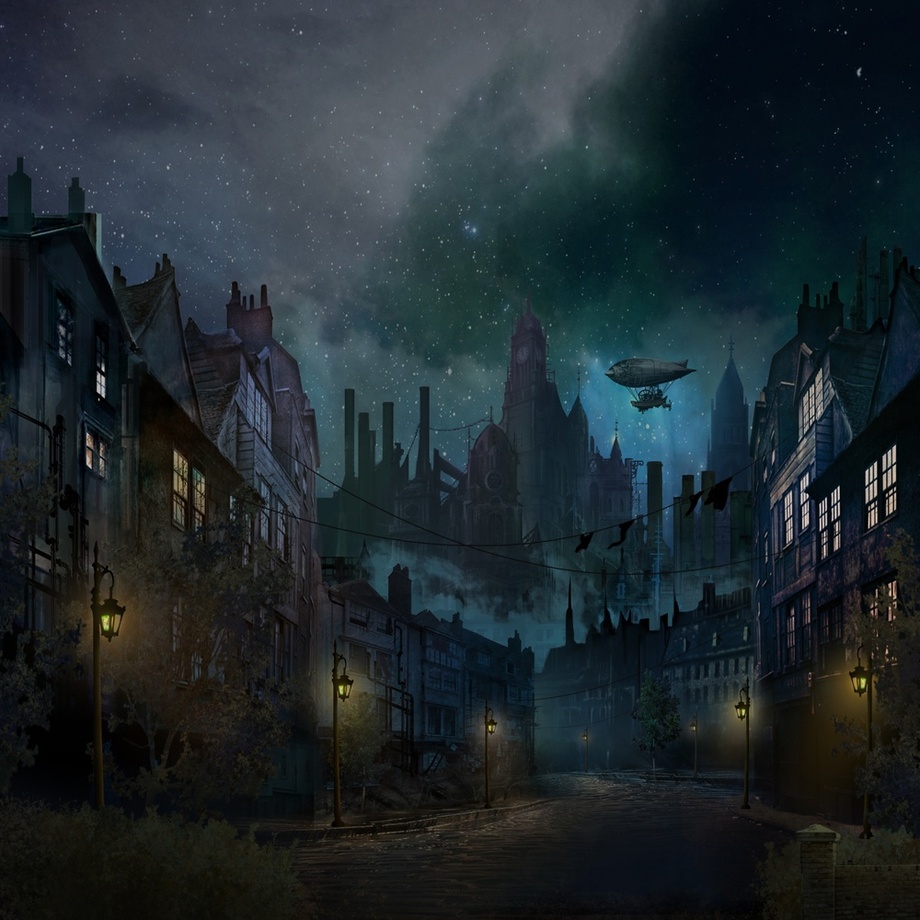
Table of Contents
-
Introduction: Archivist's Guide to Pryxis
-
The World
- General Information
- World Makeup
- Stellar System
- Cosmology
- Technology
- Gear, Oil, Steam and Wire
- Firearms
- Magic
- Arcane, Divine and Psionic
- Magic Brokers - Not Shops
- High Magic
- The Guild of Three
- Body of Magi
- Merchant's Guild
- Warrior's Cabal
- General Information
-
The History
- Timeline
- Ancient History
- Age of Dragons
- Spellplague
- Draconic Imperium
- Rise of the Mad Kings
- Meteorfall
- Age of Rebellion
- The Reawakening
- Dragon War
- Time of Rebirth
- Age of Peace
- Founding of the Guild
- Current Age
- Calendar
- Timeline
-
The Powers
- Melting Pot of Faith
- Pryxis, Archmagus Eternal
- The Pantheon of Sin
- Greed: Zariel
- Pride: Tyr
- Wrath: Melchar
- Gluttony: Oghma
- Envy: Hex
- Lust: Mishakal
- Sloth: Chemosh
- The Heroic Tribunal
- Gilthunder Dragonheart
- Haedrig Wyrmsbane
- Zolis Sephret
- Mystery Cults
-
The Land
- General Overview
- The Continents
- Apulean Chain
- Belgrad
- Briarn
- Egyix
- Ilend Isles
- Olis
- Pryxiria
- Triarch
- Tuyari
- Vanwa
- Non-Continents
- Arctic
- Antarctic
- Drizu's Crags
- Dragon's Tooth and Spine
- Gulf of Herkut
- Olde Man Mountain
- Holmla Isles
-
The Objects
- Magic vs Tech
- Magic Items
- Technological Items
- Artifacts
- Vehicles
- Eldritch Machines
- Magic vs Tech
Archivist's Guide to Pryxis
Welcome, intrepid scholar or foolhardy adventurer, to the world of Pryxis. This guide before you presents the need-to-knows and know-hows of the planet you currently reside upon, and everything from gods and religion, to the timeline, main guilds, maps and locales are at your fingertips.
The world is, needless to say, fairly odd when compared to your run-of-the-mill planet of basic swords and sorcery. This world has seen great heights of heroism, and the lowest forms of depravity unimaginable to the mortal and immortal minds.
Quite possibly, the two most fulcrumatic aspects of this world are: 1.) The general access to technology that rivals even our neighboring worlds of Kaladesh and Eberron, and 2.) The presence and study of the greatest and most powerful forces of the weave - High Magic.
While these aspects are undoubtedly widespread in their usage by the masses, not all upon this world have yet to accept such bountiful treasures. Some countries and continents may still reside within the age of blastpowder and whaleoil, while others still cling to their primitive forms of stone and bone. Yet, all who touch the lifeblood of the weave know of the pulse of magic, and High Magic can be found in every corner of the globe.
Further still, the differences between cities and their people are as varied as the lands they inhabit. Take nothing for granted, fair traveler, as great threats lurk in every corner, and even the greatest of good deeds do not go unpunished.
Essential Resources
The following is a collection of other materials intended for use within the world of Pryxis - everything from materials, to godhood.
- House Rules - Pryxis's House Rules
- Expanded Materials and Items - The Expanded Crafter
- Unique Subclasses - Pryxis's Archetype Portfolio
- New Spells - Pryxis's Pages of Pure Magic
- New Feats and Abilities - Pryxis's Feat Referendum
- More Monsters - COMING SOON
- Godhood - The Path to Godhood
Setting Style
Before going much further into this document, it should be stated that the world of Pryxis stands apart from other typical settings.
One could, for all intents and purposes, state that the simplest way to describe Pryxis is that it is a "victorian-steampunk magic setting." The intermingling of magic and technology has led to a veritable boom in industry and research, even to the point of widespread starfarring technologies - easily allowing Spelljammer adventures.
The basic fundamentals of D&D still exist within this world, but with far more access to bizarre magic, mechanics, and firearms, with dashes of eldritch horror and noir. Keep these fundamentals in mind when forming your characters.
So, I suppose you have many questions about this world, it's timeline, and it's people?
As an archivist, I expect you to set the record straight about many misconceptions pertaining to these topics.
Plus, it's not often I get the opportunity to sit down and discuss my past so thoroughly - after all; my life is the same as the world's. So let's get started...
-- Pryxis
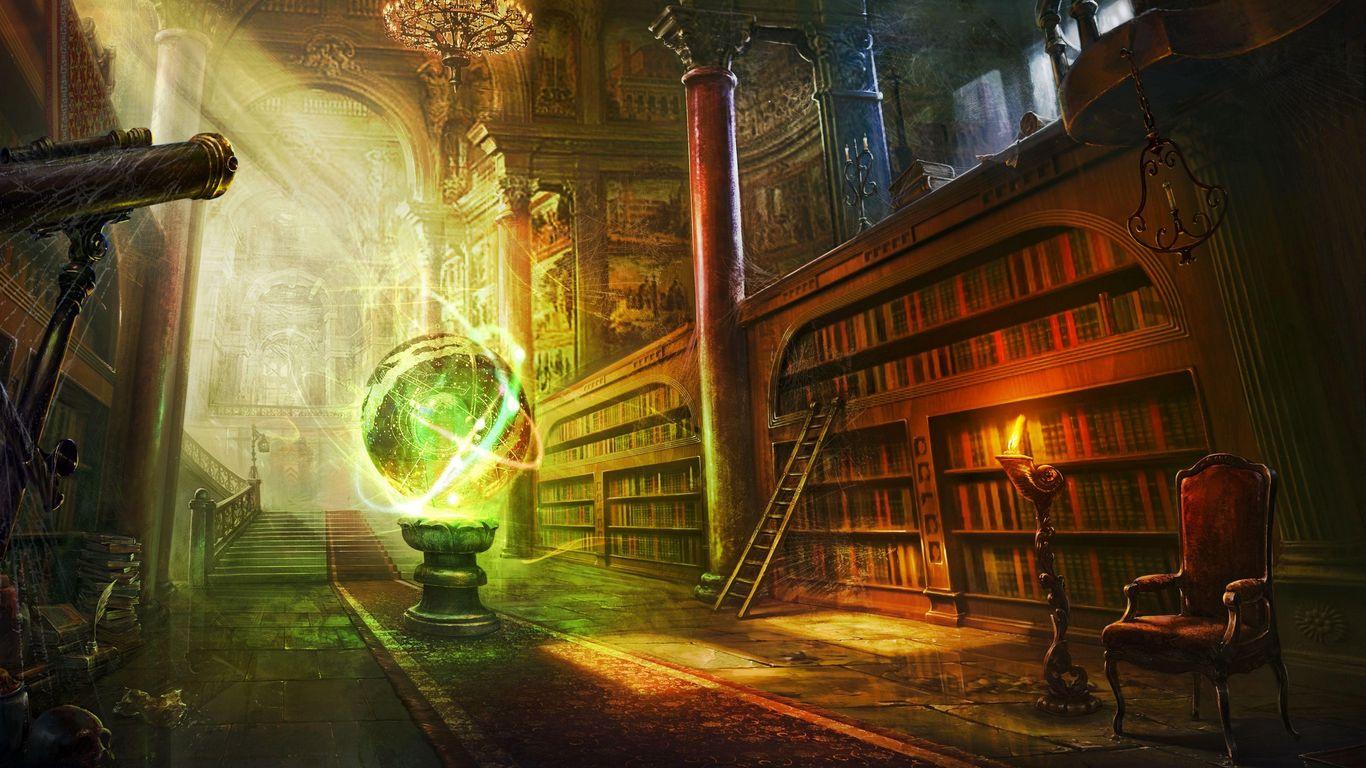

PART 1
The World

The Pryxian Night Sky
The World of Pryxis is a ringed planet, with it's planetary rings wrapped around the equator and it's moon: Arivae nestled just beyond the edge of the rings. The Pryxian rings and moon have always provoked a sense of sacred curiosity within the masses of the world.
The World
General Information
The world of Pryxis is vast, mysterious, and full of as many wonders as there are dangers. Many aspects set it apart from other worlds upon the material plane - mainly its unique geography and planetary traits.
The realm of Pryxis has a distinct familiarity with it's brethren worlds - namely the following worlds:
- Abeir-Toril (Forgotten Realms)
- Amonkhet
- Athas (Dark Suns)
- Dominaria
- Eberron
- Exandria (Critical Role)
- Innistrad
- Kaladesh
- Kaldheim
- Krynn (Dragonlance)
- Oerth (Greyhawk)
- Ravnica
- Shandalar
- Theros
- Zendikar
Pryxis lays nestled in a particularly active thoroughway of travel between realms - allowing access to a diverse group of people and goods normally not seen on a wide variety of worlds.
Indeed, travelers from worlds beyond the ones previously listed can sometimes be seen passing through, and the presence of what could be considered "alien" races are not uncommon amongst the most densely populated metropolises - even otherworldly entities such as Planeswalkers, Immortals, and Deities frequently pass through the world of Pryxis from time to time, although, usually while keeping a low profile.
Due to the magical and technological nature of Pryxis, the ability to travel to and from each previously listed world can be as easy as magical teleportation, but long distance travel for the purposes of trade and population can be acquired via a spelljamming vessel or similar form of interdimensional or space vehicle.
The nature of space travel upon the material plane comes with a caveat: traveling to a world beyond Pryxis may sometimes result in what is know as "temporal flux" - a state in which the worlds visited may be in a much earlier state in their timelines. This trait isn't wholly understood, but some magi theorize that the world of Pryxis may reside inside of a bubble of space-time from the spellplague that renders it further in the flow of time than other planets. Of course, it could be as simple as an eldritch entity playing a massive trick on the masses, but no one can say for certain.
Temporal Flux - Time Shenanigans
The timeline of the world of Pryxis is several thousand years after most notable events within other realms on the material plane. To account for this, the presence of Temporal Flux exists solely to ensure that no "cross-contamination" of various other world's times are thrown into chaos.
Many attribute this temporal displacement to the presence of "The Gyre" - a phenomenon native to the Labe-Suo star system, which is mentioned later.
This is merely a DM's mechanic for ensuring no wonky time-tom-foolery takes place, but it is up to the individual DM to determine whether they wish to travel to the world of Abeir-Toril about 7000 years past it's current official timeline.
Yes. This world we currently reside upon is named after me.
No. I did not name it myself, the masses decidedly chose to rename it after me for liberating them from the Draconic Imperium.
No, I don't mind it, I find it endearing in a way. As for what is was named before? I'd much rather keep that to myself.
-- Pryxis


World Makeup
The World of Pryxis itself is distinct in it's form and function - and many who travel to and from the planet can attest to it's unique qualities.
Planetary Ring
Pryxis carries with it a planetary ring that rotates around its equator. This ring has caught the attention of as many off-world travelers as it does the inhabitants of Pryxis.
The Ring itself is only about a mile thick, but the consistency of the objects within it is the main interest of scholars and mages. Generally, the ring itself is composed of Stone, Dust, Crystal and Animite (also known as soul gem).
Many would-be profiteers make efforts to take ships or other forms of travel to the rings to harvest the raw Animite that orbits the world or Pryxis, but this is a dangerous job, as many other threats lurk within the planetary ring as well as the hazardous conditions.
The Glowing Moon: Arivae
Like the planetary ring, the moon that orbits Pryxis is equally fascinating to onlookers and travelers alike. The moon of Arivae sits just beyond the edge of the ring - and the moon seems to constantly glow with an eerie pink and purple light.
The light from the moon refracts off of the planetary rings, which illuminates the world at night time with an above-average dim light - but not so bright as to deter nocturnal creatures or those accustomed to the shadows.
Light given off from the moon of Arivae generally is brightest between the tropical zones, whereas the areas beyond the tropics tend to be shrouded in more natural darkness.
It is often theorized that Arivae was originally a much larger moon several eons ago, but was eroded down into it's current size and it's refuse formed into the planetary rings - however, no evidence suggests a natural calamity took place. Therefore, many scholars speculate that the rings were created artificially, but these claims have not been verified.
A World of Mostly Water
The World of Pryxis has a circumference of about 25,500 miles, and is roughly 80% water - meaning a good portion of the world is submerged underseas.
This was not always the case, as thousands of years ago a calamity took place in which Pryxis the Archmagus Eternal staved off an assault from an otherworldly force that was hellbent on destroying the planet. Pryxis the Archmage could not destroy or redirect the meteor sent to cause calamity upon the world - but he was able to transmute it into mostly ice and water.
This event triggered a great flood that subsumed much of the land that previously existed between continents, but it was the only choice left for Pryxis at the time.
Regardless of the reasoning, the world of Pryxis is now a world populated by a wide variety of sea life, underwater ruins, and rampant piracy.
Magic-Infused Land
Pryxis is dotted with a wide variety of terrain and biomes that stand out against the common environments.
Some lands consist of crystalline forests that are rife with psionic energy. Others are woodlands lit afire with everburning flames and embers that never go out. Few include an ever-expanded wasteland of salt that threatens to destroy the wildlife around it. Others are masses of floating islands that reach far into the upper atmosphere, as well as many, many more biomes.
Regardless of the terrain, many aspects of the land of Pryxis are infused with natural and supernatural forces that become more apparent the further you go into your travels.
Sprawling Metropolises
The habitable areas of the world of Pryxis can be found dotted with various communities, cities, and kingdoms that come in many shapes and sizes - holding people of all races, creeds, and backgrounds.
The main aspect of the most densely populated areas is the structural forms in which many communities build. Many bustling cities have a tendency to build their structures upwards, instead of outwards - this typically results in buildings who's bases are wider and as they grow taller, they take on the form of towers and even skyscrapers. These structures generally have massive interiors and huge antechambers and hallways.
The world is filled with many varieties of people, each with their own usage of technology and magic to aid their communities in a myriad of ways.





Did you know, when I was a young lad eons ago, we thought our planet was the only one in this system?
Looking back on it now, it was such a sublime innocence: cradled solely in the comfort of our two stars, unaware of the vast horrors and destruction that awaited us.
In a way, we were but children.
-- Pryxis

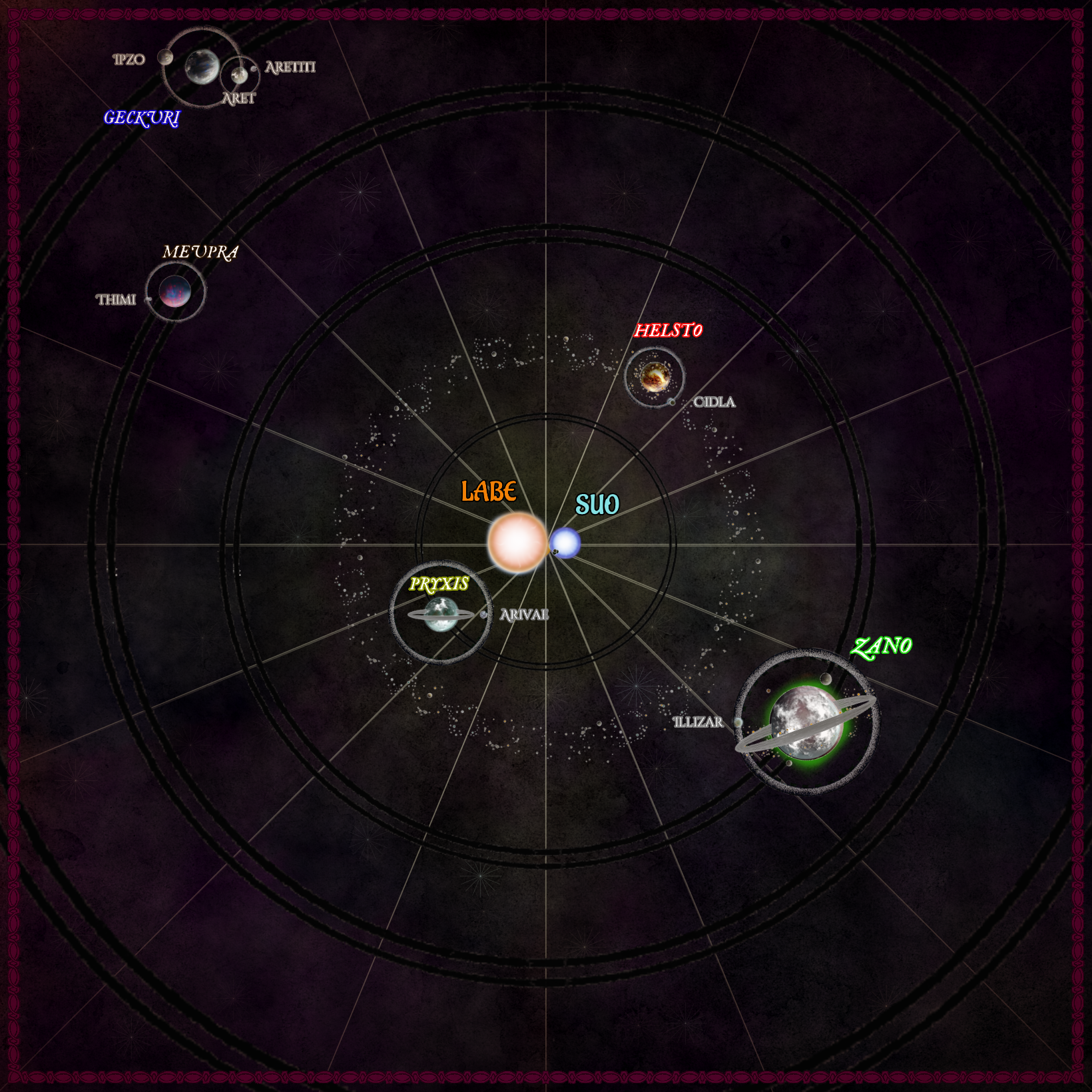
Stellar System
The World of Pryxis is nestled in a particularly unique star system compared to many other of its brethren worlds.
Binary Stars: Labe & Suo
Known scientifically as the "Labe-Suo System", the two stars which the world of Pryxis revolve around are continuously locked in a fixed position; with a cool, orange star (Labe) facing the hotter, blue-white star (Suo). Their fixed positions result in an equivalent number of days per season upon Pryxis (with the exception of the Midnight renewal).
The reasoning for their fixed position is believed to stem from their almost directly opposing gravitational pulls - with Labe attempting to spin counter-clockwise, and Suo attempting to spin clockwise (when viewed from their northern poles). This counter force has been speculated to have caused the spot of midnight on Suo's surface.
Spot of Midnight
The "spot of midnight" is a term used to refer to the ejection sunspot upon the star Suo, which the orbital pattern of Pryxis leads directly through it's coronal ejection at the end of the winter season.
Luckily, the orbit of the Pryxian moon Arivae coincides directly with the time when the planet passes in front of the coronal ejection.
Because of the immense radiation and gravitational forces at work as Arivae shields the planet of Pryxis, the speed at which the planet of Pryxis continues it's orbit is slowed - resulting in a week of eclipsed twilight.
As the stars are blotted out, and auroras lighting up the skies of Pryxis - this period of wondrous time has been celebrated as the "Midnight Renewal".


Pryxis & Arivae
The main populated planet of the Labe-Suo system, the world of Pryxis resides closest to the stars.
Aside from the crystalline rings and glowing moon, Pryxis itself is immediately noticeable from orbit as a lush oceanic world, with heavily populated urban sprawls nestled within wide open landmasses that are as varied as the people who inhabit them.
Pryxis has generally been sought after as a beautiful haven world by other star systems - with access to technological wonders, deep and mysterious magic, as well as several unique flora and fauna found only within it's incredible wilds.
General Information about the world of Pryxis are included in this document - as the main focus of this guide revolves around all information pertaining to the world itself (it is, after all, called the "Archivist's Guide to Pryxis" not the "Archivist's Guide to the Labe-Suo System").
Pryxis

- Capital: Pryxian Megapolis
- Population: 5,000,000,000 est. total
- Satellites: Planetary Ring, Arivae
- Environs: Garden; Civilized
- Orbital Distance: 1.075 AU
- Orbital Period: 427 days
- Circumference: 25,500 miles
- Arivae: 6,550 miles
- Day Length: 24 hours
- Atmospheric Pressure: 14.7 lbs/sq. in. (1p)
Asteroid Belt
While not a planetary system, the Labe-Suo asteroid belt takes up a considerable amount of space within the stellar system and garners much attention from the surrounding planets in-system for its veritable raw resources.
Many groups take residence in the asteroid belt - mainly in the form of space stations, mining facilities, pirate alcoves, or even high-class "recreational" suites.
Asteroid Belt
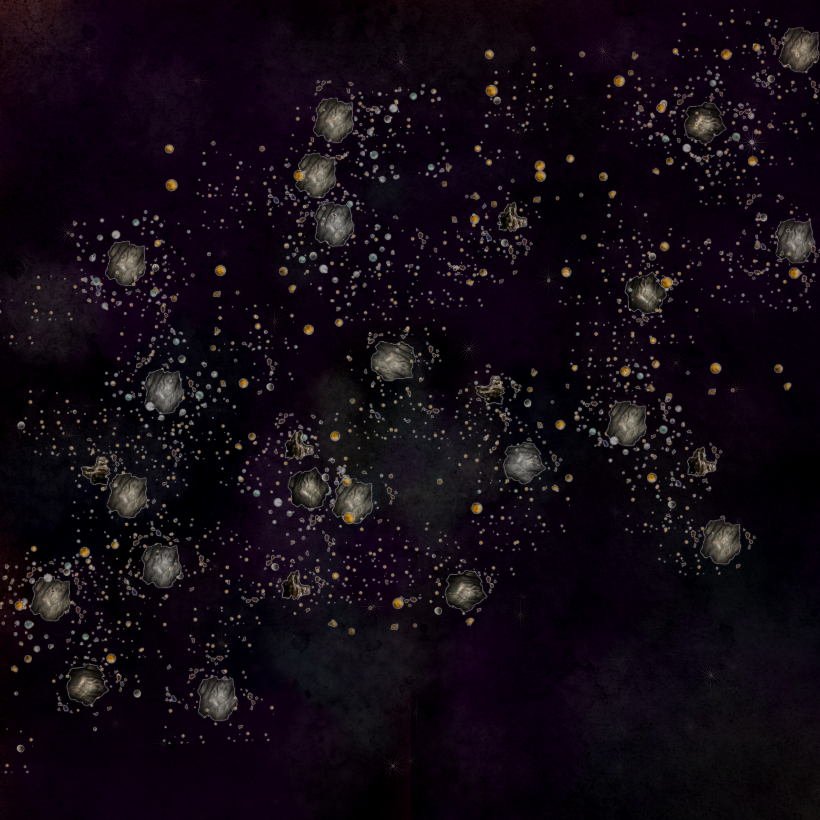
- Capital: N/A
- Population: Unknown, 3,000 est. total
- Satellites: Asteroids, Space Stations
- Environs: Asteroid Belt
- Orbital Distance: 2.0 AU
- Orbital Period: Varied: roughly 500 days
- Circumference: N/A
- Day Length: N/A
- Atmospheric Pressure: N/A
Helsto & Cidla
Nestled among the astroid belt of the Labe-Suo system lies a planet comprised of molten rock and stone - where oceans of vast lavaflows and weather patterns resembling hot metal which rain from the skies. Helsto has truly earned it's namesake for being a haven for the fiendish, infernal, and those not adverse to hellish conditions.
On the flip side of the spectrum lies Cidla: the main moon which orbits the hellish planet and whose gravity acts as a reflective shield towards the asteroid field (albeit, at the expense of flinging asteroids directly into Helsto).
Cidla itself is a tiny, veritably humid, garden world dominated by expansive tropical forest. The excess heat from it's parent planet combined with that of Labe-Suo have trapped moisture over the eons into liquid water. It would be a paradise world, with the exception of constant rainfall and toxic smog which coalesces in low level areas.
Helsto

- Capital: Drigsht
- Cidla: Auros
- Population: 1,500,000 est. total
- Cidla: 30,500 est. total
- Satellites: Asteroid Shell, Cidla
- Environs: Volcanic; Barren
- Cidla: Tropical
- Orbital Distance: 2.0 AU
- Orbital Period: 500 days
- Circumference: 20,265 miles
- Cidla: 3,270 miles
- Day Length: 52 hours
- Atmospheric Pressure: 88.2 lbs/sq. in. (7p)
- Cidla: 15 lbs/sq. in. (1.1p)
Zano & Illizar
The largest planet in the Labe-Suo system is a Gas-Giant comprised of hydrogen, trace amounts of methane, and copious amounts of aerosol copper dust, which give it a green-white coloration. Zano is a continuously churning storm, with green lightning discharges that stretch for hundreds of miles across it's surface.
The only "habitable" satellite of Zano is the moon Illizar: a desert world with very little natural water sources, but rich in various minerals. The remaining satellites are listed in order of size: Laks (orange), Pukt (brown), and Bitui (grey).
Zano's incredibly thick planetary ring is by far the most intriguing aspect of the planetary system: comprised of earth motes, dust clouds, breathable air and even water - which allow the ring to exhibit floral growth in the form of lichens, mosses, and various grasses and vines.
Zano
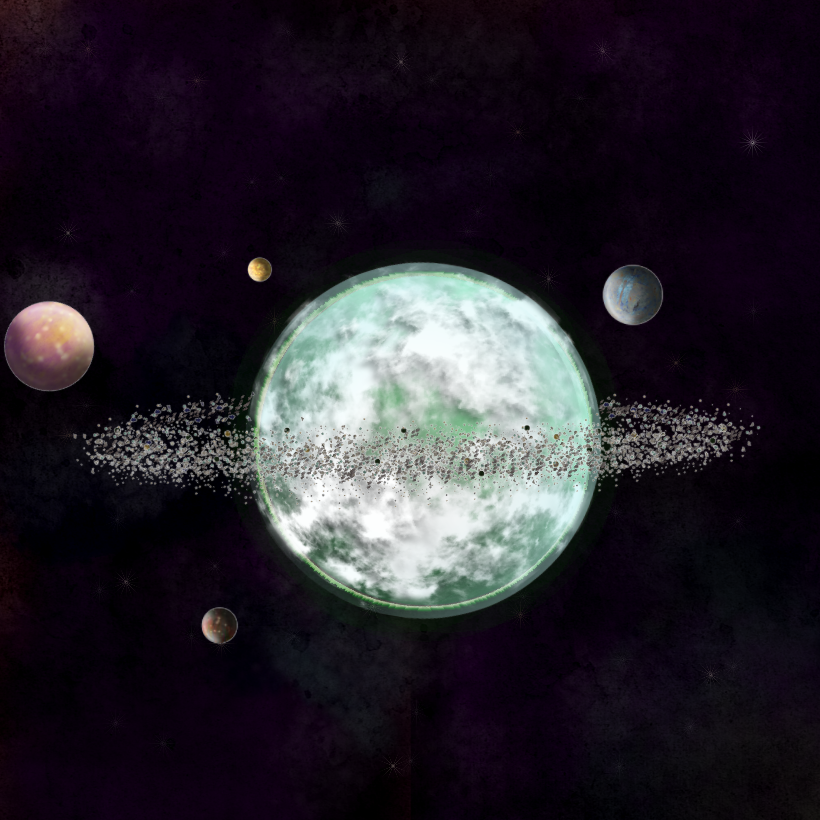
- Capital: N/A
- Illizar: Qifu
- Population: N/A
- Planetary Ring: 1,375,000 est. total
- Illizar: 50,000 est. total
- Satellites: Planetary Rings, Illizar, Laks, Pukt, Bitui
- Environs: Gas Giant
- Planetary Ring: Garden
- Illizar: Desert
- Orbital Distance: 5.0 AU
- Orbital Period: 4070 days
- Circumference: 273,527 miles
- Illizar: 7,030 miles
- Day Length: 12 hours
- Atmospheric Pressure: 150.0 lbs/sq. in. (10.1p)
- Illizar: 14.5 lbs/sq. in. (0.99p)
Meupra & Thimi
In the outer half of the Labe-Suo system sits the greenhouse gas-covered planet of Meupra. This world is wracked with countless silicon dust storms and incredible pressure.
Strangely enough, despite the veil of greenhouse gases, Meupra's environment is not beyond livable (in terms of heat and temperature), as it's distance from the dual-stars would normally yield a potentially colder planet - yet the high levels of carbon dioxide in the air trap most heat on the surface.
Fortunately, Meupra is what many consider a "hollow world" - a planet where the surface crust covers a massive cavernous maw of tunnels and cave systems where a traditional upper magma mantle would reside. Within this subterranean landscape lies a flourishing ecosystem of fungus and algae which have essentially rendered the underground an oxygen rich environment. Many hardy peoples and creatures have grown accustomed to the twisting tunnels and dangerous surface of a planet they call home.
The moon Thimi is the only satellite that orbits Meupra, and appears to be comprised of an incredibly powerful magnetic material that renders most electronic and magical equipment inert in orbit. No scouting missions to Thimi have ever reported back - theories abound that the moon is hyper-lethal to most living beings, cursed, or even alive.
Meupra

- Capital: Zurriz
- Population: est. total
- Satellites: Thimi
- Environs: Barren, Rock
- Orbital Distance: 15 AU
- Orbital Period: 10,580 days
- Circumference: 23,704 miles
- Day Length: 36 hours
- Atmospheric Pressure: 30 lbs/sq. in. (2.04p)
Geckuri, Ipzo, Aret & Aretiti
The furthest planet within-system, and by far the coldest, the world of Geckuri resides on the edge of the vast empty space of the remaining area of the Labe-Suo system.
Geckuri is more water than planet - with a considerably dense and volcanically hyper-active metallic core surrounded on all sides by liquid water, the planet is nothing but ocean as far as the eye can see. The outer shell of the oceanic planet is encased in a thick layer of ice miles deep - where light barely penetrates into the deep abyssal quagmire below. Many oceanic creatures reside deep in the darkest depths of this planetary sea - accustomed to it's comforting embrace.
The planet is flanked by two gravitationally dual-locked moons (as in, they orbit the planet at the same pace, from opposing sides), one of which has a moon of its own. The lone moon is known as Ipzo, and the sister moons are known as Aret and Aretiti.
Theorists speculate that the gravitational force exerted by the hyper active core of Geckuri - combined with the orbital friction of the many moons - resulted in the planet being bombarded by various forms of proto-planetary ice that resulted in the liquid water today.
Geckuri

- Capital: Scloup
- Population: est. total
- Satellites: Ipzo, Aret & Aretiti
- Environs: Icy, Water
- Orbital Distance: 30 AU
- Orbital Period: 30,660 days
- Circumference: 26,650 miles
- Day Length: 16 hours
- Atmospheric Pressure: 14.5 lbs/sq. in. (0.99p)
Pryxian Shatter-Sphere
At the edge of the Labe-Suo star system, within the depths of the vast empty space past Geckuri lies a threshold comprised of artifice, arcanic, psionic and divine design.
This threshold is known as the Pryxian Shatter-Sphere: an orb-like creation of intense magical nexuses and artificial gravitational forces that encase the entirety of the Labe-Suo system within.
Long ago when the spellplague began, the crystal sphere that held the Labe-Suo system shattered into a massive crystalline cloud of dust that now resides at the furthest edges of the solar system.
The Shatter-Sphere is now it's replacement; crafted shortly after the end of the Dragon War by a union of Pryxis and the Seven Sins, this "net" of force is what now acts as a Crystal Sphere - but with the added benefit of continuous surveillance via the countless Asteroid-sized Runic Crystal Orbs that remain suspended within the net. Through these orbs, anti-intrusion countermeasures can be launched to persuade or destroy would-be threats to the System.
Passing through the Shatter-Sphere is the same as any Crystal Sphere - with the exception that a magical signal must be transmitted to prevent being a target of the Runic Orbs defense systems.
Shatter-Sphere
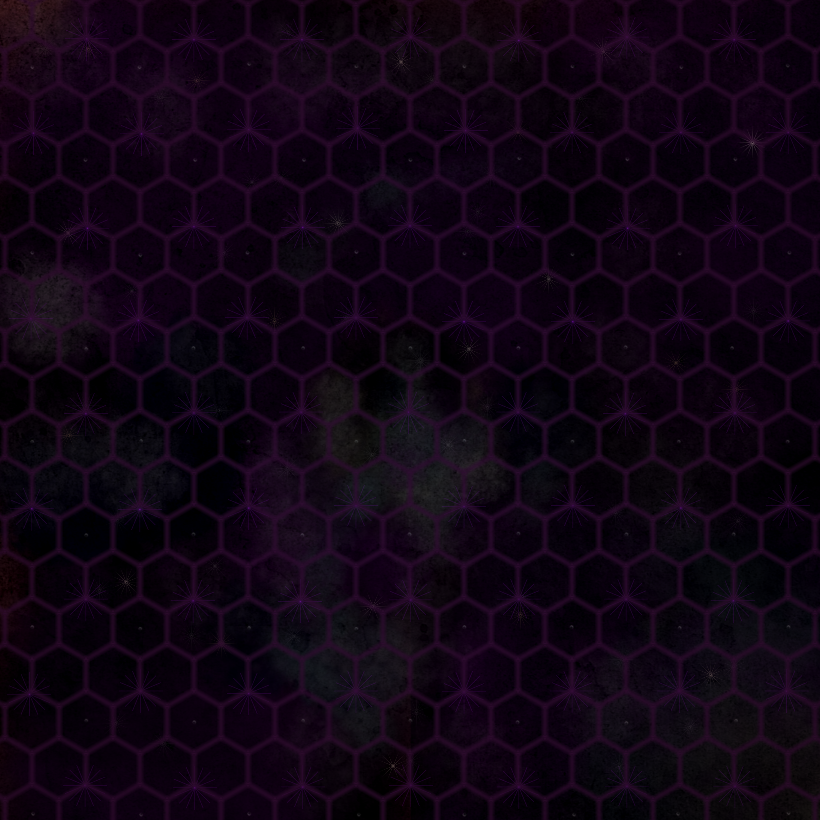
- Capital: N/A
- Population: N/A
- Satellites: Various; Runic Crystal Orbs
- Environs: Artificial
- Orbital Distance: 100 AU
- Orbital Period: Static
- Circumference: N/A
- Day Length: N/A
- Atmospheric Pressure: N/A
Threads & Orbs
The Pryxian Shatter-Sphere is an absolutely titanic artifice comprised of a hexagonal thread-like network of energized dust trails - surrounded (and powered) by thousands of crystalline orbs crafted from the remnants of the ancient crystal sphere that once encapsulated the Labe-Suo system in eons past.
These Gargantuan Runic Orbs act as a basic hivemind - transmitting telepathic communications between one another when an object (whether it be a creature, a ship, or otherwise) comes within 100 miles of the Shatter-Sphere. Whenever a proximity alert is issued, the Runic Orbs await a telepathic signal that permits an object to pass through the threshold. If no signal is met (or the wrong signal sent out), the orbs begin offensive countermeasures.
If an object passes the threshold successfully without permission, the Runic Orbs transmit an emergency signal to the Pryxis Academy of Dweomer within the Pryxian Megapolis to warn of the incoming threat - and great woe to anything that piques the Archmagus Æternal's interest.
We at one time had our own Crystal Sphere - but when the weave lost it's stability eons ago, the sphere shattered.
We lost our connection to magic because the else-essence could not be retained inside a broken container.
Instead, I grasped the last threads of essence I could, and wielded them.
-- Pryxis



"Io's Claw" Nebula
The miniature nebula within which the Labe-Suo star system resides - cloaked in a claw-like cloud of various gases, dust and phlogithon that render it almost unnoticeable to those not knowing where to search.
This nebula glows with the light shed from the Labe-Suo stars, which bounces, curves, and refracts off the crystalline dust and rainbow phlogithon that surrounds the system. The Labe-Suo star system resides within the central mass of the nebula - namely the "palm of the claw".
Io's Claw
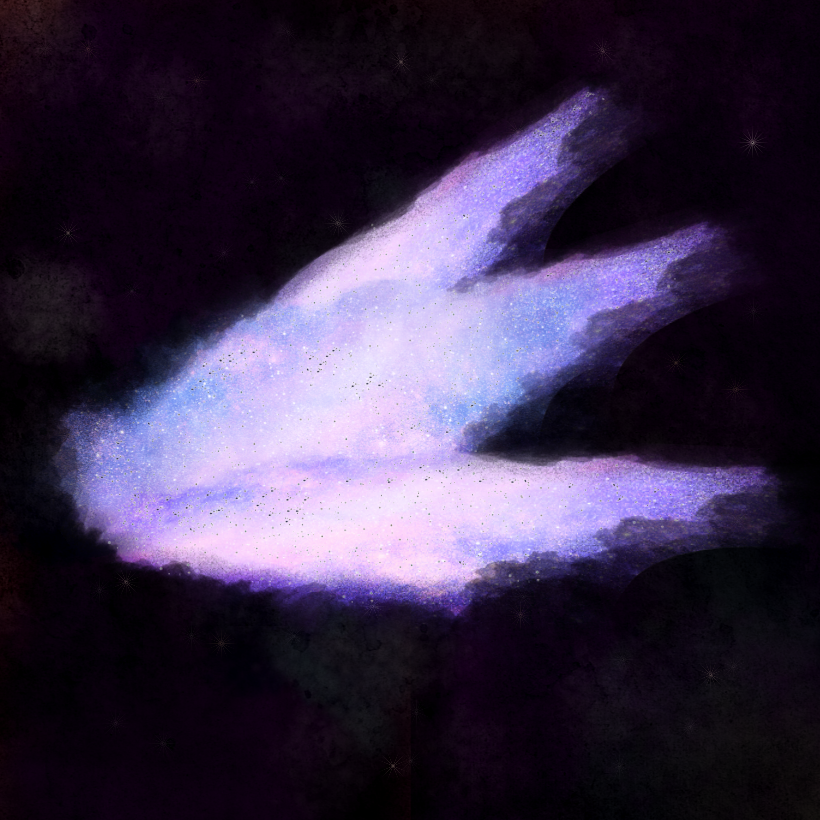
- Capital: Labe-Suo
- Population: The Labe-Suo System
- Satellites: N/A
- Environs: Nebula; Dust, Crystal, Ice, Protomatter, Phlogithon
- Orbital Distance: N/A
- Orbital Period: N/A
- Circumference: N/A
- Day Length: N/A
- Atmospheric Pressure: N/A
New Study: Space vs Astral
Within times past, the commonplace belief was that the outside of Crystal Spheres and Star Systems lie the Astral Plane itself. Sages, scientists and philosophers have debunked this false idea, as this simply is only partially correct, as always.
Recently, the truth has come to light:
The space beyond the crystal spheres is known as just that: Space - a vast empty vacuum populated sparsely by material matter under the control of gravitational and magical forces. Traversing space requires vacuum sealed ships and spelljammers with air circulation systems.
Within the realm of space, rivers and nebulae of Phlogithon (a rainbow-colored gaseous liquid) allow for quick transportion from system to system by "riding the flows".
Within certain Nebulae where great amounts of Phlogithon coalesce reside natural portals and tears leading to the Astral Plane itself - where portions of the Astral Plane may "spill over", these spill-overs and astral rips are known as the Border-Astral.
These fundamental facts have become essential to understanding Space travel versus Astral travel; as space may lead to the astral, and one can reach space through the astral plane.
As if one could easily believe the realm of gods and dreams could so EASILY be reached by simple travel - Such is a foolish ideation!
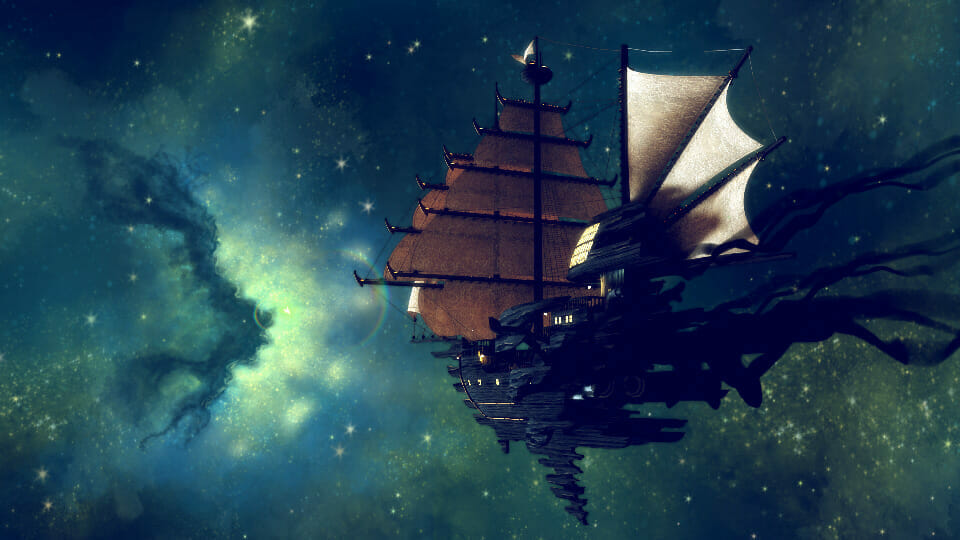


Cosmology
The planar cosmology of Pryxis is practically identical to that of Abeir-Toril, with all the main planes having portals or metaphysical tethers to the material world.
However, due to the great magical potential of the world of Pryxis, access to other planes unique to other material worlds (such as those of Eberron, Athas, and others) is relatively common.
The presence of physical portals and tears to other planes are a common anomaly throughout all corners of the world - particularly in magic infused lands that harbor elemental or planar energies that spill over into the material world....and especially through the Gyre.
Outsiders of all forms are also a regular anomaly upon the world - with everything from Aasimar, Tieflings, Genasi and Gith to full on Celestials, Fiends, Elementals and more.
Anyone, Anytime, Anywhere.
The unique predisposition of the world or Pryxis allows for almost anyone to appear upon it's material shores.
From other star systems, to other planes of existence, to even other points in the temporal flow - the world of Pryxis welcomes any and all into it's bizarre and wondrous reality.
How many planes are there? I can only answer that with another question: how many ideas are there?
Planes are representations of notion. From light and shadow, elements and states of matter, states of life and death, even lofty philosophies of good and evil, chaos and law.
What of the untethered ideas? Notions of the unknowable? Undiscovered elements? There is a plane for everything.
-- Pryxis
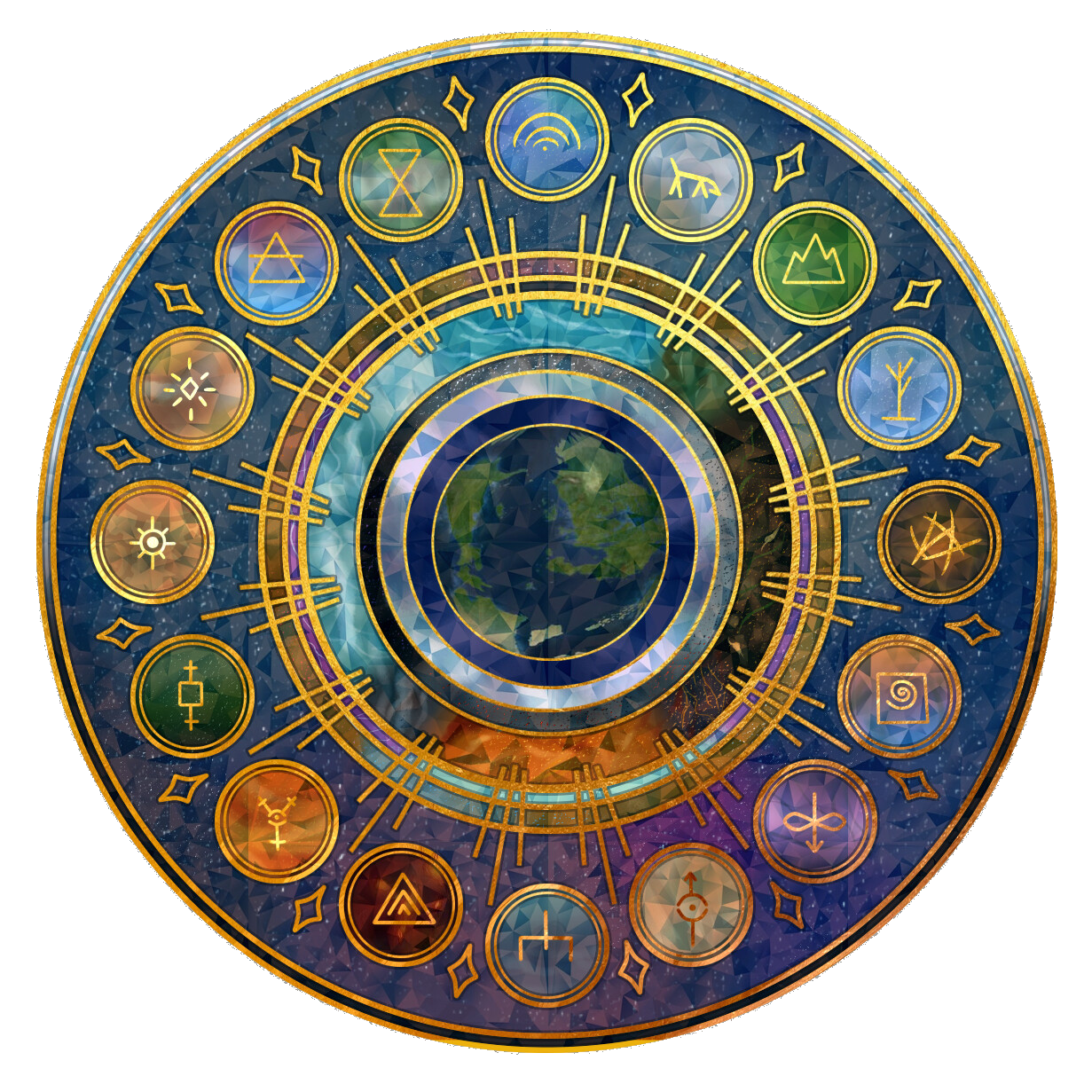
Supernatural Region: The Gyre
Within the Labe-Suo system exists a bizarre and otherworldly phenomena known as The Gyrating Nexus - or simply known as "The Gyre".
The Gyre is an ever-churning confluence of transitive-planar energies and natural leyline emanations - in layman's terms, it is a roiling presence of the magic of change. When beholden to the Gyre, it appears as a sort of semi-ethereal, multi-chromatic "tissue" of rarefied light that continuously shifts, churns and rolls across the landscape. This phenomenon affects the borders of reality, namely spacial distance, the flow of time, and changes in matter and energy.
The Gyre's transient influence exists in regions that have been affected by continuous use of teleportation, planar travel, and areas where natural portals may be found - typically where permanent corrupted rifts reside.
Consider rolling on the Gyrating Nexus Effects table when the following circumstances occur in the region:
- Any means of teleportation or planar travel is utilized, or where a plane may be created (such as rope trick or demiplane)
- A creature or object becomes invisible or visible.
- A creature casts a spell that would transport them into the Ethereal Plane or allow the creature to move through the plane temporarily (such as misty step or blink).
- A creature undergoes a transformation or shapechanging effect (such as an aasimar's celestial revelation, a lycanthrope's shifting, or a spell such as Tenser's transformation).
Any abilities or happenings created by the Gyrating Effects table do not trigger further effects on the table - unless stated otherwise.
Gyre Manifestation
The presence of a Gyrating Nexus typically only exists in an area for as long as the source of corruption remains active - such as warped teleportation circles, demiplanar entrances, or planar bridges and rifts.
Once the source has been deactivated permanently, the Gyre Tissue typically disperses back into the intra-planar borders within weeks, months, and rarely years.
The origins of the Gyre are a highly debated topic amongst the denizens and visitors to the Labe-Suo system - and even more discussed is it's ability to transport matter and energy to other locales and worlds within the multiverse.
The most accepted theory is that Gyre is the leftover remnants of the Old Weave; a sort of "frayed threadwork" left behind from the Spellplague eons ago, and when magic reignited upon the world - so too did the remnant threads. Resulting in a sort of magical pollution, in that the overuse of transpositional magic and high magic has caused a form of backflow energy that thins the barriers of reality.
If you were searching for enlightenment upon this topic, I must say you are about to be disappointed.
The origin of the Gyre is as much of an inscrutable force to me as it is to you.
What I can tell you is this: It's been around since I was a young lad, but it was never as prevalent as it is today.
-- Pryxis
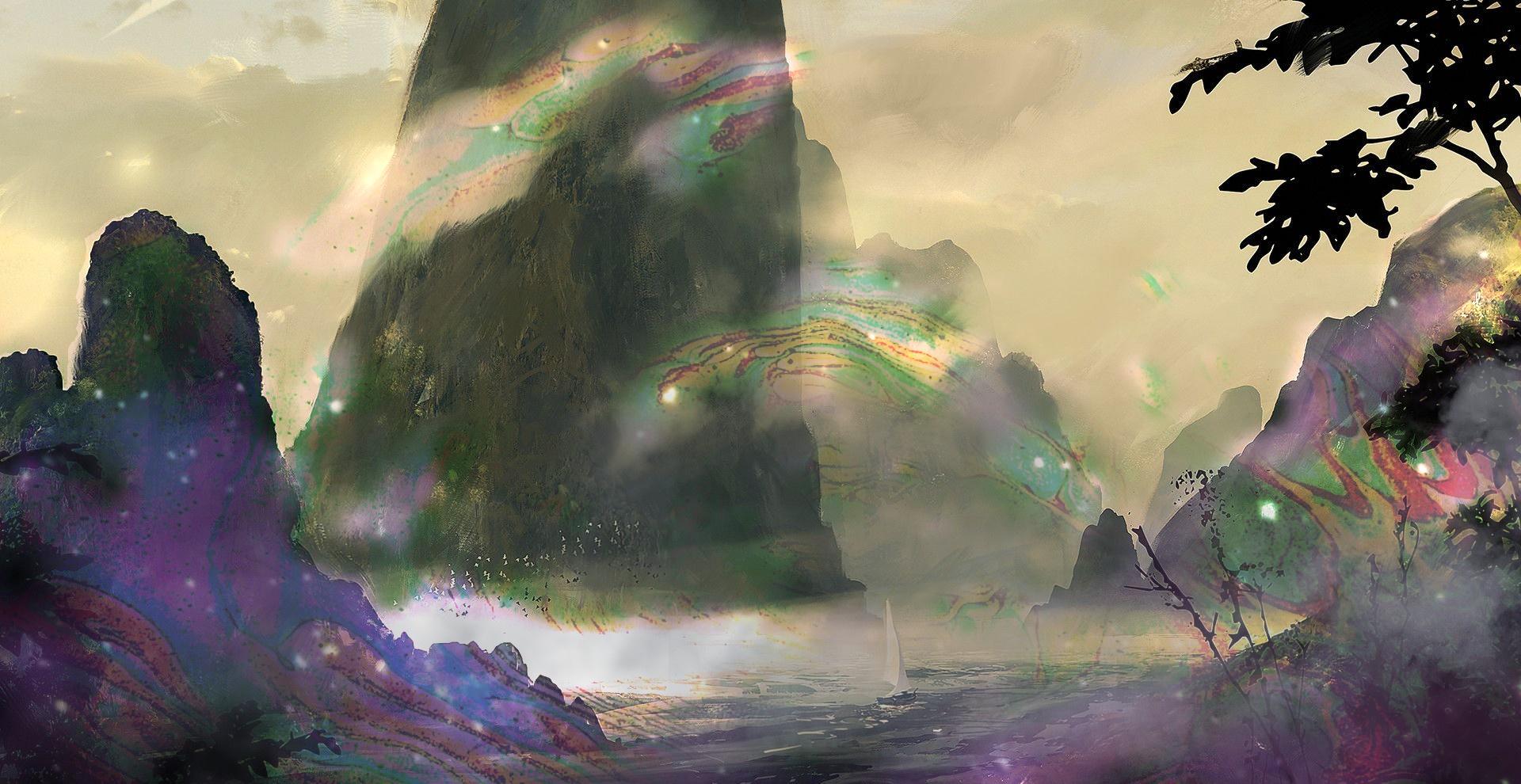

Gyrating Nexus Effects
| d100 | Effect |
|---|---|
| 01-05 | Roll a d8 and consult the roll table of the prismatic spray spell. The corresponding color ray streaks toward a number of random creatures in the region. The number of creatures targeted is equal to 4d4. If there are no creatures left to target, the rays hit random objects dealing double damage. |
| 06-10 | A chest resembling Leomund's secret chest appears within 30 feet of one creature. Roll 1d4. On a roll of 1-3, the chest is empty. On a roll of 4, the chest is filled with a number of art objects, gemstones and currency equal to 10d100 gp. |
| 11-15 | 1d6 Githyanki Warriors or Githzerai Monks and 2 Githyanki Knights or Githzerai Zerths appear from their plane shift. They are eager to return to their mission, and may be hostile. |
| 16-20 | A rogue extraplanar spirit tries to break out of it's imprisonment and attempts to possess a humanoid. One character in the region must succeed on a DC 15 Charisma saving throw, becoming possessed on a failed save. While possessed, the target is incapacitated and loses control of its body, and is under the effects of Tasha's otherworldly guise for as long as they are possessed. |
| 21-25 | Gyre tissue adheres itself to living matter. Creatures in the region gain the ability to cast misty step at-will for 1d4 hours. |
| 26-30 | Arcanic runes begin to swirl out of the Gyre tissue. All creatures within a 10-foot sphere surrounding one random creature are teleported to a labrynthine maze as per the maze spell. |
| 31-35 | The surrounding Gyre tissue begins to manifest around one random creature. That creature must succeed on DC 15 Constitution saving throw. Taking 4d4 force damage on a failed save. If the creature fails the saving throw, upon its next long rest, a Homunculus appears, regarding the creature as it's master. The Homunculus is permanent, and it has hitpoints equal to the damage the creature took - it also has the capability to cast eldritch blast. |
| 36-40 | One random creature in the region begins to uncontrollably teleport in-and-out of an empty demiplane every round for 1 hour. The creature can only take one action, bonus action, or reaction each round before disappearing - reappearing at the end of their turn. |
| 41-45 | The material veil begins to shift to another material world. Creatures in the region come under the effects of dream of the blue veil. |
| 46-50 | One character in the region is engulfed in transient kinetic energy. For 1 minute, the character's movements don't provoke opportunity attacks, and they gain the ability to cast steel wind strike once. |
| d100 | Effect |
|---|---|
| 51 - 55 | Creatures in the region must succeed on a DC 15 Intelligence saving throw or be affected by the scatter spell. |
| 56 - 60 | An elegant extradimensional manor phases into existence in the region. This manor functions as per Mordenkainen's magnificent mansion and remains there for 4d4 hours. |
| 61 - 65 | A shapechanger or creature using a spell, such as disguise self, alter self, or polymorph or a transforming feature such as Wildshape, to change its true appearance instantly reverts to its original form and can't assume a different form for 1 hour. |
| 66 - 70 | A multicolored, vibrating mist falls upon the surrounding area. The area becomes heavily obscured. All creatures within a 15-foot radius of one random creature must succeed on a DC 15 Intelligence check. On a failure, the creature is affected by plane shift to a random plane. The creature has 1 minute to return to the misty portal behind them or be trapped there. |
| 71 - 75 | A dimension door appears in the region, and out pours forth a stampeding herd of 2d4 Displacer Beasts being hunted by an enraged pack of 2d4 Blink Dogs. The two groups are locked in savage mortal combat. |
| 76 - 80 | A massive shimmering rift covered in runes appears. The rift occupies a 30-foot radius circle, functions as per the gate spell, and remains open for 1 minute. |
| 81 - 85 | One random creature - upon their next footstep - comes under the effect of the thunder step spell. Any creatures within 10 feet of the space the creature was out must succeed on a DC 15 Constitution saving throw or take 3d10 thunder damage. |
| 86 - 90 | A battle between two powerful extraplanar outsiders briefly tears through the veil into the surrounding region. The area in a 30-foot-radius centered on the tear is subjected to the destructive wave spell - with a DC 20 Constitution saving throw. |
| 91 - 95 | Roll 1d4. All creatures within a 15-foot sphere surrounding one random creature are teleported 2d4 miles in the corresponding direction; 1 North, 2 East, 3 West, 4 South. |
| 96 - 00 | A confluence of Gyre tissue condenses and collapses into a rift blade, as per the blade of disaster spell. The blade is hostile to all creatures. The blade has an AC of 20, 50 hitpoints, resistance to all damage, immunity to force damage and it can make two attacks per turn. The blade remains in existence for 1 minute, or until it is destroyed. It leaves behind a black diamond worth 5,000 gp if destroyed. |
Eldritch Storms
When magical currents become trapped amid winds and clouds, eldritch storms can result. This section offers an Eldritch Storm unique to the Gyre.
Planar Maelstrom. In very rare cases, Gyre Tissue may become so dense in an isolated area that it momentarily strips away the energy which sustains the barriers between planes - physically "grinding" other planes against the material plane with great force.
The Gyre Tissues begin to rapidly expand, reverberate, and blanket the landscape, as materials and influences from the planes begin to metaphysically blend together with violent vigor. The area within a Planar Maelstrom is lightly obscured, and is considered difficult terrain.
Each creature that starts its turn within the planar maelstrom has to make a DC 15 Constitution saving throw or begin to disintegrate. A target takes 2d10 force damage on a failed save.
From the moment the planes begin to collide, it takes 1d10 minutes before the planar barriers correct themselves and the maelstrom recedes.
Once the Maelstrom passes, the surroundings are reverted back to the material plane - but may share some traits of other planes, these traits last for 1d6 days. Creatures killed by the Planar Maelstrom have a 50% chance of reverting back to life via material recompilation after the maelstrom passes.
Optional Rule: Otherworldly Influence
When another plane collides with the material - much more than creatures, materials and portals may be left behind.
Consider utilizing one of the optional rules for the planes listed in the DM's handbook (such as the feywild's Time Warp, the shadowfell's Shadowfell Despair, or the outer plane Psychic Dissonance) to influence the area alongside the Residual Planar Traits.
Residual Planar Traits
After a Planar Maelstrom has taken place, the remnant energies of the colliding planes may still linger upon the material landscape - and may include portals, materials, and creatures from that plane.
Roll a d8 and consult the following table and associated traits below.
d8 Plane Type Residual Energies 1 Demiplane Planar Fragments 2 Echo Plane Beauty & Decay 3 Ethereal Plane Ghastly Dissonance 4 Elemental Plane Primordial Flares 5 Astral Plane Waking Dreams 6 Lower Plane Hellish Corruption 7 Upper Plane Heavenly Influence 8 Far Realm Aberrant Mutations Planar Fragments. Fragments and shards of inorganic interplanar materials lay scattered across the surroundings - such as stone, wood, dirt, crystal, etc.
Beauty & Decay. Shadows are deeper and darker, colors more vibrant and lustrous - living creatures have emotions only in extremes.
Ghastly Dissonance. Random objects and creatures are ethereal and intangible to all except ethereal creatures.
Primordial Flares. Wind gusts violently and frequently, fires burn twice as hot with barely any fuel, the earth churns underfoot, and water rushes at twice the speed.
Waking Dreams. The thoughts and dreams of others act out upon the surroundings as per minor illusion and major image.
Hellish Corruption. Creatures are far more violent, and sounds, images, and tactile feelings from the Hells are randomly experienced firsthand.
Heavenly Influence. An aura of peace pervades the land, and creatures seem to be numbed to pain and turmoil.
Aberrant Mutations. The surroundings twist and pervert into bizarre shapes and eldritch dimensions which confuse the wildlilfe and sentient beings.
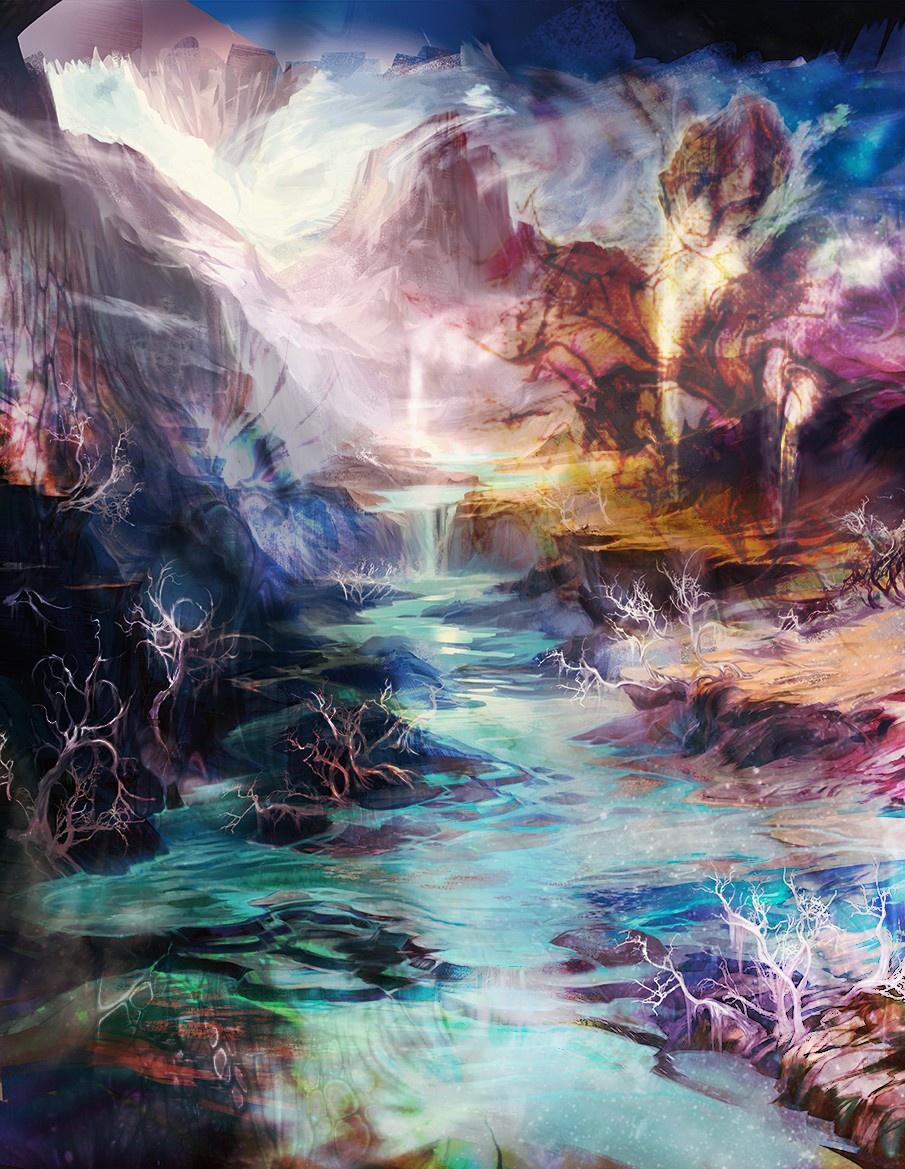

Technology
The inhabitants of Pryxis have been blessed with a wide variety of access to multiple forms of technology - blending their own style of invention with those of their brethren worlds of Kaladesh and Eberron.
The main aspect of inventors and artificers in Pryxis is their hesitance to incorporate too much magic into their technology, as they have learned their lesson in regards to what happens when magic fails. Instead, they choose to create technological marvels based off of science and craft to improve the lives of those on the planet.
Needless to say, this does not stop magical essences from being built into forms of artifice and industry - but more likely than not, an inventor will only resort to using magic when absolutely necessary.
Gear, Oil, Steam and Wire
The main forms of technology seen upon Pryxis involve more material sciences and chemistry rather than magic - but each of them can still be imbued with magic.
Gears - Clockwork
The science of clockwork and gear based machinery is a major facet of all technological marvels upon Pryxis. Clockwork is the process of precise gearwork and windup processes that can carry out any function from simple to complex in origin.
This form of technology was incredibly useful in the process of creating locomotives, automatons, timepieces, advanced firearms, and much much more. Anywhere there may be a sprawling civilization, there will be clockwork in some form, no matter how limited.
Clockwork vehicles are a wealthy commodity throughout Pryxis - normally costing two to three times the cost of an average version of the vehicle. The most common clockwork vehicles include wagons and ships - with airships also being available for purchase by the highest of clientele.
Oil - Natural Gas & Oils
While flammable liquids such as alchemist's fire and whale oil have always been utilized by even the most base humanoids across the material plane - the World of Pryxis has taken precedence in discovering and studying the use of fossil fuels much more intensely.
Alchemists at some point in the past millennium had discovered deposits of natural gas and oil reserves deep within the bogs, swamps, and underground caverns throughout Pryxis - knowing the flammability of such materials, some postured that they could be used in more effective ways rather than just a poultry weapon or basic lightsource.
Because of this discovery, most forms of refined petroleum gases (such as butane, ethane, propane, octane, etc) and crude oils are fully researched and utilized appropriately.
Many clockwork vehicles tend to utilize varying forms of natural gas or oil to power their internal combustion engines.
Steam - Hydro-Pneumatics
In addition to the use of fossil fuels, the potential for pressurized water vapor and liquid distribution was discovered to fundamentally change the way in which technology could function. Many forms of steamwork are powered either through the burning of fossil fuels or geothermic vents.
Steamwork is often utilized to increase the effectiveness of common inventions - such as vehicles and machinery.
Pneumatics has been a common incorporation to locales and cities for the purposes of advanced irrigation and ventilation - producing much more effective sewage systems, air filtering, and high pressure industry facilities.
Wire - Radio and Circuitry
While still a new field of invention, the use of metallic and metalloid wiring in conjunction with crystalline focuses has revolutionized the function of every form of technology upon Pryxis.
Within the past century, a particularly inventive artificer developed and tested a way to channel natural electricity from lightning into a charged battery. This led to the creation of wiring able to hold and transfer charges between selective points - allowing everything from lightning powered generators, to lightbulbs and radio frequencies.
One of the most remarkable inventions in regards to electronics is the development of the Infonet - which consists of a series of media and informational sources located on a radio frequency accessible via specific electronic devices or through the use of sentient machines (or artificial intelligence). Use of the Infonet has only been made more accessible within the past 2 decades, but any device (whether technological or magical) that can access the Infonet can allow easy access to most information - however, such devices are incredibly rare, astronomically expensive, and hard to find.
Infonet - Pryxis's Internet
The infonet can be seen as a basic facsimile of the modern day Internet. However, most access to the Infonet is restricted to Electronic Devices within range of a radio transmitter or through the use of an Artificial Intelligence. The infonet can only be accessed while on or around the world of Pryxis.
Due to the limited nature of the Infonet - particularly it's existence as a radio frequency - there is only so much information that can be accessed at one time before the connection becomes either jumbled or severed.
- Electronic Devices. - Using an electronic device - mostly known as computers or infotabs - allows the user to utilize the spell Legend Lore once per long rest.
- Artificial Intelligence. - Finding an Artificial Intelligence that is linked directly to the Infonet allows a greater access to information. Using an AI to access the Infonet allows the user to utilize Legend Lore equal to their Intelligence modifier per long rest, and the information they give can be far more accurate and helpful - so long as the AI is not rampant or degrading.
Firearms
By far, one of the most important aspects of technological advancement - as well as the reason why mortalkind is free from the enslavement of the dragons - is the development of firearms, ammunition, and siege weapons.
There are several forms of firearms that have been developed, but they can easily be broken down into two categories: analog and steambolt.
Analog Firearms
"Analog Firearms" is a title used to refer to any form of firearm that uses a combustion fuel source to propel a projectile forcibly through the use of internalized explosions.
Any firearms that use gunpowder, blackpowder, blastpowder, or some other form of flammable fuel is considered an analog firearm. Most of these range anywhere from flintlock pistols, to sniper rifles that fire compacted shells, to cannons that propel massive cannonballs.
Regardless of their type or function, Analog firearms are the most likely version of projectile weaponry to be found throughout the world of Pryxis (aside from bows, arrows, darts, etc), as most societies have access to at least gunpowder.
Steambolt Firearms
Steambolt firearms were developed during the Dragon War with the Draconic Imperium - and were created as a means to utilize naturally occurring forms of materials (mostly water) to facilitate the propulsion of solid metal slugs.
No internal combustion takes place with steambolt firearms, and their power source is generally a series of kinetic spools and coils that superheat watervapor in the air within the firing chamber - the build up of air pressure is released in a microsecond, firing the metal slug with such force as to rip through the air faster and harder than most Analog firearms.
These weapons were essential in mortalkind's uprising against the dragons, as access to mining equipment and gunpowder was limited, as so was their time. Nowadays, Steambolt firearms have become significantly more advanced than their original designs millennia ago.
Because of the advanced material and scientific nature of Steambolt Firearms, the cost of many of them are akin to uncommon or rare magic items, and are generally only found in the most technologically accessible societies.
Other Firearms
Artificers, Crafters, and Researchers alike are already underway to developing new forms of firearms for use in the future.
One of the main theories is that the use of magnetics could propel an object with such force that it could sheer through both the atmosphere as well as most materials.
However, no public knowledge or tests of such weaponry has been verified.
What is my opinion on technology? I am enthralled by it's presence as much as I am discouraged.
Like any tool made by primeval man, it is meant to serve a purpose. As time goes on, purpose changes, therefore technology changes to fulfill new purpose. Sometimes that purpose is energy, other times it's just shooting things faster and harder.
-- Pryxis
Firearms and Materials
For more information about Materials and Firearms consult The Expanded Crafter for more details.


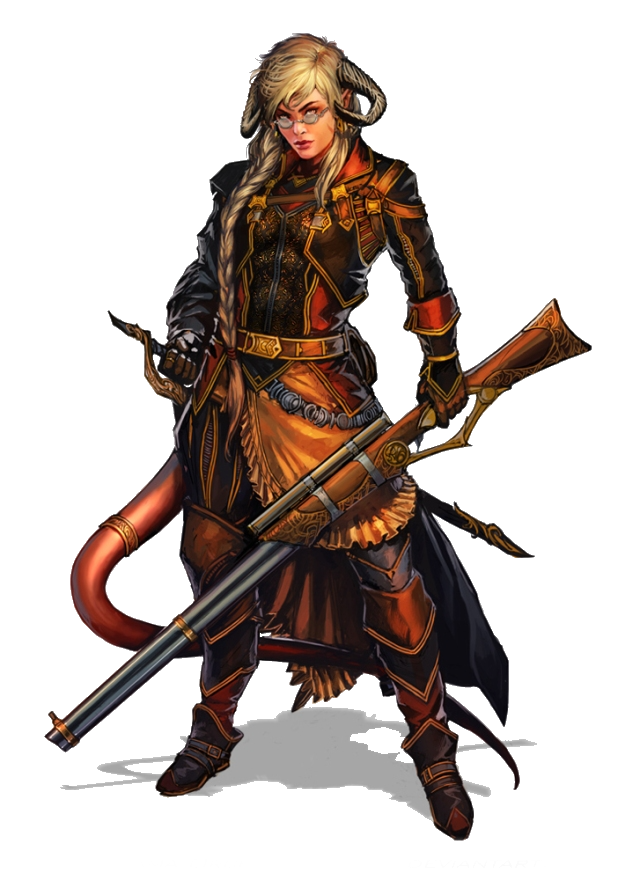
Magic
Pryxis is a world not only rife with technological advancement, but with magical ingenuity as well. Taking influences from their brother worlds of Abeir-Toril and Shandalar, the magi and scholars of Pryxis have learned to tap into the weave directly to study their findings, using their technologies to their advantage.
The Magi of Pryxis have studied magic for countless millennium since the reignition of magic since the collapse of the Weave. When magic first returned, it was a scramble for the sole purpose of harnessing enough wild power to combat the Draconic Imperium, which led to a magical "arms race" so-to-speak, with both sides attempting to reach greater heights than the other in lesser time.
This resulted in a cut-throat view on magical studies; with mages and scholars zealously guarding their newfound discoveries for fear that it could either be taken from them, or used by their enemies. Even the prospect of infusing magical items with spells and powers is a dangerous act, as it can call great attention to the individual - both positive and negative.
Nevertheless, magic is an essential aspect of Pryxis, and many magi all seek to study the potential through which their will can exert pressure and draw power from the weave.
Arcane, Divine and Psionic
The magi of Pryxis have discovered and studied three main forms of magical categories through which all forms of magic fall under in some capacity.
Some types of magic may branch between two forms, or even draw upon all three, but regardless of their type; studying these fundamental forms of magic allow a greater understanding of the will of the Weave.
Arcane
Arcane magic is manipulated by wielder, who has the abilities to do so through luck, skill or study. Where the ability to wield arcane magic comes from skill and/or study, there is no theoretical limit to what one may accomplish through the magical effects if there is sufficient magical energy that can be gathered through fomulaic or ritual casting.
Arcane magic is almost exclusively cast on an individual basis, though multiple casters can gather to enhance the effects of others through various arts.
-
Strengths. - Arcane magic has no real limits to what it can accomplish except what the wielder can imagine and form clearly in their mind, making arcane magic highly rewarding to those who plan things out in detail. The versatility of arcane magic is also highly desirable, as its effects may stretch into any field that the proper studies extend into.
-
Faults. - The only hard and fast limitation on arcane magic is the mind of the wielder and what they understand and what they know. The general inability of arcane magic to heal natural, living things comes from an inability to understand the nature of those living things. Similarly, the inability to teleport into unknown locales comes from a lack of knowledge with where they are going.
"What is magic?" That's a good question - one which I do not hold a solid answer to.
Take the concept of color, apply gravity to it, and then have it exert energy through intention. It is a Force operating on an Ephemeral Spectrum.
The closest understanding we have of it can be crudely broken down into three prime facets - all of which bleed into one another upon the palette of the weave.
-- Pryxis
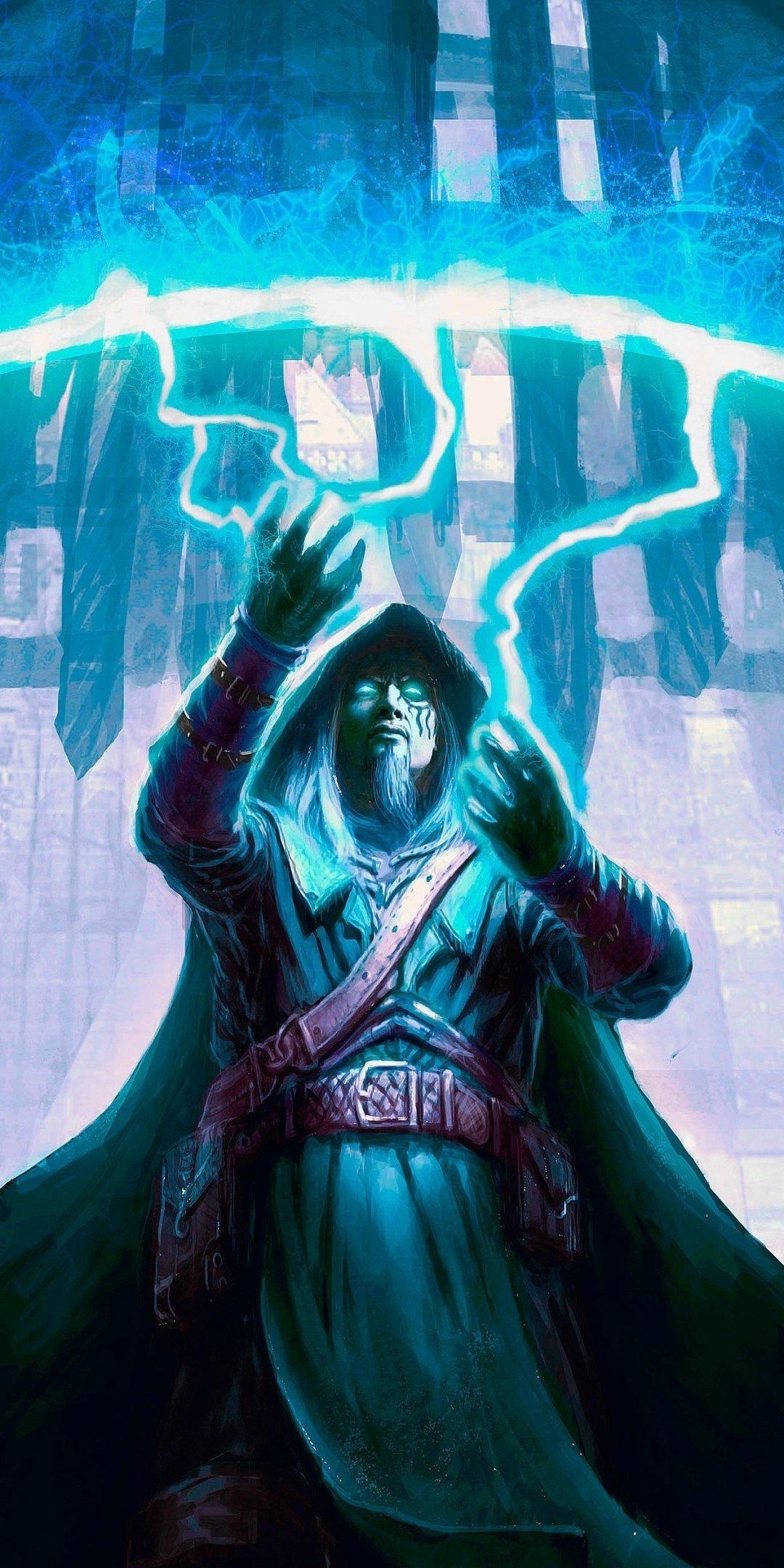

Divine
Divine magic is magic in which spells and powers are granted from powerful entities to less powerful ones. Despite the name, the source of the powers can be quite unholy, primal, natural, or the spells could theoretically be granted by a being who became very powerful through the use of arcane magic. The power is granted to the wielder, who then holds onto it until such a time as that power is released by the casting of a divine spell.
Some theorize that the casting of a divine spell is in fact only the final part of the spell's casting and that the act of casting the spell does not release the magical energies so much as it completes them. If this is the case, it would prove a striking difference between divine and arcane magic, as well as a concrete reason for the capabilities of divine magic which arcane magic has yet to duplicate.
-
Strengths. - Generally speaking, divine magic is capable of attaining effects far greater and stronger than those that can be achieved by most wielders of arcane magic, due to the greater power and understanding of the entity granting the spells. The effects of divine magic can duplicate those of arcane magic, depending on the source of the power.
-
Faults. - The wielder of the magic is unlikely to have control of what exactly they are granted and capable of doing - the one granting them the magic has an agenda of their own, and would not empower the wielder to move against it.
Psionics
Psionic energies are achieved through willpower and thought processes alone. Whether these abilities are born out of physiological capabilities or training and harnessing of the mind is a matter of some debate, but the effects are the same: thought alters reality.
Unlike arcane and divine magic, psionics do not rely on external power resevoirs which are shaped and molded to achieve the desired result, but instead psionics represent the channeling of internal strength and power.
If psionic capabilities are a result of physiology, this would mark an additional difference between psionics and arcane and divine magic, as well as hint at a facet of reality we had not previously considered.
-
Strengths. - The inner nature of psionic energies allows the art to be applied without having to draw on an external reservoir of power, either in the form of a cooperative entity or raw magical energies waiting to be shaped.
-
Faults. - The internal nature of psionics places a practical limit on the capabilities of the art, as there is a definitive limit on the power reservoir within oneself.
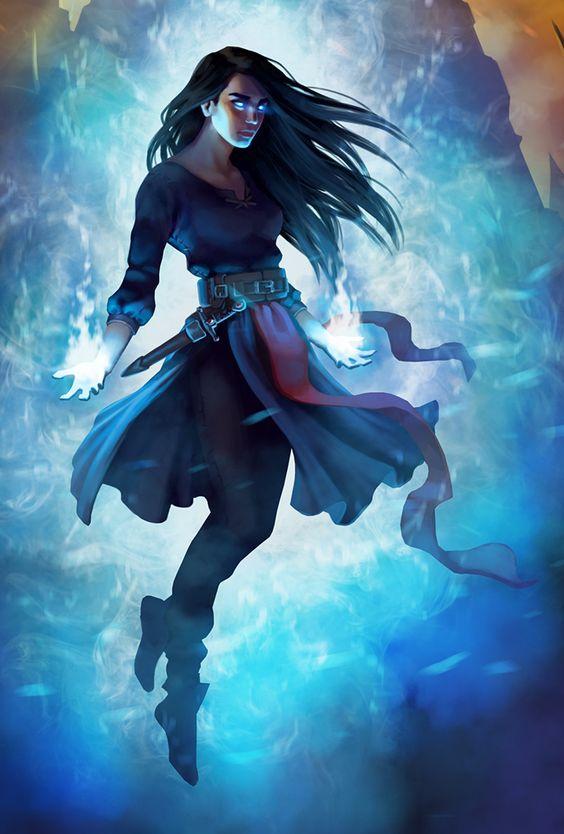

Magic Brokers - Not Shops
Even though the world of Pryxis is rife with magical prowess and study, the presence of magic items and objects is still a highly rare - and consequently highly coveted - aspect of society.
Magic shops do not exist in the traditional sense upon Pryxis, as the constant trade of magical goods takes place on a daily basis for those with the materials and energy to create them. Instead, what is more often found are Magic Item Brokers - information dealers that keep track of those who are willing to trade or sell a magic item they have in their possession.
The presence of Magic Brokers became a necessity when the need for magic items outweighed the supply. Many powerful magic items can never be truly "bought" as their sheer power is enough to drive many wealthy merchants to purchase them almost immediately - creating a monopoly.
Now instead, Magic Item Brokers reside in most civilized trade cities, and they keep records of dealings from past purchasers. Their main goal is to have a list of individuals or creatures that may have access to the magic item that is needed - and for a price, they will offer said information and lead the customer to the client.
Of course, minor magic item shops - known as Esotericists - exist in every corner of the globe, offering minor and uncommon magical items and objects (such as potions, scrolls, ammunition, or common magic items from Xanathar's Guide to Everything). But to get a truly powerful and rare magic item, one must either go through a broker, or visit a nearby magical museum and hope you can purchase the piece on display.
Using Magic Item Brokers
Using a Magic Item Broker solves a few key issues with having generalized magic item shops:
- It makes the purchase of magic items more difficult.
- Allows magic items to feel more powerful and weighty.
- It does not require a shopkeeper to hold over 100,000gp in store for magic items.
- Solves the issue with a magic item shopkeeper holding a wand that could disintegrate the local king.
A magic item broker is just that: an information dealer.
A Broker just knows who is selling or looking for something magical and getting their cut for connecting them.
When contacting a broker, the charge for their services is usually equal to the price of the item in question plus half of it's normal cost.
When the time is right, the buyers and sellers meet in a previously arranged location, with heavy security, layers of obscurement and muscle proportional to the price of the item. This is a service provided by the broker thanks to the fees paid. If requested, anonymity can be preserved for an additional fee.
This creates an atmosphere of intensity and businessship not normally seen in most magic item purchases, and if an individual knows a broker well enough, they may even give them discounts or the first word when a powerful magic item is available.
Do you know how hard it is to fairly sell a magic item? Incredibly difficult.
There's never been a solid set of what you could call "business ethics" pertaining to magic objects - especially destructive ones. You sell it to the wrong individual, and a whole neighborhood burns down, a mayor or king gets assassinated, or it sits in a chest in someone's basement for a century.
Trust me, it's better with the brokers.
-- Pryxis
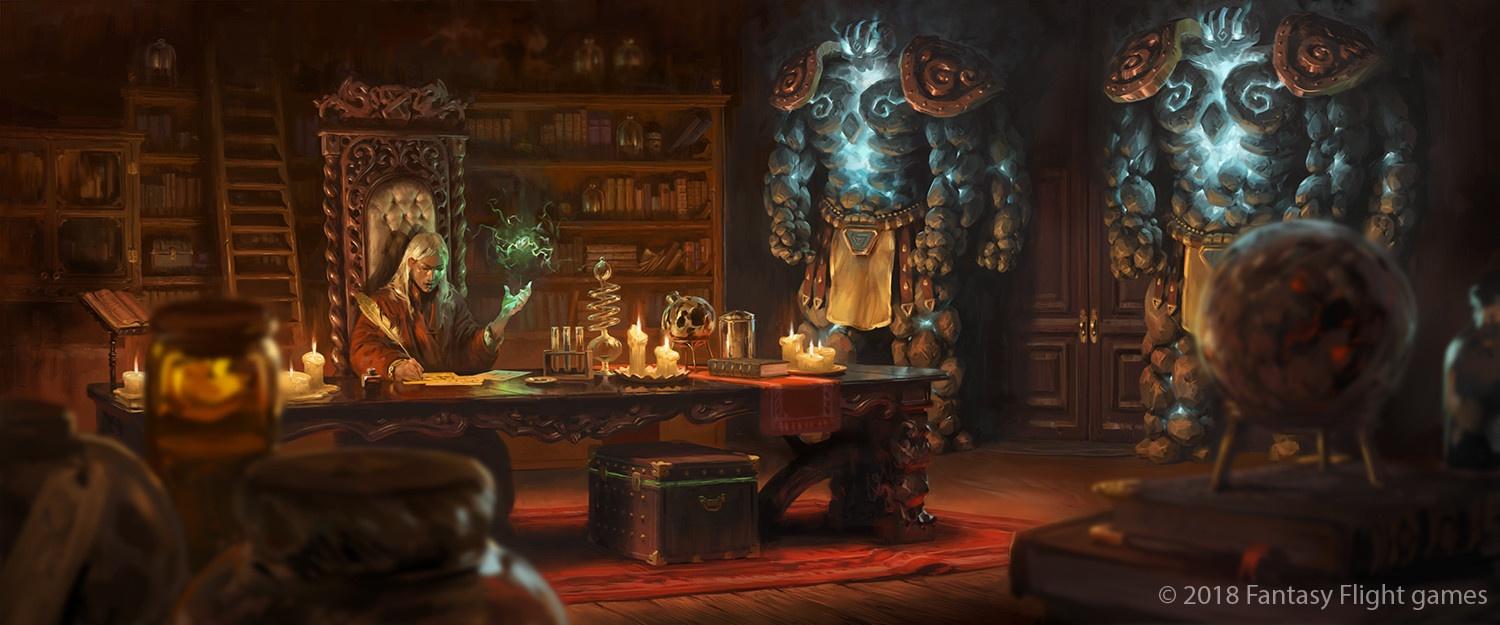

Esotericist Shops
The main source for magical materials and arcane objects, Esotericists are minor magic shops centered around the free trade of loose components and easily circulated or created magic items.
While most magic items can only be acquired by being purchased from brokers, granted to an investor by a museum, bestowed by a previous owner, or found via theft or legitimate salvage, Esotericists supply the main bulk of magical paraphernalia.
These shops are generally well known locations: multistory or sprawling complexes similar to a bazaar or mall rather than a simple shop, housing a massive collection of esoteric and eldritch contents.
Generally, at least one Magic Item Broker resides in an Esotericist shop at any time, and most staff members that work in these shops are magic users or crafters in their own regard - and will not hesitate to help those who need it, or hinder those who heckle them.
Mystic Stock
Many artificers, alchemists, scribes, miners, hunters and enchanters alike are all well known to supply their basic items, spoils of the hunt and lesser creations to Esotericists to supply fellow spellcasters and creators.
Esotericists are in stock with the following trade items:
- Magic Materials: Spellcasting reagents with a cost of 0 gp are in incredibly heavy supply. Materials that are used for spells up to 5th level tend to be easily accessible. Spell materials that are used for 6th to 9th level spells tend to be rare and regulated in their trade. Certain magic materials may be incredibly difficult to acquire. Reagents for high level magic is utterly impossible to find at an Esotericist - and better found in a museum.
- Potions, Philters and Poisons: Most forms of restoration potions (such as healing, mana or stamina potions), unique potions and their ingredients, and even poisons are easy finds - or can be requested via prescription or need.
- Scrolls and Tomes: A miniature library is usually available, consisting of journals from experimenters, old tomes from retired adventurers, potion and crafting recipes and a regular flow of various spell scrolls. Blank paper, vellum, scrolls and tomes are also available for purchase.
- Spellcasting Focuses: Generalized arcane focuses, bardic instruments, druidic focuses, and holy symbols - including component pouches.
- Talismans, Trinkets and Regalia: Minor magical objects or nonmagical trinkets are aplenty within Esotericist shops. Various bits of jewelry, ornaments, and adornments are sold regularly - including hats, jackets and robes.
- Uncommon Magic Items: Low level magic objects (especially those in Xanathar's Guide to Everything), magic ammunition and spell-infused items such as wands and staffs can be found for purchase, albeit for a very short time.


High Magic
When the weave reignited before the beginning of the Dragon War, to the surprise of many magic users, the inhabitants of Pryxis were unaffected by Mystra's High Magic Ban. This meant that those with enough power and study could still enact the greatest forms of dweomercraft upon the world of Pryxis.
High magic has been utilized by the most powerful of heroes and the most treacherous villains across the lands of Pryxis - as High Magic does not discriminate against who may utilize it's awesome, god-like power.
What is High Magic?
High Magic (otherwise known as True Dweomer or Epic Magic) is the title given to spells and magical effects that reach past even the levels of the renowned Wish spell. Spells of High Magic take up spell slots from 10th to 12th level. With 10th level spells able to shake the foundations of countries and kingdoms, 11th level spells able to obliterate or displace entire landmasses or people, and 12th level spells able to rock the core of the weave itself in wholly unnatural ways.
Who gets High Magic?
High Magic is only accessible to true spellcasters - meaning anyone who can naturally cast up to 9th level spells has the capability of casting high magic if they become powerful enough.
The means by which one manages to reach such heights of magic power are varied and rare. Many spellcasters who study higher magic take years and decades to decipher and experiment with wards, formulas, and incantations strong enough to learn even a simple 10th level spell - let alone higher spells.
Unfortunately (or fortunately), many spellcasters either retire, give up on studying, or die before they manage to learn even a single High Magic spell, and sometimes it would seem that it just cannot be learned by certain individuals.
Uses of High Magic
Casting High Magic comes at a great cost, mostly to the caster, but also to the surroundings. Many High Magic spells shatter and break apart bits of the Weave itself, as the sheer force of stress from harnessing that much energy threatens to send a ripple through the fabric of reality.
This being said, casting High Magic can come with metaphysical consequences as well as physical ones. Many entities (including the Goddess Mystra) scorn those who use High Magic without consequence, and at times will take steps to ensure they never do again.
Fortunately, the World of Pryxis is one of the only planets still able to utilize High Magic, and while many entities watch with bated breath to see what a creature with High Magic will do, they will generally only step in if the consequences far outreach what the spell was intended to do in the first place.
Spells and High Magic
For more information about High Magic - as well as new spells - consult Pryxis's Pages of Pure Magic for more details.
Ah yes, High Magic: the pulse of the weave. Being able to wield it is akin to flowing a raging river by hand, feeling the planet's heartbeat at your finger tips, swallowing the purest light of the stars, and grabbing a god by the throat.
Do not mistake me, High Magic is a terrible force. You could catch a hurricane in a net easier than learning the barest of True Dweomer.
-- Pryxis
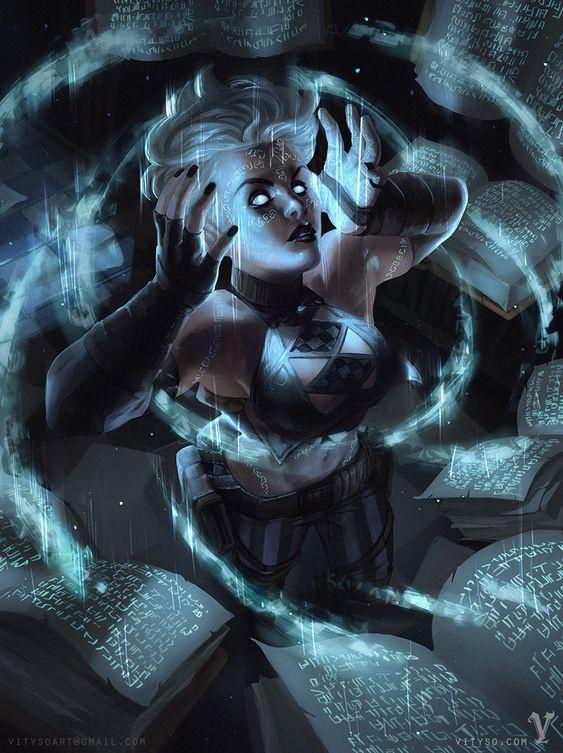

The Guild of Three
The Guild of Three is the institution upon Pryxis that fundamentally runs almost every socio-economic facet of life across the globe. Even though they do not necessarily function as a governing body or royal line, every existing government and kingdom on Pryxis goes through some form of official channel with a branch of the Guild of Three to maintain power.
The Guild of Three was first established soon after the end of the Dragon War - seeing as how the masses of Pryxis were desperate for a centralized system of power distribution between kingdoms, governments and creeds, the Guild of Three was created as an official focal point for which all officiated business is conducted.
The Guild consists of three main branches - each of which deals with a specific function of society and upholds individual laws that those who work through them must adhere to in order to maintain their official positions. The Guild remains ever-neutral in regards to interfering with political agendas.
Every part of the Guild of Three can function as the Guild group patron from Tasha's Cauldron of Everything
The minutiae of the laws upheld by each branch of the Guild of Three are vast, but their basic laws are listed.
Hypocritical Institution
The Guild of Three still maintains power through the use of contracts, edicts, and the policing of the laws and interactions of other ruling parties.
This - technically - leaves them in a position of power with no oversight, instead relying upon a system of checks and balances between the three branches, as well as from within each individual branch (usually in the form of the governing head of that particular branch).
The Guild fundamentally represents a corporate governance consisting of three individual, globe-spanning unions that other ruling parties (at least those operating within the law) build their systems of governance upon. The group maintains the balance between each country, kingdom, government and corporation - all while residing outside the laws of those they police.
Mixed Views
Many who operate within the guidelines set by each branch of the Guild of Three find their systems of checks and balances to be as beneficial as they are detrimental - and with varying degrees of those views per each individual.
On the Positive end: the Guild of Three ensures no particular group of governing people hold absolute control over the innerworkings or socio-economic facets of the world of Pryxis, which allows kingdoms and governments to peacefully and safely operate with one another - even while within a state of strife or turmoil.
On the Negative end: because of the overarching rules, regulations and edicts passed by the Guild of Three - which many refer to as "scaffold law" - many ruling classes and governments find little leeway in traversing interactions between obvious social, economic and political issues.
Ultimately, the Guild of Three oversees all lawful interactions between the living people of the World of Pryxis.
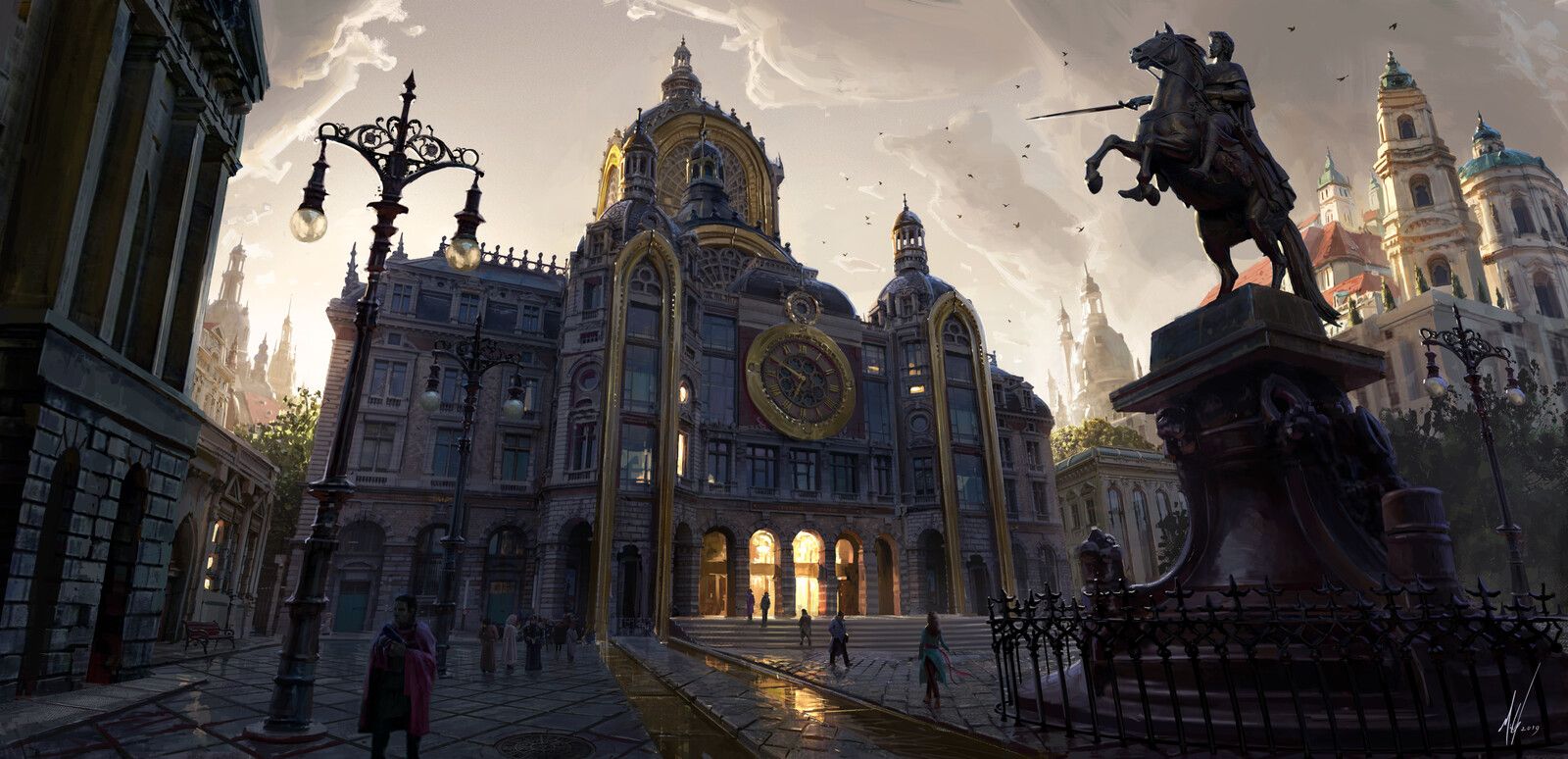

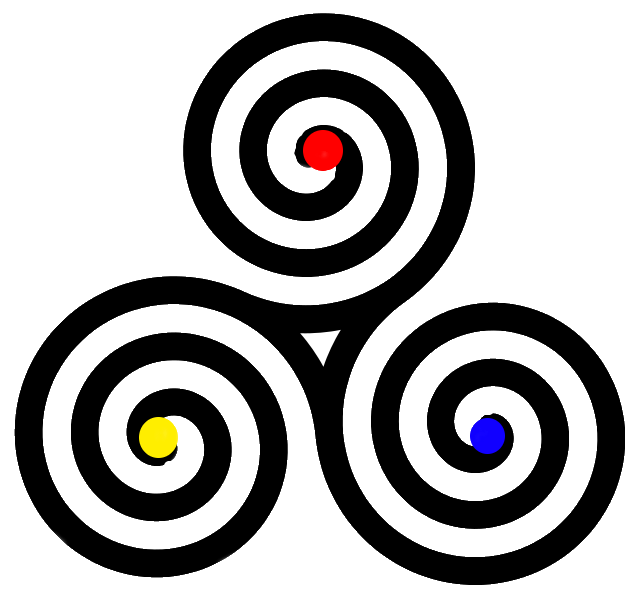
The Body of Magi? They record and protect all magical and intellectual properties and discoveries for the past several centuries, and remain a guard against magical calamities - and lead the masses in spell education.
They're in and out; problem solved. Usually the problem doesn't even take place if they're good enough. And if they're really good? I never hear about it.
-- Pryxis
Body of Magi
The Body of Magi represents the Magocracy - or mage-led governance and institution - of Pryxis.
This branch of the Guild of Three consists of mages, wizards, sorcerers, and other spellcasters who maintain a constant observation of all magic users across the world.
This group oversees all new magic studies, the building of magical academies and libraries, creation of magical objects or structures, and the maintaining of the structural integrity of the Weave and flow of magic.
When a magical calamity takes place, The Body of Magi is immediately notified and takes steps to ensure the damage is contained. The bigger the disaster, the bigger the response.
The Body of Magi functions as an Academy group patron from Tasha's Cauldron of Everything.
Circle of the Minds
The Body of Magi is governed by a council of head mages of varying creeds, beliefs, and races - each a representative of a different aspect of life upon the world of Pryxis. Each head mage is a massively powerful spellcaster unto themselves.
These Head Mages maintain a continuous telepathic link with one another, no matter where they are in the world. And can be teleported to the main council of the minds chamber on a moment's notice to oversee the state of the world's weave.
Laws of the Minds
The Body of Magi upholds the following laws across Pryxis:
- Magic must be maintained and protected at all costs.
- Those who abuse magic must be punished rightfully.
- The protection of knowledge is essential to society.
Body of Magi: Knowing & Teaching
While the Circle of the Minds maintains a finger upon the pulse of the Weave, the less lofty responsibilities of the rest of the Body of Magi include the following:
- The establishment & maintaining of academies, schools, and universities - including their staff and curriculum.
- Regulating the bounds on research projects and experiments conducted by known entities.
- Insuring the proper care and staffing of libraries, museums, and repositories of knowledge.
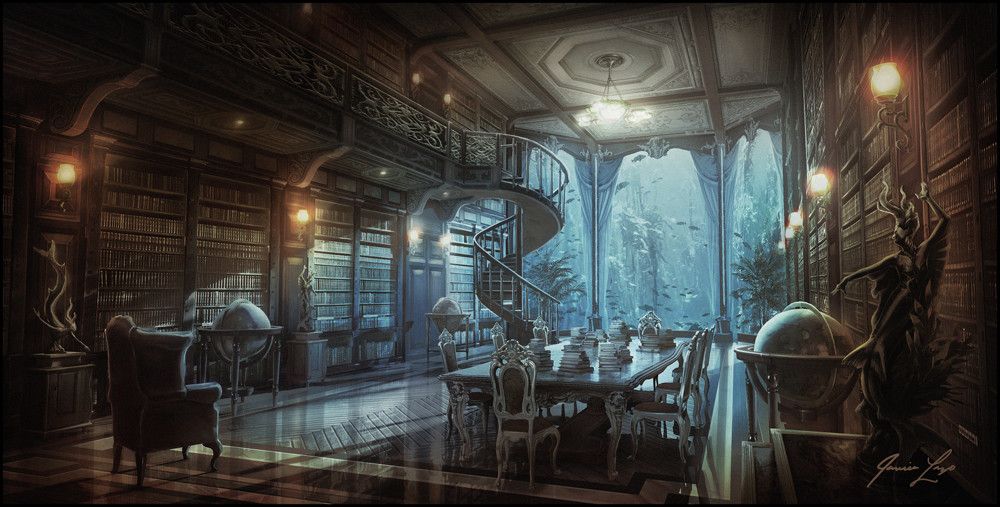

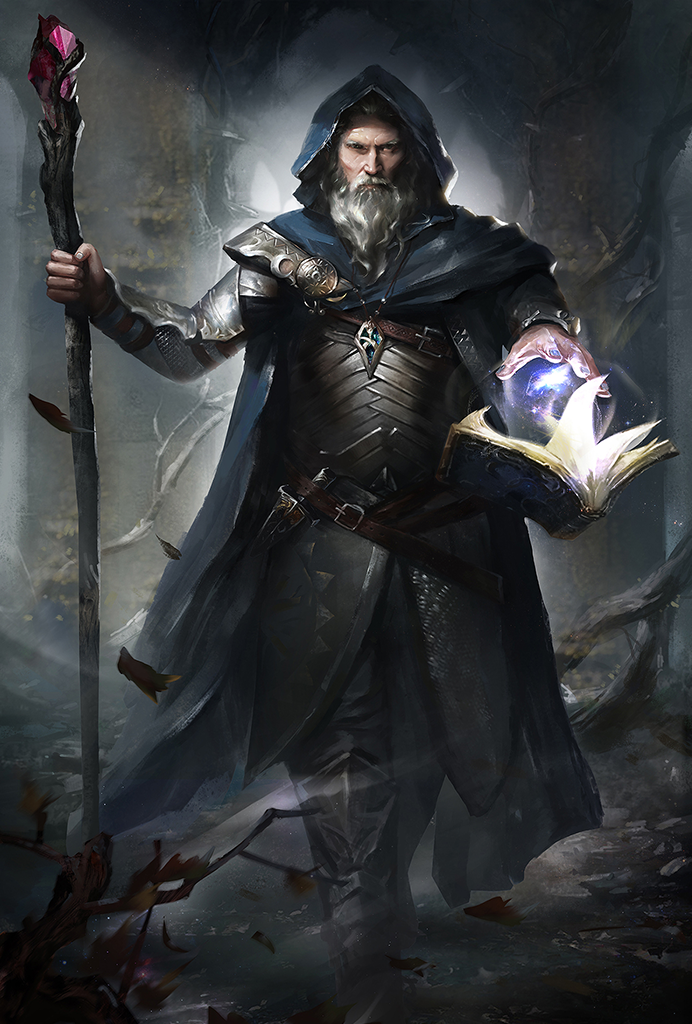


Merchant's Guild
The Merchant's Guild represents the main system of Banking and Trade on the world of Pryxis.
This branch of the Guild of Three consists of a wide variety of effective, shrewd, and business-minded individuals who keep continuous records of each official transaction made by main governing bodies across the world.
The Merchant's guild is responsible for funding countries, maintaining massive corporations, balancing the taxation limitations of official groups, and ensuring trade routes are protected.
When a loan is needed, a tax levied, or a kingdom funded, the Merchant's guild oversees the transactions. When a trader is officiated, they have a license that verifies their legal trading. And when a group violates the sanctity of trade and banking, the Merchant's Guild ensures they pay - one way ... or another.
The Merchant's Guild functions as an Aristocrat group patron from Tasha's Cauldron of Everything.
The Gilded Council
The Merchant's Guild is headed by a select few superiors - which oversee the grand scope and function of the guild itself. These council members normally have a wide variety of contacts throughout the world, ranging from underground connections, to a spy network amongst royalty groups.
These Gilded Superiors carry with them specialized magical gauntlets that have been rumored to transmute materials into pure gold upon a simple touch - an ability they use on those who violate their laws to pay for their crimes, either in blood or gold.
Laws of the Gilded
The Merchant's Guild upholds the following laws across Pryxis:
- The Coin must flow and never cease.
- Trade must be conducted unto the laws of their lands.
- Uphold the Sanctity of all agreements and contracts.
Merchant's Guild: Earning & Saving
The Gilded Council typically oversees mass trade regulations between large groups - but as for the more banal of the Merchant's Guild, their jobs include the following:
- The Acquisition, Discovery, and Maintaining of material goods and resources.
- Proper licensing and certification of mercantile operations, zoning regulations, and agricultural practices.
- Mediating trade, insurance, and banking with emerging or existing entities.
Shrewd, Avaricious, and Busy-Bodied; just the way any well-regulated banking clan or corporation should be. They keep the books running, which keeps the coin flowing, which keeps people's livelihoods going.
Without the Merchant's Guild, I can say with all certainty that we as a world would not be where we are today: amongst the stars.
Plus, I can't really be bothered with the nitty gritty trade business, I have more to do than balance books.
-- Pryxis


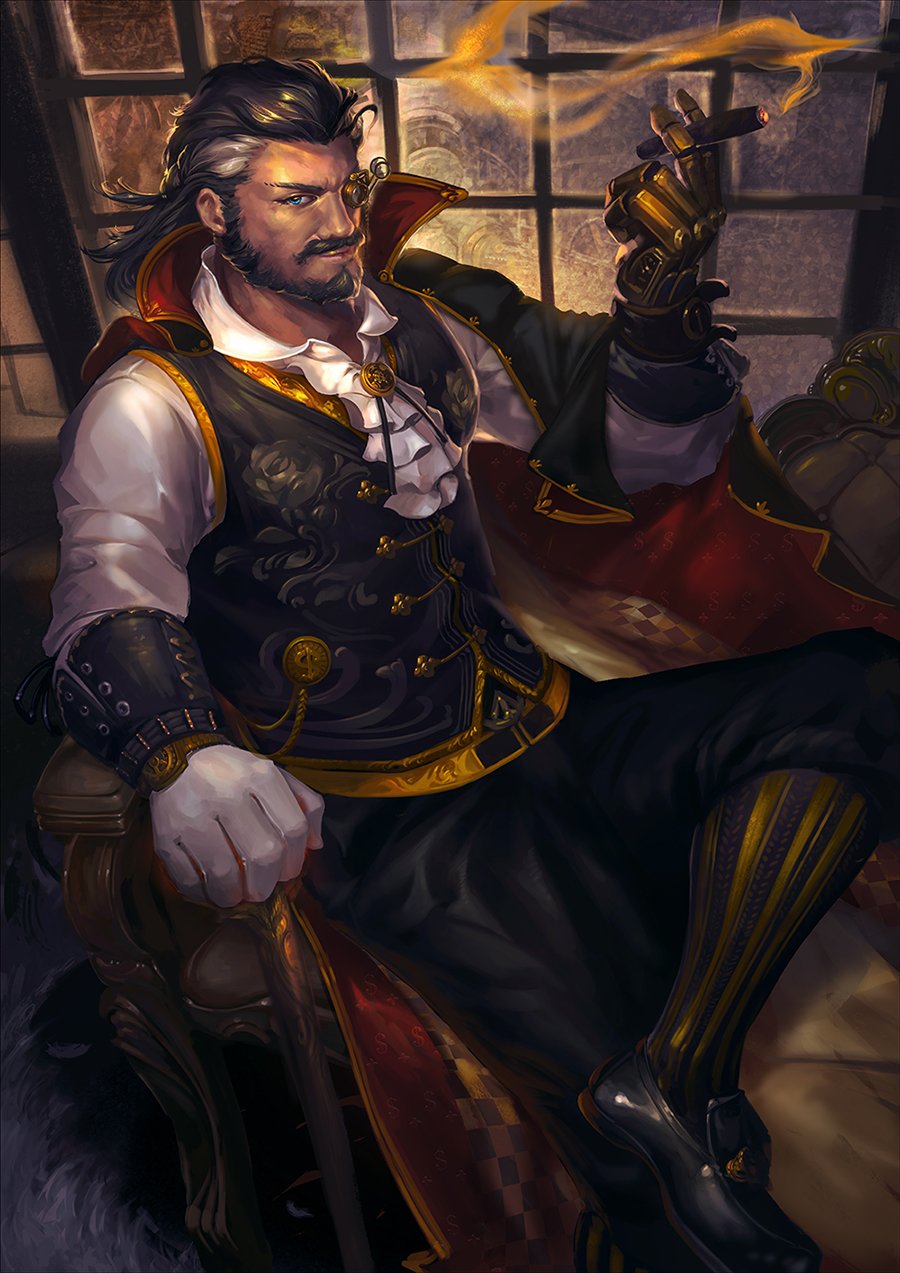


Look to any kingdom, government, tribe or group of peoples that has existed for more than a century, you will find that they have survived due to the protection lent by those who would put their lives at stake.
Yet, general self-sacrifice is not all that is necessary; you need practice, education and tactics. The Warrior's Cabal offers all these things.
-- Pryxis
Warrior's Cabal
The Warrior's Cabal represents the mobilization, military training, and world council overseeing warfare upon Pryxis.
This branch of the Guild of Three consists of battle-hardened and military-minded veteran warriors from across the globe who oversee the base laws of warfare that must be upheld during times of strife and combat.
The Warrior's Cabal oversees that all forms of warfare and combat across the globe are conducted in a manner meant to ensure the livelihoods and continuous protection of the innocent - including the operation of gladiatorial and recreational sports.
If a war is conducted in a way where it endangers the lives of those considered neutral to the conflict, or the warfare causes excessive civilian casualties, the Warrior's Cabal steps in with their militia to intervene.
The Warrior's Cabal functions as a Military Force group patron from Tasha's Cauldron of Everything.
Assembly of Champions
The Warrior's Cabal is led by an indeterminate number of veteran warriors - each of which has served in at least one wartime scenario - and are the ones responsible for ensuring the laws of warfare are followed without fault.
The Assembly also has power to mobilize a personal militia of select warriors to enact policing on an emergency basis, but these occurrences are rather rare.
Laws of the Champions
The Warrior's Cabal upholds the following laws across Pryxis:
- War is both a sacred right and an inevitability.
- The weak must not be subjected to excessive harm.
- Warriors must be trained in the rites of combat.
Warrior's Cabal: Guarding & Training
In the most dire scenarios, the Assembly of Champions maintains the treatises during wartime - yet, the Warrior's Cabal is responsible for the following civilian practices:
- Training, Censure and Deployment of militia, guards, and security forces.
- The establishment and regulation of sporting practices.
- Testing & Approval of defensive and offensive armaments.


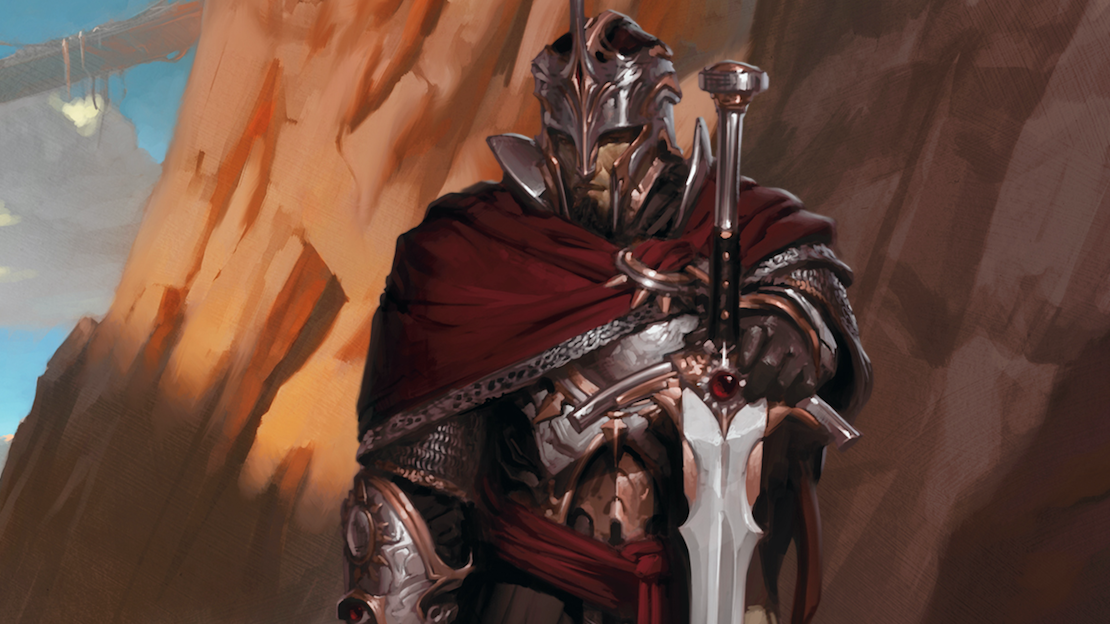


PART 2
The History
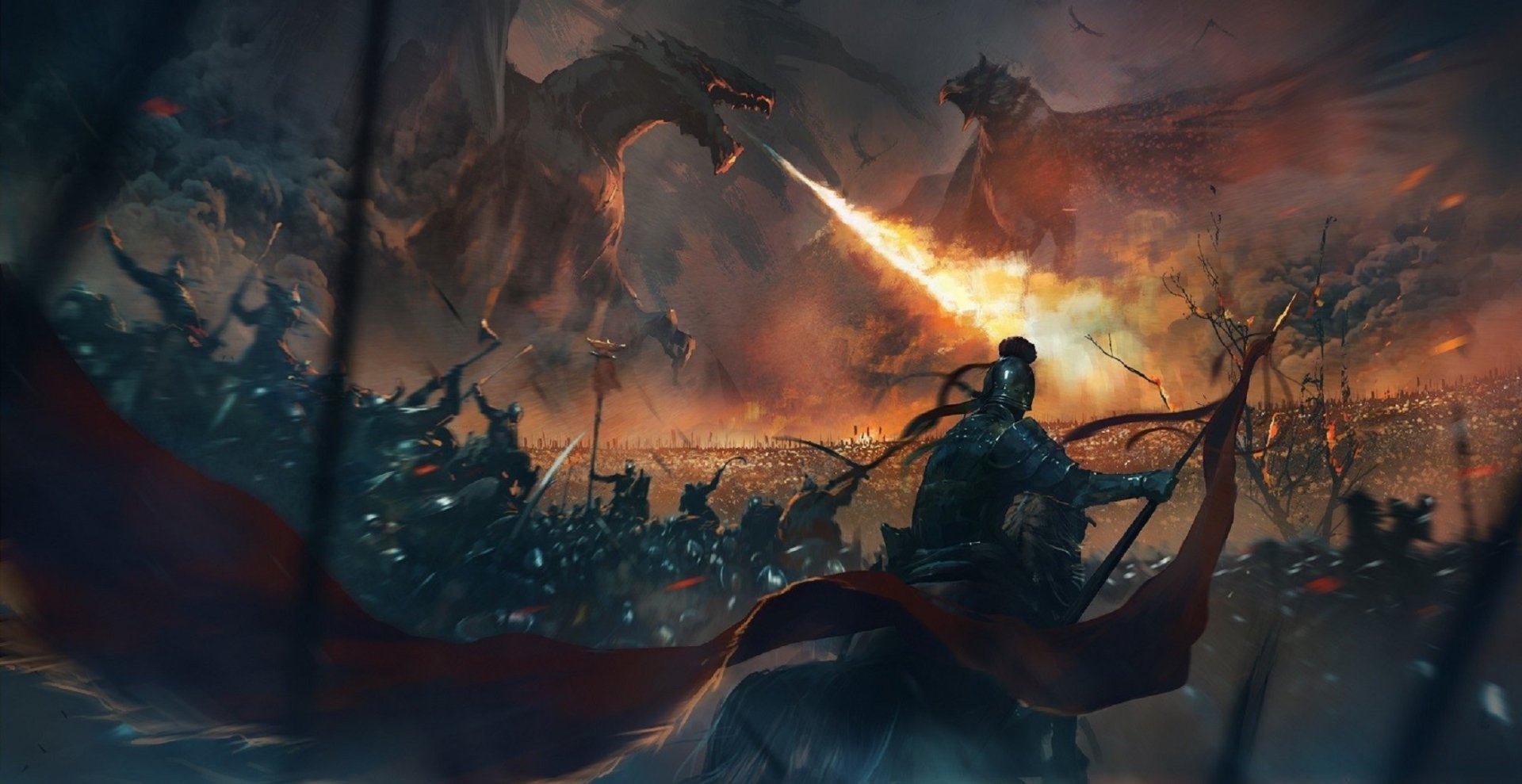
The Dragon War
The bloodiest and most savage display of warfare in the history of Pryxis was the time of strife known as the Dragon War. During this time, mortalkind threw off the shackles of the Draconic Imperium in the name of freedom.
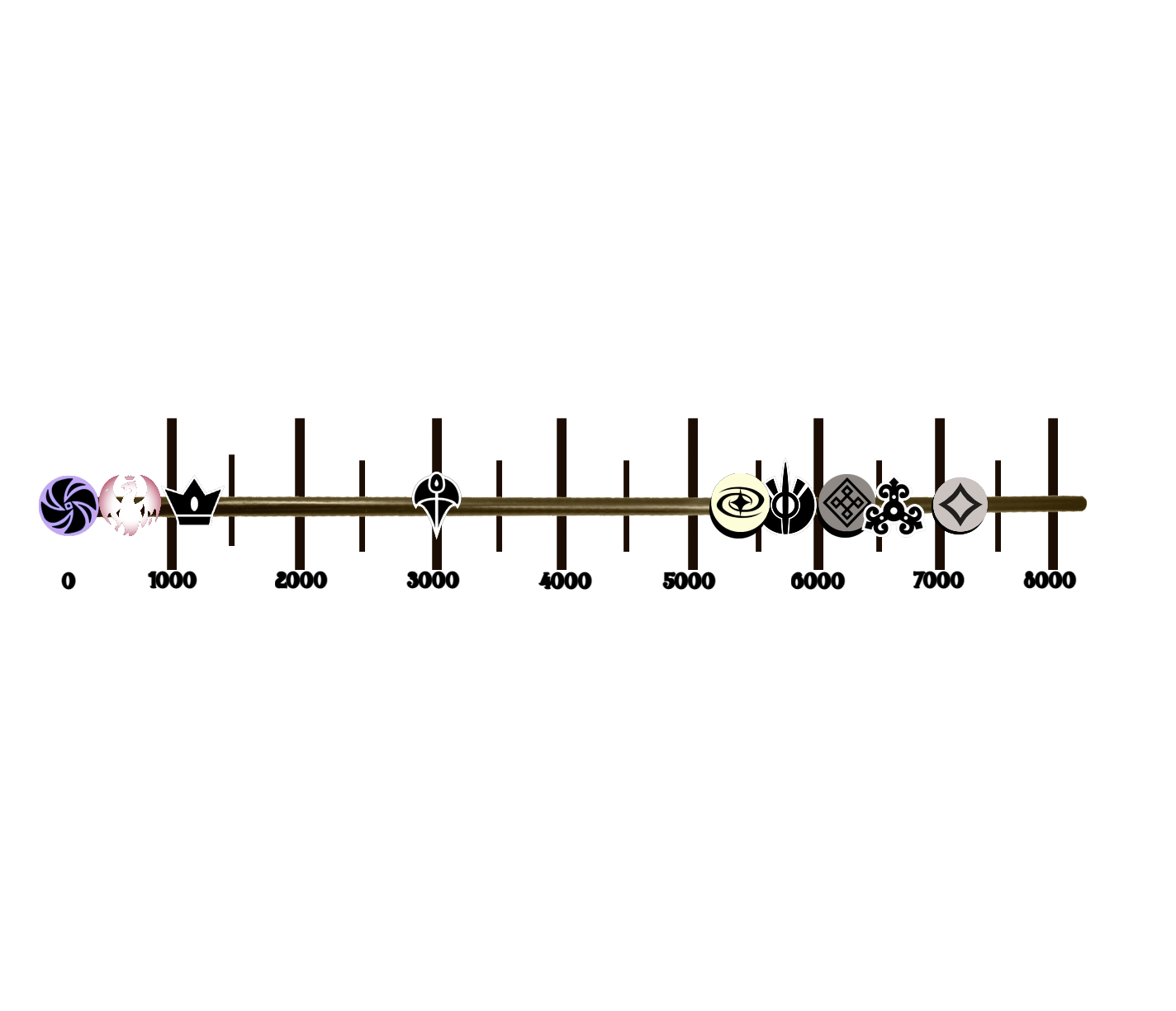
The History
Timeline
The world of Pryxis has been through a myriad of troubles and historical events, with each continent, country, kingdom, creed, and people experiencing their own revolutions, events, and notable keypoints throughout time.
This being said, the following timeline presents the most notable key events that have affected the planet as a whole throughout time. These events have shaped the fundamental basis for the livelihood and historical understanding of the inhabitants of Pryxis.
Those with a moderate degree of education would know about the events taking place back to the end of the Dragon War - while those with a keen interest and scholarly pursuit of history would delve as far back as to the beginning of the spellplague and assertion of the Draconic Imperium.
The following entries provide a basic timestamp of the year in which each notable event started.
Ancient History
- Circa: Pre-Spellplague
The historical documentation and listing of events before the Spellplague have been lost to time - on account of the Draconic Imperium razing the libraries, academies, and other forms of documentation kept by mortalkind during their reign.
It is speculated that during these pre-historical times, many races had already settled upon Pryxis thousands of years before the spellplague, and if any records are kept by the mortal races from that time period, they are limited and potentially lost to the decay of time.
The only known fact from before the Spellplague is that Pryxis the Archamgus Eternal was born only a few hundred years before the Spellplague, and even he has been especially forthright about his lack of memory of that time period.
1st Age - Age of Dragons (AD)
The Age of Dragons (AD) represents the era in which Dragons dominated the world of Pryxis and it's inhabitants.

The Spellplague
- Circa: 0 AD
The spellplague was an anomaly in which the weave of magic collapsed upon the world of Pryxis. This collapse was caused by the death of Mystra - the goddess of Magic - upon Abeir-Toril (and consequently, other realms within the multiverse). Even though Abeir-Toril only was affected by the spellplague for about a decade, the ramifications of her death had much more lasting consequences for the world of Pryxis.
During the collapse, the world of Pryxis experienced a sudden shift in it's metaphysical temporal cycle - meaning the world was displaced in space-time due to the sudden shattering of magic. This could explain the concept known as "Temporal Flux" within Pryxian Space: as the magic that tethered it to reality suddenly became severed.
Because of the sudden temporal shift, when magic was finally reignited upon Abeir-Toril and other planes, the World of Pryxis was out of contact (both physically and metaphysically) from the triggering event. This resulted in an age of over 5000 years in which magic ceased to exist and contact with other planes beyond the material was rendered impossible - wreaking havoc upon the inhabitants of Pryxis.
During this time, only Pryxis the Archmagus Eternal himself was able to maintain an artificial connection to the Weave, which granted him the only magical powers on the planet (and the system) at the time.
Unfortunately, Pryxis the Archmagus was not the only entity to retain magical capabilities - which led to the coming Age of Dragons.
What about before the Spellplague? Why? It's not that important.
Some people lived, some died, some laughed, some cried, some learned, and some remained ignorant.
It was similar to the times we have now - except there wasn't any technology. It's not worth revisiting.
-- Pryxis
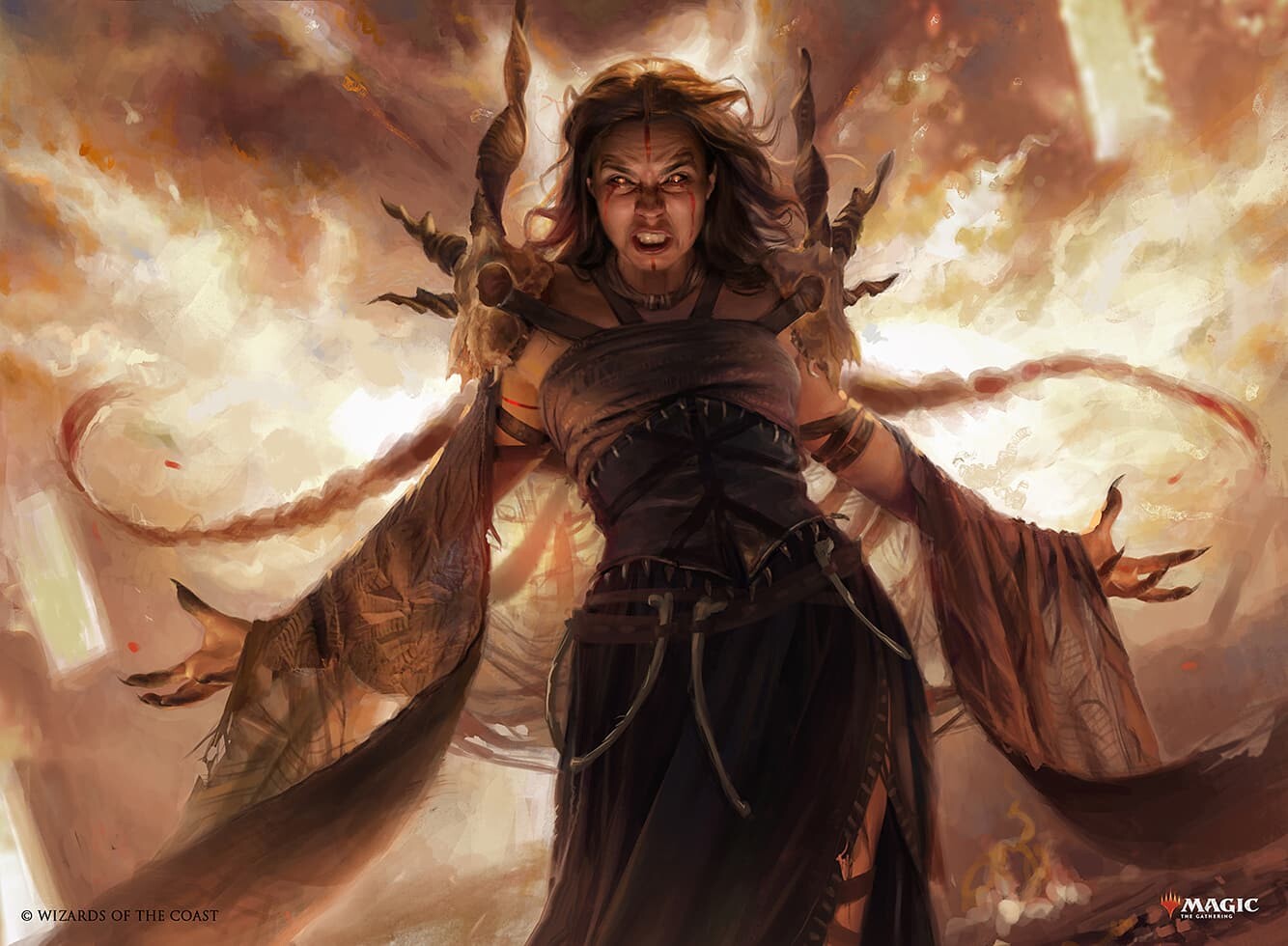


Draconic Imperium
- Circa: 140 AD
When magic collapsed, the only entities that maintained some semblance of natural magic were Pryxis the Archmage, and the Draconic Greatwyrms.
Tiamat maintained a connection with the dragons upon Pryxis - using her divine powers and Dragonsight, she instructed her most trusted Greatwyrms to conquer, enslave, and subjugate the masses of the world of Pryxis.
Thus began the darkest times ever known in the history of Pryxis: The Reign of the Draconic Imperium.
The Draconic Imperium targeted and destroyed all forms of technology and knowledge available to the people of the planet - and corralled them into slavery. The Greatwyrm Dragons under Tiamat's command were treated as godlike entities; with sacrifices, subjugations, blood sport, and all manner of degeneracy available at the tip of their claws - and all in the name and worship of their dragon queen: Tiamat.
During this time, many kingdoms and countries fell or were subdued by the awesome power of the Greatwyrms. The Greatwyrms held natural magics within them - as all dragons are connected innately to the material plane - and were able to communicate with one another through their network of Dragonsight across the planet.
All open rebellions were put down, all resistance smothered and burnt under the iron fist of the Draconic Imperium - and for thousands of years, the people of Pryxis reluctantly answered to their Dragon Overlords.
Pryxis the Archmagus Eternal fled underground to preserve any manner of mortal resistance he could, and during this time, he slowly built a rebellion, a city, and hope from dust through the tender embrace of his magic - swearing to all that one day the magic would return, and that they would be free.

Rise of the Mad Kings
- Circa: 1000 AD
After several centuries of slow-yet-continuous subjugation, degrading spirit, and the consequential death of most peoples and beliefs that held some semblance of rebellion towards their Draconic Lords - Tiamat finally presented a choice to the rebellious masses that still lingered.
The Choice was for those in power to give up all rebellion and power to their Overlords, and in return, they would be granted magic power for their fealty.
For the longest time, the masses resisted against the urge to have magic within them once more, but finally, several royal lines and dynasties stepped forth to offer their undying faith to the Greatwyrms.
These royalties would receive the gift of Dragon's Blood - allowing natural magic to flow in their veins and through their lineages from now until the end of time, their leaders becoming Draconic Sorcerers acting on behalf of the Draconic Imperium, with half dragons at their disposal. The first of the Mad Kings - Herkhut Denanc - belonged to a pharaonic dynasty of royalty from the desert lands of Egyix, and who's family originated from the Realm of Athas. Herkut gladly swore fealty for powers beyond his family's dreams.
This began the Rise of the Mad Kings - Tyrants almost worse than the dragons themselves. Their inborn bloodlust and greed from their mortal race strengthened by the magic of the Dragons created monsters of mankind. They subjugated the masses on behalf of the dragons, quelling rebellions from the inside, and laying siege to their own people for the powers they received.
They chose to submit to the more prevalent powers at the time. I could not stop them - not for a lack of trying.
You cannot limit the free will of others, not for a prolonged period of time, and especially not in the face of total destruction.
I suppose in a way, I understand. They had no choice. But that does not mean I support their decision - especially Herkut.
-- Pryxis
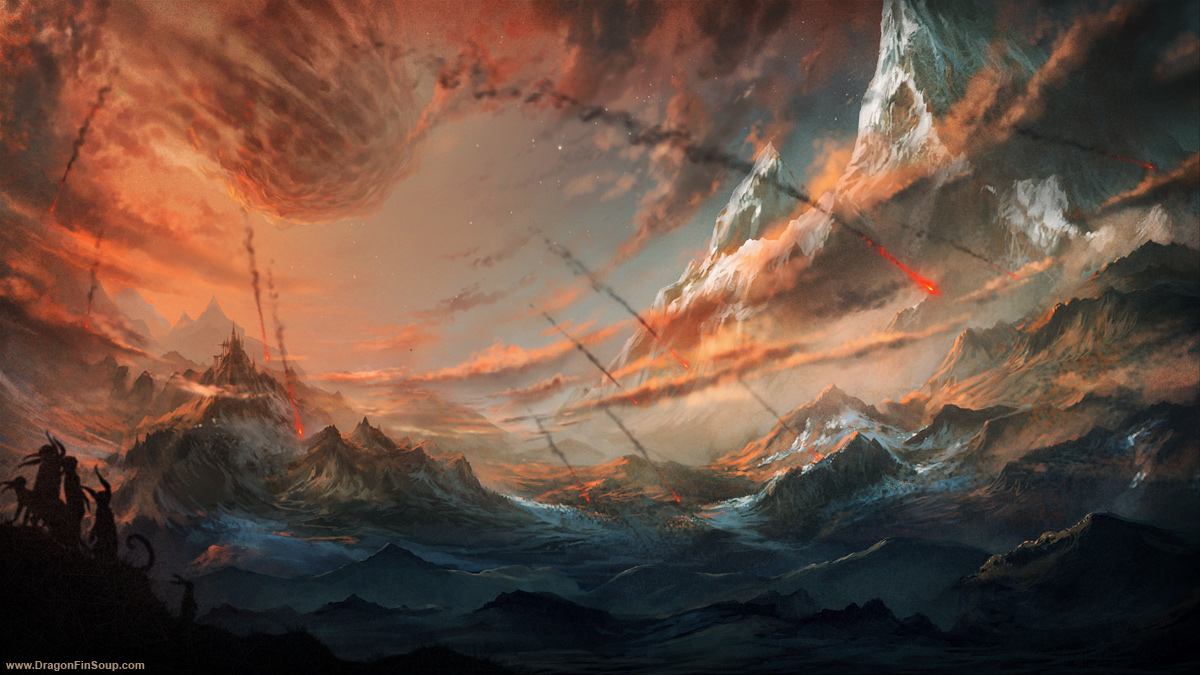

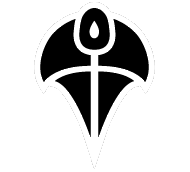
Meteorfall
- Circa: 3000 AD
The event known as Meteorfall was a time where the first Mad King: Herkut Denac became ultimately too powerful for even the Draconic Imperium to handle.
Led to true madness by an eldritch entity, this Mad King slew his Draconic Overlord and devoured it's blood and soul. Infused with the energy inherent in the Greatwyrm, Herkut grew an insatiable hunger for power and souls, and began feeding upon the countryside he once called his kingdom.
Feasting upon the blood, bile, and souls of his two-fold kin, he began conducting rituals to pull his lordly eldritch entity from beyond the Far Realm. The horror that he communed with could not manifest directly - but did possess and mutate the Mad King beyond all recognition into something beyond even that of a god-like entity.
Herkut Denac became too powerful for only the Draconic Imperium to fight, as the King now held energies and capabilities surpassing their own - granted artifacts that could slay his kin with ease, and became a threat not only to the Dragons, but their livelihoods as well. Out of desperation, the Greatwyrms sent out a telepathic plea for Pryxis the Archmagus Eternal to heed their calls - on the grounds that he lend them his aid in exchange for a single and equal bargain.
Pryxis heeded their calls, and for the first and only time, the two sides plotted to end this Rampant God-King. The Archmage called out the Mad King and challenged him to a duel of fate.
The two god-like entities battled across the planet, Pryxis holding the Dragonsight of the Greatwyrms within his mind as he fought tooth and nail against Herkut. And when the God-King began to falter, his form falling weak, in a last-ditch effort, he released a ritual he had begun decades in the making: He pulled a Meteor out of it's gravitational path to destroy the planet.
The God-King was defeated, but the Meteor still lingered, growing ever closer to impacting the planet. Pryxis realized he could not stop it on his own, and used the Dragonsight granted to him to call upon the mortalkind of the world - begging them to channel their faith into him for but one brief moment.
In this pivotal moment - right as the Meteor began to break the atmosphere - Pryxis mantled a form of Godhood through the combined efforts of all creatures on the planet and transmuted the Meteor directly into ice, water, and silt. This meteor destroyed half a continent, and flooded the world with a great Deluge (which also happened to flood the main kingdoms of the Greatwyrms and Madkings, a calculated, yet last-ditch effort to weaken the Draconic Imperium).
In response to the destruction, the Greatwyrms reduced the favor of their bargain - stating that the destruction of their kingdoms was not a part of their deal. Pryxis reluctantly agreed, and instead asked for a cut of land to develop a city under his own care. The Dragons gave him his land, and to this day, the Megalopolis of Pryxis still stands, as a beacon of mortal power.
The Impact site still is scarred upon the world, and every now and then, rumors of shadowy visages and whispers from the depths come from the area around the crater.
Do not EVER come to me to discuss the moral ethics of "Choice". I know the weight of choice all too well and its absolute absence.
And that's just it: I had no choice. It was Ruthless Calculus. On one hand: the death of a planet. On the other hand: the death of several million souls.
What "Choice" would you have taken?
-- Pryxis


2nd Age - Age of Rebellion (AR)
The Age of Rebellion (AR) represents the era in which the mortal masses of Pryxis threw off the shackles of Draconic Tyranny.

The Reawakening
- Circa: 5448 AD / 0 AR
Pryxis the Archmagus Eternal tirelessly devoted his time to developing not only his city-state and its survival, but also a means to bridge the metaphysical barrier of the Planet - trying desperately to bring magic back.
One night, upon the completion of a ritual using his own blood and the remains of the Eldritch God-King, he established a connection to the outer planes, and heard the communion of the gods waiting on the other end from the outer planes.
In a panic, hoping he had enough time and energy he desperately explained that the effects of the spellplague had not subsided from his realm: magic was gone, his people were enslaved by the dragons, and for the past 5448 years, hope has been but the faintest glimmer of an ember. He begged the gods to bridge to them as soon as they could.
As soon as he was done pleading through the telepathic link, the connection was severed and he sat alone and consumed by uncertainty. That is, until magic began to slowly erupt across the land: starting with supernatural anomalies, sightings of portals ripping open throughout the planet, rumors of mortals feeling the barest glimmers of the weave again.
During this time, Pryxis the Archmagus began to organize a underground resistance, utilizing the technologies developed in secret from the dragons. Skirmishes began to break out across the world, as the masses began their revolution against their overlords with firearms, magic, and rage.
It was not until 5 years later that Pryxis's pleas were finally answered in full - with divine justice.

The Dragon War
- Circa: 5 AR
One day, a thunderous booming crack shook the very foundations of the planet, and a wave of multicolored blue fire flashed across every corner of the globe. At it's apex, a portal ripped open, and from it, spilled forth an armada of heavenly and otherworldly forces, led by 7 gods who heard the pleas of the Archmage.
These seven gods were Zariel, Tyr, Melchar, Oghma, Hex, Mishakal, and Chemosh, and they vowed that the people of Pryxis would once again be free, their shackles would be broken, and their overlords cast back down where they belong.
Thus began the Dragon War: a catastrophic awakening of magic across the world, as the masses reeled from the experience of magic coursing through their veins for the first time in 5000 years - they rebelled in an act of total, unsuppressed war.
The war was fought on all fronts, led by Pryxis the Archmagus Eternal, and coordinated by the 7 gods - whom the Draconic Imperium scorned and mockingly called them "The Seven Sins". Holding their act of rebellion as both sin and sacrament, the people of Pryxis gave each god a corresponding sin to drive them in battle: Greed, Pride, Wrath, Gluttony, Envy, Lust, and Sloth - respectively.
United as one force, one unrelenting drive, the Draconic Imperium was pushed back on every front, taking the War even to the planes themselves. Over time, the Draconic Imperium was driven to a state of turmoil and despair, and called forth Tiamat from her infernal throne in the Nine Hells, bringing with her the forces of devils at her disposal, and utilizing the githyanki forces from her pact with the Lich-Queen Vlaakith.
In the end, after 700 years of war, in one final bloody battle, Tiamat was cast back down to Hell, the Mad Kings executed for their crimes, the Lich-Queen banished, and the planet freed.
In return for answering their pleas, and their steadfast divine intervention, the people of Pryxis worship the 7 sins who brought hope back to the planet.
I did not merely ask for help; I pleaded, I begged for the divine to return.
For all my power, I was alone. It is not a weakness to admit defeat; to admit that I lacked the ability to repel all threats.
It was strength.
-- Pryxis

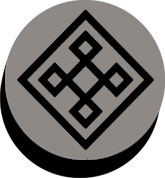
Time of Rebirth
- Circa: 700 AR
After the final battle of the Dragon War at the location now known as Mount Xion, the people of Pryxis realized that there was much to do in order to preserve peace and ensure a more stable world for their fellow kin.
Under the guidance of The Archamgus Eternal, and the tender divine care of the 7 sins, the inhabitants of Pryxis began the slow, long process of not just rebuilding society, but creating one anew - one that would ensure the equality of the masses, the study of technologies and magic, and the preservation of life itself.
During this time, many battles still raged, as Draconic resistance clinged to their once great empire. The Greatwyrms were slain, driven into hiding, or imprisoned. Githyanki forces were scoured from the globe, sent retreating back into the Astral plane. And the fiendish influence of Tiamat was swept away.
Yet, throughout all the pain and bloodshed, hope arose, and was kindled into a roaring flame.
3rd Age - Age of Peace (AP)
The Age of Peace (AP) represents the era in which the planet of Pryxis has established a global time of peace and prosperity.

Founding of the Guild
- Circa: 1416 AR / 0 AP
The founding of the Guild of Three marked the beginning of the Age of Peace - an age where the masses could once again go back to their mortal lives, and focus on not only preservation or survival - but prosperity, unification, and happiness.
The Guild of Three was created to oversee all future governments and kingdoms and now maintains the treatises and networks between them, as well as all relations with the worlds beyond Pryxis.
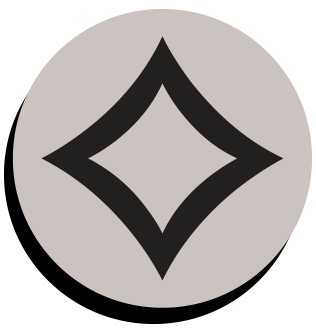
Current Age
- Circa: 0 AP to Present Day (year 807)
SInce the founding of the Guild of Three, no notable global events have taken place to warrant a change in historical documentation.
This is the current age of prosperity and advancement upon Pryxis.
What do you do after you have finished the fight? You keep fighting.
Not in the traditional way, not with blade nor bullet. But with blood, sweat, tears, and focus.
You fight to create anew, to allow those who come after you the chance to never go through what you did. You celebrate life, for all it's darkness and light.
-- Pryxis
Calendar
Pryxis is a world that is dominated by magic and technology, and where even the gods walk amongst the masses. However, even with such incredible powers at work, the creatures and entities that dwell here are still (mostly) bound by the constraints of time.
Aside from the standard 24 hour day period, Pryxis seems to reside a further distance from it's stars - resulting in a longer year, but curiously, not a longer day. Rumors and theories abound by astrologists and sages alike that the planet is artificially or magically maintained in it's orbit - having seen no natural orbital decay over several eons.
The Pryxian Calendar
Devised by the Archmage Aeternal: Pryxis during his first few centuries of rule, the Pryxian Calendar is a 427-day calendar, which is split into 12 months, each month a series of 35 days each, split into 5 weeks of 7 days each - with a set of 7 intercalation days at the very end of the year as a "week of renewal" which is used to celebrate the upcoming new year.
The 12 months are split into 4 seasons, each season with 3 months - with the Week of Renewal to take place at the end of each year. The Pryxian Calendar is keyed to reflect the full inclusion of all 4 seasons within 1 year, with no spillover of a season into another year - Example: upon the New Year, Spring begins.
Seasons and Renewal
The 4 Seasons are as follows;
-
Spring (1st - 3rd months) (105 days)
-
Summer (4th - 6th months) (105 days)
-
Autumn (7th - 9th months) (105 days)
-
Winter (10th - 12th months) (105 days)
-
Week of Renewal (Last 7 days between winter and spring)
The final 7 days of each year are not regarded strictly as a month, but are instead seen as the days between years, where the inhabitants of Pryxis celebrate the passing of one cycle and the birth of the next - this week is almost always spent in jovial celebration across the planet.
The seasons even seem to momentarily pause during the Midnight Renewal, with the world experiencing an unnatural calmness and lack of inclement weather in between winter and spring.
The 7 Sins and 7 days
In honor of the 7 Gods who led humanity to freedom, they thereby named a day of the week for each deity who led mortalkind to freedom.
The 7 days
| Zariel | Tyr | Melchar | Oghma | Hex | Mishakal | Chemosh |
|---|---|---|---|---|---|---|
| Zarsday | Tyrsday | Melsday | Oghsday | Hexday | Mishday | Chemsday |
Pryxian Calendar
| Month | Name | Element | Zodiac Sign | Season | Days |
|---|---|---|---|---|---|
| 1 | Primal Dawn | Water | The Vessel | Early Spring | 35 |
| 2 | Spring's Palm | Water | The Leviathan | Mid Spring | 35 |
| 3 | Bloom's Peak | Water | The Kraken | Late Spring | 35 |
| 4 | Storm's Swell | Fire | The Sword | Early Summer | 35 |
| 5 | Summer's Hand | Fire | The Phoenix | Mid Summer | 35 |
| 6 | Noon's Birth | Fire | The Wyrm | Late Summer | 35 |
| 7 | Noon's Eve | Earth | The Rune | Early Autumn | 35 |
| 8 | Autumn's Grasp | Earth | The Zaratan | Mid Autumn | 35 |
| 9 | Hearthglow | Earth | The Tarrasque | Late Autumn | 35 |
| 10 | Frost Fall | Air | The Staff | Early Winter | 35 |
| 11 | Winter's Fist | Air | The Tempest | Mid Winter | 35 |
| 12 | Primal Dusk | Air | The Kirin | Late Winter | 35 |
| 13 | Midnight Renewal | Spirit | The Ouroboros | New Year | 7 |
Global Holidays
The planet of Pryxis has a vast variety of cultures and people that each celebrate their own holidays and celebrations - but there are 4 holidays during the year that are commonly celebrated by all.
The four holidays each coincide with the middle of each season, and correspond with one of the 4 prime elements: water, fire, earth, and air respectively.
How do I explain the unnatural synchronicity of our planetary calendar?
Actually, that's pretty simple. I did it.
I got tired of the orignal position of the planet back before the spellplague - so I, a few mages, a beleaguered god, a genius loci, an eldritch entity, and a sentient goat helped me move it.
Am I lying? You don't know.
-- Pryxis
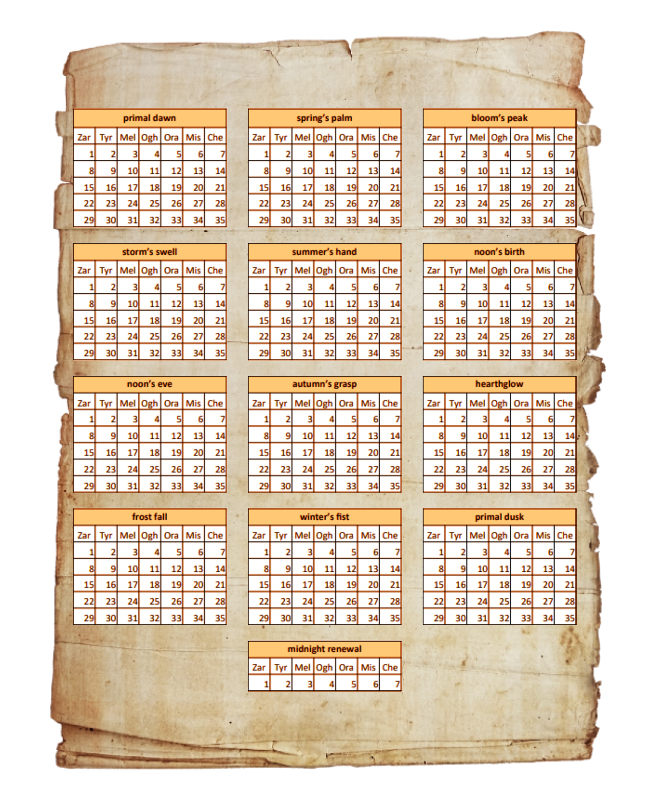
Spring
| Month | Day | Holiday |
|---|---|---|
| Spring's Palm | 18th | Worldbirth |
Worldbirth
This holiday coincides with the first swell of rainfall of the year, resulting in a massive blooming of flowers and plantlife throughout the world.
On this day, it is typical for many druids, rangers, shaman, and gardeners alike to wander the countryside, sowing seeds and encouraging the growth of the surroundings. Some mages even go as far as to manifest magical storms and rainfall to provide to areas who have witnessed droughts.
A commonplace festivity that takes place on this day includes the sanctification and blessing of holy groves, wellsprings, coastal areas and forests to give back to the planet. Many fey and their kin take their time to partake in the blessings as well, resulting in jovial communion with nature and the surroundings.
A big past time during this day is also the collection of honey, pollen, seeds, grains and the like to create incredibly potent alchemical and alcoholic brews - which are gladly imbibed by the people and fey alike.
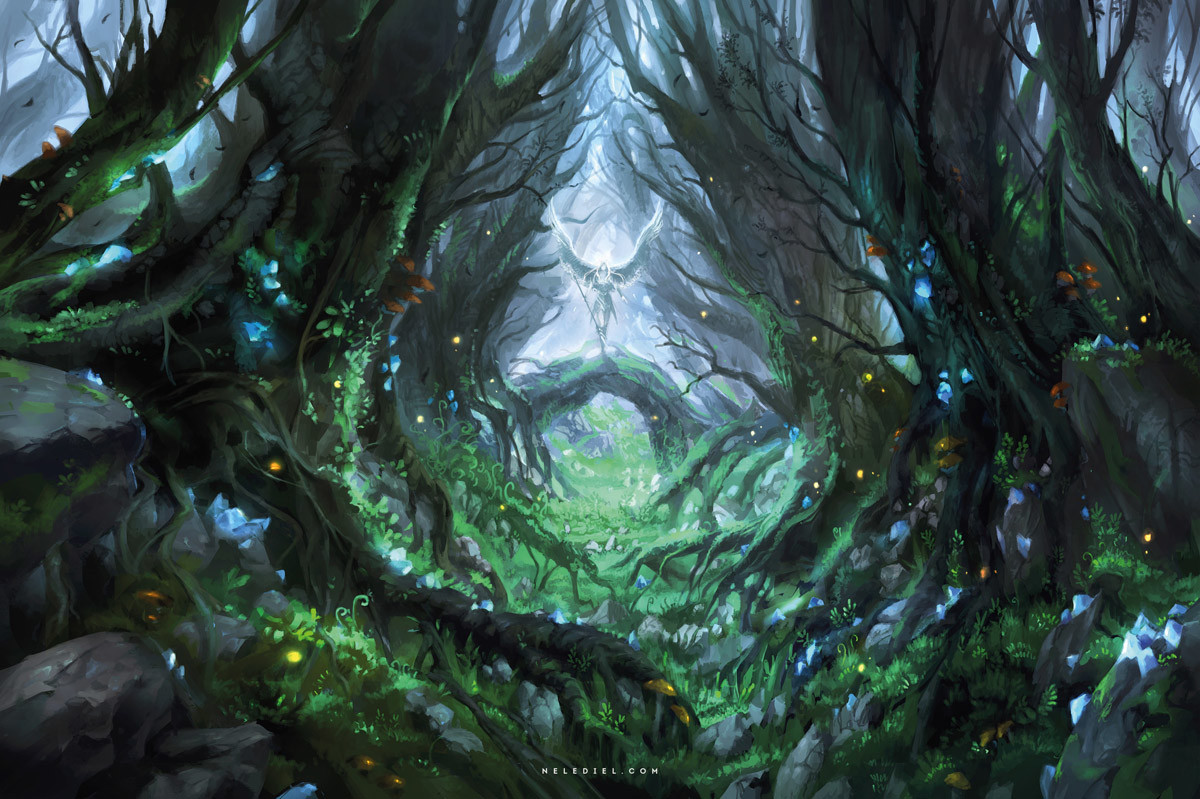


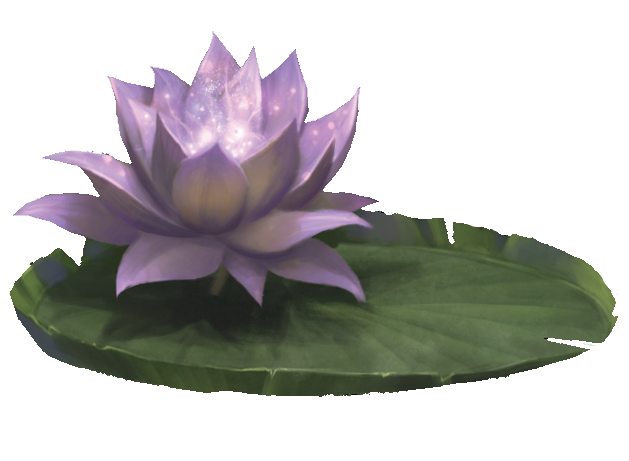
Summer
| Month | Day | Holiday |
|---|---|---|
| Summer's Hand | 18th | Midfire |
Midfire
This holiday coincides with the highest level of heat during the year, as the surroundings become more dry and grown.
During this day, it is traditional for many people to partake in a midsummer festival that celebrates the rush of blood and heat of life. Many people during this time adopt performances such as fire dancing, jovial bardic performances, and midnight celebrations.
Many times, during this holiday, mages and druids alike will raze mass bonfires to illuminate the night and invite many revelers from across the countryside in mass celebration of their freedom from the imperial grip of dragonkind - focusing on the stories and legends of the heroes that released them from chains.
As with most holidays, feasting and drinking is commonplace, but the festivities usually go far into the night and pour over into the next day.
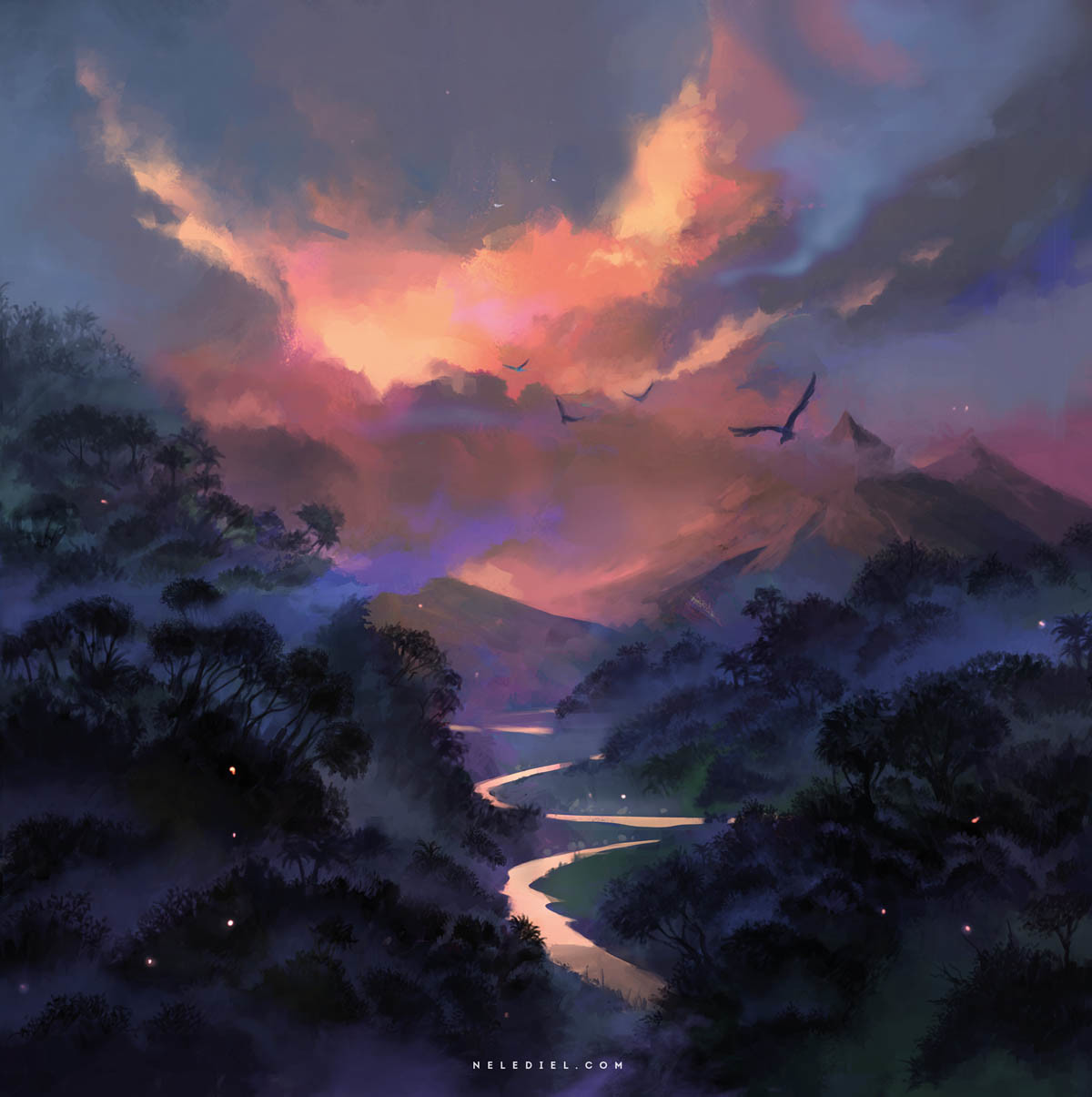


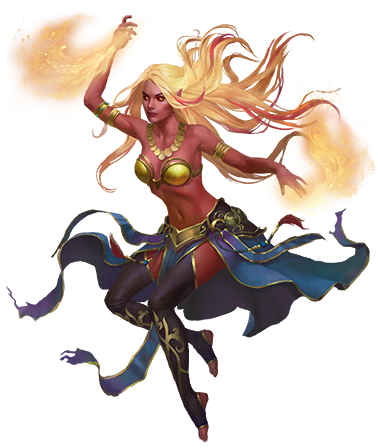
Autumn
| Month | Day | Holiday |
|---|---|---|
| Autumn's Grasp | 18th | Cullsday |
Cullsday
This holiday is the time of main harvest, where the crops and livestock of the year are culled and collected to prepare for the harsh winter ahead.
During the day, massive hunts and culling are done by rangers, ranchkeeps, and adventurers alike, while farmers, druids, and gatherers go about to harvest whatever crops they have grown over the course of the year. Many times, these commodities are sold in preserved or salted forms for commoners to grow their personal surpluses.
Many exotic herbs, plants, and drugs are typically gathered during this time and sold en masse to the public for storage for the Festival of Magic at the end of the year.
This day is collectively celebrated by all in a massive feast of the freshest meats, grains, fruits, and vegetables for the entirety of the night, where everyone gorges themselves and partakes in mass drinking contests.
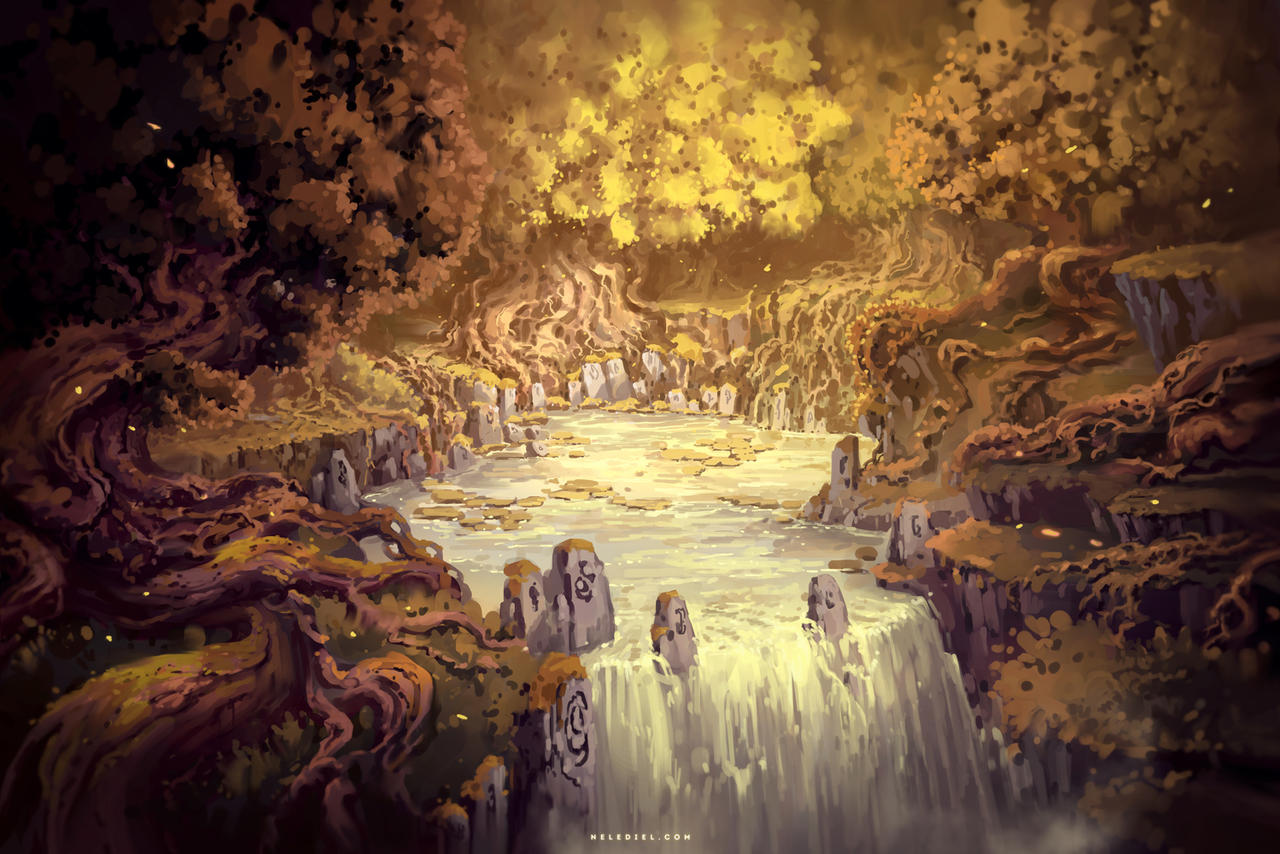

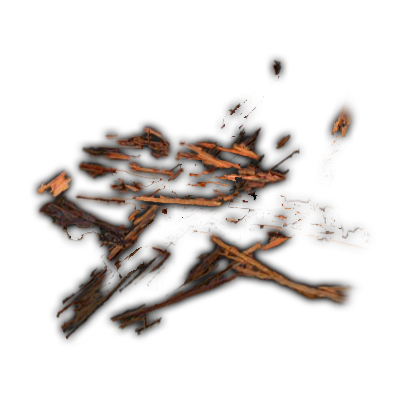
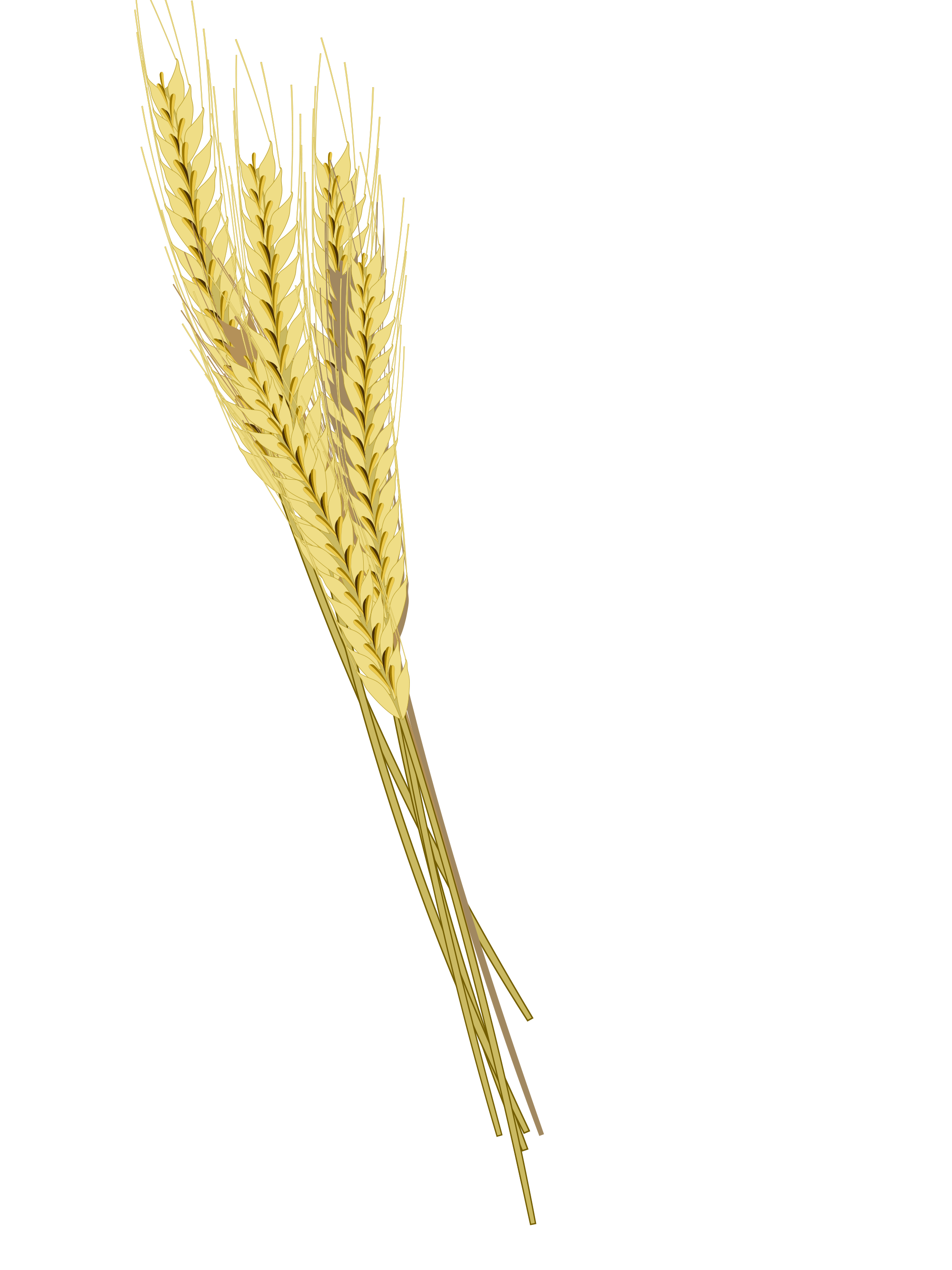
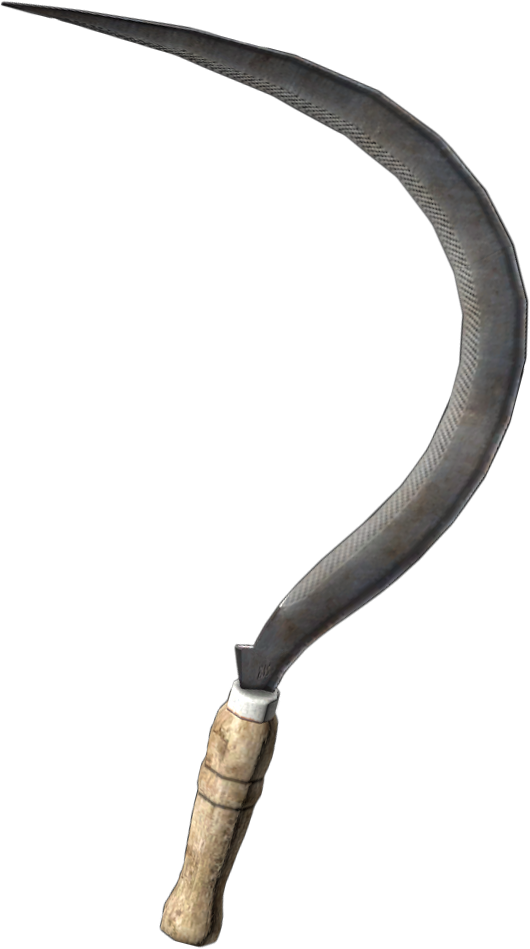
Winter
| Month | Day | Holiday |
|---|---|---|
| Winter's Fist | 18th | Starspassing |
Starspassing
This holiday is one of awe and inspiration, as the Green-Flame Asteroid Zouvis makes it annual passing through the solar system, and within visual range of the planet.
During both the day and night, the asteroid can be seen with the naked eye as it passes within range of the planet - leaving a bright plasma trail across the sky, and with a veritable shower of meteorites that rain over the planet.
It is commonplace for many astrologists, mages, sages, and adventurers to make a break for the meteorites that strike ground planetside, as Zouvis leaves deposits of incredibly rare metals and gemstones. These metals and gems are typically fashioned into beautiful jewelry, trinkets, focuses, and reagents - which are then gifted to others in an act of charity and celebration.
Similar to most other holidays, feasting and drinking are expected; however, the main celebration takes place during the night, as the asteroid lights up the sky as if it were day time.





New Year's
| Day | Festival |
|---|---|
| 1 | Day of Composition |
| 2 | Red Festival |
| 3 | Green Festival |
| 4 | White Festival |
| 5 | Blue Festival |
| 6 | Black festival |
| 7 | Day of Conclusion |
Midnight Renewal
The period of time when the moon Arivae blots out the wrath of the stars, when twilight and darkness befall the planet, as auroras light up the skies - truly a magical, wondrous, and awe-inspiring time.
The Midnight Renewal is a solid week of festivities to celebrate the ending of the year and the beginning of the new. This week is also known as "The Festival of Magic", as it mainly celebrates the presence of magic throughout the world - and after the end of the Dragon War, the honor of magic has become an intense occasion for all inhabitants of Pryxis.
The Festival of Magic has 5 main days, with a day preceding the main festival, and a day concluding it. Each day celebrates a different fundamental aspect of magic - often called the "Colors of Magic."
Day of Composition
A Day of Preparation
The preparation day of the Festival of Magic, marked by the returning of people to their hometowns or cities, and getting oneself ready for the festivities to come.
This day is less of a celebration, but moreso a day of intense focus and hurried preparation - with everyone rushing to gather food for feasts, gifts, intoxicants, and magical paraphernalia. Indeed, many merchants, traders and shop owners take this time to sell surplus items and exotic substances - often for reduced prices.
Many common items bought during this time include food of all forms, drugs and alcohol, enchantment and magical reagents, fireworks, animals, and the occasional lady (or sir) of the night.
Red festival
A Day of Revelry
The first day of the Festival of Magic - celebrating the change brought upon by fire, heat, and primal urges. This day honors the primal forces of chaos and impulsivity - characterized by intense freedom of actions, usually with no care of consequences.
This day is, by far, the most explosive in terms of festivities, with creatures partaking in intense jovial celebration, often through drinking, brawling, taking drugs, having intimate relations, and destroying unwanted property.
Many people often get arrested or incarcerated during this day for rowdy and destructive behavior, usually to be released the next day.



Green Festival
A Day of Compassion
The second day of the Festival of Magic - celebrating the growth and blooming of nature. This day embodies the instinctive drive of all nature to grow, adapt, and change - with many people retreating to public gardens, parks, wooded areas, and forests to partake in more "au natural" behavior.
This day can be seen as a follow-up for the Red Festival, as the interactions between individuals is still quite primal. Many common festivities include public nudity, wild or animalistic behavior, hunts, the use of hallucinogenics, and druidic or nature based rituals.
Many people use this day to forgive and forget many past trespasses and rivalries, believing that compassion and change are key features of growth and magic - and many would be rivals can often be found partaking in co-op activities, whether they be hunting, druidic communion with nature, or heavy drug use.
White Festival
A Day of Piety
The third day of the Festival of Magic - celebrating the light in all things, focusing on spiritualism, worship, and celestial objects such as the moon, stars, and sun. This day focuses on peace and morality, as many individuals retreat to places of worship or holy ground to commune with the outer powers.
This day is the mid day of the Festival of Magic, with many people partaking in religious or spiritual concentration. Often times, the main festivities of this day include the zealous worship of the Gods - mainly the 7 sins - and the connections to one's family ancestors. Indeed, the veil between worlds seems thinest on this day, and it is quite commonplace to see one's ancestral spirits take form and commune with their descendants.
Many clerics, priests, and paladins use this day as a means to form deeper connections to their benefactors, and often times temples and churches will give away many donations built up through the year to those in need.
Blue Festival
A Day of Enlightenment
The fourth day of the Festival of Magic - celebrating the pursuit of knowledge, and the mercurial nature of existence. This day is used to pursue the freedom of knowledge and technology, and many magicians, mages, sages, and engineers use this time to show off some of their most incredible exercises of prowess. Many mages will perform magical shows of power, while many artificers take the stage to show off insane inventions.
This day is a day of pure education and magic, with wizards and sorcerers engaging in epic showdowns for the bemusement and wonder of the masses. Artificers will engage in intense rivalry, often times saving their most intense inventions for this day specifically.
On this day, the collateral damage and magical residue will rock the foundations of many cities to their cores in the pursuit of knowledge, and it is commonplace that many mages and artificers will give away more menial spells or schematics to those who wish to pursue the same endeavors.
Black Festival
A Day of Restitution
The fifth day of the Festival of Magic - celebrating the passing of loved ones, death, and the ending of the year. This day is seen as the sorrowful - yet celebratory - honoring of those who have passed within the last year.
The ancestral spirits that passed over when the veil was thin on the third day, will pay their regards and respects to those who continue their family's lineage before passing on once more beyond the veil.
Many necromancers or clerics will raise the dead of those who wish to speak with their loved ones once more before the coming year - settling differences and concluding their love to allow the spirits to pass on peacefully. Many others will partake in mass rituals of astral projection to explore the astral plane and the plane of dreams.
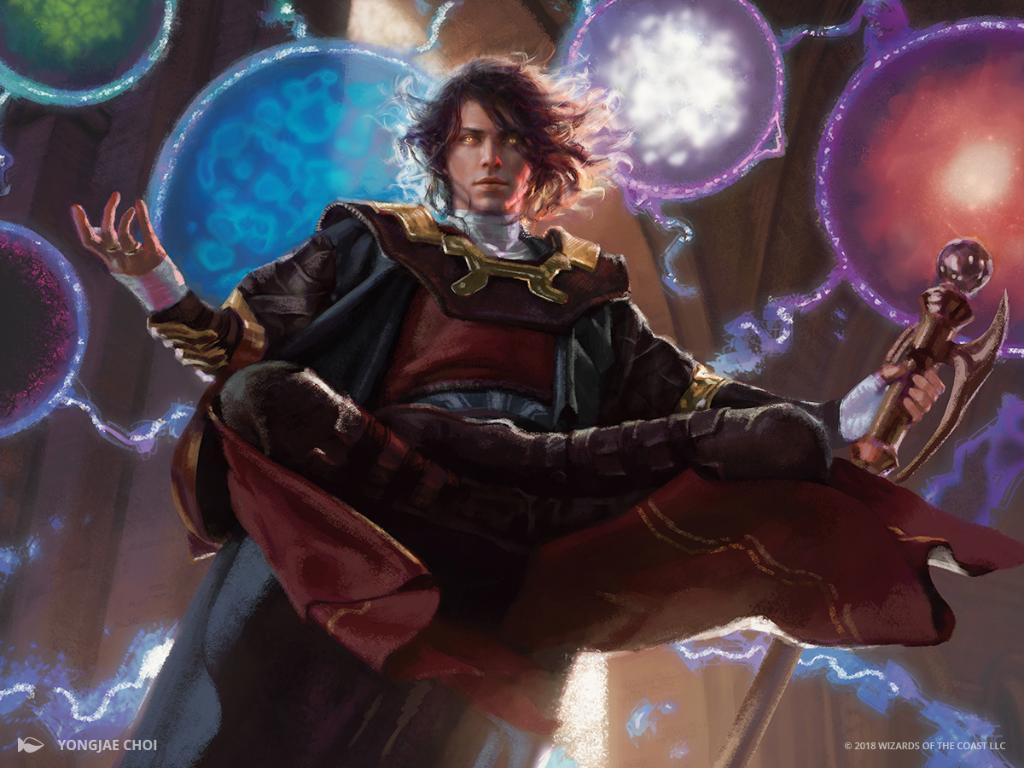

Day of Conclusion
A Day of Culmination
The final day of the Festival of Magic, where the festival has passed, and the congregations of people may return to their lives to continue into the new year with renewed spirit and fresh slates.
This day is characterized by the masses retreating back to their homesteads to heal, rest, and prepare themselves for the coming year. Many people use this time to relieve themselves of the headcolds, injuries, and mistakes they made during the week, and it is not uncommon for hospitals and clinics to have a massive influx of the weary festival-goers.
Many Adventurers take this time to prepare caravans and parties to move back to their places of work, travel, or questing.



PART 3
The Powers

The Cathedral of Seven Sins
Mortalkind upon Pryxis still revere and worship the 7 gods who freed them from the Draconic Imperium. Even those who do not actively worship deities still pay homage to them for their contributions to society.
The Powers
Melting Pot of Faith
The world of Pryxis has a particularly interesting take on the aspect of gods, religions and faith - in that they accept and allow all forms of belief a chance to flourish.
Due to the nature of the Divine Intervention of the 7 sins during the Dragon War, the seven gods who first stepped forth to defend and uphold mortalkind were granted a special standing amongst the religious system of the World. Each of the seven gods represented a different pantheon and set of beliefs, and because of this, those that worship a particular pantheon worship one of the seven sins that corresponds to their pantheon.
For example, if one were to follow the Nordic religion and the belief in Valhalla, while they may worship Odin as their main deity, they would pay homage to Tyr, the God of Pride, as a representative of that pantheon.
Because of this, all faiths have been generally accepted by the masses of Pryxis - regardless of their connection to the seven sins or Pryxis himself. But each individual pays homage to some form of the deities and entities that freed them from draconic slavery.
Some faiths unique to other realms have their presence here as well, and even those considered alien or taboo are generally allowed - so long as it does not negatively impact others during their practice. Generally speaking, whatever belief an individual chooses to follow - whether in private or public - is their own personal matter.
Divine Characteristics
The gods of Pryxis tend to play a more direct role in the lives of mortals upon the world. Having already physically manifested during the times of the Dragon Wars, their powers cannot necessarily be doubted, but some may attempt to argue their effect.
Further, the gods of Pryxis are not omnipotent or omniscient. Although they are physically and magically powerful, ageless, and all but indestructible, their actions are bound by the decrees of Primeval Law. They can tangle (or untangle) the threads of destiny to a point, but they are forbidden from overstepping their assigned places in the pantheon. Additionally, while they may have limitless memory and ability, they may not feel entitled to intervene on a situation or conflict that does not affect them in the grand scheme of things.
Godhood and Domain
For more information about new domains listed below, as well as info about godhood, consult The Path to Godhood for more details.
Pryxian Deities
| Deities | Title | Alignment | Suggested Cleric Domains | Common Symbol |
|---|---|---|---|---|
| World Figurehead | ||||
| Pryxis, Archmagus Eternal | Voice of the Planet | Unaligned | No Domains - Iconoclast | Green Trident |
| Pantheon of Sin | ||||
| Zariel, Goddess of Greed | Enchantress of Flesh | LE | Blood, Chaos, Light, War, Wealth | Winged Flaming Sword |
| Tyr, God of Pride | Steward of Justice | LG | Forge, Light, Order, Protection, War | Gold Scales upon a Warhammer |
| Melchar, God of Wrath | Vassal of Fury | CN | Ancestral, Elementalism, Rage, Tempest, War | Violet Lightning Helix |
| Oghma, God of Gluttony | Magus of Illumination | N | Arcana, Knowledge, Luck, Nature, Time | Blank Pale Scroll |
| Hex, God of Envy | Oracle of Secrets | N | Far, Mind, Technology, Trickery, Twilight | Black Serpents Swallowing an Eye |
| Mishakal, Goddess of Lust | Servant of Vitality | LG | Feast, Hearth, Life, Peace, Twilight | Blue Infinity Symbol |
| Chemosh, God of Sloth | Arbiter Of Demise | NE | Death, Grave, Soul, Time, Trickery | Yellow Goat Skull |
| Heroic Tribunal | ||||
| Gilthunder Dragonheart | The Dark Wind | NE | Hunt, Travel | Foggy Bloody Spearhead |
| Haedrig Wyrmsbane | The Storm Blade | LN | Tempest, War | Crossed Axe and Dragon Horn |
| Zolis Sephret | The Grave Star | NG | Grave, Time | Broken Fiery Hourglass |
Worship and Relations
The presence of deities and supernatural entities is an aspect that cannot be denied upon the world of Pryxis.
While some may shun the idea of owing any form of worship to any of the deities of the pantheon of sin, or even any other god or goddesses, the fact that they exist is something that cannot be disputed.
Those that do worship deities, whether they are of the pantheon of sin or a god that one of the sins represents, their amount of faith and worship can differ from person to person.
Often times, the rites and rituals meant to enact any form of worship for a deity is as varied and different for each god. The main form of worship tends to be libation (the pouring of wine or water), ritualistic prayer, the sacrifice of animals or beasts, creating personal or household altars, and many many more.
Typically, a statue in the Divine Sin's likeness resides in more wealthy or extravagant temples - which the gods can view from at any time, or even animate. In more frugal temples, a simplistic statue of the symbol for each god of the pantheon of sin resides upon a basic altar.
The world of Pryxis utilizes the Piety feature from the Mythic Odysseys of Theros, with each god granting different abilities.
Faith Mechanic: Piety
Being a god's champion carries no benefits in and of itself. Each god's description in this chapter paints a picture of the god's typical champion, including ideas for how a player character might end up in that position and provides ideals that represent the god's interests. The gods do reward the devotion of their champions, though. The strength of your devotion to your god is measured by your piety score. As you increase that score, you gain blessings from your god.
Piety has nothing to do with faith or belief, except insofar as a person's thoughts and ideals drive them to action in a god's service. Your piety score reflects the actions you have taken in your god's service - actions that the god richly rewards.
When you choose a god to worship as a beginning character, your piety score related to that god is 1. Your piety score increases by 1 when you do something to advance the god's interests or behave in accordance with the god's ideals. The gods expect great deeds from their champions, so your piety score typically increases only when you accomplish a significant goal (such as the completion of an adventure), make a significant sacrifice of your own self-interest, or otherwise when the DM sees fit.
Each god's dogma typically includes a discussion of the god's goals and ideals, which your DM uses to judge whether you earn an increase in your piety score. As a general rule, you can expect to increase your piety by 1 during most sessions of play, assuming that you are following your god's tenets. The DM decides the amount of any increase or decrease, but a single deed typically changes your piety score by only 1 point in either direction unless your action is very significant.
Benefits of Piety
The gods bestow favors on those who prove their devotion. When your piety score crosses certain thresholds - 3, 10, 25, and 50 - you gain a benefit detailed in the sections describing the gods' champions.
There are generally 4 levels of piety: Devotee (at 3), Votary (at 10), Disciple (at 25), and Champion (at 50). If your piety score exceeds and then falls below one of those thresholds, you lose the benefit you gained at the higher tier.
If you choose the Oracle supernatural gift, you gain different rewards for your piety score, instead of the ones normally granted by your god. This gift and its benefits are described in chapter 1.
Inspiration and Piety
To some extent, piety is its own reward. Behaving in accordance with your god's dictates and ideals inspires you and might enable you to succeed where you might otherwise fail. At your DM's discretion, whenever you increase your piety score, you might also gain inspiration, reflecting the improvement in the harmony between you and your god.
Impiety
Not every hero chooses the life of a divine champion. Some races or peoples are known for rejecting the worship of gods. If you don't devote yourself to a god, you don't have a piety score and you gain no rewards for piety, but you don't suffer any negative consequences.
The Iconoclast supernatural gift offers a way for characters to gain benefits similar to rewards for piety without being devoted to a god. Pryxis, the Archmagus Eternal offers additional benefits for those who refuse to kneel to any form of greater entity.
Changing Gods
If events in your character's adventuring career warrant doing so, you can abandon the service of one god and turn to a different one. Once you abandon a god's service, you can rarely go back without performing some act of contrition.
Your DM decides whether your new god will accept you as a champion and what you might have to do to prove your commitment.
When you change gods, you lose all the benefits granted by your old one, including rewards for piety and any other divine blessings. You no longer have a piety score to your old god, and your piety score to your new god starts at 1.
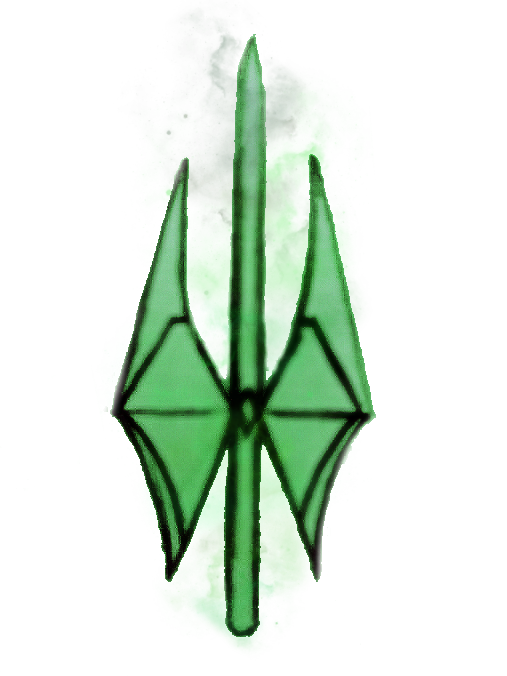
Pryxis, Archmagus Eternal
The Archmagus Eternal has lived upon Pryxis for several millennia. While not a god or deity in any traditional since, Pryxis has overseen and guarded the planet from threats that exist both internally and externally. It was through his guardianship that the world maintained a continuous rebellion against the Draconic Imperium. It was also he who stood toe-to-toe against the eldritch mad-king that threatened all life on the planet, and also through his influence that the reawakening of magic took place, as Pryxis communed with the gods beyond the realm.
Pryxis is an immortal being that remains masked at all times, refusing to show his face even to his most trusted fellow magi. It is unknown what his true age is, but what is understood is that he was born at some point before the Spellplague. He is never seen without his bladed trident staff, which he has used to destroy many threats to the stability of his realm, whether godly or eldritch in origin.
Pryxis's Influence
The Archmagus Eternal's namesake was not always the same as the planet he resides over, but over the course of the Draconic Imperium's annihilation of knowledge, lore, and records of the world, the people of the realm began to associate the only magical being that remained steadfast against the Greatwyrms with the strength and determination of the planet itself. Therefore, the original name of the planet is only known to the Archmagus, or severely ancient entities, but in a way, the Archmagus has decidedly chosen to keep the original name guarded, as it may be the key to unlocking forbidden secrets from before even his lifetime.
Pryxis resides almost exclusively within his Academy of Dweomer studies that resides within the megalopolis sharing his name. His private tower-mansion is the pinnacle of the academy - where the academy itself resides upon a floating island above the city, having been fashioned from the sheared-off mountain top of the volcano that the city is built around.
The Archmagus aims to remain neutral in most worldly politics, as the meager inner workings of kingdoms and countries bores and confounds him. He will mediate between massive conflicts when the need arises, but only when the stability of the world is at stake. Indeed, even seeing Pryxis within his own academy is a rare occurrence, as he rarely ever leaves his personal tower - choosing to oversee the world to which he has saved time and time again.
Pryxis can be called less of a "leader" of the planet, as much as he can be called the "representation" of it. He does not worship gods or entities, and he swears no fealty to any kingdom, country, or guild. However, when the Archmagus appears before any official group, it would be wise that they listen to the individual who has led them to where they are today.
Pryxis's Goals
Pryxis oversees the inner workings and machinations of his world within the grand schemes of the cosmos, and it's standing with entities beyond the reach of the masses. Pryxis considers himself to be a servant of the people, and to the people alone. He does not shy away from the occasional worship thrown his way - but reminds whomever may believe in his godlike power that he was once mortal just like them, and that the gods are a fickle and temperamental force.
Divine Relationships
Pryxis cares not for the dealings of the gods, except for in times when the planet's fate is in the balance. As an immortal being that has only mantled a form of godhood once - only when the sake of the planet was at stake - Pryxis believes that most deities and entities that require worship, rituals, sacrifice or subjugation by their congregations to be wholly uncivilized and unnecessary. His views on deities, as well as his dispatching of many godlike entities that have threatened his realm, has given him a repertoire as a being who sees the gods as inferior - but this is not the case. Pryxis acknowledges the powers and abilities that deities hold, but he believes their necessity for worshipers to power those abilities to be inhumane.
While Pryxis was the one who reached out to the gods to reawaken magic centuries ago, the gods themselves hold a distrusting view of Pryxis. His stance on their supposed illogical and immoral practices leave most deities with a bad taste; however, they acknowledge his power and stance upon the planet, as well as his ability to dispatch deities and other godlike entities - indeed, even the mentioning of his name is enough to cause several deities to second-guess their motives.
"Worshiping" Pryxis
Pryxis does not condone nor condemn the worship of his position of power, but requires each of his supposed "congregation" to understand the secrets of the gods and their source of power. He refuses any direct divine power granted to him by his congregation, and instead reflects the potential back towards the individual worshiper to instill his form of Pious ability within them.
Those who "worship" Pryxis must always be Iconoclasts, and they gain additional abilities for embracing the practices of the faithless and godless.
Pryxis's Forms
Being an extraordinary and supernatural mortal, Pryxis normally does not adopt a particularly striking or otherworldly appearance when approaching or appearing before those he would consider his "congregation".
Pryxis appears as a humanoid draped in extravagant green robes and finery, wearing a crowned mask at all times - and those who have attempted to remove his mask in times past have found themselves quite literally in orbit.
Pryxis rarely makes an appearance before any mortals or gods - as he feels his time is better spent in quiet study and meditation. His refuge within the tallest tower of the Academy of Dweomer is nigh inaccessible to any without direct permission from the Archmagus, and many attempts to breach his study have been met with his honorguards.
On only one occassion is Pryxis seen in public: the commencement ceremony for the Midnight Renewal - which takes place at the end of each year. During this time, Pryxis appears upon his balcony platform and projects his voice amidst the masses of the Metropolis below, speaking of the overcoming of hardships, and the pronunciation of the new year.
When Pryxis does choose to appear to his followers individually, he can only appear in his apparition form:
Apparition
While not a god, the Archmagus can produce an avatar-like simulacrum of himself when the time arises. When a complete show of Pryxis's undivided attention is deemed necessary, a vaguely humanoid, ethereal apparition of Pryxis will appear before those who seek direct counsel with the Archmagus. This apparition functions as a scrying sensor.
This apparition can appear anywhere across the world, and it is unknown whether or not Pryxis himself has a limit as to the number of apparitions he may create. It is known however, that the apparitions can do little more than listen, watch, and convey communications - although, it has been known that Pryxis will occasionally utilize the apparitions to fire off a bolt of fate (PM) when needed in the defense of his acolytes and agents.
It is rare for Pryxis to consider any circumstance substantial enough to allow an apparition to appear before those who call to him, as he believes those who wish to strive for success must do so through their own volition.
In incredibly dire times, the apparition can allow Pryxis himself to teleport directly to the location, seeming to manifest through the apparition itself. If this ever occurs, it indicates that an event has taken place in which Pryxis must be fully present to deal with.
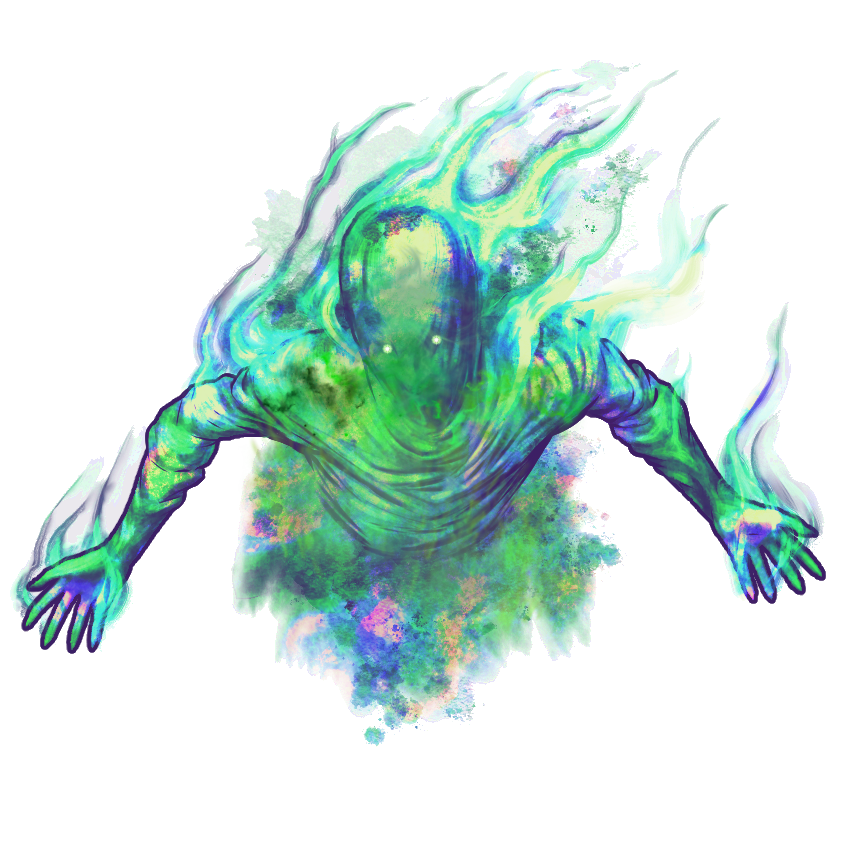
Pryxis's Champions
- Alignment: Any, usually neutral
- Suggested Classes: Any
- Suggested Cleric Domains: None
- Suggested Backgrounds: Any
- Associated Pantheons: None
Pryxis welcomes any and all to delve into the studies and understandings of the powers inherent within the belief of oneself. His followers are almost always Iconoclasts, but some exceptions exist; such as an Ancestral or Arcana Cleric who shuns the worship of gods, or a Paladin who upholds the people against greater entities. Those who follow Pryxis's ways devote themselves to the practice of achieving personal power above their peers and deities.
Pryxis's Favor
Since the Archmagus Eternal has no need for worship, more often than not, those who excel in acquiring greater personal power gain his attention and respect. The Pryxis's Favor table offers several suggestions for the nature of your respect from the Archmagus Eternal.
Pryxis's Favor
| d6 | Circumstance |
|---|---|
| 1 | Your studies led you to a greater understanding of the secrets of the gods. |
| 2 | You belonged to a family of Atheists or Iconoclasts that taught you the ways of trusting yourself above other entities. |
| 3 | You devoted yourself to a craft, art, practice, or sport for the sole purpose of bettering your form and function. |
| 4 | You once stood up against a powerful outsider who threatened you, whether you failed or succeeded in combating it, your determination piqued Pryxis's interest. |
| 5 | You swore to hunt down the congregation of a god who directly harmed you or your loved ones. |
| 6 | You once served a god or entity tirelessly, but severed your faith in them when a great injustice was dealt to you without retribution. |
Devotion to Pryxis
Pryxis offers no alternative ideals as to the function of your fealty to him. He encourages those who follow in his footsteps to pursue their own goals and ideals in life, focusing on the intention to better oneself and swear off the necessity to worship the gods or entities one would traditionally give faith to.
Iconoclastic Service
You must be an Iconoclast to swear fealty to Pryxis the Archmagus Eternal. In return for your fealty to him, he empowers your form with additional benefits to remain steadfast against outsiders and powerful entities.
At level 1, you gain the Iconoclast supernatural gift if you do not already have it.
Additionally, you gain the following benefits to your Iconoclast features as you gain character levels:
Iconoclast Hero - Empowered
5th-level Iconoclast trait
You can now cast your protection from evil and good and dispel magic spells from your Iconoclast trait twice per long rest.
Iconoclast Paragon - Empowered
11th-level Iconoclast trait
You can now cast your dispel evil and good spell from your Iconoclast trait twice per long rest.
Additionally, when you cast dispel magic using the Iconoclast Hero trait, it counts as a 5th-level spell, instead of a 4th-level spell.
Iconoclast Archetype - Empowered
17th-level Iconoclast trait
When you cast your antimagic field spell using the Iconoclast Archetype trait, the range of the field is doubled to a 20-foot radius, and you and any objects you wear or hold inside the field are immune to the effects of the field.
Additionally, when you cast dispel magic using the Iconoclast Hero trait, it counts as a 6th-level spell, instead of a 5th-level spell.
Worship? No, i don't desire worship, nor do I desire faith. I don't desire a subjugation to blind belief that lends credence and power to an entity that would easily rend your own power from you as punishment.
I desire your agency. Your focus, your determination, and your respect. In return, you shall receive all the same.
-- Pryxis
Myths of Pryxis
Pryxis is renowned throughout the world as the Archmagus Eternal, as even the world itself bears his name in respect to his grandeur. Some tales still tell of some of his less known accomplishments, and his legendary armaments.
Theomachy. The Story of how the Archmagus Eternal challeneged an eldritch Mad-King in singular combat is already a tale well written into the histories. But the means through which he slew the Mad-King, as well as many other deities and entities that came before and after, is through the use of his Viridium Trident: Theomachy. It is said that Theomachy was crafted for Pryxis by an elderly planeswalker from beyond the realms - one who abhorred the gods. The Trident was crafted from a green tailed comet, a branch of the tree of yggdrasil, and a piece of godstone from the astral plane. This trident has been the main tool of Deicide in the hands of Pryxis since it's birth.
The Tome of the Archmage. A black-bound, gold encrusted and bejeweled book seen continuously tethered and floating near the Archmagus Eternal, the Tome of the Archmage is said to contain secrets and formulas for magical rituals and high dweomer only passed between other High Archmages. The book was said to have been in the hands of Mordenkainnen, Shalidor, and even Karsus himself before being in the possession of Pryxis.
Eternal. It is said, that in the days before the spellplague, Pryxis underwent an intense and dark ritual which bestowed upon him eternal youth and life that has allowed him to live for so long without the need for food, water, air, or sleep - even without a divine spark. The specifics of this ritual have never been uncovered, but when asked directly, many mages have been permanently silenced by his magic for daring to breach the subject.
Twin Hands of Fate. It is no secret that the most striking (and only visible) physical characteristic of Pryxis is the presence of his two distinct hands - one a silvery, glowing angelic hand, and the other a reddened, charred demonic hand. It is said that whatever rituals Pryxis underwent in his youth had transmuted or manifested these hands from beyond the realms, which he now uses to enact both great protection and severe punishment.
Vestments of Investiture. The strikingly regal robes and regalia upon Pryxis's body are said to give him a distinct connection to the lifeblood of the planet. They are said to have astounding powers and also function as both a unique set of Robes of the Archmagi and a empowered Cloak of Protection. Where he got these robes is yet unknown to this day.
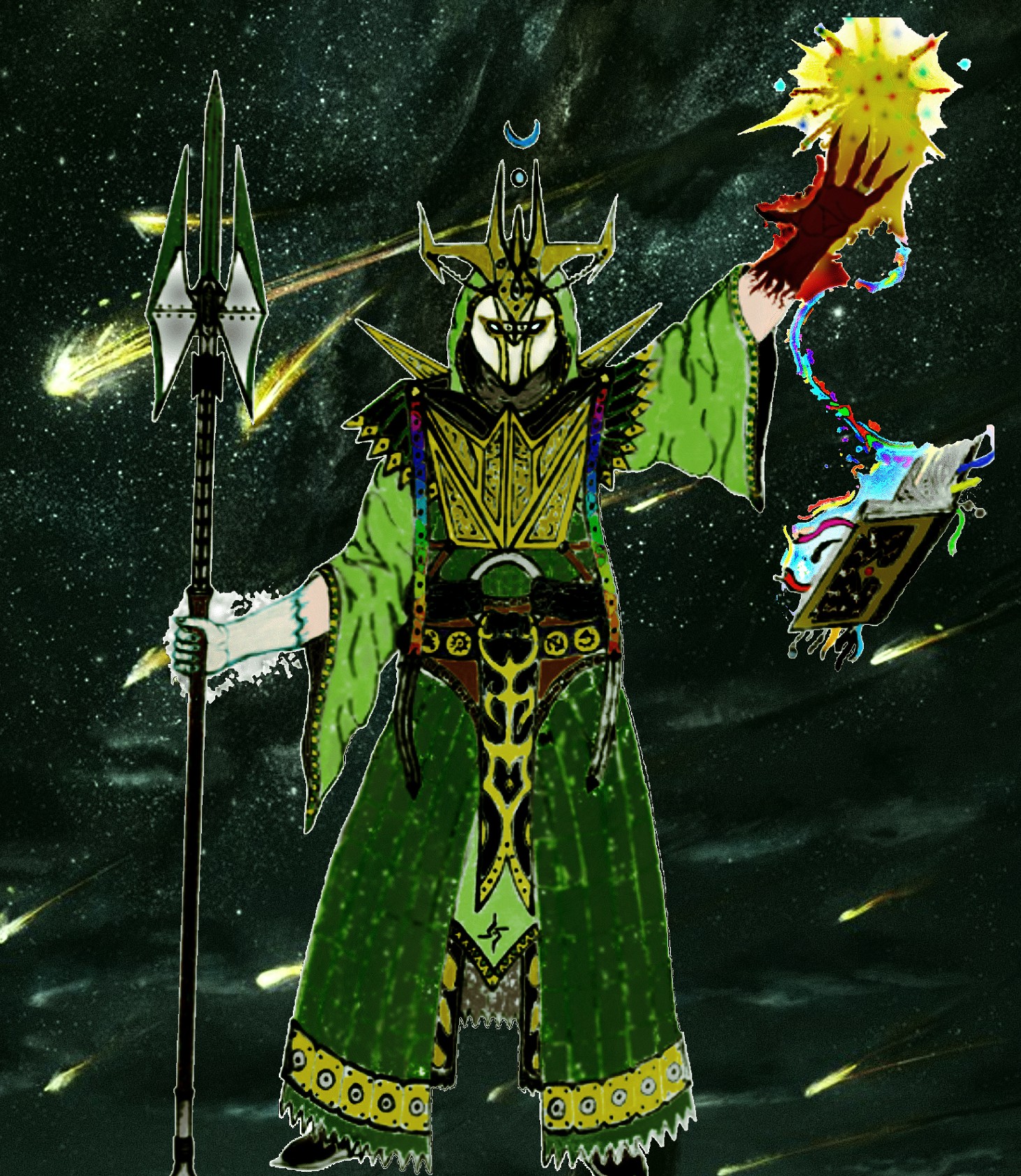

The Pantheon of Sin
When the Dragon War began, it was at the behest of 7 gods who stepped through the dimensional rift that reignited magic upon the world of Pryxis. These 7 Gods from various pantheons and core practices were the very first entities to respond to the call of desperation made by Pryxis the Archmagus.
The Seven Gods were eventually granted the names of the seven primal sins by the Draconic Imperium with the intentions to demoralize the masses - this of course, backfired, as the mortal masses of the world of Pryxis rallied around the idea that if the Dragons considered their survival and freedom a sin, then that is what they would embrace.
Thus, each god corresponds with a primal sin that the people of Pryxis associate not only their actions during the Dragon War, but also the powers they hold over the basis of reality and within the souls of mortalkind.
The Rift & Reawakening
Before the seven sins came to the world of Pryxis, their arrival was foretold by a deafening, booming crack that could be heard around the world - with a wave of multicolored blue fire that spread to every corner of the realm.
Soon, the booming sound was found to be sourced from a crack-like rift in the sky above the "Hand of Pryxis" - the 5 mountains where the Megapolis now stands - where a myriad of rainbow lights and an aurora of energy could be seen pouring from the opening.
Soon after, the seven gods flew through the rift, followed by legions of outsiders and supernatural creatures to fight off the Draconic Imperium - this signaled the beginning of the Dragon War for all mortalkind across the world.
Divine Compact
During and After the Dragon War, the Seven Sins have collectively worked together to ensure the protection and safety of the people of Pryxis - but on one condition: They would receive the majority of worship from the people of Pryxis on behalf of each of their respective pantheons.
This meant that if one were to adhere to any of the gods from a pantheon that held one of the seven sins, that sin would receive power for the worship of that particular pantheon. This would allow the seven sins to maintain continuous vigilance upon the world of Pryxis, while still allowing their respective pantheons to receive worship while they gain the majority of power from the faith. The masses of Pryxis agreed to this compact, and now dutifully follow the Church of the Seven Sins.
Of course, this leads to many individual and personal conflicts between the Seven Sins, as they continuously struggle to maintain their own individual power. But because of the Divine Compact, worshipers of the Pantheon of Sin receive staggeringly powerful rewards for their faith.
Main Deities
Upon the world of Pryxis, the Church of the Seven Sins are established as the main globally recognized religious institution that provides the basis through which the corresponding pantheons of each god branch outwards.
Other belief systems and faiths exist throughout the world - especially those of individual racial deities and entities, but many are not as generally accepted nor practiced as the Pantheon of Sin.
One Church, Seven Heads
The Church of the Seven Sins is not led by one religious figurehead, but instead is split into seven separate houses - each of which is led by a High Presbyter (or Grand Priest) of that particular deific denomination.
Each High Presbyter acts as the current voice of their church's congregation (but not necessarily their deity) and acts to lead their faithful followers in acts of worship and belief befitting of their individual house. All official priests and clerics answer to the High Presbyter of their house.
In times where an individual house is facing duress or attacks to their religious integrity, the High Presbyter is the one to dictate the response - either by sending forth an officiated cleric, or if the need is immense, intervening themselves.
When the entirety of the Church of Seven Sins is in a state of emergency, the seven High Presbyters meet in secret to determine the appropriate response.
Yes, I'm powerful. That is not a boast, that is mere fact.
However, power alone could not turn the tide of war. You need tactics, you need commanders, you need help.
We created the Divine Compact to ensure that power was rightfully distributed.
-- Pryxis


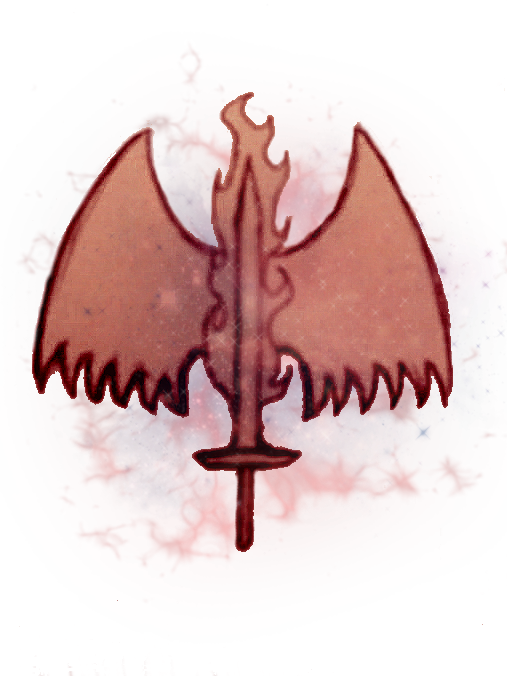
Zariel, Goddess of Greed
While many may know of Zariel from her original position as an Archduchess of Hell, in the several thousand years since her redemption, she has mantled a divine spark of her own. Her knowledge of warfare and of the Blood War that rages between the Nine Hells and the Abyss fueled her desire to continuously strive towards greater heights of power. Now, her state of godhood resides between that of a Hellish Archduchess and that of a Angelic Solar, walking the razor's edge of morality in an attempt to gain the powers and loyalty of both sides - to a limited, yet effective, degree.
Zariel represents the Divine Sin of Greed - as her thirst for warfare, power, and wealth has driven her to become a goddess of avarice incarnate. While she was redeemed from the service of Asmodeus and replaced by another Archduke of hell, she occasionally delves back into the Nine Hells to drive back the flow of the Abyss upon the multiverse. Because of this, both sides - whether infernal or celestial, look upon her with great lack of trust and discomfort, but few can deny her ability to bestow great wealth in exchange for power, and vice versa.
Zariel's Influence
Zariel extends her power over the sphere of warfare for the sake of personal gain. Her followers believe that power can only be derived from the continuation of conflict - seeking to emulate their goddess's actions when she was a Holy Avenger, as well as while she was within the service of the Fiendish Lord Asmodeus. When war or battle is waged for the sake of gaining ground, plundering spoils, or simply for the sake of bettering one's own combat prowess, Zariel watches with glee and instills those with the determination to continue forwards. While her desire to seek war is neither malicious nor benevolent, she smiles upon those who take no quarter in their actions - so long as they may benefit from such decisions.
While a Goddess herself, Zariel no longer directly serves within the ranks of the Nine Hells, nor does she abide by the restrictions of the Heavenly Choirs - instead choosing to fight on behalf of those who no longer wish to be amongst the damned, and fighting back the tide of the Blood War.
Although she denies the will of her previous master: Asmodeus, and is not entirely welcome amongst the angelic ranks, she seeks to bolster the armies of the Nine Hells with her own soldiers: divinely appointed knights that function as her specialized shock troopers. These individuals are souls who have sworn fealty to their goddess for greater power or wealth - and when these souls die, instead of being subsumed into a heavenly domain, or cast down to hell to become Devils or Demons, Zariel imbues them with her own blood, transforming them into superhumanoids who she uses to fight back the Demonic Incursions.
The followers of Zariel consider reaching these ranks to be amongst one of the greatest honors a mortal could be bestowed - as when they die, it will be against odds insurmountable, with powers beyond their imaginations, and for a cause that would protect the rest of the Multiverse.
Zariel's Goals
Zariel pursues a plan to instill the mortal masses with the drive to gain continuous power. This goal is secondary only to one: the supply of the greatest and most ruthless of warriors to the Nine Hells as either fiendish souls destined to become devils or Nether Knights of her own personal entourage - both sects of warriors are destined to combat the Abyss on her behalf. Only when the Blood War is over, will her goals be fulfilled.
Divine Relationships
Zariel has a turbulent relationship with other gods - as she still follows the lessons of Asmodeus that burn within her divine soul. She feels that many gods do not exert their powers in ways that could benefit themselves through aiding or hindering their followers. As many gods remain uninterested in mortal livelihoods, she feels resentment for those who do not interfere in their lives.
Zariel holds a particular fury towards Chemosh, as his influences in the unlife of mortal creatures - as well as his demonic influence - runs counter-intuitive to her goals and ideals. While Zariel does not resent the undead, she does feel their souls could be better rewarded in eternal battle, and not as semi-lifeless husks or fed to abyssal corruption.
Amongst the rest of the Pantheon of Sin, Zariel has always pursued a particular interest in Melchar. Her fascination with his pursuit to defend the material world, as well as his unrelenting prowess has led to more than one legend of their divine coupling.
Worshiping Zariel
Those who worship Zariel do so by continuously pushing their bodies and minds to their limits, filling their coffers and larders with treasure and wealth, and pursuing lives of luxury and power. Many of her followers may become savage warlords as much as they could be cutthroat politicians.
A common method of prayer and worship to Zariel is the practice of spilling blood - whether it be from the worshiper, or their enemies. When the blood is spilt, the act of it soaking the ground is as sacred as when it is pulled from a living being. And of course, the act of demon-slaying is an act all Zariel worshipers revel in.
Zariel's Forms
Walking the line between the Celestial Choir and the Fiendish Ranks, Zariel has been known to adopt many forms throughout the ages. Her most recent form is that of a Shaytan - a form of fallen angel that has not lost all touch with its heavenly nature.
Zariel can appear to any of her congregation through various forms and means, and almost always in a form most pleasing to the individual and more aptly able to pique their interest.
When Zariel appears to her followers, she can appear in the following forms:
Avatars
Zariel often appears as a fiery haired, scarlet-winged solar clad in golden armor that has been charred by fire and soot. Her eyes are almost always streaming tears of blood, and her pale skin is often etched with glowing gold sigils of both celestial and fiendish languages.
When she appears before those who are of a good-willed nature, her form will often reflect her celestial nature more than her fiendish one - with her wings becoming a pink - to - white hue, and her hair taking on a more flowing white fire consistency. To those with more inherently evil intentions, she sometimes adopts the blackened horns and cracked skin of her devil nature, complete with darkened blood.
Zariel can also appear as a handful of other creatures in more subtle fashions: her favorites include raptoral hawks or vultures, a black and red hooded maiden woman adorned with fine jewelry, or sometimes as a mere raucous Imp. She may even adopt any traits of these creatures while within her semi-angelic state, such as a vulture's head, clawed extremities, or raptoral eyes.
The Church of Zariel
The Church of Zariel - known also as the House of Blood - is the 1st faction under the Church of Seven Sins, owing direct faith to the Goddess of Greed.
Legends: The Nether Knights
Stories tell of a secret sect of the Church of Zariel known as the Nether Knights.
These individuals have shown outstanding favor with the Goddess Zariel, and seek to maintain her influence in the world through their direct actions.
The following Information can be revealed after a successful religion check:
- (Religion DC 20) Nether Knights are said to be some of the most vicious arbiters and extortionists, with many knowing the inner workings of laws and dictates - which they bend and mold to fit their needs, often times functioning as unparalleled lawyers or agents of under-handed politics.
- (Religion DC 25) Tales tell of their brutal yet efficient combat styles; regularly engaging in grisly public acts of violence, which they then argue the legality of their actions to their benefit.
- (Religion DC 30) Stories abound that the Nether Knights' rite of initiation involves succeeding in battling a devil out of a soul-deal in a way where they gain the most power; by absorbing the devil's soul, and their abilities.
I knew Zariel from before she threw off her infernal pact with Asmodeus.
I suppose in the eons since then, she rose to a new station that molded her into the divine she is today. She always desired more - and I'm glad she got it.
-- Pryxis
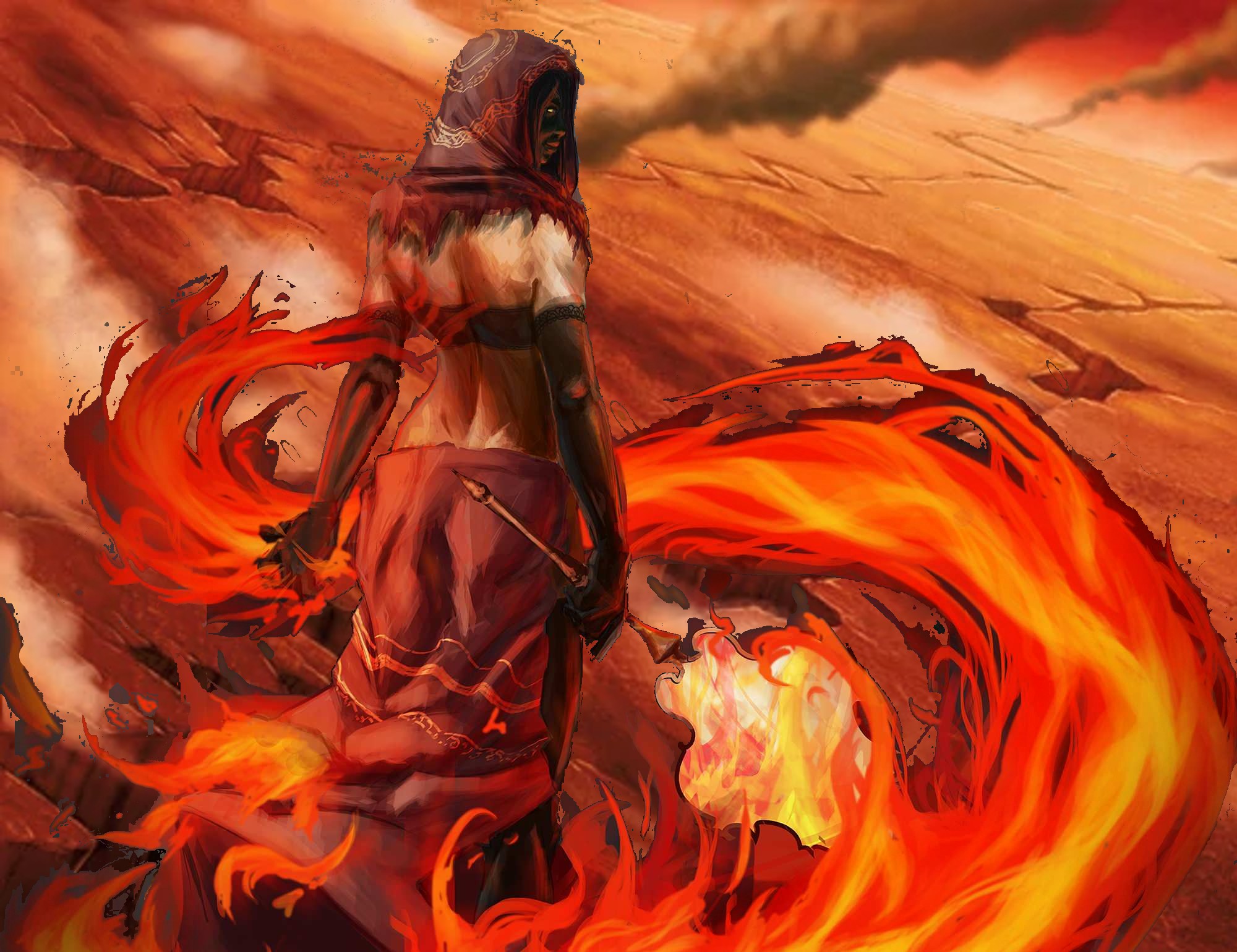

Zariel's Champions
- Alignment: Usually lawful, often evil
- Suggested Classes: Bloodhunter, fighter, paladin, rogue, warlock
- Suggested Cleric Domains: Blood, Law, Light, War, Wealth
- Suggested Backgrounds: Charlatan, criminal, noble, outlander, soldier
- Associated Pantheons: Faerûnian pantheon, Archdukes of the Nine Hells
Most champions of Zariel pursue personal gain in some form, whether through proving in battle, or socio-political mind games. They are often interested in forbidden magics or unethical practices that they see as the ultimate reward and exertion of personal power.
Zariel's Favor
Zariel seeks out those who endure a life of challenge and wealth - pursuing their own elevation above others as the greatest proving of one's greater will. However, even when a follower of Zariel gains her favor, it is never without a form of proving. She will often times require a challenge of her most devoted - a test of their willpower and determination. What caused Zariel to turn her gaze upon you, and what test did you pass or are undergoing to prove yourself?
Zariel's Favor
| d6 | Circumstance |
|---|---|
| 1 | You slew someone in a higher position of power than you and took their role. |
| 2 | The act of gaining wealth from a family member through cutthroat or underhanded means. |
| 3 | In an act of self-interest, you stole a powerful artifact from it's unworthy owners. |
| 4 | You study dark or forbidden practices to further your own power. |
| 5 | You once slew a demonic entity in the name of Zariel. |
| 6 | You continuously pursue battle as a means to better yourself. |
Devotion to Zariel
Zariel encourages power and self-interest, so it is no surprise that her champions follow her for their own interests as well. As a follower of Zariel, consider the ideals on the Zariel's Ideals table as alternatives to those suggested for your background.
Zariel's Ideals
| d6 | Ideal |
|---|---|
| 1 | Devotion. My devotion to my goddess is more important to me than what she stands for. (Any) |
| 2 | Pragmatism. The ends justify the means; I do whatever it takes to win. (Evil) |
| 3 | Wealth. Materialism is what makes the world go round, and i will make it move to my whim. (Neutral) |
| 4 | Power. Those who desserve power are those who can effectively wield it. (Any) |
| 5 | Dogma. Rules and Laws are set by those who can effectively exert their will. (Lawful) |
| 6 | Immortality. Those who discover nature's darkest and direst plunder earn the right to live forever. (Evil) |
Earning and Losing Piety
You increase your piety score to Zariel when you expand the goddess's influence in the world in a concrete way through acts such as these:
- Defeating a powerful creature or humanoid viciously.
- Gaining power or wealth regardless of the consequences.
- Increasing the influence of the Nine Hells, or hindering the efforts of the Abyss.
Your piety score to Zariel decreases if you diminish Zariel's influence in the world, interfere with her goals, or lose power through acts such as these:
- Giving away your wealth or power with no greater repayment.
- Failing to carry out a challenge or sworn vendetta.
- Slaying or Exorcising devils, or hindering their recruitment of souls for the Blood War.
Zariel's Devotee
Piety 3+ Zariel trait
As a devotee of Zariel, you have power over blood and greed. You can cast either bleed (PM) or fool's gold (PM) (choose which when you gain this trait) a number of times equal to your Charisma modifier (minimum of once), you only require blood as a material component for this spell. You regain all expended uses when you finish a long rest.
In addition, you know the conjure wealth (PM) cantrip. Charisma is your spellcasting ability for these spells.
Zariel's Votary
Piety 10+ Zariel trait
You can cast incite greed or vampiric touch (choose which when you gain this trait) requiring only blood as a material component. Once you cast the spell in this way, you can't do so again until you finish a long rest. Charisma is your spellcasting ability for this spell.
Zariel's Disciple
Piety 25+ Zariel trait
You can cast creation or crimson theft (PM) (choose which when you gain this trait) requiring only blood as a material component. Once you cast the spell in this way, you can't do so again until you finish a long rest. Charisma is your spellcasting ability for this spell.
Champion of Blood & Greed
Piety 50+ Zariel trait
You can increase your Constitution or Charisma score by 2 and also increase your maximum for that score by 2.
Myths of Zariel
Zariel appears in many myths and legends, often times as a villain or foil to other gods or champions. The stories told by her followers speak of her avaricious nature, her bloody prowess in battle, and the stories of her cunning.
The Divine Vault. Legends tell of a massive extradimensional larder in which Zariel keeps her most treasured wealth and trophies from her conquests across the multiverse. Amongst her ever-expanding collection is a vast amount of coinage, gemstones, art objects and magic items. It is said that many would-be thieves find ways to teleport to her Divine Vault, only to become trapped with no way out. These thieves get what they rightfully deserve: a slow starving death amidst the treasures they so deeply coveted.
Lakosa, the Lavacious. In the story of Lakosa - a legendary arcane trickster - managed to find a backdoor entrance to Zariel's Divine Vault through the Astral Plane. He proceeded to venture much further into her larder than any who had tried before, memorizing the route he had taken to get back out. He stole away from her vault a century's worth of various bits of wealth, but none so valuable as the Warhammer of Zariel - the same maul wielded by Zariel while in the service of the Nine Hells. So impressed by these acts, Zariel choose to ascend him as her chief Nether Knight - an example as to the greed necessary to foil even a goddess.
The Smiting of Alkaszi. Alkaszi was once a Pit Fiend who served side-by-side with Zariel during her reign as the Archduchess of Avernus. He spoke of Zariel's pitiful nature and how her cowardice drove her from continuing the fight in the Blood War, and that after her celestial nature was returned to her, she had lost all cunning and drive to achieve victory. Hearing such blasphemies upon her name, Zariel descended back into the Nine Hells and with one action, smote Alkaszi and petrified him into a statue of bleeding gold upon the fields of Avernus. A lesson to all that her fiendish nature was not wholly forgotten, merely ascended to a higher standard.
Birth of the Merchant's Guild. It is rumored that the very first founders of the Merchant's Guild upon Pryxis were led by a man who was so devoted to the ways of Zariel, that she bestowed to him the means to not only lead the Merchant's Guild, but to craft items that would solidify their status (quite literally). She taught him the means to create gilded gauntlets that could petrify their unwilling payers and enemies into statues of solid gold - giving them the means to not only instill the proper respect within the masses, but also to provide them with continuous income. Stories still tell of the leaders of the Merchant's Guild, each donned with a singular black and gold glove upon one of their hands.
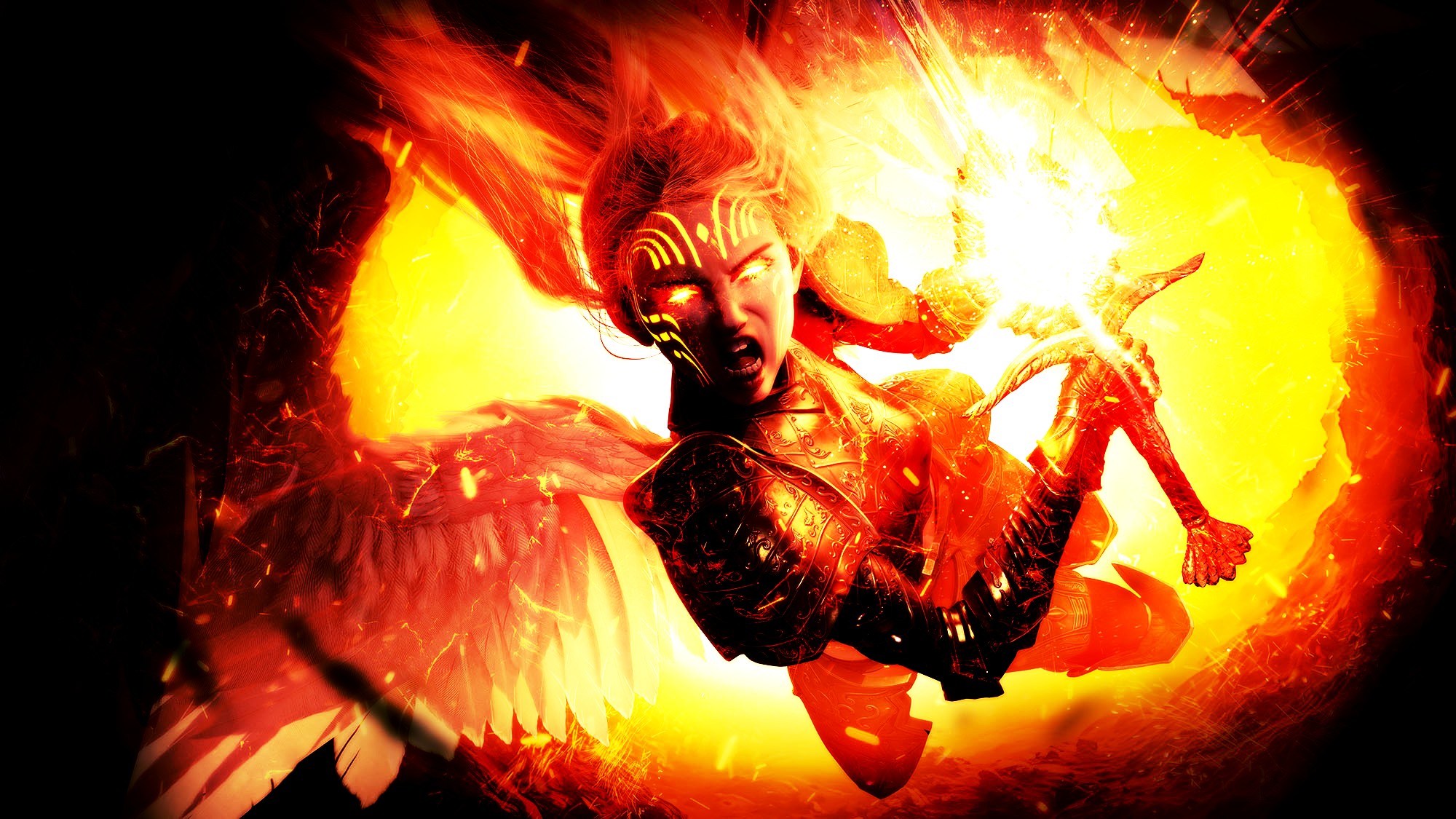

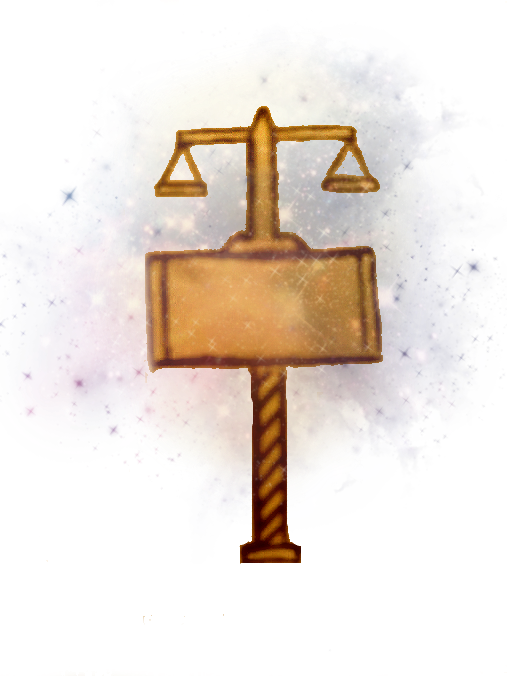
Tyr, God of Pride
The protector of man, and the bulwark of justice, the maimed god Tyr represents the propensity of mortalkind to remain steadfast against overwhelming odds. Tyr came to the world of Pryxis to heed the dying whims of those who sacrificed their lives to protect their loved ones and strangers alike. His will empowered the masses with the undying fealty to their families and friends, and instilled within their hearts the embers of hope. All those who armed and armored themselves knowing that they were the last line of defense against death and those they loved were pushed forwards with the might of Tyr, and they delivered justice like a hammer against steel: powerful and calculated.
Tyr represents the Divine Sin of Pride - as his determined nature and unwillingness to back down against great odds has coined him as a being of unbridled honor. Belonging to the Norse Pantheon, his messengers and vassals embody the honor-bound and battle-hardened valkyries and the souls of Valhalla.
Tyr's Influence
Tyr's power can be seen in those who fight with a sense of ceaseless honor and for the sake of justice. He is evident in the promises made and kept, the fairness of equality and equity, and the protection of the weak. In his eyes, the charge of upholding promises and the defense of others is life itself.
While war is a part of life, Tyr's focus lies within those who fight only to protect and defend. The act of conflict ultimately leads to casualties, loss, and sorrow on all sides - and his aim is to guide those who seek the path of protection, honor, and discipline. A soldier without cause is nothing but a savage, a warrior without a goal nothing but a criminal, and a leader with no honor is only to a coward.
The truest of soldiers are those who go to war not for gain or bloodshed, but to shield their allies and carry out the will of those far back home. They are the line in the sand, the impassable wall of will, and the final stand against the enemy - and the winds of time will echo with the voices of their victory and courage.
Although he fully empowers those who march off to war, Tyr also finds value in the small acts of kindness and charity that instill hope in the lowly and infirmed. Every small act of aid, equality or protection can bundle into an avalanche of unbridled will - which can lead to whole communities standing against oncoming threats from without and within; united as one voice, one mind and one body.
Tyr's Goals
Tyr seeks to bring a sense of fairness and justice back to savage or lost masses of the world. This comes with the intent to stoke the flames of honor and righteousness within those who seek salvation through both protection as well as battle. He believes that without a sense of honor, mortalkind may as well delve back into the dark ages of brutality and primal chaos - an idea he abhors with his very being. Tyr encourages those who follow him to uphold the laws of their lands, strive for physical and mental discipline, and to remain steadfast against threats and temptation of dishonesty.
Divine Relationships
Tyr's relationship with the rest of the gods is amicable at best, but when ruthlessness, secrecy, or dishonesty are in play, his feelings towards their actions can become quite heated and disapproving. He feels that gods should strive to guide mortalkind in the ways of self-improvement through honor and honesty, and when these goals are not met according to his vision, it represents a fundamental failing of his personal efforts.
Tyr holds a mixture of respect and resentment towards Zariel: respect for her ability to coax mortals towards acts of power, but resents her use of souls to fuel a hellish war. While he does acknowledge her power and the honorable goal of ending the Blood War, he finds that the spirits of once-great and honorable warriors are soured under her tutelage.
Tyr finds that Melchar is a fine battle-brother, but his eagerness to tear down established laws in the name of freedom comes at a great price. Believing Melchar to lack the foresight necessary (or the patience) to see the inherent fury of his actions has led to more than one occasion of the two Gods clashing over their respective goals.
Mishakal holds a special place within Tyr's soul as a shining beacon of the hope and healing ability inherent in all mortalkind, and her actions of aid and her nurturing nature warm the Maimed God's heart. Chemosh on the other hand, Tyr utterly despises.
Worshiping Tyr
Tyr's worshipers tend to include those of strong moral compass - particularly knights, paladins, judges, lawyers, and those seeking justice for wrongdoings. Churches of Tyr are highly organized and are strong in the more civilized lands of the World. Those who follow Tyr are well known for never refusing service or aid to the faithful or needy when they are in distress. Followers of Tyr are expected to show fairness, wisdom, and kindness to the innocent, and never enforce an unjust law no matter the consequence.
A common form of worship and prayer amongst followers of Tyr includes the act of charity to all those in need, and never turning down a request from someone truly needing help. His followers believe that through these acts, they embody Tyr himself upon the world, and that the act will ripple through society to create a flowing effect of good will.
Tyr's Forms
As a god of protection and war, and hailing from the realm of Ysgard, Tyr often appears to many who follow the honorable and trustworthy path of the loyal knight. He often appears in forms befitting a being of his noble stature.
Tyr appears to those of his followers who cry out for protection or guidance in times of extreme hardship or toil, and the guardian god never refuses when the need is dire.
When Tyr appears to his followers, he can appear in the following forms:
Avatars
Tyr appears as a burlesque one-handed warrior, whose eyes are either covered with bloody bandages or with his eyes missing. He is usually donned in golden studded armor of finest craft, and his right hand is either un-bandaged or covered with a shield-bound stub. His longsword Justicar is never away from his side.
When Tyr approaches those who call upon him, his eyes (or eye, depending on his form) often glow with the color of brightly heated steel, but often fade away to empty sockets before he vanishes. His brow often holds a halo of faint embers and the sparks of heated metal. In times of extreme duress, he will manifest a pair of fiery wings composed of aurora like flames.
Tyr also can mantle the form of a variety of other creatures when he appears to his faithful - often times appearing as a fierce and loyal wardog, a burly yet peaceful bear, or the form of a goshawk. Sometimes he will appear as an old veteran soldier of any race, creed, or gender - always covered in simple worn garments and blind.
The Church of Tyr
The Church of Tyr - known also as the House of Hope - is the 2nd faction under the Church of Seven Sins, owing direct faith to the God of Pride.
Legends: The Balance Keepers
Stories tell of a secret sect of the Church of Tyr known as the Balance Keepers.
These individuals have shown outstanding favor with the God Tyr, and seek to maintain his influence in the world through their direct actions.
The following Information can be revealed after a successful religion check:
- (Religion DC 20) Balance Keepers are an incredibly elite order of wise, knightly individuals who embody the concept of righteousness. Some serve as judges or magistrates, dispensing even-handed justice within large cities, while others travel to chaotic or befouled lands, acting as crusaders in the name of law and order.
- (Religion DC 25) It is said that the Balance Keepers can never turn down a true call for help - no matter the individual's creed, background or desires.
- (Religion DC 30) Stories tell of a supernatural ability where Balance Keepers are able to peer into the hearts and souls of all creatures: innately able to determine the truth through sight alone - and forcing the truth out of others.
The maimed god... a prime example of how even gods must answer to higher powers when they step out of line.
He's lucky to still exist after Ao, Fenrir, and the Demon Lord. I suppose his faith in himself is drawn from the hope of others.
-- Pryxis
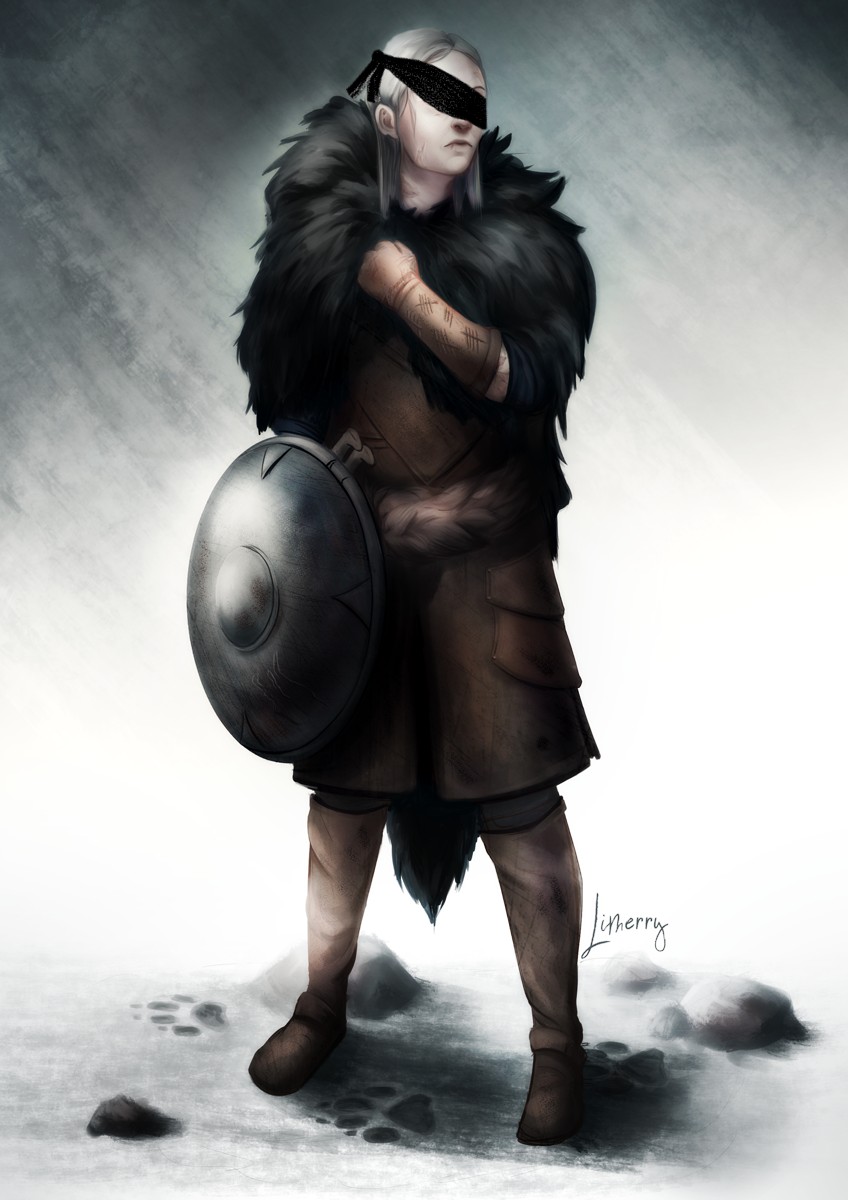

Tyr's Champions
- Alignment: Usually lawful, often good
- Suggested Classes: Cleric, fighter, monk, paladin, wizard
- Suggested Cleric Domains: Forge, Light, Order, Protection, War
- Suggested Backgrounds: City watch, courtier, folk hero, knight, soldier
- Associated Pantheons: Faerûnian pantheon, Norse Pantheon
Many champions of Tyr seek out sources of evil and darkness to burn away from the fabric of the world, trusting in the seemingly infallible honor of their god. They often pursue great acts of kindness and never turn down a challenge - either towards themselves, their god, or on behalf of others.
Tyr's Favor
Tyr selects the tried and true warriors who have endured a life of hardship and maintain a steadfast sense of unbound honor. When an individual gains the favor of Tyr, it is often a sign that not only are they fit to bear his pride, but also the weight of other's hardships upon their shoulders. What drove Tyr to turn his eyeless sight upon you, and perhaps what charge do you seek to uphold?
Tyr's Favor
| d6 | Circumstance |
|---|---|
| 1 | You were born amidst the ruins of a once great battle. |
| 2 | You have shown great courage, even through a losing battle. |
| 3 | You once challenged an unjust opponent, but showed them honor in trial by combat. |
| 4 | You continuously strive to uphold the honor of your fallen comrades. |
| 5 | You once slew an undead entity in the name of Tyr. |
| 6 | Despite having been knocked down repeatedly in life, your refusal to remain down has fueled your pride. |
Devotion to Tyr
Following Tyr means committing oneself to the ideals of honor, pride, and respect - towards yourself, your comrades, and your enemies. As a follower of Tyr, consider the ideals of the Tyr's Ideals table as alternatives to those suggested for your background.
Tyr's Ideals
| d6 | Ideal |
|---|---|
| 1 | Devotion. My devotion to my god is more important to me than what he stands for. (Any) |
| 2 | Courage. No fear or pain can turn me away. (Any) |
| 3 | Honor. I behave nobly and keep my promises. (Lawful) |
| 4 | Protection. I face the horrors of darkness so the common people don't have to. (Good) |
| 5 | Loyalty. Battle forms bonds that are more real and lasting than the ties of love or kin. (Neutral) |
| 6 | Respect. I respect the wishes of any and all. (Lawful) |
Earning and Losing Piety
You increase your piety score to Tyr when you expand the god's influence in the world in a concrete way through acts such as these:
- Carrying out a battle, duel, or fight fairly and with pride.
- Overcoming long and tedious odds honorably.
- Increasing the influence of Ysgard and the Norse Gods, or destroying evil entities such as undead.
Your piety score to Tyr decreases if you diminish Tyr's influence in the world, interfere with his goals, or lose power through acts such as these:
- Fighting unfairly, rigging a duel or challenge, or battling without honor or respect to your enemies.
- Harming the innocent or refusing the protection of the weak.
- Aiding those who work against the Norse pantheon, or helping evil entities.
Tyr's Devotee
Piety 3+ Tyr trait
As a devotee of Tyr, you have power over hope and pride. You can cast either compelled duel or heroism (choose which when you gain this trait) a number of times equal to your Charisma modifier (minimum of once). You regain all expended uses when you finish a long rest.
In addition, you know the spectral shield (PM) cantrip. Charisma is your spellcasting ability for these spells.
Tyr's Votary
Piety 10+ Tyr trait
You can cast either beacon of hope or crusader's mantle (choose which when you gain this trait). Once you cast the spell in this way, you can't do so again until you finish a long rest. Charisma is your spellcasting ability for this spell.
Tyr's Disciple
Piety 25+ Tyr trait
You can cast either holy weapon or superheroism (PM) (choose which when you gain this trait) Once you cast the spell in this way, you can't do so again until you finish a long rest. Charisma is your spellcasting ability for this spell.
Champion of Hope and Pride
Piety 50+ Tyr trait
You can increase your Strength or Constitution score by 2 and also increase your maximum for that score by 2.
Myths of Tyr
Tyr appears in many stories and tales, more often than not as a guiding mentor, a honorable warrior, or a holy guardian.
The Binding of Fenrir. Long ago, the Aesir decided to bind Fenrir the Dread Wolf (or Kezef the Chaos Hound) - a primordial titan and son of Loki, with bindings crafted by the ancient dwarven gods that could not be broken. Fenrir would only allow the bindings if one of the gods placed his hand within his mouth and promised not to move. Tyr thrust his hand in without hesitation, and, when the bindings appeared, Fenrir bit his hand, wrist and a good portion of forearm off. Tyr kept the stump of an arm as a mark of pride.
Tyr's Blinding. At the onset of the Time of Troubles, Tyr's eyes were put out by Lord Ao for failing to notice the theft of the Tablets of Fate - a twin set of divine stone tablets balancing the forces of law and chaos, which held the names and purposes of every god and primordial in existence - and for questioning the justice of Ao's response. Tyr stands by his decision to question the overgod, and has since learned to "see beyond sight", learning to peer directly into the hearts of mortals and immortals alike - knowing if the words they speak are truth, even when clouded by magic.
Heroic Sacrifice. At some point in ages long ago, Tyr once fought off a demonic incursion that threatened to overcome the upper realms of the cosmos. During the eve of the battle, a Demon Lord pierced his heart with an anathematic weapon and slew him, but not before Tyr could thrust his own sword through the Demon Lord's chest. Several years later, Tyr remanifested as the legend of his heroic deed spread far and wide - a testament to the iron mettle and honor the god so pridefully embodied.
Agnar, Shield-Father. Once, ages ago, a man by the name of Agnar had his home and city razed to the ground by a Mad King. Agnar returned to find the city in cinders and ruins, with no survivors. Overcome with grief, but a burning passion for justice, he gathered bits of metal and coiled iron from the razed city, forging them into a shield to carry with him into battle - stating that his people would never leave his side again. Agnar hunted down each of the Mad King's vassals and smote them in single combat, slowly and painfully fighting his way up the King's Court. After a decade of toil and strife, Agnar finally challenged the Mad King to a trial by combat for all the sins he committed. Armed with only his shield, Agnar slew the Mad King and plunged the shield through his neck, decapitating the draconic lord. Legends say his shield rang with the victory cries of his people when the shield pierced the neck of the corrupt king.
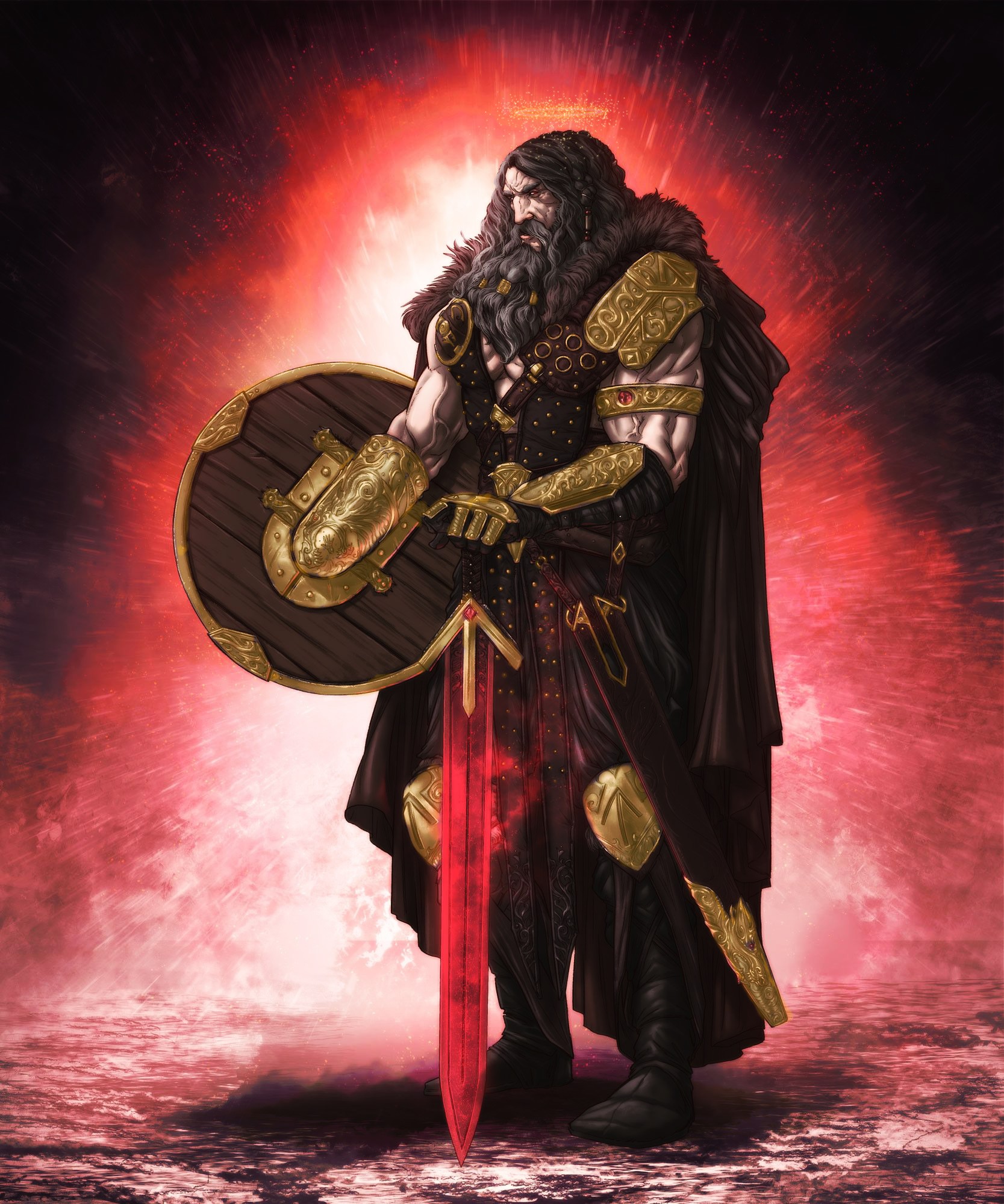

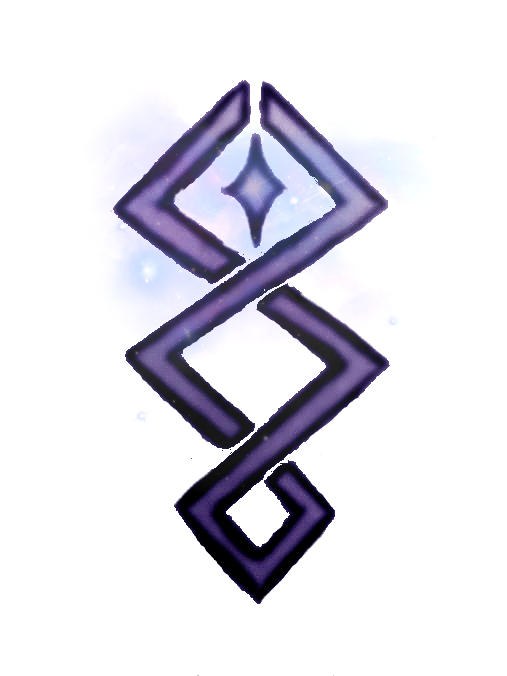
Melchar, God of Wrath
A reckoning being of the forces of nature and rage, Melchar is the god of storms, freedom, and the ineffability of the mortal soul. Melchar embodies the aspects of fury and righteous anger - the fulcrum upon which determination and action take place. Those who feel a yearning to deliver swift and unyielding retribution for crimes and pain are fueled by the rage of Melchar. When a mortal lashes out with intense hatred towards those who have wronged them, the fury within them stirs into an unrelenting storm to be loosed upon the deserving - with Melchar blowing the winds of that storm. Like a storm, the fury of Melchar cannot be contained nor calculated, and the rage he extends ensures almost absolute destruction.
Melchar represents the Divine Sin of Wrath - as the wanton ruin and lightning-like destruction he unleashes is all but subtle or contained, and holds no salvation or retreat for those who lie at it's edge. Descended from the Mulhorandi pantheon, he stands in stark comparison to his pharaonic brethren as a force of nature's fury, the blade of ruin, and breaker of chains.
Melchar's Influence
Melchar is, first and foremost, a deity of storms, rainfall, and the destructive forces of nature - but this does not limit him to mere destruction, as he is also responsible for rainfall, the safe passage through seas and waterways, and the retributive wants of mankind.
As a breaker of chains and embodiment of the desire for freedom, Melchar finds all those who conduct acts of slavery, servitude, or subjugation to be wholly abominable. Those who follow in his footsteps lead lives of wandering ambitions and enact great acts of vengeance against those who would overpower or subdue the less fortunate. These furious acts are almost always carried out with overwhelming malice and without pity.
In the hearts of all mortals lies a spark that festers and crackles against the constraints of their lives - and Melchar gladly stokes that spark into a sprawling, earth shattering storm that breaks the shackles of injustice.
Melchar is a god of primarily rage, war, and destruction; although, his influence also extends to the practice of honoring the souls of those who have come before. This leads many worshipers of his congregation to lead lives of contemplation of the acts of their ancestors and the forces of nature, striving to temper their rage with the power of their forebearers.
Melchar's Goals
Melchar finds pleasure and satisfaction in the fulfillment of vengeance and fury upon those who rightfully deserve it. He seeks to instill the drive and force in those who fear to go the extra step to reach a truly deserving end goal. He embodies the fury of the storm - good and ill - in that he brings destruction as well as restoration, as a swell brings lightning, thunder and flood as well as light, wind, and rainfall. He seeks to destroy the limits set upon mortality; whether physical, mental, emotional, or spiritual.
Divine Relationships
Melchar is a stern, unrelenting individual - yet holds much compassion for those who have endured much suffering. His tenacity and drive to continuously break the limits set upon him and his followers has earned him a terse and brief reputation amidst the rest of the pantheon.
Among the pantheon of sin, Zariel and Tyr hold the most cordial respect from Melchar. Zariel piques Melchar's interest in savagery and battle fury, whilst Tyr has earned his begrudging respect as a fierce and loyal fighter dedicated to his followers. This being said, Melchar does not abide by either of the lawful god's ideations of rules or strict adherence to codes, and finds them to be wholly unreliable on that front.
The rest of the gods fail to meet the standards of Melchar's fast and furious drive, and perhaps the only one he can hold a cool conversation with (aside from Zariel and Tyr) would be Hex - as the eldritch entity does not talk much in the first place, and holds many secrets he has chosen to exploit for his followers' sakes.
Worshiping Melchar
As a god of storms, swells, and turbulence, Melchar is often prayed to when individuals cross treacherous seas and landmasses alike that hold dangerous trials - not for the sake of protection, but rather in the name of instilling the proper fury to breech the threats at hand.
Individuals who challenge the status quo and unjust rulings of society, or those who go to the extreme to break the limits set upon them are the most deserving of his favor. Earning his favor is as much of a gamble as a coin flip, as the need for his interference may be met with overwhelming power, or an indirect discharge towards all individuals involved.
Many followers of Melchar embrace the act of willful exile - the practice of wandering from town to town on the borders of civilization to embody the chaotic nature of their god. When those who are limited by laws and unjust ruling, especially those who are enslaved, indentured, or bound (whether legally or illegally), the ire of his followers cannot be contained. Those who are bound are set free, and their captors punished wholly and without mercy.
Melchar's Forms
Hailing from the Mulhorandi (Egyptian) pantheon, the god of rage and freedom often appears to those who are bound and chained, and those who are in most need of their anger being fulfilled. He often appears in forms that strike fear and awe in those who witness him.
Melchar appears to those who shout his name as well as those who whisper it through hushed cries and tears. He instills those who call upon him with the energy and power to break their limitations.
When Melchar appears to his followers, he can appear in the following forms:
Avatars
Melchar appears as a slim yet chiseled desert warrior, with eyes that glow with an inner light akin to sparks of electricity. He normally sports flowing violet and bronzen battle regalia that leaves his hands and feet exposed and open to the elements - reminiscent of his inability to be chained or bound. His cape billows and flows seemingly on its own at all times.
When before those who have invoked his name or charge, he adopts a halo of helixed lightning, and manifests a pair of wings composed of fog clouds and metallic dust. His hands and feet periodically discharge electric arcs and sparks, and at times the arcing lightning will show his skeleton in an x-ray like fashion.
Melchar can additionally take the form of various other creatures when needing to remain subtle. A few of his favored creatures to appear as include the steppe eagle, the desert wolf, and even the tiny-yet-hyper-lethal sand cat. He also often appears as an emaciated slave with broken shackles upon their ankles, wrists, and neck - sometimes draped in flowing chains.
The Church of Melchar
The Church of Melchar - known also as the House of Rage - is the 3rd faction under the Church of Seven Sins, owing direct faith to the God of Wrath.
Legends: The Manumit Warriors
Stories tell of a secret sect of the Church of Melchar known as the Manumit Warriors.
These individuals have shown outstanding favor with the God Melchar, and seek to maintain his influence in the world through their direct actions.
The following Information can be revealed after a successful religion check:
- (Religion DC 20) Manumit Warriors are fiercely determined individuals dedicated to wandering the furthest corners of civilized society, aiding and freeing those who may be chained or bound in any way - whether enslaved, indentured, or trapped - the Manumit Warrior will never allow oppression to thrive.
- (Religion DC 25) It is said that behind every great revolution, rebellion or coup is a Manumit Warrior that has fanned the flames of the enslaved or downtrodden.
- (Religion DC 30) Stories tell of the resistance of the Manumit Warriors towards attempts to be captured or bound; with shackles and chains failing utterly, terrain bending to their whims, and even magic faltering when attempting to hold them.
Now him - he has always been an interesting individual. You could not find a better example of what wild freedom can do.
Untethered freedom can be as destructive as it is liberating. Melchar has found that being free is sometimes a prison unto itself.
-- Pryxis
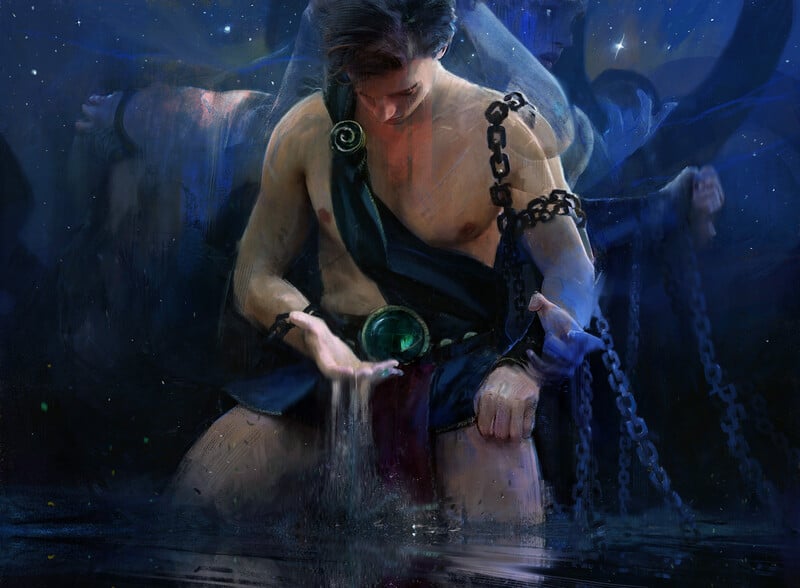

Melchar's Champions
- Alignment: Usually chaotic, often neutral
- Suggested Classes: Barbarian, fighter, monk, sorcerer, warlock
- Suggested Cleric Domains: Ancestral, Elementalism, Rage, Tempest, War
- Suggested Backgrounds: Athlete, folk hero, outlander, sailor, soldier
- Associated Pantheons: Faerûnian pantheon, Mulhorandi (Egyptian) pantheon
Most champions of Melchar are devoted to the art of freedom and warfare, choosing to express themselves through acts of power and vengeance. They often pursue the life of a wanderer or mercenary, spreading the word of their god in their wake.
Melchar's Favor
Melchar choses champions who are fierce and unwavering, like the oncoming storm. Yet also choose those who have studied or exercised their personal powers in ways to supersede their own limits and the bindings put on them by society, their own body, or others around them. What actions or events have transpired around you that have earned you the mighty glare from the god of wrath?
Melchar's Favor
| d6 | Circumstance |
|---|---|
| 1 | You were born amidst a great storm that destroyed most of your village, through sheer willpower, you survived. |
| 2 | You once were struck by lightning, and managed to live to tell the tale. |
| 3 | In an act of unbridled fury, you slew your captors and escaped imprisonment. |
| 4 | While in a daze, you violently slew a monstrosity through sheer force of strength. |
| 5 | You once freed a multitude of slaves in the name of Melchar. |
| 6 | You intensely train to be better than the day before. |
Devotion to Melchar
Following Melchar means abandonment of the laws of civilization. Your laws are those of the rules of nature, rage, and your ancestors. As a followers of Melchar, consider the ideals of the Melchar's Ideals table as alternatives to those suggested for your background.
Melchar's Ideals
| d6 | Ideal |
|---|---|
| 1 | Devotion. My devotion to my god is more important to me than what he stands for. (Any) |
| 2 | Savagery. I express my rage through combat. (Chaotic) |
| 3 | Fury. I am the storm and will not be denied. (Chaotic) |
| 4 | Hate. Hatred of my foes and captors emblazons my heart and gives me power. (Any) |
| 5 | Nature. The beauty and power of nature fills me with a sense of awe and wonder. (Neutral) |
| 6 | Freedom. I yearn to wander as the wind. (Chaotic) |
Earning and Losing Piety
You increase your piety score to Melchar when you expand the god's influence in the world in a concrete way through acts such as these:
- Freeing the bound, enslaved, indentured or broken.
- Enacting extreme vengeance for a significant wrong dealt to you or those you cherish.
- Increasing the influence of the Mulhorandi pantheon and the pharonic ancestors, or smiting those in positions of power.
Your piety score to Melchar decreases if you diminish Melchar's influence in the world, interfere with his goals, or lose power through acts such as these:
- Participating in slave trade, indentured servitude, or the exploitation of the weak.
- Allowing a display of disrespect or wrongdoing to go unpunished.
- Aiding those who work against the Mulhorandi gods, or blindly submitting to those in power.
Melchar's Devotee
Piety 3+ Melchar trait
As a devotee of Melchar, you have power over rage and wrath. You can cast either thunderous smite or violent reflection (PM) (choose which when you gain this trait) a number of times equal to your Charisma modifier (minimum of once). You regain all expended uses when you finish a long rest.
In addition, you know the unbind (PM) cantrip. Charisma is your spellcasting ability for these spells.
Melchar's Votary
Piety 10+ Melchar trait
You can cast either call lightning or thunder step (choose which when you gain this trait). Once you cast the spell in this way, you can't do so again until you finish a long rest. Charisma is your spellcasting ability for this spell.
Melchar's Disciple
Piety 25+ Melchar trait
You can cast either destructive wave or steel wind strike (choose which when you gain this trait) Once you cast the spell in this way, you can't do so again until you finish a long rest. Charisma is your spellcasting ability for this spell.
Champion of Rage and Wrath
Piety 50+ Melchar trait
You can increase your Strength or Charisma score by 2 and also increase your maximum for that score by 2.
Myths of Melchar
Melchar takes a place in a myriad of legends and tales, either as a heroic power that drives people to freedom, or as a chaotic foil and force of nature.
Trial of Desire. Long ago, a divine succubus named Lilith once began to harvest the souls brought to her by her underlings through forbidden pleasure pacts. Melchar considered this an act of servitude and enslavement, and he pleaded with Lilith to free the lost souls. Furious, she stated that the souls could only go free if Melchar could go but one day without indulging in the allure of her beauty. Melchar stated he would reside within her domain not just for a day, but for seven without so much as a single thought of her flesh. For 7 days, Melchar resided within her presence, and unknown to Lilith; Melchar had never known the touch of another creature carnally, nor ever desired such - and at the end of the trial, the souls were released.
The Glassed Canyon. Ages after the end of the Dragon War, whispers of the potential return of the First Mad King at the hands of a Void Greatwyrm had reached Melchar's senses. Enraged at the idea of the Mad King's return, he personally sought out the greatwyrm and slew him upon the desert landscape of Pryxis - their battle etching a massive swathe in the bedrock and sand, creating a canyon of jagged and cracked glass that many revere as sacred.
Gyura, the Mountain Breaker. During the Dragon War, it is said that one of the first champions of Melchar was a woman named Gyura, who began her life as a slave to a Mad King under draconic rule. After slaying her captors, freeing her fellow slaves, and overtaking the city they resided in, Gyura fled with her newly freed people across the desert wasteland - with several draconic forces in hot pursuit. The only way they could reach safety was by crossing the gulf between Egyix and the lands of Pryxiria, where the Archmagus could protect them. In a fit of pure rage and screaming to the skies above, Gyura demanded that the earth move under the force of her fists and fury. She ran to the nearby mountain, and it is said that with her bare hands, she crumbled the foundations of the mountain to create a landbridge for her people to cross. She stayed behind as her people retreated to safety, fighting off the draconic forces until she finally succumbed to her overwhelming wounds.
Wasteland Sorcerers. A sect of Melchar's followers - known as the wasteland sorcerers - are a group of individuals who seek out the secret to unlocking magical potential within themselves through the act of pure fury and rageful contemplation. They harbor many would-be magic users who indeed have unraveled the knot of magic within to their use - often through deep meditation, athletic sparring, and hallucinogenic imbibement.
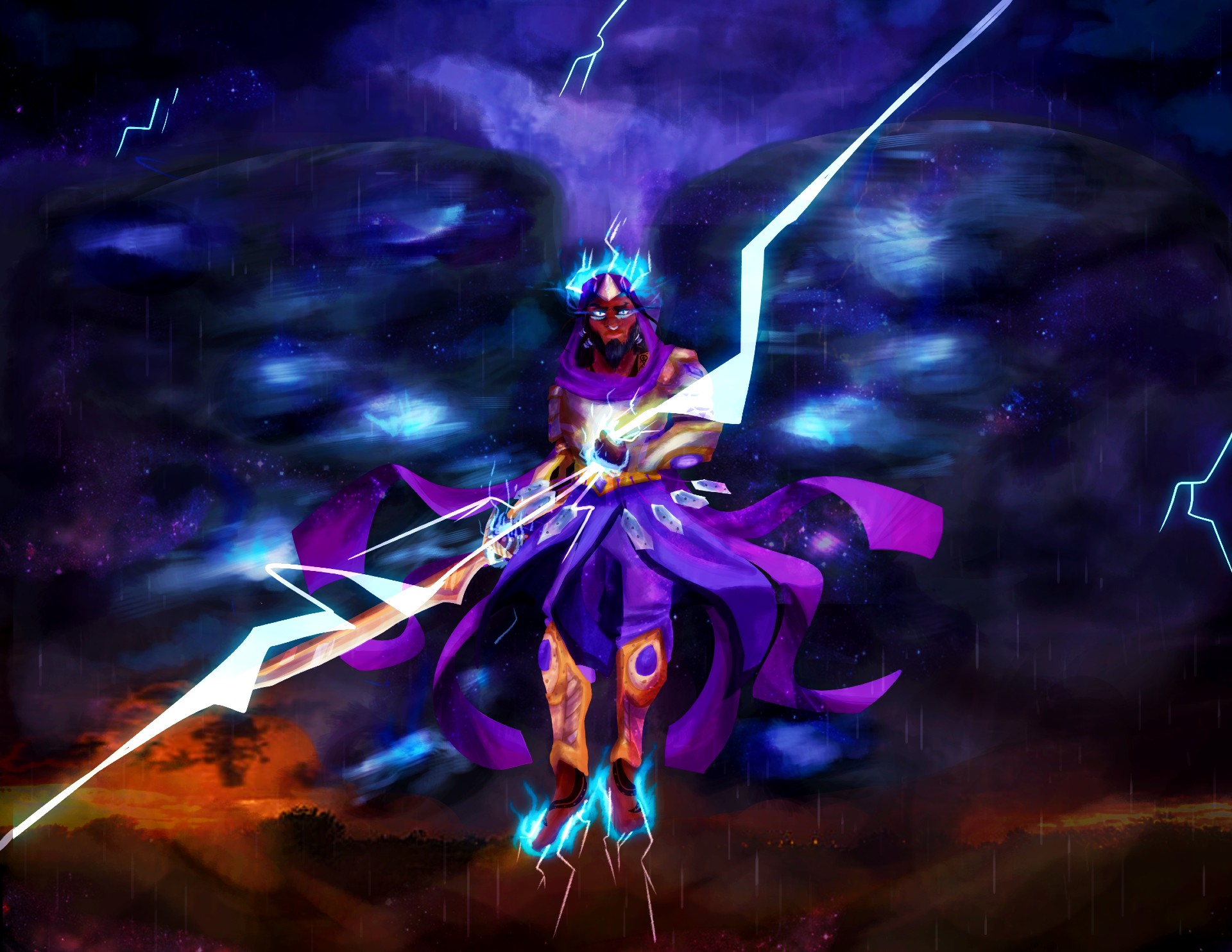

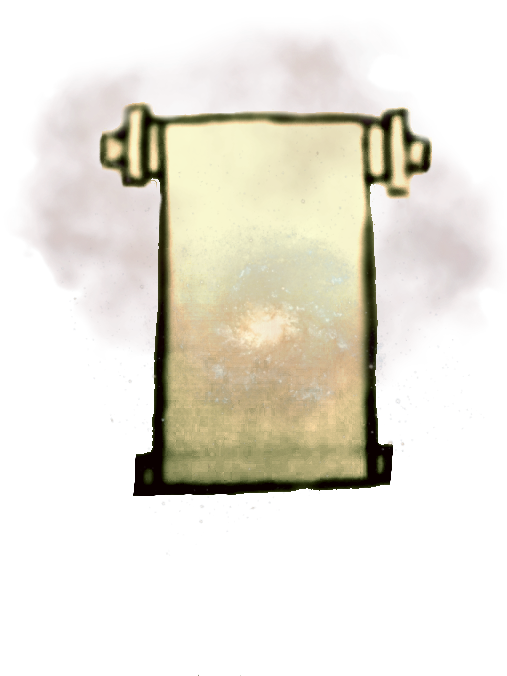
Oghma, God of Gluttony
The Lord of What Is, and the Binder of what is Known, Oghma is the god of knowledge, ideas, nature and the passage of time. The Lord of Knowledge sits in judgment of all ideas, deciding whether they will be allowed to spread, or whether they will die with their originator. In this regard, the Binder exercises a great deal of caution, for the experience of countless ages weighs heavy on his heart. He prefers a doctrine of ideological conservatism, hoping that no new thought disrupts the delicate balance he has nurtured since the beginning of time.
Oghma represents the Divine Sin of Gluttony - as the need to indulge in the the ideation of all existence is never ending, and the palpable thirst for thought and knowledge is what drives Oghma ever forwards. Because of this, Oghma knows a vast understanding of many well-known topics and subjects, and frequently engages in debates, tactic exercises, and mind games that can span decades to centuries.
Oghma's Influence
Oghma is the purveyor of intelligence, science, and all that is known throughout reality. His dominion extends to knowledge, inspiration, eloquence and language - the basis for a fully functioning and sentient society.
He is the patron of teachers, performers and entertainers, and most consider him the source of creative inspiration and the protector of all accumulated knowledge. Radical deities and entities who frequently oppose Oghma’s rigid adherence to the status quo view his orations as hidebound and manipulative. However, his specialization and skill in performance have led him to be unparalleled in the use of instrumentation and song, and his voice (even during lengthly lectures) is said to have the tonal harmony of the heavens.
It is said that Oghma was among the first entities to exist after the birth of the universe - aside from overdeities and cosmic forces - and legend states that he walked upon a chaotic realm of indistinct, shapeless concepts yearning to be given solidity. To each of these concepts he gave a name that would define it in the eons to come. Such was the power of these names that the concepts transcended their elusive existence, bound to physical form in the material world - thus, the birth of his title "Binder of What is Known".
Oghma's Goals
Oghma seeks out and protects knowledge, particularly the raw knowledge of ideas - which is supreme in his eyes. An idea has no weight, but it can move mountains. The greatest gift of mortalkind, an idea outweighs anything made by mortal hands. Knowledge is power and must be used with care, but hiding it away from others is never a good thing. Oghma seeks to enlighten the masses and teach the concepts of cultivating ideas and potential thought to all those with an open mind and willingness to learn.
Divine Relationships
Oghma strives to hold himself to a higher standard of civility than most of the rest of the gods he associates with. When interacting with the other gods, he tends to over elaborate on both his intentions as well as the meaning behind each of his words - leading many gods to avoid direct debate with the lecturing deity.
In the pantheon of sin, Oghma finds Mishakal to be a prime example of the pureness, practicality, and beneficial nature of the proper application of knowledge - as she seeks to heal the masses through the use of medicine as well as the binding of familial and romantic relationships.
Curiously, Zariel strikes Oghma's interest in regards to her propensity to accumulate more knowledge in order to amass greater power. Oghma often points out the inherent two-sided nature of this greedy behavior - as while the search for knowledge is always prime, one should not often exert it in such a way as to let it control them.
This plays directly into Oghma's disdain for Hex, the God of Secrets. As Hex exerts their will and power through the obfuscation of knowledge and allowing great truths to remain unanswered - infuriating the otherwise calm and well-mannered lord of lore, and the two deities are often found in particularly one-sided debates.
Worshiping Oghma
Since Oghma is a God of Knowledge, his worship often takes the form of students, acolytes, musicians and teachers engaging in the practice of intense study or musical expression.
Priests of Oghma have traditionally been of two sorts: those who remain within the temples, monasteries, and abbeys, spending their lives in analysis, reading gathered tomes, and copying out texts and spells as requested and those who go out into the world to find the writings that fill the abbey libraries. There have always been conflicts between the overly fussy pedants among the cloistered and those who chafe under the petty rules and infighting they encounter within abbey walls and prefer to face the real world as one of the wayfaring. Most abbeys of Oghma support themselves by selling maps, scribework, and spell scrolls.
Almost all forms of prayer to Oghma take the form of chanting, vocalizing, or undulating hums to praise the concept of communication, language, music and nature in honor of their god.
Oghma's Forms
As a Celtic deity, the Lord of Lore often appears to studious individuals who pursue the acquisition of knowledge - whether within the cloistered halls and libraries of monasteries, or out in the field delving into the furthest corners of the overgrown nature of the world.
Oghma answers the prayers and questions of his devoted when in need of an answer not normally accessible or knowable, but only when all other forms of research have been exhausted and their thirst for knowing overflowing.
When Oghma appears to his followers, he can appear in the following forms:
Avatars
Oghma appears as a heavily tattooed and painted, venerably old man with an overflowing beard woven with vines, and with softly glowing blue-green eyes. His apparel is often times very simple and plain - typically priest's garb mixed with wizards robes, normally taking on earthy hues and cut stones. Almost every variation of his appearances has a pair of pointed toe boots.
When appearing before those who call upon his overflowing knowledge, his tattoos and body paint (which are drawn in several overlapping languages) glow with soft, ember-like color and he will adopt a halo of flittering glowing runes and musical notes which overlap to convey the words he speaks.
Oghma additionally takes the forms of other creatures when attempting to maintain an air of subtlety. Often taking the form of an owl or songbird, or sometimes a squirrel or other rodent. He also can appear as a young, handsome, dark-skinned man in bright, resplendent, and stylish clothes - almost always with a lute or other instrument.
The Church of Oghma
The Church of Oghma - known also as the House of Light - is the 4th faction under the Church of Seven Sins, owing direct faith to the God of Gluttony.
Legends: The Cowled Circle
Legends tell of a secret sect of the Church of Oghma known as the Cowled Circle.
These individuals have shown outstanding favor with the God Oghma, and seek to maintain his influence in the world through their direct actions.
The following Information can be revealed after a successful religion check:
- (Religion DC 20) Members of the Cowled Circle are anonymous and unknown members of the Church of Oghma, and stop at nothing to pursue magical discoveries and insights into the world of spellcraft. These individuals don peculiar sets of cowled robes which blur and hide their identities - from appearance, to voice and even gait.
- (Religion DC 25) It is said that members of the Cowled Circle answer directly to Falsar in his tower - or some variance thereof, and may be granted a portion of his power.
- (Religion DC 30) Stories tell of the most terrifying aspect of the members of the Cowled Circle: their ability to entice, enchant, and even eviscerate others with their voices alone - a supernatural method of harnessing the magic of reality through words and speech.
Ah yes, the Name-Binder. The first Onomancer. I have great respect for him and his boundless knowledge of acumen.
It's hard to create a new name, let alone apply it to something, and gods forbid you have to remember each of them.
-- Pryxis
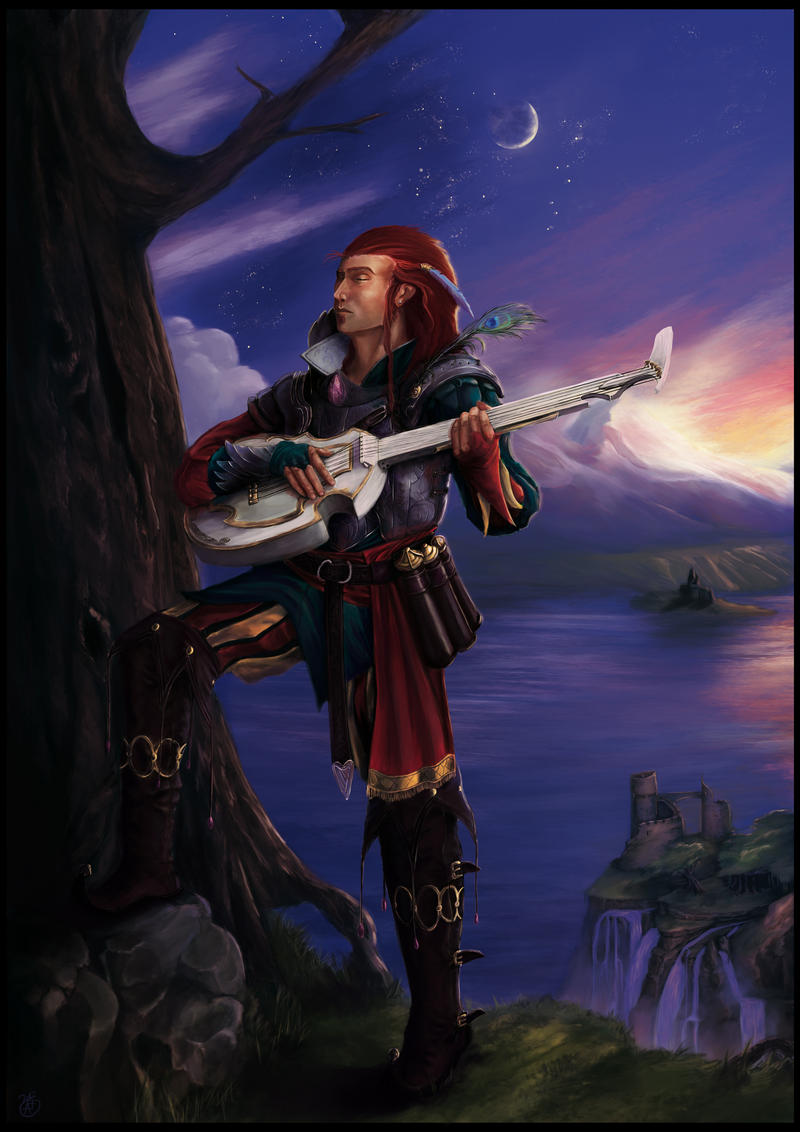

Oghma's Champions
- Alignment: Usually neutral
- Suggested Classes: Bard, druid, monk, ranger, wizard
- Suggested Cleric Domains: Arcana, Knowledge, Luck, Nature, Time
- Suggested Backgrounds: Acolyte, entertainer, hermit, outlander, sage
- Associated Pantheons: Faerûnian pantheon, Celtic pantheon
Oghma's champions are intensely studious and committed to higher learning, maintaining a constant drive of dissecting more knowledge and understanding of the world around them. They often are isolationists - remaining detached from those who would interrupt their studies.
Oghma's Favor
Followers of Oghma are less his agents, moreso his students - and like a teacher, he often times can be as scalding as he is protective. Those who follow him are wary of disappointing him, lest they be made an example of in front of their peers. How did you attract the Lord of Lore's attention? The Oghma's Favor table offers a few suggestions.
Oghma's Favor
| d6 | Circumstance |
|---|---|
| 1 | You are a devoted musician, actor, entertainer or performer who sought out studies from Oghma's followers. |
| 2 | While attending a school or academy, you prayed to Oghma for guidance on a test or trial. |
| 3 | You study the sciences of nature and time. |
| 4 | You once used mathematics to win at a gambling game. |
| 5 | Your breakthrough in studying a dead language pleased Oghma. |
| 6 | Through deep meditation, you managed to commune with the forces of nature - where Oghma waited. |
Devotion to Oghma
Following Oghma means an adherence to the pursuit of ideas, studying, and being ready to uncover the secrets of reality. As a follower of Oghma, consider the options on the Oghma's Ideals table as alternatives to those suggested for your background.
Oghma's Ideals
| d6 | Ideal |
|---|---|
| 1 | Devotion. My devotion to my god is more important to me than what he stands for. (Any) |
| 2 | Balance. Too much power in any one place is a threat to all. (Lawful) |
| 3 | Selflessness. I accept the burden of knowledge so that others never have to. (Good) |
| 4 | Knowledge. I seek out dangerous secrets so that I can know the true nature of reality. (Neutral) |
| 5 | Power. The best thing about knowledge is using it against everyone else. (Evil) |
| 6 | Abandon. Knowledge should be shared, no matter the cost. (Chaotic) |
Earning and Losing Piety
You increase your piety score to Oghma when you expand the god's influence in the world in a concrete way through acts such as these:
- Revealing a critical truth, secret or discovery.
- Mediating a major dispute or conflict.
- Increasing the influence of the Celtic pantheon, or preserving the forces of nature.
Your piety score to Oghma decreases if you diminish Oghma's influence in the world, interfere with his goals, or lose power through acts such as these:
- Selfishly refusing to share information.
- Destroying research or knowledge.
- Aiding those who work against the Celtic gods, or willfully destroying a natural wonder.
Oghma's Devotee
Piety 3+ Oghma trait
As a devotee of Oghma, you have power over light and gluttony. You can cast either absorb elements or guiding bolt (choose which when you gain this trait) a number of times equal to your Intelligence modifier (minimum of once). You regain all expended uses when you finish a long rest.
In addition, you know the razor tome (PM) cantrip. Intelligence is your spellcasting ability for these spells.
Oghma's Votary
Piety 10+ Oghma trait
You can cast either daylight or tongues (choose which when you gain this trait). Once you cast the spell in this way, you can't do so again until you finish a long rest. Intelligence is your spellcasting ability for this spell.
Oghma's Disciple
Piety 25+ Oghma trait
You can cast either animate objects or dawn (choose which when you gain this trait) Once you cast the spell in this way, you can't do so again until you finish a long rest. Intelligence is your spellcasting ability for this spell.
Champion of Light and Gluttony
Piety 50+ Oghma trait
You can increase your Constitution or Intelligence score by 2 and also increase your maximum for that score by 2.
Myths of Oghma
Oghma is a part of many stories and legends - often as a watcher or judge to the conflicts at hand. But when not impartial, Oghma often appears as a powerful sage who holds powers over the forces of nature.
Father of Onomancy. It is said that the art of true naming (or Onomancy) was created by Oghma - being among the first few deities who wandered the fabric of the multiverse when it was young, and that he was the entity who named almost every concept, creature, and object in existence. Because of this, theories abound that Oghma never gave himself a name, choosing instead to keep his original name hidden. If this is the case, then two questions remain: What was Oghma's original name, and who gave him the name of Oghma?
Future Sight. Legends tell that Oghma possesses the gift of future sight - the ability to see much further into the future than most deities or entities of his type. This grants him the unique ability to know more of the potential knowledge and sciences of the multiverse before most other entities. In fact, due to this facet of his dominion, he is constantly in a state of intellectual war with the god Hex, who strives to keep many future and past discoveries secret to enhance their power of obfuscation. Nevertheless, Oghma continues to watch as the secrets of time unfold before him, content with teaching whatever he may discover.
Falsar, Prime Gnostic. The high wizard known as Falsar is a well-known entity to those both inside and outside of the church of Oghma. Born enslaved by the Draconic Imperium, his youth was filled with turmoil - the only solace he could find was through the act of study. Through his periodic studies, the young Falsar was led to discover the ways of the pure practice of magic, and when Oghma entered into the material world, Falsar was the one who unearthed the secrets of the lore inherent in the basis and science of magic itself - and was mantled as an Avatar of Oghma.
The Three Towers. After the end of the Dragon War, Falsar spent many years aiding in both the restoration efforts as well as the education of the willing masses of the freed peoples of Pryxis; however, towards the end of his public appearances he began to become restless. He began raising a series of towers throughout the world of Pryxis, each in a unique location and tied directly into the leylines and lifeblood of the planet. The first is the most well known: the Ivory Tower around which the city of Falsar arose, the second is the Calcite Tower known as the Spellhold - a mysterious tower upon an unknown island thought to be used as a prison for magical beings, the third and final tower is referenced only as the Hematite tower, which the location and purpose of has never been discovered. Soon after their raising, Falsar retreated into the Ivory Tower and never emerged.
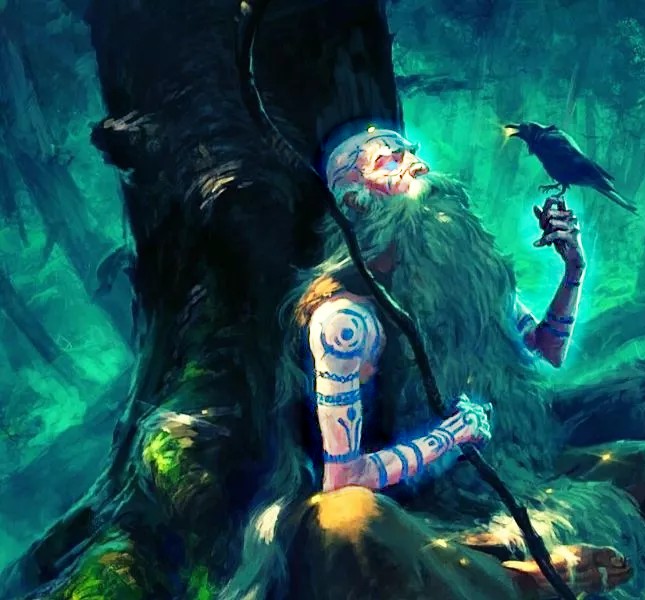

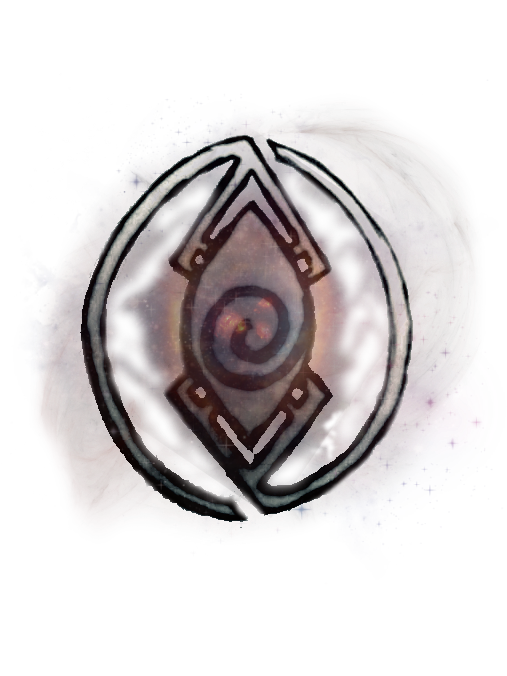
Hex, God of Envy
The unknowable, inscrutable and liminal one, Hex is a strange and weird god of secrets, technology, and the fear of the unknown. Hex is the embodiment of what lies beneath the surface of the known - the bizarre, maddening and vast dark ocean upon which the land-like sliver of knowledge our conscious minds sit upon. Everything that is known in the multiverse is only a slight fraction of the entirety of existence, and the vastness of this reality is what Hex represents. To many, this reality is a curse to understand and know, but many dedicate their lives, time and personal sanity to studying the unknown in hopes of breaching the surface of the dark sea.
Hex represents the Divine Sin of Envy - as the constant struggle to understand one's own darkness leaves us open to the maddening want of what is not ourselves. A genderless, obfuscated entity, silence and shadow in equal portion suffuse Hex like their breath and blood.
Hex's Influence
Hex is the aspect of the unknown: all that remains undiscovered, lost, forgotten, forbidden, obfuscated and far are their dominion. This often has led to massive discoveries by those willing to peer beyond the veil of what is considered hidden from sight - which led to innovation as well as madness.
Hex is the patron of the lost, the forgotten, the stealthy, and the insightful - the people who stalk the shadows of city streets are as favorable to Hex as those who develop new technologies in secret, or those who rant and rave from their madness in mental hospitals. While not lawful nor chaotic, the madness of the dark and fear of the unknown is as apathetic as it is ambiguous.
Like the horizon, the concept of the unknown is easy to perceive, but harder to reach. Hex holds sway over madness, and has been aptly named "The Rampant God" - for their ability to control the insanity of not only mortal lives, but the minds and sanities of other entities.
Many consider it mental suicide or a curse to ever consider following this deity - hence the moniker granted to them of "Hex".
Hex's Goals
Hex's goals are easy to hear, but hard to understand: The Pursuit of Madness. This goal is not so simple as it seems, as while it may involve the spreading of insanity and the breaking of mental barriers, it does not simply stop there. Pursuing madness, to Hex, means to understand it in it's entirety, from how it comes to be, and what one can draw out from delving into the unknowable. Those who succeed at embracing madness and coming back are bestowed with great knowledge unattainable without making the dive into the sea of insanity. Hex grants those willing the means to wade into that sea.
Divine Relationships
Hex is an enigmatic god that interacts as little as possible with other deities of their station unless absolutely necessary. When they do appear to other deities, they often are direct and quick with their dealings before sulking back into the shadows from whence they came.
Hex views Oghma with a mixed sense of disdain as well as begrudging respect - although they would never allow the lecturing god to know they respect him. Hex sees Oghma as the island upon which mortal minds cling to when unready to delve into the depths of reality, and to an extent, Hex can respect that stewardship. However, Oghma's tendency to reveal secrets that should remain hidden leaves Hex with a particularly bad aftertaste.
As for the rest of the gods, their plans and ideals hold little sway over the mind of the inscrutable void of an entity, and only if the gods have something Hex needs, will they be willing to interact with them.
In the same vein, the other gods are generally either distrustful or uneasy at Hex's presence, although they can do little to argue against Hex's importance in maintaining order by defining the shadows and madness of reality.
Worshiping Hex
Many pursue the worship of Hex when searching for something lost or hidden, or when exposed to horrors beyond their imagining. Because of this, the prayers to Hex often involve the shadow god's intervening between the worshiper and their onset madness, hoping that Hex will stave off the insanity. In many of these cases, Hex obliges only to reintroduce the insanity much later when the time is right - supposedly when the individual will learn the most from it.
Priests of Hex can barely be called priests at all, and are more akin to ranting lunatics who carry some simulacrum of truth in their words if one listens long enough. Those that follow Hex can be from any level in society - from roguish agents carrying out assassinations under cover of darkness, to engineers seeking to make a breakthrough in a relatively unstudied field of science, or those who tend to the mentally ill in hopes of their recovery from the sea of madness.
Rituals and Prayers to Hex usually take place in liminal spaces and thresholds: such as building corridors when no one is around, abandoned city streets, in front of broken computing screens, still water lakes or ponds, or empty caves - and almost always at night or under cover of darkness. These rituals are always silent or barely above a whisper, and are usually unintelligible mutterings that convey emotion and intention rather than actual language.
Hex's Forms
As an Eldritch entity and hailing as the Eberron god: The Shadow, Hex often appears to their people when they are most likely to descend into madness or carry out a life-threatening task under veil of darkness. Hex always appears out of shadowed and dark areas.
Hex answers those who seek refuge or embrace of madness and darkness, but not always for the purposes of protecting them. When Hex feels the individual (and themselves) may benefit from the madness or failure at hand, they will gladly force it upon them - and only when the individual comes to will they understand the reasons why.
When Hex appears to their followers, they can appear in the following forms:
Avatars
Hex appears as a robed, hooded and masked figure with only dark pools of eyes visible - which seep ichorous black tears. More often than not, the robed figure glides across the ground and through the air. The apparel manifested tends to match the atmosphere of the surroundings they appear - with colors of steely black, pallid cream grey, or navy blue.
When manifesting before those who would plead for their appearance, Hex will adopt a halo that appears as an eclipsed moon. At times, tendrils of dark, unknown material fastened with claw like tips will extend out from underneath Hex's robes, usually to use as weapons, appendages, or tools.
Hex also takes the forms of other creatures in order to stay vaguely unknown themselves. Some of their favored creatures include various kinds of snakes such as asps or cobras, oozes, and octopi - or things of a similar weird nature. Hex will sometimes appear as a monstrosity of any form, and when doing so, may involve any manner of other features from the previously stated creatures.
The Church of Hex
The Church of Hex - known also as the House of Void - is the 5th faction under the Church of Seven Sins, owing direct faith to the God of Envy.
Legends: The Mad-Minds
Legends tell of a secret sect of the Church of Hex known as the Mad-Minds.
These individuals have shown outstanding favor with the God Hex, and seek to maintain their influence in the world through their direct actions.
The following Information can be revealed after a successful religion check:
- (Religion DC 20) Mad-Minds are the truly bizarre and eccentric eldritch agents that commit themselves to the pure throes of insanity. These individuals are usually instilled with madness and use it to their advantage, often times seeking out otherworldly forces to secure, contain, protect or vanquish - all in the name of their god.
- (Religion DC 25) It is said that Mad-Minds may never truly know they are a member of the Mad-Minds - as their insanity masks both their memories and goals; resulting in the purest form of "sleeper agents".
- (Religion DC 30) Stories tell of the ability inherent in all Mad-Minds: Cerebral-Erasure, the ability to completely sever an individual's ties to their oneness - effectively erasing all memories, feelings, and agency in the target, which results in madness.
Madness has it's uses. It represents when we have broken the limits of what can traditionally be understood.
Sometimes, to know something is to limit it. Try "unknowing" something - only then can you see how little you understand.
-- Pryxis


Hex's Champions
- Alignment: Usually neutral
- Suggested Classes: Artificer, cleric, rogue, warlock, wizard
- Suggested Cleric Domains: Far, Mind, Technology, Trickery, Twilight
- Suggested Backgrounds: Acolyte, charlatan, criminal, haunted one, sailor
- Associated Pantheons: Eberronian pantheon, Eldritch entities
The champions of Hex are generally reserved, quiet, or relatively mad to some degree, as their faith in the god of madness pushes them to walk the razor's edge of sanity.
Hex's Favor
Followers of Hex are expected by their god to be cunning, deceptive and self-sufficient. They must pursue what they deem necessary to engage in the throes of madness, to steer society ever closer to the embrace of darkness and insanity. Those who follow Hex tend to be touched by some form of madness or inspiration - which go hand in hand. What did you do to begin walking the path of the Mad God? The Hex's Favor table offers a handful of suggestions.
Hex's Favor
| d6 | Circumstance |
|---|---|
| 1 | You were born at midnight under a new moon, or on the threshold of a liminal space at night. |
| 2 | Your birth was foretold by a raving lunatic. |
| 3 | You were born with an eye inside your head. |
| 4 | Beset by strange visions, you consulted an oracle. Since then, the visions have gotten stranger. |
| 5 | You researched a field of study that began to drive you mad. |
| 6 | You once felt the touch of madness upon you, and it never fully left. |
Devotion to Hex
Following Hex means the pursuit of madness, darkness, lies and trickery in order to best traverse reality by utilizing unreality. As a follower of Hex, consider the options on the Hex's Ideals table as alternatives to those suggested for your background.
Hex's Ideals
| d6 | Ideal |
|---|---|
| 1 | Devotion. My devotion to my god is more important to me than what they stand for. (Any) |
| 2 | Secrecy. All deception requires secrecy, but not all secrets are meant to deceive. (Neutral) |
| 3 | Madness. I aim to spread the touch of insanity to all, regardless of cause or reason. (Chaotic) |
| 4 | Fatalism. Death is the truest form of darkness, and I will ensure all feel it's icy grasp. (Evil) |
| 5 | Insight. Understanding ones own madness allows the insanity of the world to be traversed. (Lawful) |
| 6 | Preservation. The cosmos is a better place if its greatest and darkest truths remain unknown (Good) |
Earning and Losing Piety
You increase your piety score to Hex when you expand the god's influence in the world in a concrete way through acts such as these:
- Keeping secrets, hiding information, or foiling the plans of others.
- Spreading madness and protecting the insane.
- Increasing the influence of Eldritch entities or Outer gods.
Your piety score to Hex decreases if you diminish Hex's influence in the world, interfere with their goals, or lose power through acts such as these:
- Revealing secrets that should remain hidden.
- Punishing or restoring those who carry the seeds of madness.
- Aiding those who work against the Eldritch entities (so long as the entities are allied with Hex).
Hex's Devotee
Piety 3+ Hex trait
As a devotee of Hex, you have power over void and envy. You can cast either arms of Hadar or unseen servant (choose which when you gain this trait) a number of times equal to your Intelligence modifier (minimum of once). You regain all expended uses when you finish a long rest.
In addition, you know the action image (PM) cantrip. Intelligence is your spellcasting ability for these spells.
Hex's Votary
Piety 10+ Hex trait
You can cast either hunger of Hadar or nondetection (choose which when you gain this trait). Once you cast the spell in this way, you can't do so again until you finish a long rest. Intelligence is your spellcasting ability for this spell.
Hex's Disciple
Piety 25+ Hex trait
You can cast either creeping darkness (PM) or modify memory (choose which when you gain this trait) Once you cast the spell in this way, you can't do so again until you finish a long rest. Intelligence is your spellcasting ability for this spell.
Champion of Void and Envy
Piety 50+ Hex trait
You can increase your Dexterity or Intelligence score by 2 and also increase your maximum for that score by 2.
Myths of Hex
The tales told of Hex's deeds often speak of their tenacity, subterfuge, wit and maddening inspiration.
False Throne. Rumors and legends abound that the original seat of Envy did not always belong to the entity known as Hex, and that instead, Hex usurped the position of divinity from a previously chosen deity. These rumors cannot be verified however - not even by other members of the gods - as all trace of the would be progenitor seem to be nonexistent. Because of this, followers of Hex often times pursue the practice of adopting personas or altering themselves to replace others within their lives, a form of reverence to their deity.
Archimedes, Mad Artificer. During the Dragon War, a man by the name of Archimedes was plucked from another realm of the cosmos to carry out the bidding of Hex's inscrutable demands. In the process of being pulled from another reality, Archimedes found himself tumbling through the path between worlds and sanity, delving further than most into the clutches of pure unadulterated madness. When finally freed from the transit between worlds and minds, he found new insights into the application and production of newfound technologies, which revolutionized the battlefronts of the Dragon War, and fueled the age of rebirth.
The Institute of Madfellows. During the age of rebirth, Archimedes' chosen students began to establish an institution not only dedicated to the study of the bizarre, but also to aid those touched by madness or darkness. This culminated in the Institute of Madfellows - an organization dedicated to studying the effects of madness and science beyond understanding, as well as incorporating methods of walking the edges of sanity and memory to their benefit. As time went on, the Institute began to transform into a sort of blackbook operation that occasionally functions outside the law - not that anyone remembers the encounters with it's darkly dressed operatives.
The Arcanum Obfuscara. It is said that hidden somewhere in the cosmos is a tower-like maze of discarded information, lost lore, eldritch secrets, forbidden realities, and every forgotten anecdote, discovery, or memory that has ever been or not been. This maddening facility of sanity and reality-bending untruths is where Hex resides more often than not. Some of their most gifted followers have been granted but a glimpse into it's ever-spiraling and oscillating halls, noting the euphoric madness that overtook them. Indeed, stories tell of liminal gateways: doors, hallways and windows to the Arcanum that allow truly curious individuals a fleeting chance of entering the Arcanum.


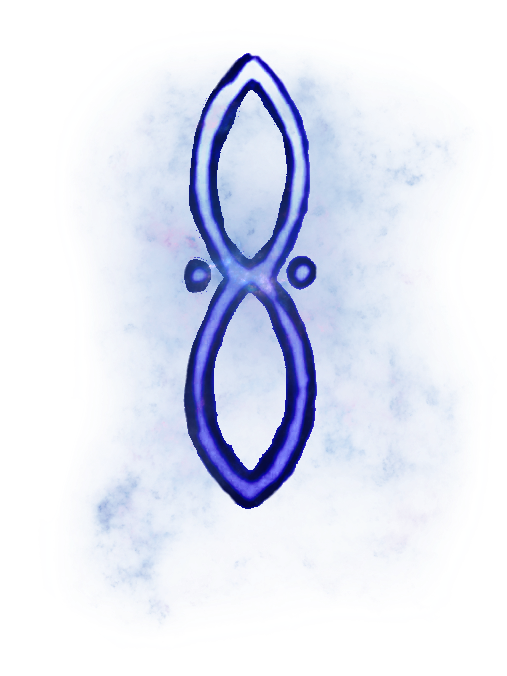
Mishakal, Goddess of Lust
The maternal figurehead of love, fertility, health, and life, Mishakal (also known in some circles as Hera) is a goddess of vibrant beauty, overflowing livelihood, and everlasting unions. She is the gentle and tender goddess that represents the most bountiful aspects of mortal life. Endearing and wise, Mishakal values community, stability, and the union of mortalkind with nature. She embraces the soul's wish to grow and to learn from mistakes. She is the patron of healing, motherhood, and restoring the lost. She actively works to make things right in the world and tries to rid the world of evil with her compassion. Her nature sometimes conflicts with the violent conditions her faithful encounter, but she has a wide breadth of worship during times of strife.
Mishakal represents the Divine Sin of Lust - as the desire for life, compassion, and union are directly intertwined with the primal pull. Mishakal is often invoked during times of healing as well as copulation to ensure the sanctity of life is safeguarded by divine hands.
Mishakal's Influence
Mishakal governs the nature of love, life and compassion within the lives of all. Bountiful and endless is her tender care for those in pain or suffering - and she will ensure that their suffering is ended, whether it be physical or emotional.
Mortals often seek her favor in times of war and battle for her guidance to restore the lives and vitality of those who are injured or even upon death's door. Even for those who are infirmed beyond all saving, her name is invoked to ease their pain in their final moments, and for her to beckon them beyond their pain in mortal life for a release from suffering.
Additionally, ceremonies of marriage and union are done under Mishakal's gaze, as her tender touch ensures that love's warmth never burns out, and that each hardship in life is overcome through compassion and understanding. Even during honeymoons and lover's retreats is her symbol often present for guidance and fulfillment. Indeed, even brothels are often - but not always - headed by followers of Mishakal.
Childbirth and midwives are also under the divine care of Mishakal, as the act of bringing and sustaining life in the world bring great joy to the goddess of life and lust.
Mishakal's Goals
Mishakal doesn't engage in underhanded politicking or petty disputes - besides those that require aid or healing. She seems to stand above the quarrels and tumultuous rivalries of other deities, and equally aloof from the machinations of the mortal world. Her fundamental concerns involve the general wellbeing and vitality of the mortal folk, the fulfillment of unions and relationships, and the spreading of peace amongst the masses.
Divine Relationships
While Mishakal does not seek to hold power over her fellow gods, her position as a compassionate yet strict and attentive motherly figure leads her to hold a particular influence and position of respect over other deities - even those outside of her respective pantheons.
Mishakal continuously attempts to nurture a mentorship over the goddess Zariel, seeing the bloodthirsty goddess of greed to be misunderstood by many other gods, entities, and even mortals. She strives to show Zariel the responsibility and power of what it means to be a true goddess - and hopes that one day the hatred and malice within Zariel's heart may finally be purified.
To Mishakal, Oghma is a truly heart-warming companion, and continuously seeks his counsel in times of strife and turmoil, and the two have been known to pool their respective knowledge to push the field of natural medicine and alchemy upon the mortal masses.
The god who provokes the scornful, motherlike gaze of Mishakal would be Chemosh, the god of death. To Mishakal, the two have held a long-standing rivalry between themselves since before mortal memories can comprehend. His stance on the suffering and death of life stand in stark contrast to her beliefs - and while death is inevitable, his practice of seeding pain and woe is wholly despicable to her.
Worshiping Mishakal
All those who seek to aid in the mending and balming of suffering or pain offer entreaties and respects to Mishakal. Whether through the mending of flesh and bone through medicinal practices, the oversight of those in suffering or mental turmoil, the overseer of unification ceremonies or peace offerings, or even the acts of physical fulfillment or sexual desire - all of these hold Mishakal's direct influence.
Priests of Mishakal often head healing clinics or churches dedicated to the eradication of disease and undeath. Other practitioners of Mishakal involve themselves more directly in the lives of others - becoming official consorts of the church of Mishkal; overseeing the mental wellbeing and physical copulation of others. These consorts of Mishakal are not mere prostitutes, as their services are more akin to divine rituals and are as fulfilling to the mind and soul as they are for the body.
Prayers to Mishakal normally involve water in some form - as it represents the basis for all life. Many forms of prayer involve the spilling of water, whether it be fresh or saltwater, or even bodily fluids (through which the process of copulation becomes a sacred act). The spilling of water represents the act of life itself.
Mishakal's Forms
As a Grecian goddess from ages past, and a goddess of light belonging to the gods of Krynn, Mishakal often appears to those in most need of healing, life, and fulfillment. More often than not, Mishakal normally appears out of sources of water.
Mishakal answers those who need the embrace of a motherly or loving figure - whether it is a motherhead to stand firm against threats and pain on behalf of their child, or as a lover's embrace to show that life is not a punishment, it is a work of art that only you can paint.
When Mishakal appears to her followers, she can appear in the following forms:
Avatars
Mishakal appears as an otherworldly and beautiful feminine figure draped in flowing silken sky-blue garments and adorned with various bits of golden jewelry and filigree. Her garment is traditionally embroidered with silver thread that seems to flow like water.
When taking form before those who invoke her presence, Mishakal will often appear with a glowing aura of gentle light that suffuses her skin, and her eyes tend to glow with a vibrant blue light. Mishakal always appears in a form that is most pleasing to the individual and their current turmoil - a motherly figure for those in dire jeopardy, or a lover for those who feel lost or neglected.
Mishakal also adopts forms of comfort creatures or those of humanoids that instill an air of peace when needing to remain subtle or calm. Some of her preferred creatures include rabbits, hares, or capybaras and occasionally a peacock or various forms of gulls. In times of extreme duress, Mishakal will manifest a pair of beautiful peacock wings to shield her faithful.
The Church of Mishakal
The Church of Mishakal - known also as the House of Life - is the 6th faction under the Church of Seven Sins, owing direct faith to the Goddess of Lust.
Legends: The Deep Medicos
Legends tell of a secret sect of the Church of Mishakal known as the Deep Medicos.
These individuals have shown outstanding favor with the Goddess Mishakal, and seek to maintain her influence in the world through their direct actions.
The following Information can be revealed after a successful religion check:
- (Religion DC 20) The Deep Medicos are a collection of highly skilled doctors and medical professionals who seek to destroy all forms of disease, affliction, and ailment. These individuals often enact great healing miracles upon the masses, sometimes responsible for reversing the effects of world-destroying plagues or even extraplanar corruption.
- (Religion DC 25) It is said that the Deep Medicos are the authority charged with the grading and production of most known applications of medicine - from painkillers to advanced surgery; their widespread usage requires the approval of the Deep Medicos.
- (Religion DC 30) Stories tell of the supernatural healing properties imbued into the lifeblood of members of the Deep Medicos. Their blood carries the ability to aid the weak, heal the sick, and banish corruption or possession with but a drop.
What is Love? Well, some people would state that it is being unwilling to hurt that which you cherish.
True Love, however, is the willingness to break something and then take the time to reform it. Mishakal knows that firsthand.
-- Pryxis


Mishakal's Champions
- Alignment: Usually lawful, often good
- Suggested Classes: Cleric, druid, monk, paladin, ranger
- Suggested Cleric Domains: Feast, Hearth, Life, Peace, Twilight
- Suggested Backgrounds: Acolyte, guild artisan, outlander, sage, urchin
- Associated Pantheons: Krynnian pantheon, Greek pantheon
The champions of Mishakal tend to be quite profound performers, diplomats, concubines, and healers all - as they exemplify the most gentle and compassionate nature of their goddess.
Mishakal's Favor
Followers of Mishakal are expected to hold themselves in high performance and stature from their peers, as well as maintain an air of calmness and brevity when dealing with threats as well as tending to the infirmed, pained, or those in need. Those who swear themselves to Mishakal are expected to embrace the pain of others and ensure their continuous restoration. What did you do to be welcomed into the loving embrace of the Goddess of health and comfort? The Mishakal's Favor table offers a handful of suggestions.
Mishakal's Favor
| d6 | Circumstance |
|---|---|
| 1 | You were an orphan or beggar who wandered into one of Mishkal's temples seeking a meal and safe place. |
| 2 | You once saved a stranger from death by putting your own life in peril. |
| 3 | You studied or partook of the more salacious teachings of Mishakal from a local temple. |
| 4 | You restored the water source for a village stricken by drought. |
| 5 | You have been tending to the sick and wounded for as long as you could hold a vial or scalpel. |
| 6 | You tried everything you could to save a dying loved one, and have sworn to heal others in their honor. |
Devotion to Mishakal
Following Mishakal entails a life of healing, nurturing growth, and restoration. As a follower of Mishakal, consider the options on the Mishakal's Ideals table as alternatives to those suggested for your background.
Mishakal's Ideals
| d6 | Ideal |
|---|---|
| 1 | Devotion. My devotion to my goddess is more important to me than what she stands for. (Any) |
| 2 | Bounty. I am generous and share what I have, hoping to improve the well-being of all. (Good) |
| 3 | Protection. I devote myself to ensuring that the vulnerable and the innocent remain safe. (Good) |
| 4 | Humility. I put the needs of others above my own and strive to lead through service. (Neutral) |
| 5 | Community. We are stronger together, and I must improve and support my community. (Lawful) |
| 6 | Union. The passionate acts of love, communion, and partnership is what I strive to show others. (Any) |
Earning and Losing Piety
You increase your piety score to Mishakal when you expand the goddess's influence in the world in a concrete way through acts such as these:
- Healing or tending to the wounded, sick, or dying.
- Bringing physical comfort to others through food, vice, or touch.
- Increasing the influence of the Greek Pantheon, or aiding Good entities.
Your piety score to Mishakal decreases if you diminish Mishakal's influence in the world, interfere with her goals, or lose power through acts such as these:
- Hurting the innocent or allowing pain to fester past it's need.
- Destroying alchemical, medical, pathological, or similar research.
- Aiding those who work against the Greek Gods or aiding Evil entities.
Mishakal's Devotee
Piety 3+ Mishakal trait
As a devotee of Mishakal, you have power over life and lust. You can cast either create or destroy water or command (choose which when you gain this trait) a number of times equal to your Wisdom modifier (minimum of once). You regain all expended uses when you finish a long rest.
In addition, you know the renewal (PM) cantrip. Wisdom is your spellcasting ability for these spells.
Mishakal's Votary
Piety 10+ Mishakal trait
You can cast either aura of vitality or create food and water (choose which when you gain this trait). Once you cast the spell in this way, you can't do so again until you finish a long rest. Wisdom is your spellcasting ability for this spell.
Mishakal's Disciple
Piety 25+ Mishakal trait
You can cast either geas or mass cure wounds (choose which when you gain this trait) Once you cast the spell in this way, you can't do so again until you finish a long rest. Wisdom is your spellcasting ability for this spell.
Champion of Life and Lust
Piety 50+ Mishakal trait
You can increase your Wisdom or Charisma score by 2 and also increase your maximum for that score by 2.
Myths of Mishakal
Stories of Mishakal center mostly around the powers of her healing abilities, the teachings of medicine, or her history in previous pantheons.
Separated Goddess. Long ago, before she became widely known as Mishakal both on Krynn and Pryxis, she once went under the name of Hera - a Greek Goddess of maidenhood and fertility. During this time, she was married to the God Zeus - a wrathful and petulant man-child who drove her to fits of madness through his many, MANY unfaithful desires. One day, she had enough of the miserable thunder-god and gathered all misbegotten or otherwise abandoned children of Zeus's pitiful exploits and marched all his would-be demigods to Olympus, where they proceeded to corner and tear him asunder under her divine glare. After a dozen re-manifestations of Zeus, he finally begged for forgiveness - which Mishakal then demanded he perform reprimands for every woman he sullied and tortured. After 9,000 years, Zeus still struggles to maintain his promise - and Mishakal now ensures his desires remain forever chained.
Fountain of Youth. It is said that a natural pool of Mishakal's tears combined with the coldest glacial runoff remains hidden upon the world of Pryxis - and that these waters not only heal every affliction, disease, or curse imaginable, but also heal the effects of time upon the drinker.
Andras, Divine Doctor. During the rule of the Draconic Imperium - but merely a few decades before the Dragon War - a alchemical savant by the name of Andras undertook the cataloging and subsequent annihilation of every affliction, disease, and curse that the Imperium could inflict upon their fellow mortals. Without magic, this was a supremely difficult challenge, but Andras was determined to ensure that through natural medicine, their people would remain alive and well even under the iron grip of the dragons. When Mishakal stepped through onto Pryxis, it was Andras who become the first champion and cleric of the goddess, enabling Andras to perform medical miracles and become the purveyor of modern medicine.
Sacred Courtesans. The court of sacred courtesans is a special sect of the church of Mishakal dedicated to the pursuit, practice, and recollection of all forms of procreation and salacious activity that could be feasibly and safely (within reason) practiced. These Sacred Courtesans don't just keep records of every sexual act, but are instrumental in keeping records of birth charts, pedigrees, familial lineages and generational ancestries dating back as far as historical records can lead - tracking potential health problems or diseases of great importance. When two groups become married, their lineages are combined and tracked.
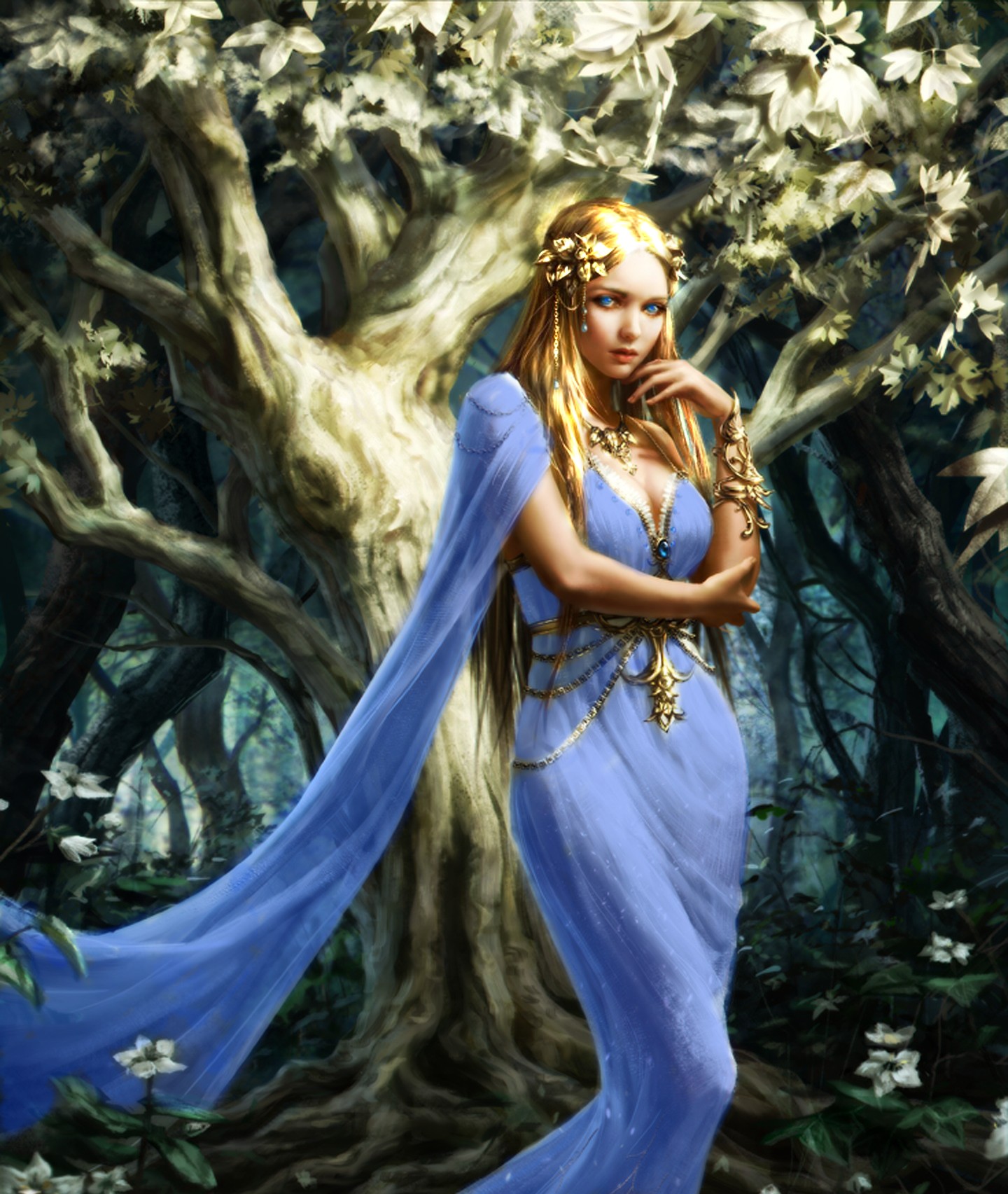

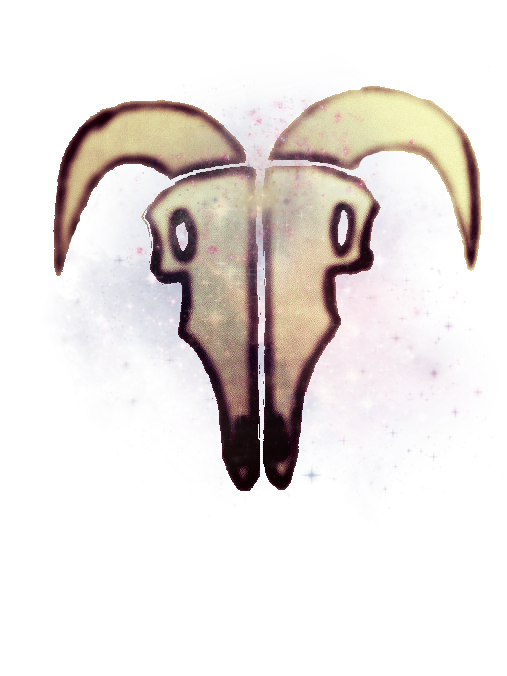
Chemosh, God of Sloth
The father of death and the dark dreamer, Chemosh is a demonic god of apathy, death, and the eternal sleep. He is the master of the undead and is representative of fatalism. Chemosh hates life, believing it to be a gift wasted upon mortals. He festers within the hearts of all mortalkind, continuously attempting to seduce them into giving up the shell of mortality and move on to the next stage in the soul’s journey. Chemosh tempts mortals with the promise of “immortality.” In reality, he is condemning them to an eternity of undeath as his slaves. This is Chemosh’s way of mocking life, and he gains power as people surrender their free will to his apathetic divine drive.
Chemosh represents the Divine Sin of Sloth - as his continuous disconnection from the gift of life is akin more to a waking sleep within the material world. Chemosh, while a God of death and undeath, is also associated with restless sleep that is both dreamless and sometimes never-ending.
Chemosh's Influence
Chemosh holds sway over the forces of sleep, disease, death and undeath - and all states associated with them, such as comas, astral projection, half death, and the undead. He believes that life is merely a curse, and the way to purify oneself is to reject it through apathetic means.
Mortals have a tendency to fear death as they cling to the known shoreline of their mortality, but Chemosh continuously offers ways to speed towards the inevitable end of their existences. Those who follow Chemosh have embraced a life of fatalism and acceptance of the final stage of one's life, and the tragedies that often culminate in the final performance upon that stage.
His power over the souls of mortals and those who are half-dead allow him great power over how their afterlife is achieved. He oversees the passing of all souls and the existence of all undead creatures. At times, Chemosh takes it upon himself to visit those within the throes of ever-sleep to coax them towards an definitive end, rather than a doomed life - only in this regard could he be considered a merciful god of death.
Chemosh's Goals
Chemosh wants nothing more than the absolute abandon of life to be fulfilled, and will achieve this goal through the use of monstrosities, undead and various forms of cursed creatures which he unleashes upon the world with the gift of half-death. If for nothing else, Chemosh is a patient god, and can wait eons for the gift of life to finally fizzle out. He is also content to sit by and gift mortals with a momentary escape from life through the act of sleep - seeing the action of rest as a sanctuary between life and death.
Divine Relationships
Chemosh is a generally disdainful entity, holding many grudges against other gods and entities of his kind unless they seek to emulate his own hatred towards life and the embrace of death. Yet, Chemosh holds particular relationships with other deities in either higher or lower regard than most.
Mishakal is Chemosh's eons-ancient rival, and he continuously strives to foil her plans through the releasing of pain, disease, and affliction upon her followers and general mortalkind. At times, when one of Mishakal's most chosen dies by the hands of Chemosh's followers, Chemosh will immediately attempt to turn the once holy follower into an undead abomination, or curse them with a perverted form of immortality, such as vampirism, as a way to strike back at the goddess of life.
While not particularly dismal towards Zariel, the fury she holds for his practice of subduing souls for the demonic hordes has always left him as a prime target for the Goddess of Greed. Chemosh finds a welcome challenge in this fury, and will often times thwart Zariel by sending specialized demonic souls to torment her followers, just to get a reaction from her.
Worshiping Chemosh
Those who follow in the wake of the shadow of Chemosh lead lives of pain and torment, either upon themselves or others. They see pain and suffering as a means to release oneself from the dismal and boring shackles of life. For those unwilling to seed pain throughout life, the alternative method of abandonment of all charges and the apathy towards life is just as sustainable in the eyes of Chemosh.
Although a God of apathy and death, many followers are still expected to treat the dead with the proper respect and bury them under the laws enacted by Chemosh. When a creature dies, their souls must move on if it is not to be used by Chemosh as an undead, and through the act of burial rites and embalming this eternal rest can be achieved. To onlookers, while priests of Chemosh may preach about the sweet embrace of death, the truth is that all that live must one day stop living - and that it is less of a punishment, but rather a release from the sentence of life.
In this regard, when an undead has outlived it's usefulness, it is expected to be destroyed so its soul may move onto a greater purpose - sometimes passing onto their respective afterlives, or being conscripted by Chemosh as a shadowspawn or demonic entity.
Chemosh's Forms
As a Demonic entity and an Evil God of the Krynnian pantheon, Chemosh only appears before his most dutiful of worshipers and those on the brink of death or within the embrace of ever-sleep. Chemosh generally appears from the surroundings as a gust of darkened fog swirls and manifests as the god of death.
Chemosh comes to those who are most in need of the touch of death - whether this touch must be applied to the worshiper, or their enemies is none of his concern. His most zealous of followers enact his dark will without question, and while not embracing apathy and sleep, are just as cold and calculated as the force of Death himself.
When Chemosh appears to his followers, he can appear in the following forms:
Avatars
Chemosh appears as a sickly pale, yet elegant man with flowing white hair that seems to blow in a non-existent breeze. More often than not, he is dressed in a fine black suit with a collared mantle that drapes from his back and is seemingly woven from dark fog.
When manifesting before his most dutiful followers, Chemosh adopts eyes that glow with sickening green radiance, and his hair will whip about as if by a gale-force wind. With every footstep, the vegetation and ground will crack and become barren, as if his mere touch snuffs the light within all life like a gasping breath.
Chemosh can also take the form of other creatures when attempting to remain distant. Some of his favored creatures include goats or rams, sloths (obviously), and bats. When the need for a show of force is necessary Chemosh will manifest a multiarmed form of various beast appendages and don a horned head shielded by bat wings to reveal his truly demonic nature.
The Church of Chemosh
The Church of Chemosh - known also as the House of Doom - is the 7th faction under the Church of Seven Sins, owing direct faith to the God of Sloth.
Legends: The Dreaming Council
Legends tell of a secret sect of the Church of Chemosh known as the Dreaming Council.
These individuals have shown outstanding favor with the God Chemosh, and seek to maintain his influence in the world through their direct actions.
The following Information can be revealed after a successful religion check:
- (Religion DC 20) The Dreaming Council consists of a group of heavily enfeebled or near-death members of the Church of Chemosh. These individuals - while infirmed or decrepit - are some of the most powerful remote viewers and necromancers imaginable. Walking the line between life and death allows them a great vantage point in the manipulation of both sides of the veil.
- (Religion DC 25) It is said that the Dreaming Council regularly meets - not in person, but through the use of dreamwalking and astral projection to ensure their whereabouts and meetings remain secure.
- (Religion DC 30) Stories tell of the ability for members of the Dreaming Council to have mastered the art of dreamwalking so thoroughly as to be able to manifest multiple iterations of themselves to their advantage. This results in many of their projections simultaneously manifesting across the world (or worlds), and sometimes utilizing the projections to defend themselves in battle.
Death is said to be a release, not a punishment. As sometimes, the cruelty of the world can bring even the strongest to ruin.
Chemosh has experienced all forms of death; physical, spiritual, emotional, and more.
-- Pryxis


Chemosh's Champions
- Alignment: Usually neutral, often evil
- Suggested Classes: Cleric, fighter, rogue, warlock, wizard
- Suggested Cleric Domains: Death, Grave, Soul, Time, Trickery
- Suggested Backgrounds: Acolyte, charlatan, criminal, haunted one, urchin
- Associated Pantheons: Krynnian pantheon, Demonic Princes of the Abyss
Most champions of Chemosh seek to embrace the touch of death and the state of unlife and apathy. They find fulfillment in carrying out the demands of their God, knowing that they will earn their inevitable end.
Chemosh's Favor
As every soul eventually finds themselves within the embrace of death, Chemosh feels as though every spirit is already his to manipulate to his whims. However, true followers of Chemosh embrace their own destiny with unfalteringly faith. How did you earn your grim service to Chemosh? The Chemosh's Favor table offers a handful of suggestions.
Chemosh's Favor
| d6 | Circumstance |
|---|---|
| 1 | A family member died bringing you into this world. |
| 2 | Ever since the first time you saw someone die, Chemosh has whispered in your ear. |
| 3 | You once fell into a coma where you suffered the cage of non-life, Chemosh woke you. |
| 4 | You don't think or feel as others do, finding emotions messy and confusing. |
| 5 | You have died before, and before you came back to life, you saw Chemosh waiting for you. |
| 6 | You see life as a means of imprisonment, and you ally with Chemosh to find the key. |
Devotion to Chemosh
Following Chemosh means embracing the touch of death, eternal rest, and grim service. As a follower of Chemosh, consider the options on the Chemosh's Ideals table as alternatives to those suggested for your background.
Chemosh's Ideals
| d6 | Ideal |
|---|---|
| 1 | Devotion. My devotion to my god is more important to me than what he stands for. (Any) |
| 2 | Mortality. I will enforce the most primal law: anything that lives must one day die. (Lawful) |
| 3 | Dread. Mortals put evil out of their minds, but through me, they will remember the inevitable. (Evil) |
| 4 | Apathy. Life is but a rehearsal for death, and it's best not to grow attached to it. (Neutral) |
| 5 | Succor. I offer balm to the dying - which, to varying degrees, includes us all. (Good) |
| 6 | Power. I relish holding mastery and sway over life and death. (Evil) |
Earning and Losing Piety
You increase your piety score to Chemosh when you expand the god's influence in the world in a concrete way through acts such as these:
- Enforcing the act of death and ensuring burial rites and funerals are managed.
- Convincing an individual or group to accept misfortune and embrace apathy.
- Increasing the influence of the Abyss, or hindering the efforts of the Nine Hells.
Your piety score to Chemosh decreases if you diminish Chemosh's influence in the world, interfere with his goals, or lose power through acts such as these:
- Saving a life that was meant to pass on, or performing unneeded resurrections.
- Denying a person their final rites or wishes before completing their mortal journey.
- Slaying undead necessary to Chemosh's will, or exorcising demonic entities.
Chemosh's Devotee
Piety 3+ Chemosh trait
As a devotee of Chemosh, you have power over doom and sloth. You can cast either bane or sleep (choose which when you gain this trait) requiring no material components, a number of times equal to your Wisdom modifier (minimum of once). You regain all expended uses when you finish a long rest.
In addition, you know the poison needles (PM) cantrip. Wisdom is your spellcasting ability for these spells.
Chemosh's Votary
Piety 10+ Chemosh trait
You can cast either bestow curse or slow (choose which when you gain this trait) requiring no material components. Once you cast the spell in this way, you can't do so again until you finish a long rest. Wisdom is your spellcasting ability for this spell.
Chemosh's Disciple
Piety 25+ Chemosh trait
You can cast either cloudkill or dream (choose which when you gain this trait) requiring no material components. Once you cast the spell in this way, you can't do so again until you finish a long rest. Wisdom is your spellcasting ability for this spell.
Champion of Doom and Sloth
Piety 50+ Chemosh trait
You can increase your Constitution or Wisdom score by 2 and also increase your maximum for that score by 2.
Myths of Chemosh
Chemosh appears in a myriad of legends and stories as an evil force of nature, or a representation of the inevitable end.
Abyssal Embrace. Not always associated with the demonic entities of the Abyss, Chemosh was once merely an evil god of the dead and had a much more isolated role in the afterlife. When Orcus, the Demon Prince of undeath came to converse with a troubled Chemosh, the two decidedly struck a bargain with one another: Orcus would grant Chemosh a fraction of demonic power to enhance his godly abilities, and in turn, Chemosh would supply Orcus with undead legions to fight the Blood War. This pact is known as the Abyssal Embrace, and it represents Chemosh's ascension to a higher level of godhood through the infusion of demonic ichor from the depths of the Abyss.
Kurith, Ever-Dreamer. During the Dragon War, a great necromancer by the name of Kurith discovered a means of utilizing the dreams of his followers to create spiritual "Dreamstriders" that buffered the front lines of the war - even when their bodies were infirmed or injured. This resulted in the ability to fuel the war effort even when physical troops could not be supplied or provided, becoming an essential aspect of surviving the Dragon War. Kurith himself discovered a way to mantle several of these Dreamstriders at once to staggeringly deadly effects upon the battlefield.
Maw of Doom. Upon the world of Pryxis, legends tell of a cavernous pit in the earth within a mountain cave that leads directly to the depths of the underworld - an ever-open portal to the Abyss itself. The location of it's existence is a monumental secret only known to Chemosh, Orcus, and their trusted few. He utilizes the Maw of Death to supply Orcus with undead soldiers, and occassionally allows select demons to climb through, but only if they keep the Maw's location secret under penalty of ever-death.
Legion of Death. The highest ranks of Chemosh's followers believe that the god of death has a specialized legion consisting of his most powerful worshipers that are ordained with the tasks of carrying out his most sacred and secret duties. These members are rumored to be instilled with undead power and the ichor of the abyss; creating the most powerful death knights in existence. Proof of this "Legion of Death" has been deemed fruitless, yet rumors of high-ranking death priests going missing for ages only to show up spontaneously as "demonic liches" catch the attention of the church of Chemosh.
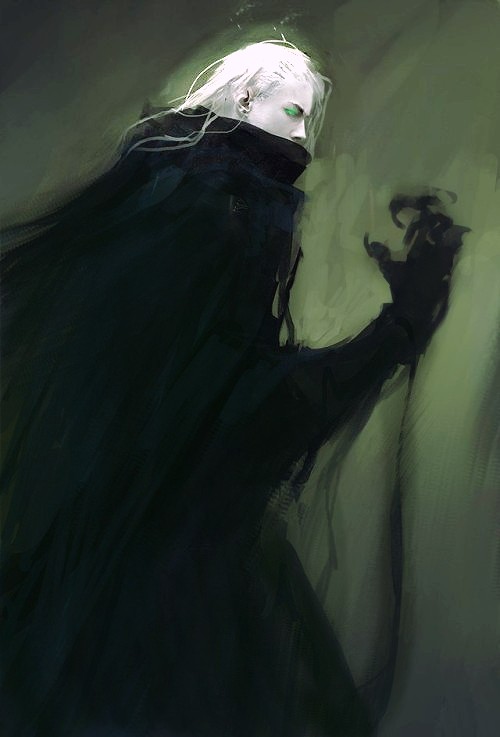

The Heroic Tribunal
During the Dragon War, many powerful heroes and champions of each god stepped forth to combat the Draconic Imperium for hundreds of years in order to secure a future of freedom for the world of Pryxis and it's inhabitants. However, towards the very end of the war, three individual heroes with fealty only to their fellow man came to fight as a unified front that ultimately ended the War.
These three heroes are known as the Heroic Tribunal - a sect of Divine Saints of mortalkind that sacrificed themselves in the final battle against Tiamat and her Greatwyrms to push her back into the throes of Hell.
Honored Fallen
The Heroic Tribunal consists of three prime heroes whose lives are honored as prime examples of the strength and courage of mortalkind during the age of the Dragon War.
Gilthunder Dragonheart - a half dragon dark elf who embraced the ways of the bloodhunter to ensure the mystical arts of dragoons, lancers and the way of the voice was maintained.
Haedrig Wyrmsbane - a towering goliath who singlehanded cut swathes into the armies of the Draconic Imperium and shook mountains under his thunderous fists.
Zolis Sephret - a holy human who swore herself to the fealty of the overspirits of reality and ushered the souls of countless lives to their final rest.
These three saints are honored by the masses of Pryxis for their countless sacrifices throughout their lifetimes - and are considered just as instrumental in their freedom as the arrival of the seven sins.
Mortal Saints
The masses upon Pryxis worship the Seven Sins as the core religious institution - but in memoriam of the three heroes who exemplify the tenets of their desire for freedom, the Heroic Tribunal are worshiped as Saints under the Pantheon of Sin, effectively ensuring their memories live on within the hearts and minds of the people they saved.
It is said that the Heroic Tribunal were granted their own divine thrones after their deaths by the Pantheon of Sin, allowing them to effectively become a minor pantheon.
People who follow the tenets of the Heroic Tribunal originally gained no benefits from their worship, but as time passed, small miracles and acts of divine magic began to flow through those who honored them - implying that not only did the Heroic Tribunal live on, but they have also ascended to a higher state of being akin to quasideities.
Quasi Gods
Because the Heroic Tribunal is not a true pantheon of gods, the powers they grant are fundamentally lesser than the grandiose powers of the Pantheon of Sin; however, honoring the Heroic Tribunal does not take away from the worship of the Pantheon of Sin - in fact, it is encouraged by the Seven Gods.
When visiting temples to the Pantheon of Sin, it is traditional to find small shrines to each of the members of the Heroic Tribunal grouped near the entrance, where they symbolically take up the mantle as the messengers and intermediaries between the mortals and the gods themselves.


Minor Gifts
For the Heroic Tribunal, power is not something that can be given as easily as it can be by those of the Pantheon of Sin, thus, the Heroic Tribunal can only grant momentary powers in the form of gifts.
These minor gifts require no strict adherence to the morals or guidelines of the deities being worshiped. Instead it relies upon the individual to look up to or feel drawn to the tenets given by the minor deity.
Gaining Gifts
To gain a gift, one must simply pay homage to the minor deity of the Heroic Tribunal that they most identify with. Paying homage can only be done at a shrine or holy site dedicated to the minor deity in question.
Homage is traditionally given in the form of reverent prayer or symbolic gesticulation before the shrine of one of the Heroic Tribunal; however, the act of libation, small offerings or contemplative gratitude is equally acceptable.
Sometimes, if the minor deity believes the individual is not upholding their tenets properly, the deity can choose to withhold their gifts until proven otherwise.
Honored Power
When paying homage, minor deities can grant small gifts as tokens of their gratitude for new or continuous faith.
These gifts can only be used once before disappearing, you can only have one gift from any god within the Heroic Tribunal at a time, and you cannot gain another until you use the gift and 3 days have passed.
I knew the Heroic Tribunal, yes. They worked alongside me during the Dragon War.
In fact, I trusted them more than I did the seven sins to get things done. They could accomplish assassinations without being detected, could stir the misbegotten masses into a fervor, and demolish the draconic overlords as a spectacle.
I'm glad they're still remembered.
-- Pryxis


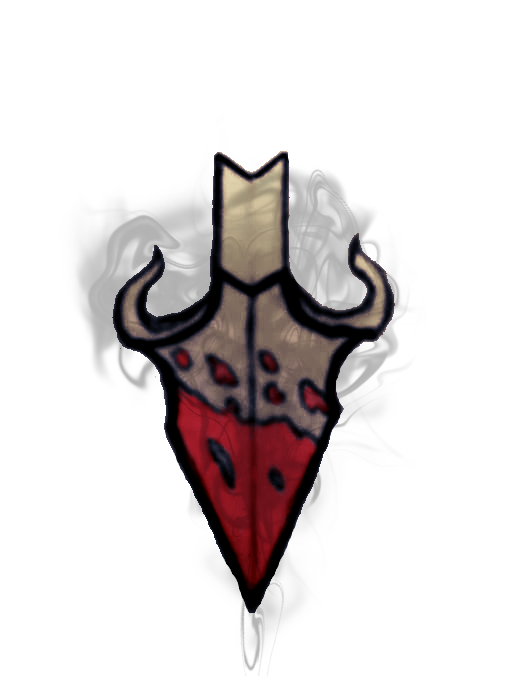
Gilthunder Dragonheart
A Dark Elven Man who once served the Draconic Imperium, cursed with the blood of a dragon, he threw off the shackles of his would-be generals and began to teach their secrets to the mortal masses of Pryxis.
Through him, the people of the realm learned several new methods of warfare - and all in ways of using the dragons' secrets against them. Such as imbibing the blood of fallen dragons to gain their powers, the teachings of their primal voice to channel great bardic magics, and the physiological study of their anatomy to quickly pierce and cleave through their vitals.
Now considered a Saint of Guile and the Hunt, those who follow Gilthunder's tenets learn ways to augment their own bodies with the means to hunt and flee from dragons, monstrosities, and other predators.
Fallen to Grace
Gilthunder was an elven man that served as a lieutenant of the Draconic Imperium's many armies under the leadership of a Mad King.
However, this service was not out of want - but rather out of need, as Gilthunder's family had their lives assured so long as he served the Imperium. Gilthunder rose through the ranks to secretly amass more knowledge and understanding of his overlords, and when he failed in his mission to defend the Mad King he served, his family was slain before his eyes and he was forced to drink a mixture of their blood and that of a dragon; to reinforce the ideation that his life would always be within the grasp of dragonkind.
Enraged and stifling his anger behind the mask of cold subservience, Gilthunder organized a secret plot to overthrow the Mad King and Greatwyrm he served. Years later, after succeeding in an assassination against the Mad King he served for decades, he rallied the kingdom he subjugated to rebel as the Mad King fell to his lance.
The kingdom he now led was taught the arts of dragon warfare - even imbibing dragons blood to challenge their lords - and all followed his orders as he took the broken pieces of his life and the lives of so many others and forged them into weapons to overthrow the Imperium.
The Dark Wind
As the kingdom and surrounding lands united under the rallying call of Gilthunder, a swift reallocation of the Imperium's resources began - turning all riches and armaments into the hands of those that were once oppressed by them.
Gilthunder offered freedom to those who were broken and enslaved, and offered a choice to the followers of dragonkind: join him, or die.
Amongst those who either defected or rose to the call, Gilthunder chose the best among them to learn the ways that were so fiercely burnt into his core. Thus began the advent of the dragoons; a collection of lancers, wielders of the ancient tongue of dragons, and the imbibers of their blood. No matter the cost, Gilthunder would turn every facet of dragonkind against their oppressors.
Gilthunder gained the title of "The Dark Wind", as the force of his relentless teachings swept through the countrysides, instilling in those willing to listen the discipline to use the greatest weapons of the Imperium as their own.
Gilthunder's Followers
- Alignment: Usually neutral, often evil
- Suggested Classes: Bloodhunter, ranger, rogue
- Suggested Cleric Domains: Hunt, Travel
- Suggested Backgrounds: Charlatan, criminal, haunted one
Tenets of Gilthunder
The following tenets represent what followers of Gilthunder strive to uphold:
Life is a Hunt. The idea that all life is a matter of survival of the fittest - only the most skillful will supersede the rest.
The Hunt is Life. When one becomes complacent, they fall as prey for those stronger than them - never let your guard down, always strive to hone yourself and your skills.
Gifts of Guile & Hunt
When praying or offering homage to Gilthunder at one of his Shrines, you may choose one of the following gifts to receive.
Gift of Stamina
As an action, you are filled with a rush of adrenaline and energy. Your speed increases by 10 additional feet until the end of your next turn, and you immediately regain two uses of a class feature that has been depleted - such as action surges, rages, bardic inspirations, channel divinity, etc. If the amount restored goes over your max, you gain an additional use until 24 hours has passed.
Gift of Guile
As a bonus action, you summon forth the unnatural reflexes of Gilthunder.
For the next minute, your Dexterity or Charisma score increases by 2. After the minute has passed, you take 1 level of exhaustion.
Tales of Gilthunder
The stories of Gilthunder tell of his cunning and deadly precision during the fall of the Draconic Imperium.
Nightcutter. The renowned greatspear-scythe of Gilthunder Dragonheart, crafted from blackened mithril and silver, Nightcutter is exceptionally light and was known to pierce scales and plate with but the lightest of taps, and equally cleave through meat and bone as if it were naught but paper. The weapon earned its namesake for its ability to seemingly blend into the shadows and night sky as Gilthunder leapt from mountain cliffs, city towers, and tree tops alike to pierce Dragons out of his night skies.
Dark-Strider. Gilthunder was no stranger to the cover of night nor the mantle of shadows - being a dark elf and having drank the blood of a shadow dragon, the only means for him to survive was to remain under constant darkness. However, as his studies of the innate magics within dragon's blood continued, he tapped into the ability to subsume a fog of pure shadow, allowing him to remain present even in direct sunlight. Although, evening, dusk and night were still the favored times of the shadow lancer.
Pact Eater. No tale tells of such a savage display of silver-tongued charisma towards those who would seek to betray him as the case of the tale of Dirjun, the Pact Devil. Dirjun had approached Gilthunder with the intentions of luring Gilthunder into a pact which would forfeit his kingdom and rebellion for the sake of greater power - but doing so would have indeed granted him the powers of a fiend. After a mere hour of deliberating between Gilthunder and Dirjun, the pact devil had sorely miscalculated the lancer's ability to perceive trickery and lies, and instead was lured into giving up his own power, which Gilthunder gleefully embraced. He then slew the Pact Devil and took charge of all his still existing pacts, becoming a mortal pact keeper. It is said that even now, Gilthunder maintains a network of rebel pact-devils under his control.
A man of few words and direct action, I sympathized with Gilthunder over the loss of his family - but at times questioned his transgressions as an Imperial Lieutenant.
Yet, his willingness to rip apart his previous masters put all doubt to the grave.
-- Pryxis
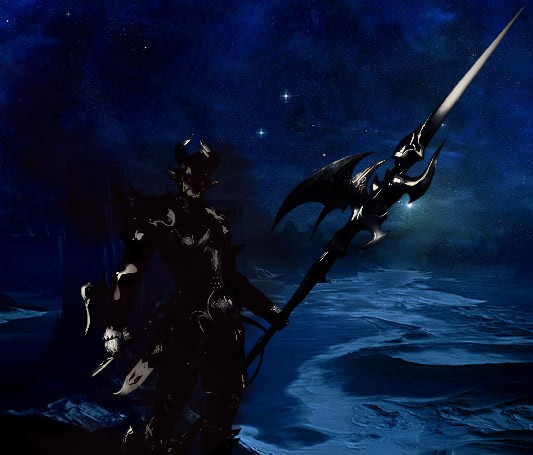

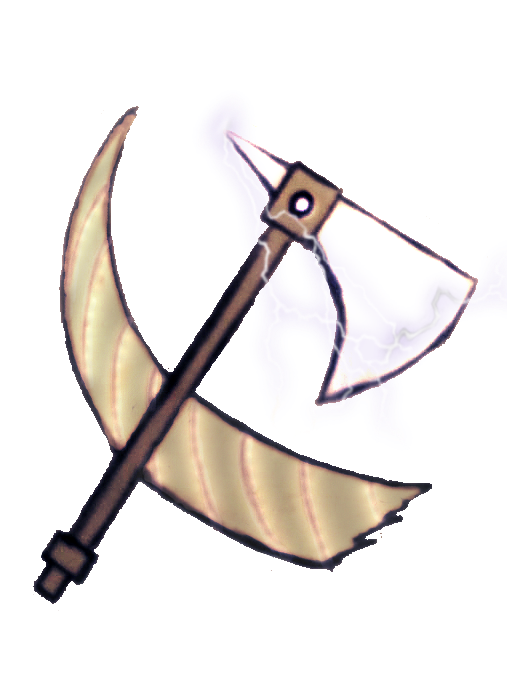
Haedrig Wyrmsbane
A Towering Goliath King who united the wildmen, goliath and giant tribes into one unified kingdom and led the charge on a bloodthirsty crusade against all dragonkind.
It was Haedrig who brought to Pryxis the ideas of mass-producing weapons and armaments, as well as forging a centralized military system - utilizing the teachings and disciplines from all corners and creeds of the world into a unified fighting force.
Hailed as a Saint of Might and Ruin, those who follow Haedrig's tenets embody terrifying physical forces and become unstoppable juggernauts upon the battlefield.
Rags to Royalty
Haedrig began his life as a lowly child of the goliath house he was birthed under - a mountain sanctuary hidden deep in the mountains of a lost continent, hopefully away from the prying eyes of the Draconic Imperium.
One day, the city he called home came under siege by a greatwyrm, and with his family dying and his home destroyed, he fled into the mountains and was taken in by a group of nordicmen who raised him in the art of warfare and honor. During his youth, he never gave up the inner bitterness that sought to avenge his fallen people.
As he came of age, and out upon a hunt, his party and he were set upon by an ancient dragon. The dragon slew each of his fellow compatriots until it's gaze turned upon him. The fury within his chest kindled once more, as the memories of his fallen home ablazened within his mind. He called above to the heavens, wishing for the gods to take notice upon him as he either avenged his family and friends - or died trying.
In that moment, as he lay bloody and weaponless upon the snow, a meteorite began to streak through the sky towards him, impacting the ground where he lay. Exhausted, yet fueled with otherworldly determination, he hoisted the still burning meteorite above himself and pummeled the dragon into a pulp, spraying it's blood across the ice and stone.
With this meteorite and dragon corpse, he would show that their overlords could yet be defeated - and that he would be the one to lead the people in their charge.
The Storm Blade
After slaying the Ancient Dragon, and draping himself in it's carcass and fashioning a weapon of dragonbone and meteorite, he set out to unite the remaining nordicmen, goliaths, and all giants he could find as a single people under his rule - joined together in the overthrowing of the Imperium.
Those who refuted his charge as king were slain without pity, and those who joined were granted the weapons of fallen dragons. As time passed, whole countries of his kin began to rally under him - joining their banners with his.
He taught the skills of hard work and raw power to the masses who swore allegiance to him, everything from stonecutting, woodcarving, smithing, or sailing - those who followed his example would learn the ways of life without the dragons. Indeed, without the labored hands of Haedrig's Kingdom, the Dragon War may have never been won.
Haedrig earned the title of "The Storm Blade" as his ability to lead the lightning-fast charge of his people with unrelenting force left many man and dragon awestruck and fearful.
Haedrig's Followers
- Alignment: Usually lawful, often neutral
- Suggested Classes: Barbarian, fighter, paladin
- Suggested Cleric Domains: Tempest, War
- Suggested Backgrounds: Athlete, folk hero, knight
Tenets of Haedrig
The following tenets represent what followers of Haedrig strive to uphold:
Strength is Power. Through honor, discipline, exercise and might, one can achieve physical perfection and become power personified.
Power is a Tool. Great power bears great responsibility - do not thwart or misuse power for the wrong drives or false reasoning. Power is like a weapon: best used when most understood.
Gifts of Might & Life
When praying or offering homage to Haedrig at one of his Shrines, you may choose one of the following gifts to receive.
Gift of Health
As an action, your wounds and ailments heal before your very eyes. You immediately regain 4d8 + 4 hitpoints, and are cured of one disease or condition as per lesser restoration.
Gift of Might
As a bonus action, you summon forth the immense fortitude of Haedrig.
For the next minute, your Strength or Constitution score increases by 2. After the minute has passed, you take 1 level of exhaustion.
Tales of Haedrig
Stories told of Haedrig describe his unstoppable fortitude and earth-shattering strength during the Dragon War.
Wyrmsbane. A massive Splitting Maul crafted from the adamantium meteorite and remains of the ancient dragon slain by it, this combination maul-greataxe struck fear into the hearts of all who witnessed it's path of destruction. Haedrig named the maul-greataxe after himself as he viewed it as his crowning achievement and representation of his royalty. Wyrmsbane carried with it an innate thirst for the blood of it's brethren, becoming a powerful dragon-slaying weapon.
Storm-Bringer. Blessed by the war gods of the Pantheon of Sin, as well as those of the norse, Haedrig manifested powerful supernatural abilites to harness the energies of the storm and gale. It is said that in times of extreme duress, Haedrig was able to mantle gale-force winds and the wrath of the skies above to strike down upon his foes - and almost always at the behest of his maul-greataxe.
King of Giantkin. When Haedrig united the various clans, tribes, wanderers, and collections of his people under one unified banner, it is said that he journeyed back to the once great city he was born within and rebuilt the city as the seat of his newly founded kingdom. There, he established a new reign of loyalty and discipline which must be upheld by each new king to take the throne after him. This culminated in the establishment of the Giant-Stones; 7 sets of massive column stones scattered throughout the world, which each king must pilgrimage to in order to receive the blessing of the Giant Gods before ascending to the throne. The first (and last) stone is the massive throne upon which Haedrig and each successive king sits upon.
The King of Giantkin; a titan of a mortal man. Foolhardy, cocksure, and brash at first glance, but nuanced under the surface.
He saw the world as a test of strength alone. Even the war itself was merely an opportunity to exert his might.
-- Pryxis
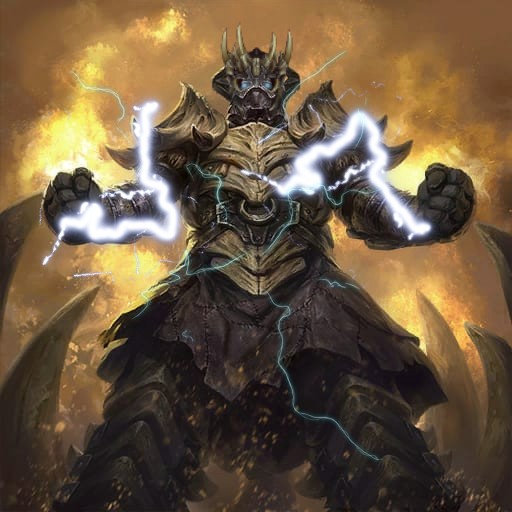


Zolis Sephret
An otherworldly Human female who led and protected the masses spiritually as the head archpriestess of agnostic belief - an iconoclastic cleric.
Zolis solidified the ideas of freedom and perseverance within the people of Pryxis; teaching those under her care the arts and practices of ritualistic communion with the spirits and otherworldly forces, as well as the rites of the dead and the care of the living - all while serving an inscrutable force beyond the comprehensions of mortals and gods alike.
Honored as the Saint of Will and Spirit, followers of Zolis are granted greater insight into the power within themselves and the capabilities they may possess.
Rising from Ashes
Zolis was found as a babe upon the doorsteps of a temple during the days of the Dragon War, and without hesitation, the clergy accepted her as one of their own with open arms.
As Zolis grew within the cloistered studies of the temple to the gods - she embraced their respect of the spirits and mortalkind, but came to question and eventually shun the influences of the gods themselves; seeing them as unworthy of direct worship, but moreso a begrudging respect and affirmation that they exist.
This was not met well with most who heard her eulogies and prayers, where she would call upon the spirits of the departed for power instead of the deities whose clergy had welcomed her in. She was eventually cast out by the holymen and churches she once was welcomed within. Because of this, she was easily hunted by the Draconic Imperium.
As she was engulfed in the flames that sought to char her, she was instilled with the souls of those from her ancestral lineage and the spirits of those she had laid to rest; billowing out magic and force from her form - and given a new charge. She would become the spiritual leader of the masses who had felt forsaken and lost by the gods themselves, and lead them to break the chains of worship and draconic subjugation.
The Grave Star
When risen to the new station as spiritual leader of the misbegotten people of the world, Zolis began a religious awakening of the masses - teaching the ways of animism: the spirits and power within all things.
Those who were dejected, felt unloved by society, or forgotten by the gods fell under the congregation of Zolis. She taught the ways of respecting the dead and calling upon the souls of the departed for power in the most dire of times.
She unified the lost and downtrodden of Pryxis into a spiritual force that sought to heal those who suffered during the Dragon War, as well as embraced the value of giving one's life for a greater cause.
Zolis was given the title of "The Grave Star", as her preaching of the rejection of gods and the embrace of the spirits led many to look to her as a beacon of shining hope.
Zolis's Followers
- Alignment: Usually neutral, often good
- Suggested Classes: Cleric, warlock, wizard
- Suggested Cleric Domains: Grave, Time
- Suggested Backgrounds: Acolyte, hermit, sage
Tenets of Zolis
The following tenets represent what followers of Zolis strive to uphold:
As Within. The greatest magics come from the harnessing of inherent powers within, and these powers may be sharpened by the grace of others.
So Without. Relying upon those around you when you cannot rely upon yourself is a danger to all - this holds true with those beyond our comprehension as well, such as gods.
Gifts of Will & Spirit
When praying or offering homage to Zolis at one of her Shrines, you may choose one of the following gifts to receive.
Gift of Mana
As an action, your mind sharpens and you garner new ideas. You gain 5 mana points that you allocate towards regaining spell slots, with every spare point being lost - as shown below.
| Spell Slot | Mana Point Cost |
|---|---|
| 1st | 2 |
| 2nd | 3 |
| 3rd | 5 |
These mana points can also be used to restore spells of equal spell levels from Piety features and magic item slots.
Gift of Will
As a bonus action, you channel the deep knowledge of Zolis.
For the next minute, your Intelligence or Wisdom score increases by 2. After the minute has passed, you take 1 level of exhaustion.
Tales of Zolis
The Tales of Zolis delve into her tenacity and willpower to lead the unenlightened masses of Pryxis to a brighter future.
Gravekeeper. A simple, yet elegant, spear-staff that was utilized by Zolis herself as a holy symbol and weapon to combat threats against her people. This entropium, shovel-like, spear-staff was granted to her under mysterious circumstances; namely, bestowed to her by a higher power who acted beyond the interests of the gods themselves. This otherworldly entity led a life of quiet contemplation and guardianship over the remains of all Dead Gods, and goes by the name Chac-Mool to some, and to others, Anubis. This entity sought out Zolis for her refusal to bend knee to deities, and granted her a fraction of their own power to be utilized to her own ends.
Phoenix-Mantled. Zolis once sought to free an enslaved Phoenix who had been used as a tool by the likes of a Red Greatwyrm during the Dragon War - channeling the phoenix's powers into itself to resurrect after death. Zolis had managed to defeat the Greatwyrm with great difficulty, and had rushed to save the Phoenix, who had begun to turn to ash within her hands - it's lifeforce drained into the red dragon. Before the phoenix could completely wither into nothingness, it lashed out with it's powers one last time to grant Zolis a mantle of it's ever-burning feathers.
Tender of Heroes. Legends tell of a cloaked and hooded figure who attends the funerals of all those who have enacted great deeds within their lives for the betterment of mortalkind - whether their effects can be felt immediately or distantly. When a hero dies a slow, painful, and lonely death with their deeds unknown to anyone or anything, it is said that Zolis herself will oftentimes appear to grant last rites and regale the hero with all their greatest deeds throughout their lifetime. At times, these retellings will peer into the future; allowing the hero to know that their sacrifices were not in vain. She will then close the eyes of the hero and bury them honorably, marked with a tombstone not with their name - but with their greatest deed. As time does not care for names, yet great deeds live on.
My long lost friend and adversary, we had a profound respect for one another's philosophies on the powers - yet divided.
Where I recognized that deities could be used as tools, She believed they deserved to be forgotten.
-- Pryxis
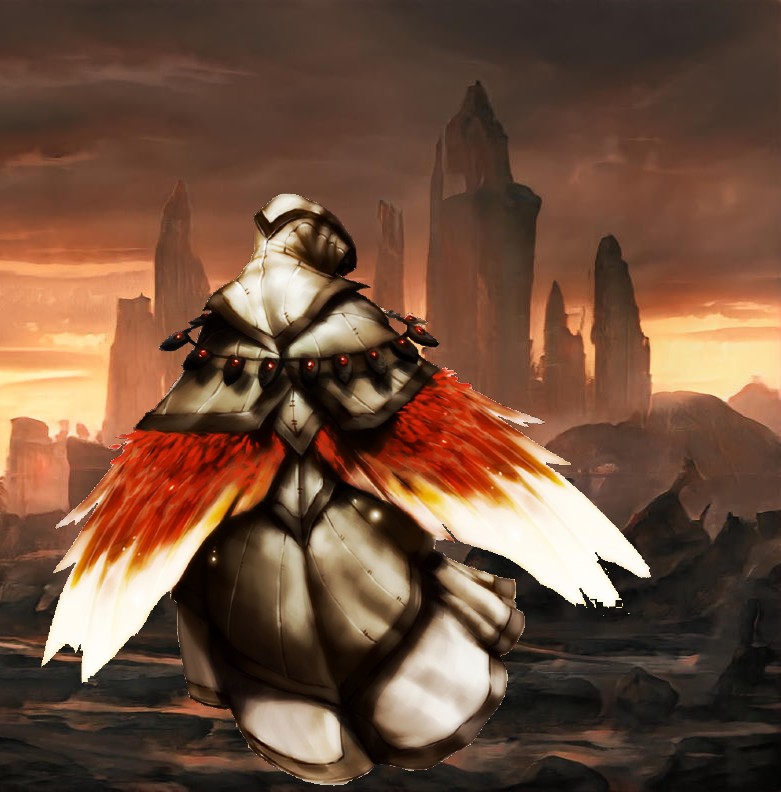

PART 4
The Land

The Pryxis Megalopolis
The main planetary starport and largest metropolitan region upon the world of Pryxis - the Megalopolis of Pryxis is where the Archmagus Eternal makes his home and oversees the minutiae of his world.
The Land
General Overview
The lands of Pryxis are as banal and standardized as they are unique and baffling; each continent that remains un-subsumed by the great deluge exhibit the general non-magic biomes and environments one would expect from any world - until you venture far or deep enough into those lands, only to find areas that defy the laws of reality and yet, are naturally accepted by the surrounding natives.
Again, the lands of Pryxis are unique in their ability to adapt and adopt any who settle there. Many continents are home to races that have ancestral lineages dating back before the spellplague - insisting that they have lived upon that land since time immemorial (whether this is true or not is a moot point).
Regardless of where, when or even how, the lands of Pryxis are home to not only a variety of races and peoples, but also magical nexuses and adaptive environments that astound many who cross them.
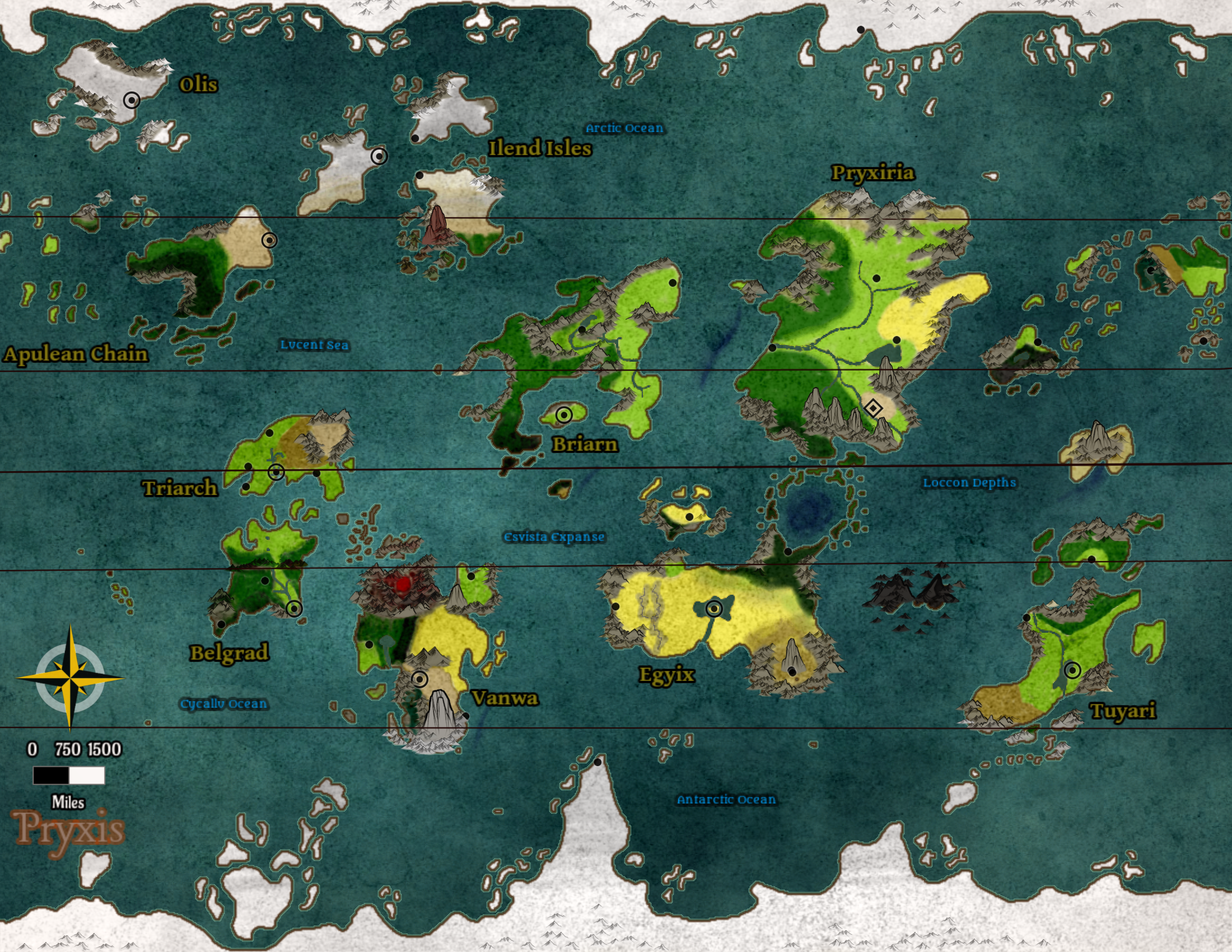
Full World Map
For a larger and higher definition map of Pryxis, follow the link here: Pryxis World Map
As we all know, the world is incredibly wet.
I mean, it was always wet... but after the Meteorfall, there has been alot less land than water.
So many lands lost...
So many kingdoms... histories... people...
... I don't wish to discuss this topic any further.
-- Pryxis
The Continents
Each listed continent contains a main key that breaks down the expected environments, the capital city of the continent, and the main non-capital cities.
After each key section, a general breakdown of each continent will be listed, as well as several points of interest native to that individual land.
Each continent holds it's own people, customs, governments, creatures, and unique locales - and these facets should be kept in mind while traversing them. Some areas of each land remain undiscovered or forbidden to some, and many adventures await those with the willingness to traverse the yawning dark.
Continental Information
Each named continent offers generalized information pertaining to the environments, settlements, and basic history of the civilized areas present in those continents.
Additionally, each section offers a localized map of the continent, a map of the capital city, and a handful of key points of interest pertaining to the individual continent. As for non-major villages and towns, there are town name generators to allow the creation of localized cities and settlements that adventurers could come across - and information pertaining to their construction.
Environments
The following environments represent the dominant landscapes that exist upon the world of Pryxis. Each environment counts as a separate favored terrain for Rangers.
The presence of some Environs does not negate other Environs - it merely indicates the dominant land type.
List of Environs
| Environ | Description |
|---|---|
| Coastal | Sea, lakes, islands, beaches |
| Cold | (Ant)arctic, ice, glaciers, snow, tundra |
| Desert | Sand, glassed, wasteland |
| Forest | Woodland, tree-cover, jungle, overgrowth |
| Grassland | Prairies, hills, farmland, plains |
| Mountain | Mountainous, steppes, canyons, cliffs |
| Swamp | Bogs, runoff, marshland, decay, wetlands |
| *Underground | Caves, dungeons, underground, underdark |
| **Urban | Buildings, streets, sewers, towns |
*Underground Environs exist throughout all lands
**Urban Envrions exist wherever a great presence of civilization may be found.
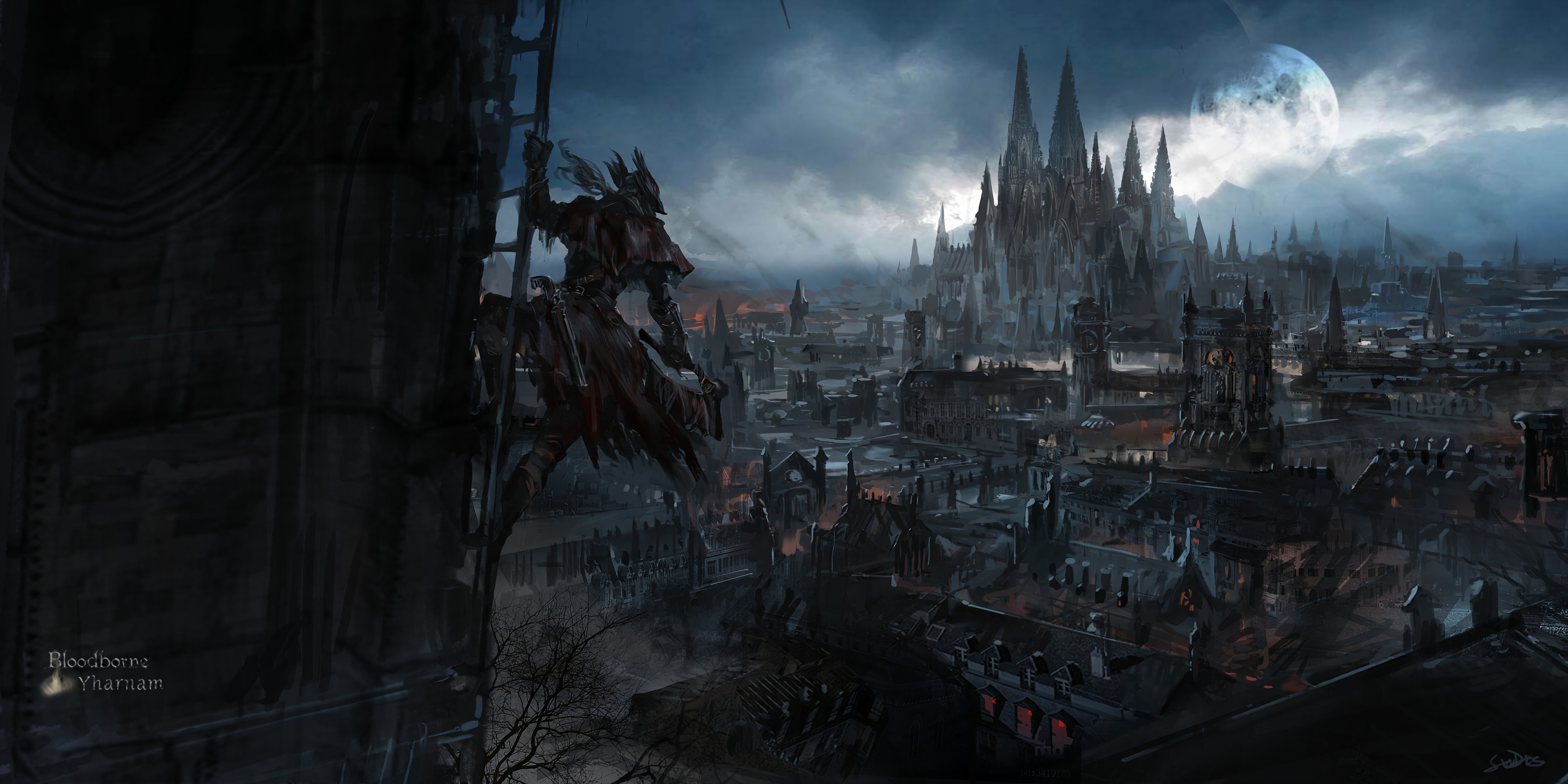

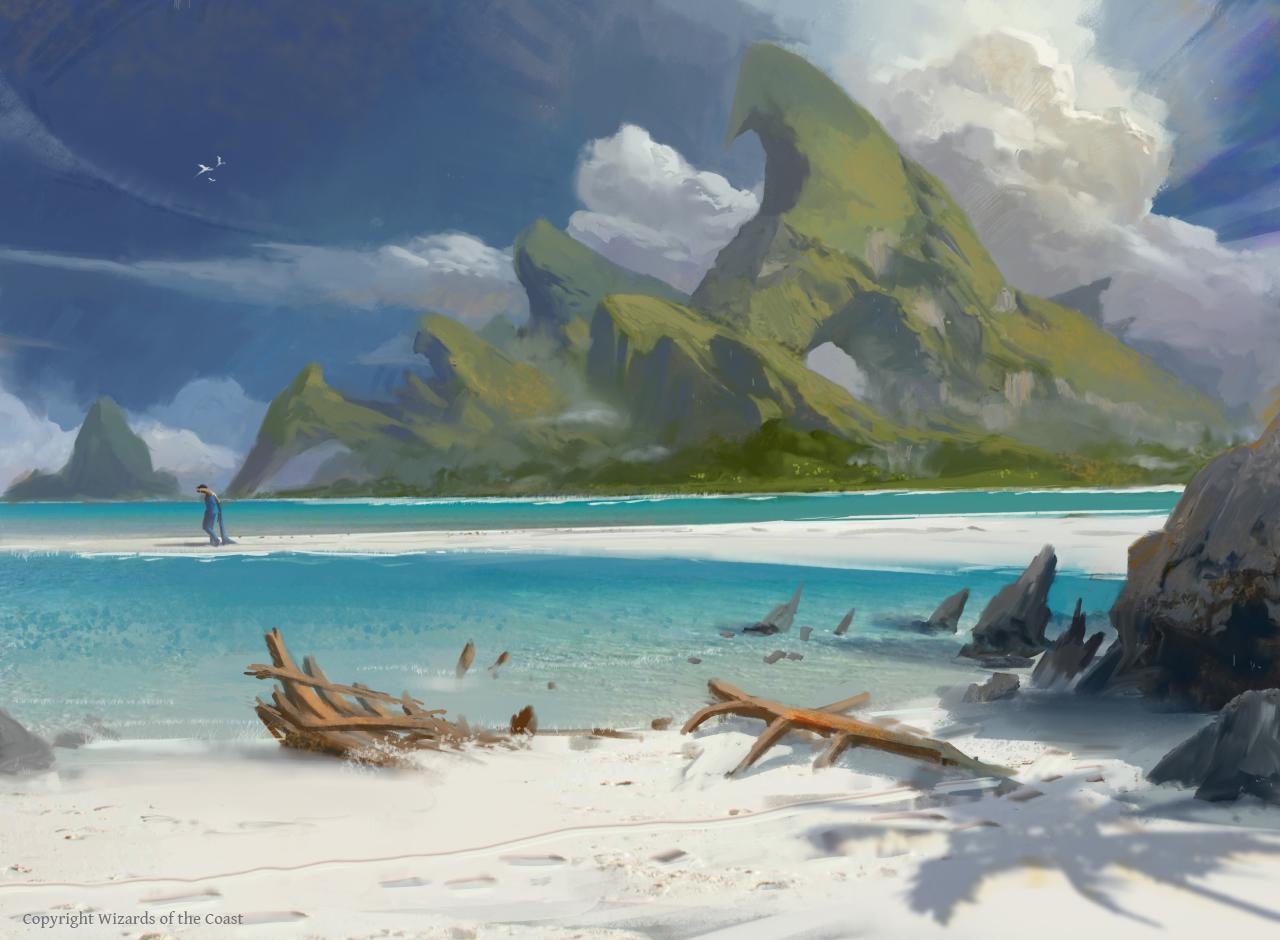
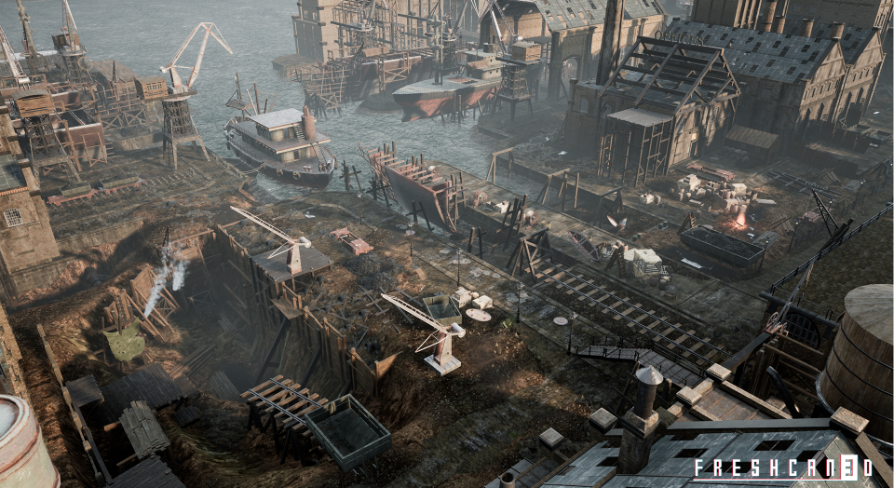

Apulean Chain
- Main Environs: Coastal, Swamp, Grassland
- Capital City: Rosbern
- Main Cities: Anelin, Ghothra, Mallaig
The Apulean Chain is a massive archipelago of several islands and landmasses that sprawl across the northern hemisphere of the Lucent Sea - namely within the temperate zone.
These islands share no singular unified government, and instead each particularly large (and settled) landmass governs their own laws and districts through the governance of city-states.
The largest city-state is that of Rosbern; which the rest of the Apulean Chain conducts world trade through and utilizes it as the main hub for travel.
Analin and Mallaig are the next main cities of the Apulean Chain - and both cities reside within the same section of land, resulting in ongoing conflict and uneasy cooperation with both cities.
Ghothra is the city residing closest to the Pryxiria border, and is also the only city within the Apulean Chain that functions as a meritocracy - a militarized governance - due to the inherent danger and hazards of the land they reside upon.
As for the scattershot of islands that reside throughout the Apulean Chain, there exist several makeshift villages and towns that may answer to the governance of the previously listed cities, or may function entirely outside the law.
Capital: Rosbern
The City of Rosbern is the largest metropolitan city within the Apulean Chain.
Rosbern is a massive sprawl of various industrial buildings and ship-docks intent on supplying the rest of the world of Pryxis with trade and materials. The main exports out of Rosbern consists of oil product and petroleum harvested from the lush swamps and bogs that exist throughout the Apulean Chain.
Because of the sheer enormity of petroleum product naturally found within the Apulean Chain, Rosbern happens to be one of the most financially sturdy settlements upon Pryxis - rivaling even that of the Pryxis Megalopolis through the mass amount of Oil and Gas being shipped out on a weekly basis.
Aside from the petroleum product being the main lucrative export of the Apulean Chain, the mineral and lumber materials available for trade out of the area make up the remainder of the generation of wealth for the Apulean Chain.
Because of it's massive financial success (as well as it's remote location), the city of Rosbern is a prime target of protection by that of the Merchant's Guild - and many of it's members maintain permanent residence within the city limits, acting as Rosbern's Oligarchs.
Anelin
A small city located in the western coast of the middle-most landmass of the Apulean Chain, Anelin is nestled in a vibrant marsh along the edges of the largest lake in the area.
Much of the city is comprised of simple wood and stone structures, with roughly one third of the overall buildings residing on floating flats upon the inner lake of the marsh.
A group of hermetic psionic halflings call Anelin their native home, and have lived in the area since before written histories - and many other races who settle in their city are usually welcomed by these halflings, but normally only after proving their worth.
Due to the uneasy disputes between Anelin and Mallaig, the tunnel through the mountain range that leads to the meadowlands beyond is heavily guarded from through traffic.
Anelin is hidden from the rest of the island it resides upon by the mountain range that holds the marsh at bay. Behind this mountain range, the inhabitants of Anelin maintain a steady trade of marshland flora and fauna to those who dock in their port nearby.
Legends tell of an ancient power that slumbers deep within the lake of the swamp, one which has been credited with the psychic powers granted to the Halflings who dwell here. Supposedly, this same power has protected Anelin from outside threats for untold millennia.
Ghothra
Planted firmly into the coastline of the western landmass of the Apulean Chain, this mazelike fortress stands in stark contrast to the surrounding hyperlethal landscape.
Completely contained within a series of iron-bound wooden walls, the city-fortress of Ghothra is the only settlement on the western landmass of the Apulean Chain - the reasons for such being the presence of a Demonic Incursion which spills forth from deep within the tropical jungle to the south of the landmass, corrupting all flora and fauna into abyssal monstrosities.
The city of Ghothra functions as the main militaristic countermeasure to the demonic incursion on the landmass, placed here by orders from the Guild of Three. Troops and supplies are regularly deployed to the island to prevent the incursion from spreading further, with patrols of heavily armed soldiers and mages being sent to purge the demonic influence.
Due to the long-standing presence of the Abyss on the landmass, simply "burning away" the demonic influence is nigh impossible. The Abyssal infraction has existed upon the tropical island for well over three centuries, and continuous attempts to destroy the main abyss gate have been made - to no success. Even the Archmagus Eternal himself has begun to funnel funds and resources directly to the city of Ghothra in an attempt to create a greater foothold against the Demonic Forces.
Many who get stationed at Ghothra are often hardened criminals or veteran soldiers who know full well that their lives may end by the hands of demonic influence - and those that have survived the longest usually end up in positions of meritocratic power.
Mallaig
A walled city built high atop the tallest plateau island of the southern archipelago of the middle-most Apulean landmass, Mallaig is a coastal fortress surrounded by a network of bridges, docks, and boardwalks that stretch throughout the archipelago.
Mostly inhabited by a dominant tribe of Orcs, the city of Mallaig is a stone stronghold that was once the site of an ancient kingdom that fell out of power around the time of the Dragon War - supposedly once belonging to a Mad King, who was overthrown by the Orcish slaves that took advantage of the collapse of the Draconic Imperium.
While the stronghold still stands, patchwork masonry and carpentry make up the vast majority of architecture spreading outwards from the fortress - and the main series of stone bridges leading to the mainland are still functional, albeit crumbling.
The Orcs of Mallaig have a view of disdain for the city of Anelin - and subsequently, the Ghostwise Halflings that dwell there. The reasons for this bad blood is supposedly derived from a view of ignorance on the Halflings' part towards the Orcs' enslavement during the reign of the Draconic Imperium, but the Halflings plead that they knew nothing of the strife the Orcs underwent. Nevertheless, the conflict between both groups of people has not yet subsided.
Apulean Chain Settlements
Settlements and Towns built upon the Apulean Chain tend to be more akin to Utilitarian fishing villages, logging or mining towns, and the occasional repurposed ruin or fort. Some coastal towns are abandoned or limitedly populated due to raiding.
Apulean Utilitarianism
Structures within the Apulean Chain take on a style of architecture in which their form matches their purpose.
Utilitarian buildings are monuments to industrial practicality, and such structures are usually constructed with very inexpensive materials (typically basic brick, stone, wooden beams and iron sheets from the surroundings) and showcase limited applied detail or decorum.
Many visitors to the Apulean Chain may find the bare nature of the buildings and lack of external decorations to be damn-near unsettling - not accounting those few individuals with more simplistic desires or ascetic disciplines.
Apulean Chain: Town Generator
| d20 | Town Name Base | Town Name Second | Composition | Main Focus |
|---|---|---|---|---|
| 1 | ||||
| 2 | ||||
| 3 | ||||
| 4 | ||||
| 5 | ||||
| 6 | ||||
| 7 | ||||
| 8 | ||||
| 9 | ||||
| 10 | ||||
| 11 | ||||
| 12 | ||||
| 13 | ||||
| 14 | ||||
| 15 | ||||
| 16 | ||||
| 17 | ||||
| 18 | ||||
| 19 | ||||
| 20 |
Apulean Sites of Interest
Abyssal Tides
The Western Landmass has been permanently altered by the Demonic Incursion pouring forth from the Abyssal Gate deep within the tropical forest.
Featuring otherworldly and demonic-influenced flora and fauna, as well as the armies of the abyss pouring forth into the surrounding landscape - this area is considered to be one of the deadliest places on the planet.
Due to regular invasions, as well as the regenerating corruptive capabilities of Demonic Ichor to pervert the prime material - the surrounding land and its inhabitants are to be purged by any means necessary. All attempts to approach the Abyssal Gate have proven fruitless so far.
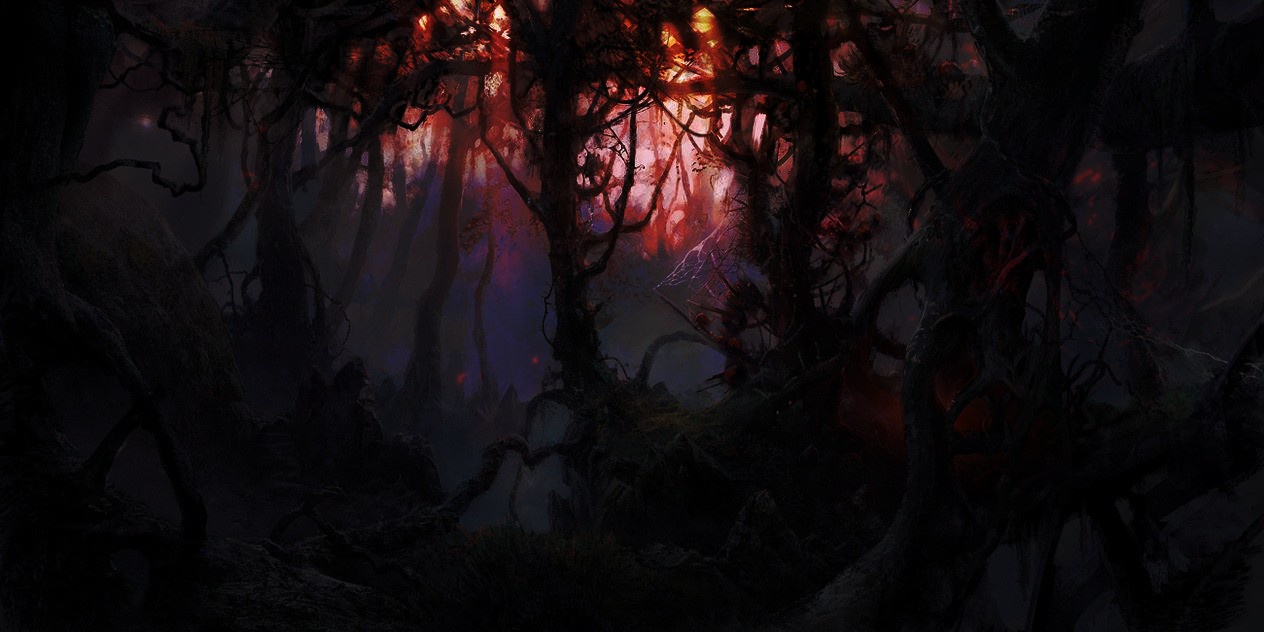

Veilmire
myriad marshlands on the leftside of the mountain range - permanently infused with the Gyre. Home to the psionic halflings.

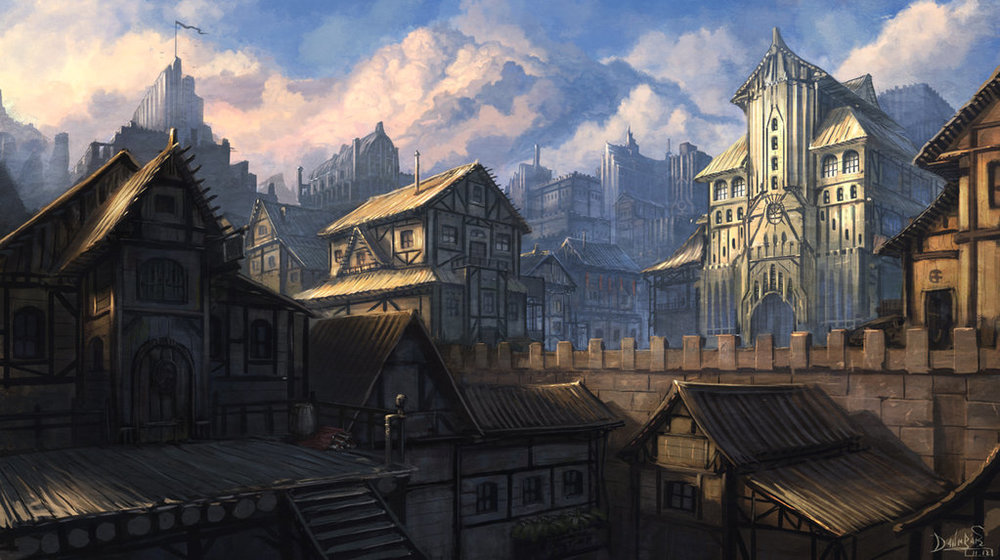

Belgrad
- Main Environs: Grassland, Forest, Mountain
- Capital City: Nimik
- Main Cities: Dhor Volbur, Na'Arth
The Continent of Belgrad is the middle continent upon the Cycallu Ocean (also known as the Stormy Sea) and is rife with thick temperate forests to the south which blend into northern tropical jungles.
Belgrad is ruled by an Aristocratic council that oversees the laws and relations between the people and the governing body. Each main city produces their own council members for the surrounding lands, and the main city of Nimik houses the government center.
The metropolis of Nimik is a renowned trade city for the surrounding continents: representing a hub from which the people, customs, and goods from every other land pass through.
Dhor Volbur is a city set within a carved out mountainside, and a majority of the city resides underground or within the caverns of the mountain. Dhor Volbur is also known to be a public entrance that leads downwards into the underdark.
Na'Arth is an incredibly beautiful elven city deep within the forests of Belgrad. The city resides in one of the darkest areas of the Belgrad forest region, and even though the surroundings are wild and untamed, the city itself stands in stark, civilized contrast.
Capital: Nimik
The City of Nimik is a vast metropolitan trade city on the south-eastern coast of Belgrad.
Nimik is a massive metal-walled city that is separated into several different districts divided by class and trade. The layers of these districts go from lowest to highest: slums, low, bazaar, high, and noble districts, with the docks branching out from the southern most section of the city.
In addition to the districts of the metropolis, the city itself is divided in two: with the lower classes (slums, low, docks) on the eastern side of the river, and the higher classes (bazaar, high, and noble) on the western side.
The main exports of Nimik are various - and include lumber, ore, animal products, food, textiles, magical reagents, and much much more. The density of various groups coming in and out of the trading metropolis provides a diverse collection of goods available to the public - but often only for a short availability.
Docking, Building and Breaking ships is a key trade within the City of Nimik, as the material goods available for use allow many ships of any size to be created in an astoundingly short period of time - and it remains one of the most lucrative jobs available to the masses.
Dhor Volbur
Clinging to the safety of the stony mountainside of Mount Volbur, the city of Dhor Volbur - which translates to "door of Volbur" - is a city that has been carved both on the side and inside of the mountain itself.
The city is located beyond the massive stone gate of the mountain, lying within a great natural cavern that is deeper than it is wide, surrounding a massive pitfall (known as The Sink) which leads into the underdark.
Dhor Volbur is separated into a series of four rings: the lower ring consists of mines and tunnels which branch outwards into the mountain and lead directly into the Sink, the middle ring is at ground level with the main gate of Dhor Volbur and is the main residential and trade area, the upper ring is less of a ring and more of a series of extravagant bridges and catwalks that connect the stalactites which have been hollowed out and utilized as high class residencies, manors and banks, and the sky ring is located on the outside peak of the mountain where the royalty resides.
The original creators of Dhor Volbur were a generation of gray dwarves who separated from their underdark brethren in an effort to change their fates. They stumbled upon Mount Volbur and began tunneling upwards instead of downwards.
Na'Arth
Na'Arth is an ancient elven city that predates even the Dragon War itself, having been abandoned during the rule of the Draconic Imperium.
Soon after the Imperium began their rule on the world of Pryxis, the city fell under siege from ransacking and pillaging by the Greatwyrms - realizing the inherent power the ancient elves of the time held within their grasps, they acted quickly to quell any opposition.
During the starting years of the Dragon War many elves who had escaped captivity fled here, being drawn by an intense supernatural longing that drove them to rediscover the ruins. Soon after the rediscovery, the city was once again inhabited by elvenkind; particularly high elves who sought to restore the city to it's original glory.
Now, the city lies as a shimmering sanctuary of beauty and splendor amidst the overgrowth and bramble - the scars of the eons etched into it's streets: revered and studied by elves and other races alike. Archeological and magical expeditions are often led throughout the city and it's surrounding areas in an attempt to uncover some hidden history as to the times before the rule of Dragons.
Many chambers and layers of the city's depths remain unknown, undiscovered and potentially dangerous, but may hold great hidden powers or secrets just waiting to be unearthed.
Belgrad Settlements
Many small towns and villages dot the landscape of Belgrad, most of which are Baroque-style towns centered around trade and various forms of ranching or farming. The most successful of these small towns are logging towns - which supply wood to the surrounding towns and cities.
Belgradian Baroque
The architecture of Belgrad utilizes a highly opulent style of building, design, and the incorporation of various forms of art in its structures.
Influenced by ancient elves of the land, Baroque architectural plans incorporate an oval and dynamic shape where the spaces favor the heightening of motion - particularly large round domes. There is a presence of dramatic and contrasting lighting with illusory and vividly painted ceilings or walls.
Those who have a chance to view the more spectacular structures of urban Belgrad are treated with visual and theatrical effects which invoke a sense of awe and wonder. To some, however, the Baroque style is seen more as over-the-top and holier-than-thou.
Belgrad: Town Generator
| d20 | Town Name Base | Town Name Second | Composition | Main Focus |
|---|---|---|---|---|
| 1 | ||||
| 2 | ||||
| 3 | ||||
| 4 | ||||
| 5 | ||||
| 6 | ||||
| 7 | ||||
| 8 | ||||
| 9 | ||||
| 10 | ||||
| 11 | ||||
| 12 | ||||
| 13 | ||||
| 14 | ||||
| 15 | ||||
| 16 | ||||
| 17 | ||||
| 18 | ||||
| 19 | ||||
| 20 |
Belgradian Sites of Interest

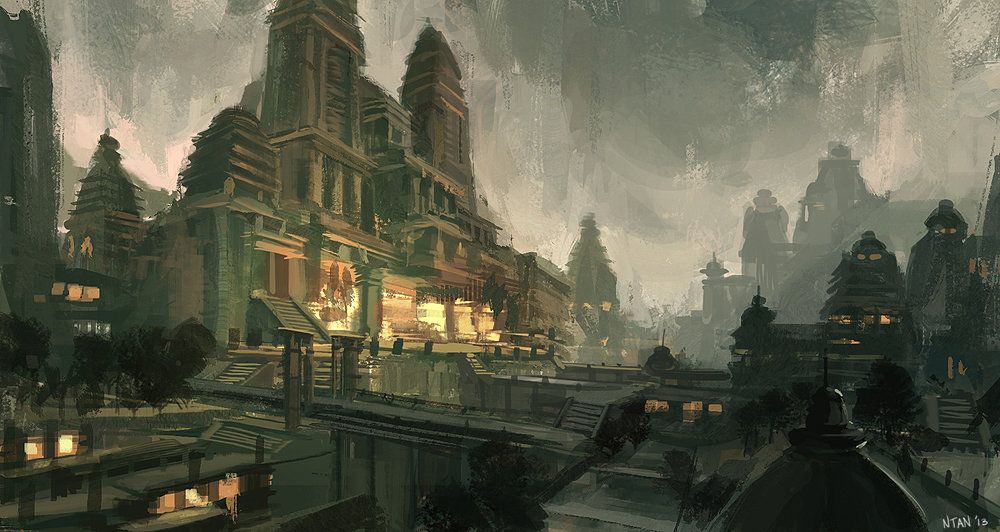

Briarn
- Main Environs: Grassland, Forest, Mountain
- Capital City: Mirstone
- Main Cities: Hulgal, Khol Lodar
The Continent of Briarn can be found upon the edges of the Lucent, Cycallu, and Esvista Oceans - and is the third largest landmass upon the world.
Briarn is a vastly mountainous landmass, and a majority of the inward land is dominated by a spiraling mountain range. The rest of the continent is covered in thick woodlands and sprawling meadows - but all of which lies upon an incredibly hilly and rolling terrain of crags and cliffs.
The Stonecarved city of Mirstone is both the capital city and main port of the continent of Briarn. The isle upon which Mirstone resides is continuously wracked by storms from the turbulent waters, and thus, has been carved to withstand the most dangerous of storm swells and cataclysmic waves.
Hulgal is the north-eastern city of Briarn, and is seen as an incredible revenue for tourism and vacation upon the temperate areas of the continent - where the shores meet the vast meadows and rolling valleys of the landscape.
Khol Lodar is the most mysterious and secluded city within Briarn - a massive valley of carved ziggurats and towers nestled within the mountainous center of the landmass, which is only accessible via the massive river leading inwards, or through dangerous underground tunnels.
Capital: Mirstone
Mirstone is a city located upon a hermetic island off the southern coast of the continent of Briarn.
The city was painstakingly carved from a singular mountain of granite that once resided upon the island it now inhabits - and the original quarries, pits, and tunnels that were used to construct it remain to this day, merely repurposed as varying structures and locales (such as lakes or water reservoirs for the quarries, and sewers for pits and tunnels).
Storms and swells regularly batter the city and shores of Mirstone, as such, many inhabitants utilize the tunnel systems and underground network as shelter from the fury of the outside weather - and many buildings, structures, and businesses have incorporated subterranean entrances to allow pedestrian traffic. Other than the subterranean network, those that travel the surface normally utilize vehicles or make the most of breaks in the weather.
When extreme weather takes place - such as tsunamis or hurricanes - shelters exist underground that can be sealed off from the surrounding surface, and many times the buildings on the surface can be sealed from the oncoming dangers.
Due to the still functioning (and useful) mining tunnels, many in Mirstone make a living by excavation of precious stones and metals that lie under the city - but this is incredibly dangerous, as some tunnels still remain undiscovered and unmapped to this day.
Hulgal
Built upon the coastline of the north-eastern peninsula, the city of Hulgal is a bustling trade city.
Brimming with traders, merchants and businessmen alike, Hulgal is a city built to welcome the various trade goods and items that come from the mainland of Pryxiria.
Constructed upon some of the oldest glacial grooves left behind by ancient ice shelves that retreated from the area well before the Draconic Imperium, the city of Hulgal not only grants a multitude of fine goods for trade, but allows many an archaeologist & paleontologist the opportunity to study the records of the world from before the harsh and destructive rule of the dragons.
The city itself is continuously funded by various high-ranking officials, and many of the buildings are finely crafted from materials found from throughout the world - as well as from a good portion of the local populace of megafauna. Due to the vast expanse of glacial groove plains beset on the northern and southern sides, various megafauna enjoy the temperate landscape. Hunters take to the plains to make a massive profit from taking down some of the largest creatures that dot the glacial grooves.
Aside from trade goods and glacial megafauna, the last aspect of Hulgal that attracts many individuals is it's tourism: a peaceful coastal city that allows many private resorts and beaches for those willing to pay the extra coin for investing.
Khol Lodar
Nestled within the center of the mountainous landscape, this eerie sprawl of stony structures lies in congruity with the surrounding mountain valley.
Upon the shores of the inner sea: Lodar (which translates to Lodestone - as khol Lodar translates directly to "King of the Lodestone"), the city was originally built as an extravagant seat of the Dwarven Empire of the world of Pryxis, where the head of the sovereignty would reside and oversee the many exploits of the empire.
The operations of Khol Lodar (and subsequently, the Empire) were housed within the main palace of the city - a massive stone ziggurat that towers over the surrounding landscape and - no pun intended - dwarfs all other structures in the area, lending great majesty to the power of the dwarves.
Dwarves of all kinds resided within Khol Lodar - as it was intended to function as holy ground; honorable and sacred, to all sects, clans and branches of the dwarven peoples. With each generation of dwarves that settled and lived within the valley, their customs, beliefs, trade and architecture was added to the sprawling metropolis, furthering the glory of the unified dwarven empire.
Upon the clear waters of Lodar lies a jutting spire of labradorescent stone which houses the souls of every ruler which has sat upon the throne of Khol Lodar; continuing their vigilance over the dwarven empire they once led, and continue to lead the ruling sovereign to further glory.
Briarn Settlements
Most Briarn settlements - if not all - are Romanesque stone mining towns or incredibly old and repopulated quarries. Those that are not mining towns tend to be ranchers that specialize in the animals and beasts that roam the mountainous landscape. Some truly rare towns will have access to the old mining tunnels below them - making especially robust and valuable settlements.
Briarnist Romanesque
Those who live within Briarn have made great use of the abundancy of quarried stone to create massive and sturdily built structures.
Romanesque buildings are known for their massive quality, thick walls, round arches, sturdy pillars, barrel vaults, large towers and decorative arcading. Romanesque structuring utilized bricks, limestone, granite, and flint in various regions in conjunction with a thick-bedded mortar to create picturesque forms.
When walking the urban locales of Briarn - many people take notice of the vast number of pillars, fortress-like walls, and expansive stairwork that brings about an air of security and strength, as if the buildings themselves were bulwarks against the world.
Briarn: Town Generator
| d20 | Town Name Base | Town Name Second | Composition | Main Focus |
|---|---|---|---|---|
| 1 | ||||
| 2 | ||||
| 3 | ||||
| 4 | ||||
| 5 | ||||
| 6 | ||||
| 7 | ||||
| 8 | ||||
| 9 | ||||
| 10 | ||||
| 11 | ||||
| 12 | ||||
| 13 | ||||
| 14 | ||||
| 15 | ||||
| 16 | ||||
| 17 | ||||
| 18 | ||||
| 19 | ||||
| 20 |
Briarnist Sites of Interest

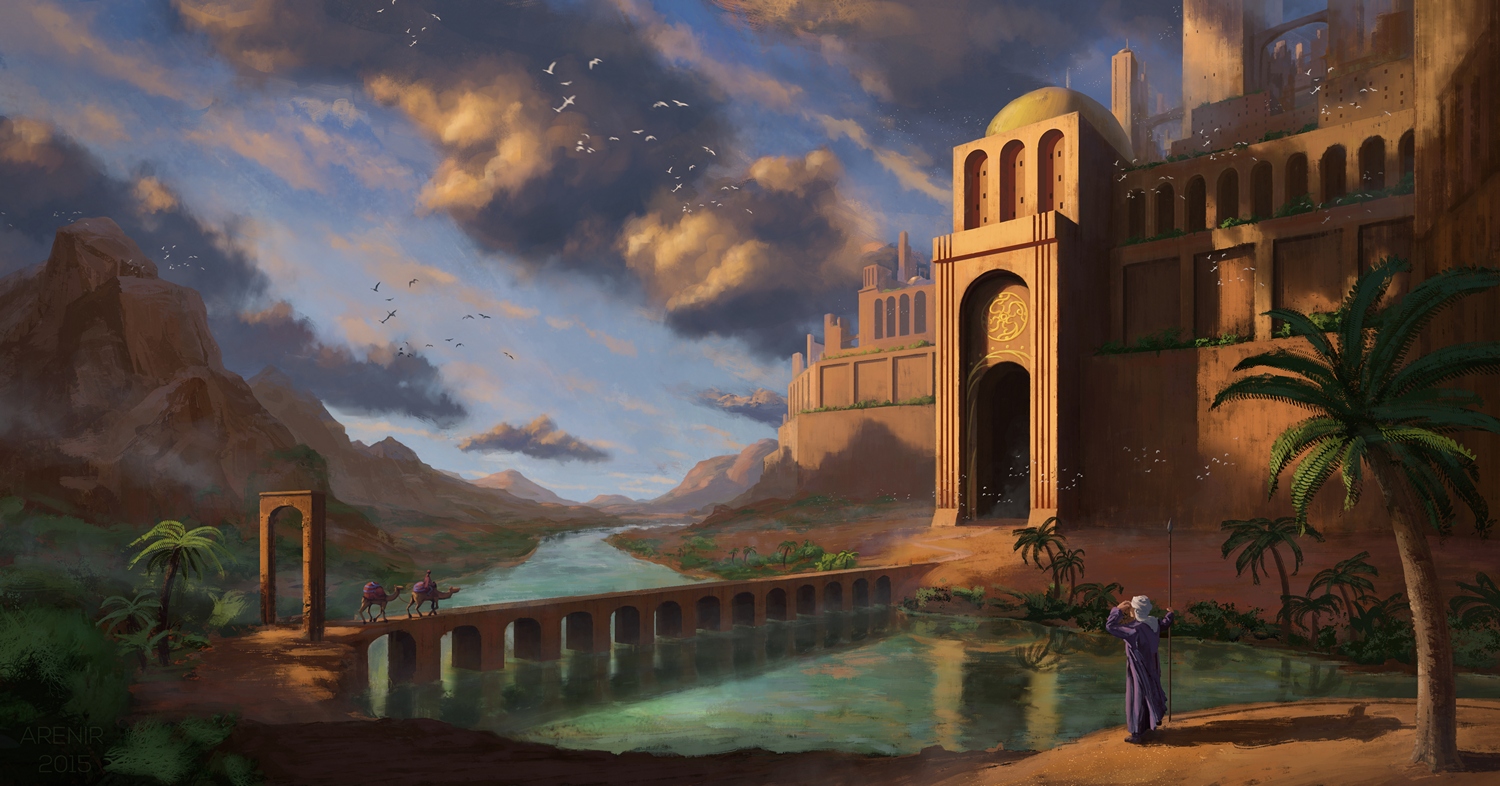

Egyix
- Main Environs: Desert, Grassland, Mountain
- Capital City: Ashsym
- Main Cities: Saneis, Aksai, Benou, Kipos
The Continent of Egyix is located between the Esvista Expanse and Loccon Depths - and is the second largest landmass upon the world.
Egyix is characterized by a supermassive desert expanse known as the "Bare Wastes" cropped between mountain ranges on either side of the continent, and a tropical jungle to the northeast. Wandering the Bare Wastes without guides is considered tantamount to suicide.
Ashsym is the capital of Egyix, which is built upon an isolated oasis island that sits upon an inner sea, aptly named the "Glassen Sea" for it's supernaturally sublime waters.
Saneus is the city to the far West of the continent, and the only safe port that leads into the Bare Wastes.
Aksai is located to the north upon a separated landmass and several smaller islands - which acts as the refueling port for many ships passing through the Esvista Expanse.
Benou is a miner and prospector's city created on the very edge of the Egyix jungle, and opens into the Gulf of Herkut - where various mining operations take place.
Kipos is the forbidden ruined city to the southeast, found at the base of Mount Kipos. No living creature is permited to step foot anywhere within the salt barrens stretching out from the mountain.
Capital: Ashsym
Ashsym is the ancient walled city located in the center of the continent of Egyix - upon an island within the Glassen Sea.
The city of Ashsym is one of oldest remaining metropolitan structures that date it's origins from before the spellplague.
An ancient oasis city built upon a solid sandstone foundation - complete with reinforced sandstone walls - Ashsym is the safest harbor from the unforgiving toils and threats of the Bare Wastes, and represents the current seat of power for the Theocratic government.
Nicknamed the "Stained City" for not only its location upon the Glassen Sea, but for the lucrative trade of some of the strongest glass and crystalline products - ranging from various pots, urns, and vases, to windows, mirrors, stained glass, and spelljammer windows, and much much more.
Indeed, even the city itself bears striking glass and crystalline art that line every building and street. The main attraction of the city of Ashsym would be the Castle of Glass - a super structure of woven, threaded, and beautifully cut stained glass and gemstones that holds the current Pharaoh and royalty.
Much of the city's revenue is generated by the glass and gemstone trade - but there exists an ever-evolving business of treasure-hunters for those who would willingly tread the dangers of the Bare Wastes for the chance to uncover the buried secrets and riches claimed by the desert.
Saneus
A coastal gateway to the land of Egyix; Saneus acts as the threshold city to the Bare Wastes themselves.
Built along the coastline where antarctic currents feed in from the south, Saneus is a veritable temperate city beset by mountains to the north and south - and the inhabitants here enjoy a comfortable trade city.
The city was originally constructed long ago as one of the main slave ports of the Draconic Imperium into the vast desert landscape - and the city still bears the scars and criminal stench from eons past. Originally used as a city to break, herd, train and trade sentient livestock, the city resembles that of a massive fortress prison.
Because of its semi-remote location, much of the laws of the lands of Egyix are either ignored or nullified in the city limits, making it a prime locale for those trading illicit materials (such as vice, living chattel, contraband, etc) to be exported without much scrutiny. This being said, the city of Saneus is well known for being a corrupt desert alcove for those with the moral ambiguity to overlook such actions.
Aksai
Built upon a tropical desert landmass, Aksai is seen as a veritable paradise nestled among the Ocean.
The city of Aksai is built into - and out of - the singular plateau that dominates the center of the isle. The lower districts that wrap around the plateau act as the main centers of trade, commerce, and residence. Atop the plateau resides the granite fortress that encompasses the noble district and the governing hall. An incredibly cluttered main road wraps its way to the northern section of the isle - where it leads to the main docks and ship refueling port.
Originally settled as counter-assault base meant to stand in offense to the now-destroyed Herkutatop (city of Herkut), the city of Aksai was constructed as a rebellion port - one that has been raided, sacked, burned, flooded, and rebuilt each time.
The city holds a special place as the main witness to the event known as "Meteorfall" - and just barely survived the meteor's impact to the east. Within the halls of the main palace is a full historical recounting of the events pertaining to the Meteorfall.
Benou
Settled on the coast of the Gulf of Herkut as well as the Egyxian Jungle, Benou is a dangerous - yet lucrative - settlement.
The city of Benou has been called the "Edge City" - referring to the fact that the industrial mining city is precariously planted on the very edge of the Gulf of Herkut.
The city peers directly into the perilous yawning abyss of twisted silt and glass; where it stretches it's tendril-like docks and bridges into the Gulf in order to harvest the multitude of incredibly rare, high-pressure formed materials and ores available no where else on the planet.
The city is the only permitted form of mining action allowed to take place within the Gulf of Herkut - and because of the intense oversight by all branches of the Guild of Three, the security and capability of the city is highly regulated. In fact, the process to be hired in to the Benou Mining Coalition (BMC) is a grueling and secretive process. Even the shipments going out from Benou are almost always carried out by armored airships alone.
Kipos
Isolated to the southeast of Egyix, this city built in the shadow of Mount Kipos is barren and desolate - but only seemingly so.
A massive spire of mountainous rock juts from the surrounding desert, known as Mount Kipos. Carved within this spire lies the seemingly abandoned metropolis of Kipos.
The city and surrounding area is overrun with a nigh incurable form of undeath - one which can be transferred to other living beings by contact or prolonged airborne exposure. The form of undeath is known as the "Soulblight", a Mad King's final gift to the world of Pryxis through which his subjects and all those exposed to it would be pulled into a form of half-life.
An area encompassing a 700 mile radius from the center of Mount Kipos is considered quarantined by Pryxis the Archamgus Eternal himself - marked by metal poles affixed with a psionic crystal which telepathically communicate the quarantine warning to any sentient creature within 100 feet. These poles are evenly distributed every 100 feet around the entirely of the quarantine perimeter. Many detachments of autonomous constructs and immune adventurers patrol the perimeter to destroy any Blighted creatures that may step through.
Egyix Settlements
The Bare Wastes of Egyix hinder the creation of typical towns and settlements - due to sandstorms, inhospitable terrain and dangerous creatures - as a result, most villages congregate around the occasionally rare oasis, ancient Doric sandstone ruins, or will be roaming caravans and mobile tribal camps.
Egyxian Doricism
The lands of Egyix are rife with many forms of architecture that emphasize simplicity, sturdiness, and minimalism that evoke a sense of uniformity and strength.
Being the first continent of Pryxis to bend their knee to the Draconic Imperium, the structural architecture of the region is heavily influenced by the elegance of dragons: simple-yet-beautiful. Columns, vast smooth stone edifices, and open-air courts and halls adorned with glasswork murals and filigree are the most memorable aspects of the style.
The utilization of various forms of bleached sandstone, lime and sand-glass are the defining material features of the solid structures. Indeed, walking amidst the few remaining Egyxian stone ruins brings to mind the idea that the cities were built to wholly accommodate (and emphasize) the might and majesty of their Draconic Lords.
Egyix: Town Generator
| d20 | Town Name Base | Town Name Second | Composition | Main Focus |
|---|---|---|---|---|
| 1 | ||||
| 2 | ||||
| 3 | ||||
| 4 | ||||
| 5 | ||||
| 6 | ||||
| 7 | ||||
| 8 | ||||
| 9 | ||||
| 10 | ||||
| 11 | ||||
| 12 | ||||
| 13 | ||||
| 14 | ||||
| 15 | ||||
| 16 | ||||
| 17 | ||||
| 18 | ||||
| 19 | ||||
| 20 |
Egyxian Sites of Interest

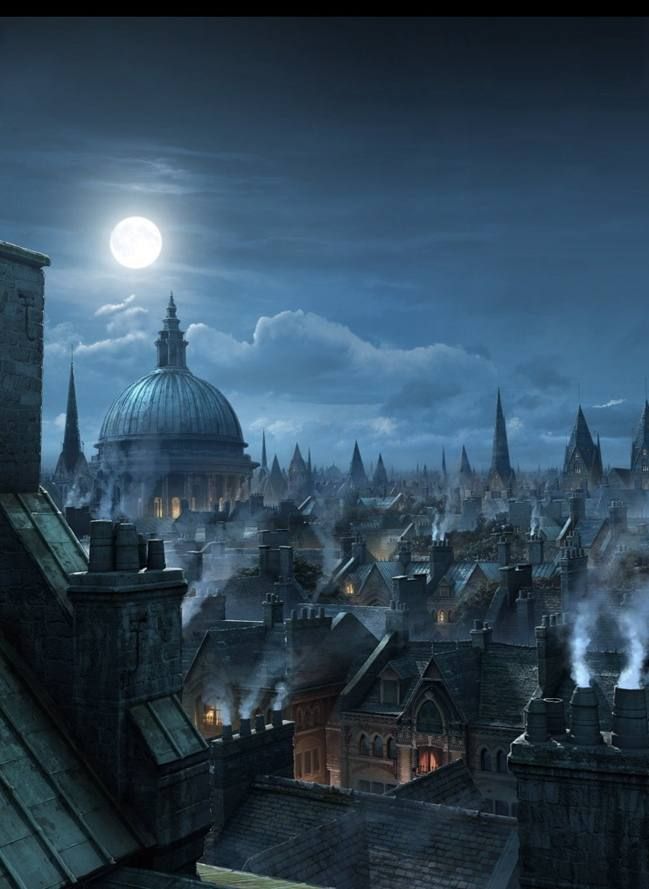

Ilend Isles
- Main Environs: Cold, Mountain, Swamp
- Capital City: Farfell
- Main Cities: Brego, Ulross
The continent known as the Ilend Isles is located past the arctic circle to the north, and is a collection of three separate landmasses upon the Lucent Sea and Arctic Ocean.
The peoples and inhabitants of the Ilend Isles are considered weird and strange to many outsiders - despite appearing as normal people (albeit with some strange quirks) - and are generally adverse to interacting with those outside their continent.
The main cities of the Ilend Isles all reside within the same tri-coast area, allowing direct communication and trade, as well as easy access to their more colonial-esque lands and peoples.
The capital city of Farfell is located upon the middle-most Isle of the trifecta, and it's inhabitants are more open to outside interaction than it's brethren cities.
Brego is the main city of the southern landmass, and was built upon a ghost town of a camp left behind by an army of adventurers lost to the wilds.
Ulross is the city of the northern landmass, and is characterized by it's massive walls and the incredibly strange inhabitants - including those of a particularly ghoulish nature.
Capital: Farfell
Farfell is the middle city of the tri-coastal area, and represents the fulcrumatic center that the other two metropolises socially and financially balance upon.
A city of sprawling brickwork and spires, the main port of the Ilend Isles is the only connection to the outside world - as the other two metropolitan cities operate under a form of martial law, and refuse port or refuge to those without writs of passage or evidence of previous residence.
When docking in Farfell, one may apply for a writ to allow docking with one of the two other cities of the Ilend Isles, but convincing the democratic council of a valid reason (such as trade or military force) are far from easy; as the Ilend Isles seeks to ensure the outside world is not tainted by the dangers inherent in their lands.
Aside from the strict martial law and constant threat of supernatural forces, the middle Isle of the trifecta is home to many clockwork ruins from the end of the Dragon War - and many remain dangerously active to this day. The city of Farfell itself happens to be a reforged and readjusted remnant of the old clockwork ruins that originally resided here, and much of the original understructure remains undiscovered.
The main exports leading out of the capital of Farfell include a plethora of rare ingredients, alchemical reagents, clockwork mechanics, and various forms of metal and ore.
Brego
Brego is the south-eastern city of the tri-coastal area, and is much less of a city as it is a collection of prefabricated structures, canvas marquees, and various thrown together buildings comprised of the local foliage.
The settlement of Brego was once a forward command post for an incredibly large group of adventurers hells-bent on discovering and conquering the wilds of the lower land of the Ilend Isles. When the veritable army landed about a century ago, they pushed inwards leaving their camp behind to map out the local boreal forest. Unfortunately, none of the adventurers returned, leaving many questions as to what had befallen the army.
Nevertheless, the entourage of squires, animal handlers, and servants made the camp their home, only venturing as far as a few miles outwards - and immediately return to Brego before nightfall. Merchants and tradesmen regularly visit the settlement to restock them with necessary supplies and sundries.
Rumors abound of strange sounds heard after nightfall, and various shapes and figures seen within the fog beyond the edges of the marshland and forest further inland. As such, the residents are continuously interested in funding operations to map out the surrounding areas - to very limited success.
Ulross
Ulross is the north-eastern city of the tri-coastal area, and is considered an "unbecoming" settlement. The city itself is the only well-known aspect of the island it resides upon, as the lands beyond the city walls are restricted to only those who have the express permission of the noble caste that rule over the city.
The citizens inside the city of Ulross are oddly complacent with odd and strange happenings within or without the city - a fact capitalized by visitors and inhabitants from those from Brego or Farfell. When a kidnapping or disappearance takes place, many native dwellers naught but bat an eyelash at it, and even full-blown murder at times goes completely disregarded.
This form of complacency has led many to name the citizens as "strange-folk" - as their inability to feel the fear, disgust or many negative feelings associated with such mortal danger as genuinely disconcerting.
With crimes being ignored, trespasses being forgotten, and blatant killings overlooked, the sense that something is innately wrong with the island strikes true in many people's hearts.
In fact, many theorize that a group of ghouls masquerading as the noble cast have subjugated the city into bidding their every whim as they answer to a higher authority - but no precise evidence has ever come forward. The best advice from those who have visited and survived the city are as follows: "Be ever alert, Never alone, Draw no attention, Lock your doors, and Sleep in shifts".
Regardless of the strange inhabitants and inherent danger, the exotic materials for trade and unique prospects available make visiting Ulross almost a necessity for those interested in the esoteric and eldritch.
Ilend Isles Settlements
The Ilend Isles are filled with mostly swampy and marshy terrain, and what is not brackish water is generally darker woods. As a result, most settlements outside the main cities are walled Gothic towns intent on remaining guarded at all times. Other towns are ramshackle conglomerates of huts built on top of the swamps and bogs.
Ilendian Gothic
Structures within the Ilend Isles boast a form of construction that emphasizes the use of spired and domed buildings.
Since the isles harbor some of the earliest recorded clockwork ruins, the architecture aboveground on the continents boasts a similarly sleek-and-effective style. Utilizing a distinguished type of "sharp" masonry that encompasses cavernous spaces, pointed rooftops for extended height, flying buttresses, wrought iron spires and domes, and the precise use of stained glass windows and tracery to provide the utmost natural light indoors.
As one walks the streets of the Ilendian metropolitan regions, one cannot help but notice the jutting rooftops and sharpened spires adorned with grotesques and gargoyles - seeking to pierce the sky itself.
Ilend Isles: Town Generator
| d20 | Town Name Base | Town Name Second | Composition | Main Focus |
|---|---|---|---|---|
| 1 | ||||
| 2 | ||||
| 3 | ||||
| 4 | ||||
| 5 | ||||
| 6 | ||||
| 7 | ||||
| 8 | ||||
| 9 | ||||
| 10 | ||||
| 11 | ||||
| 12 | ||||
| 13 | ||||
| 14 | ||||
| 15 | ||||
| 16 | ||||
| 17 | ||||
| 18 | ||||
| 19 | ||||
| 20 |
Illendian Sites of Interest

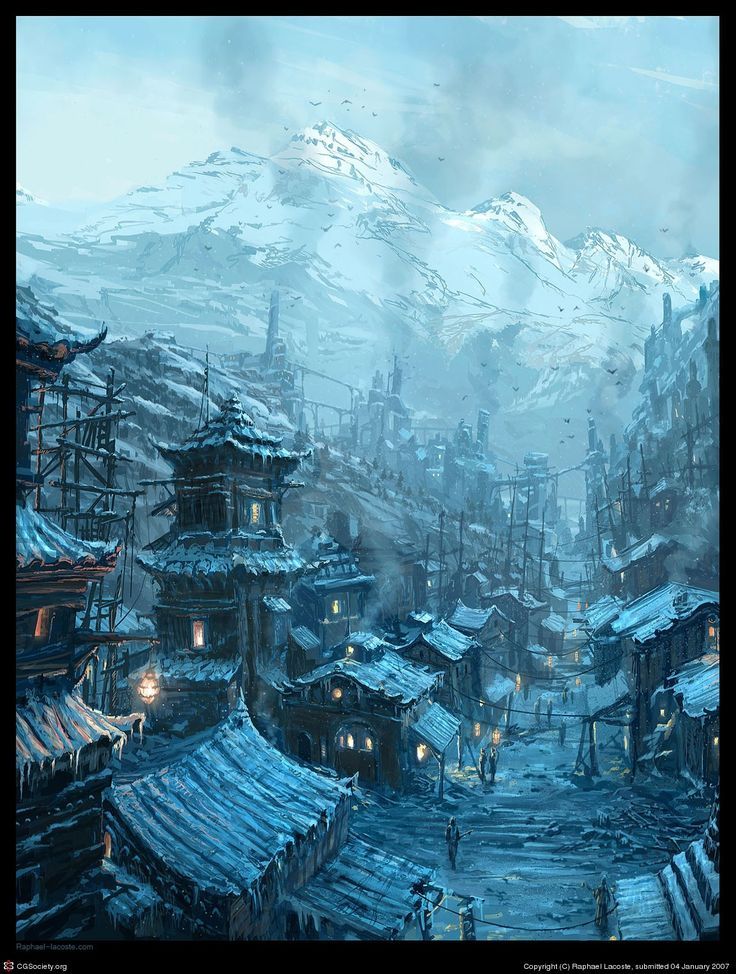

Olis
- Main Environs: Coastal, Cold, Mountain
- Capital City: Huxbert
- Main Cities: N/A
The solitary continent of Olis is the northern-most landmass upon the world of Pryxis, and is isolated upon the Arctic Ocean.
Olis was originally an uninhabited continent until roughly 800 years ago, when a desperate group of pirates - eager to escape the growing influence of the Guild of Three - began to inhabit the secluded and seemingly forgotten landmass to the north. Here they found natural hotsprings buried within the ice and snow, and built settlements upon them.
The frozen lands of Olis are nearly uninhabitable, yet the pirate lords and captains that have set up residence here have done so with the support of various other unified piracy groups.
The only city upon Olis is the massive sprawl of makeshift skyscrapers and housing crafted from broken ships and boats - Huxbert.
Huxbert has been painstakingly crafted from steel, wood, sweat, and blood by the pirates who regularly settle here. The city of Olis is nearly lawless, but takes on an meritocratic dictatorship: the strongest pirate lord rules.
The pirates of Olis regularly launch raids on the Apulean chain and the Ilend Isles.
Capital: Huxbert
The main and solitary city upon the frozen continent of Olis.
Crafted from tens of hundreds of crashed and sundered ships that have either been broken upon the jagged coast - or hauled by other pirate ships as spoils - the lawless members that call this place home affectionately refer to the city as a "Derelict-Town".
While salty and bone-chilling, the pirates, mercenaries, and smugglers that reside here share the same emotional outlook as their continent - and regard it as the last true haven of pure piracy.
Needless to say, the only real worklife to speak of here is, of course, piracy. However, there exists many "subsections" of "lawless endeavors" that are available to those who dock or dwell here, such as: shipbreaking, construction, wealth-management, mercenary work, hunting, vice trade, and alcoholism.
The pirate lords that reside here, while strictly against involvement with the Guild of Three, will occasionally conduct outside trade with important clientele. No real exports exist from Huxbert - aside from very rare, and incredibly illegal black market trades (including drugs, alcohol, slaves, and much more). When there is something illegal, immoral, fattening, or unavailable - Huxbert is where you can find it.
Olis Settlements
Home to rife piracy and retired (or active) criminals, Olis settlements are rarely populated for very long, as they are overtaken by rival pirates and raiders on a regular basis. Most "towns" are settled along the coastlines and are made of broken shipwrecks - and on rare occasions when a settlement has survived long enough: solid wooden or metal Scavenger structures.
Olisan "Scavenger-Style"
Due to the remote and survivalist nature of the land of Olis, the architecture of the region reflects the need to make due with what is available.
Forgoing traditional styles of construction, the populace instead utilizes what materials can be scavenged from pre-existing sources - the main sources include (but are not limited to): wrecked ships, industrial cargo, flotsam, deconstructed ruins, megafauna carcasses, and natural alcoves and could-be structures. Many structures show signs of repetitive destruction and reconstruction from multiple materials.
While mining and logging are options available for construction, the competitive nature of the Olisan masses (and their "professional pursuits") make a permanent and well-crafted structure not only expensive to maintain, but also present a target-rich option for other scavengers and thieves.
Olis: Town Generator
| d20 | Town Name Base | Town Name Second | Composition | Main Focus |
|---|---|---|---|---|
| 1 | ||||
| 2 | ||||
| 3 | ||||
| 4 | ||||
| 5 | ||||
| 6 | ||||
| 7 | ||||
| 8 | ||||
| 9 | ||||
| 10 | ||||
| 11 | ||||
| 12 | ||||
| 13 | ||||
| 14 | ||||
| 15 | ||||
| 16 | ||||
| 17 | ||||
| 18 | ||||
| 19 | ||||
| 20 |
Olisan Sites of Interest
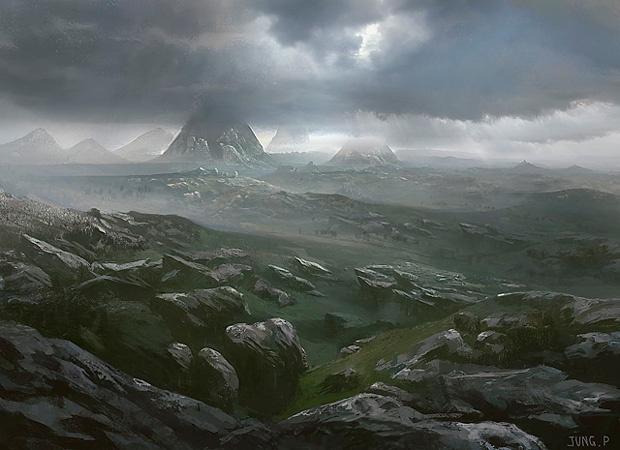
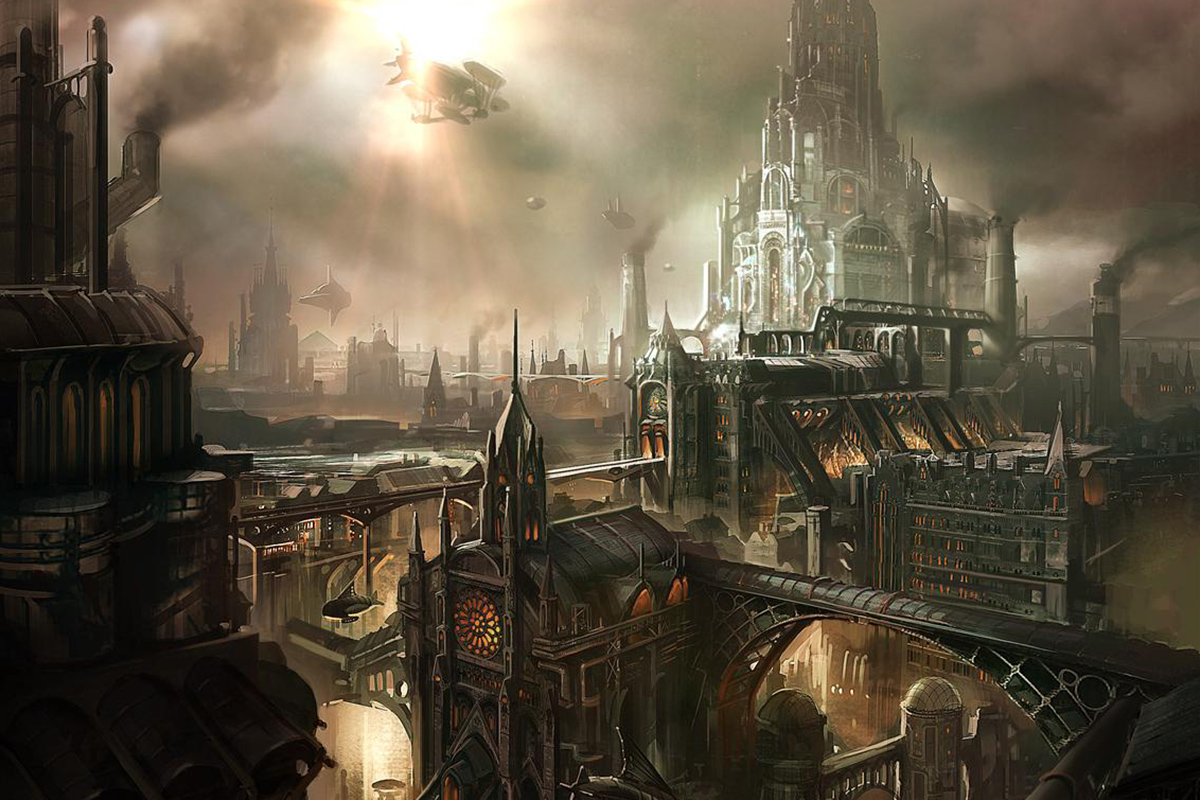

Pryxiria
- Main Environs: Grassland, Forest, Mountain
- Capital City: Pryxis Megalopolis
- Main Cities: Cartofoloph, Kragenferth, Aryowend
The largest landmass upon the world of Pryxis shares a facsimile of it's name - as it represents the singular collection of the entire planet's people, customs, technology, and magic.
A continent dominated by massive fields of sprawling crags and grasslands, from which 3 metropolises and the single largest metropolitan center resides. Pryxiria translates directly to "The Body of Pryxis", and indeed, is the most easily identifiable landmass from orbit.
The World Capital and Starport of the Pryxis Megalopolis is a massive network of urban sprawl that functions as a whole country unto itself while overseeing all relations on and off the planet.
Cartofoloph is the northern metropolis of the continent, and holds the largest farmland on the planet, as well as a booming research into biofuel.
Kragenferth can be found nestled next to a massive freshwater sea to the east - which is often filled with Spelljammers and starships in wet/drydock.
Aryowend is the western port city that holds sway over the waterways and roads that lead throughout Pryxiria. The main river that leads inland from the sea is the main waterway that connects to each other city within the continent - and is the main means of reaching the Megalopolis.
Capital: Pryxis Megalopolis
The Pryxian Megalopolis - which is also called "The Super City", "The Metal Jungle", "The Stone Hive", or simply "Pryxis" - is the largest collection of super-structures and populated urban sprawl on the entirety of the planet.
The Megalopolis not only functions as the ruling city of the continent of Pryxiria, but also represents the center from which the entirety of the world of Pryxis operates. The city holds the headquarters of the Guild of Three, the main Cathedral of the Church of Seven Sins, an Embassy for each continental government and their subsequent countries or ruling jurisdictions, and the Pryxian Academy of Dweomer - the seat of the Archmagus Eternal.
The city is divided into several walled rings, each larger and containing specific functions, trades, locales and groups. The Far ring represents represents the working classes (mainly middle and low), and holds the majority of residential areas, shops and parks. The Outer Ring holds the various corporations and high-class suites or residencies, and is mainly composed of towering structures. The Inner Ring is home to the embassies, guilds, and churches that oversee the dealings of the continents. The True Ring is the centerpiece, and is comprised of a hollowed out, active volcano which houses the main factories and workhalls for spelljammer ships and various mining operations - and crowning the volcano: A floating earthmote upon which the Academy of Dweomer sits - allowing Pryxis himself to oversee the world.
Cartofoloph
Settled within the verdant fields to the North of the continent of Pryxiria, and beset by two mountain-fed rivers, Cartofoloph is a bustling city of both agriculture and engineering.
Owing it's existence as being a massive farming settlement during the dragon war, Cartofoloph is no stranger to agriculture. The city was originally constructed to supply food, cattle, and various forms of living material to outfit the humanoid forces of the Imperium.
Since the fall of the Imperium, the city and surrounding areas remain in use as farmland - but keyed to an alternative crop: sustainable energy.
Cartofoloph is renowned for the eco-engineers and their ability to construct batteries and energy cells from the use of biodegradable fuels derived from plant matter (namely the Cartofolophen signature "Blotato"). Indeed, much non-magic technology is powered by the innovative practices of the scientists and farmers who call this city their home.
Whether through the simple farm life, or by means of agricultural artificery, the inhabitants of Cartofoloph offer an invaluable service to all of the world of Pryxis - a fact that they boast with pride.
Kragenferth
Hugging the northern coastline of the inner sea, Kragenferth is best known for the docking and decommissioning of a great multitude of spelljammers and starships in the waters of which it is built along.
The incredibly vast watery depths of the inner sea allow airships and starships to be worked upon in active wet/dry dock. Due to the sheer number of ships continuously landing within the nearby waters, the city of Kragenferth has become a vast machiner's paradise. All manner of factories, fabricators, machinists, and warehouses exist along the shorelines - all created with the sole purpose of maintaining, repairing, or replacing essential aspects of spelljammers or their crew.
Because of the sheer size of traveling working class populace that habit Kragenferth, the city has been referred to jokingly as the "Mini-Pryxis". Indeed, in addition to the machinist corporations and warehouses, a good majority of creature comforts exist to satiate the temporary population who find themselves unable to make the several days travel to the nearby Megapolis.
Aryowend
Settled upon the delta isle which splits the main waterway leading into the Pryxiria mainland, Aryowend is a city split in thirds: two thirds upon the banks which flank the waterway, and one third as the fortress built upon the delta isle.
One of the largest trade cities, owing it's existence towards the Draconic Imperium's attempt to maintain a method of surveillance and impediment on the nearby Pryxis Megapolis. Aryowend was created as a means to ensure the newly founded city (reluctantly permitted by the Draconic Imperium for the Archmagus Eternal's hand in saving the planet) was not to have it's influence extend further than the water ways permitted to it.
Unfortunately, when the Dragon War began, Aryowend was one of the first cities to revolt against the Imperium - due in part to the nearly direct influence of the Megapolis and it's residents. Now, the city enacts the charge of overseeing what sea-worthy vessels may pass through to the rivers of Pryxiria, and maintains the largest inner-continental water taxi service in the world.
Pryxiria Settlements
Due to the sheer population of the Megapolis, settlements and towns of the surrounding Pryxiria landscape are akin to miniature cities all to themselves - complete with a myriad of Deco-Victorian metal structures, towers, and various stone construction. Like the Megapolis itself, even the smallest of towns boast a myriad of trades to passerbys.
Pryxirian Deco-Victorianism
As the melting pot of the world of Pryxis, the architecture of the land exhibits a fusion of multiple other disciplines which blend into a form that couples decor and geometry as the defining features.
Many structures in the Pryxirian lands are multi-storied and inter-connected, attempting to make the most of vertical design rather than outwards expansion - resulting in the densest urban areas sporting massive towers and superstructures, with the tallest of them able to function as a town unto themselves. These structures are almost always fashioned from various alloys of metal, glass and industrial ceramics and exhibit artistic geometric or floral proportions.
Navigating the urban sprawls of the land will often times be incredibly confusing for newcomers and still veritably befuddling for natives, as the maze-like networks of streets are difficult to navigate for the unknowing wanderer - and even moreso when visiting a towering superstructure.
Pryxiria: Town Generator
| d20 | Town Name Base | Town Name Second | Composition | Main Focus |
|---|---|---|---|---|
| 1 | ||||
| 2 | ||||
| 3 | ||||
| 4 | ||||
| 5 | ||||
| 6 | ||||
| 7 | ||||
| 8 | ||||
| 9 | ||||
| 10 | ||||
| 11 | ||||
| 12 | ||||
| 13 | ||||
| 14 | ||||
| 15 | ||||
| 16 | ||||
| 17 | ||||
| 18 | ||||
| 19 | ||||
| 20 |
Pryxirian Sites of Interest

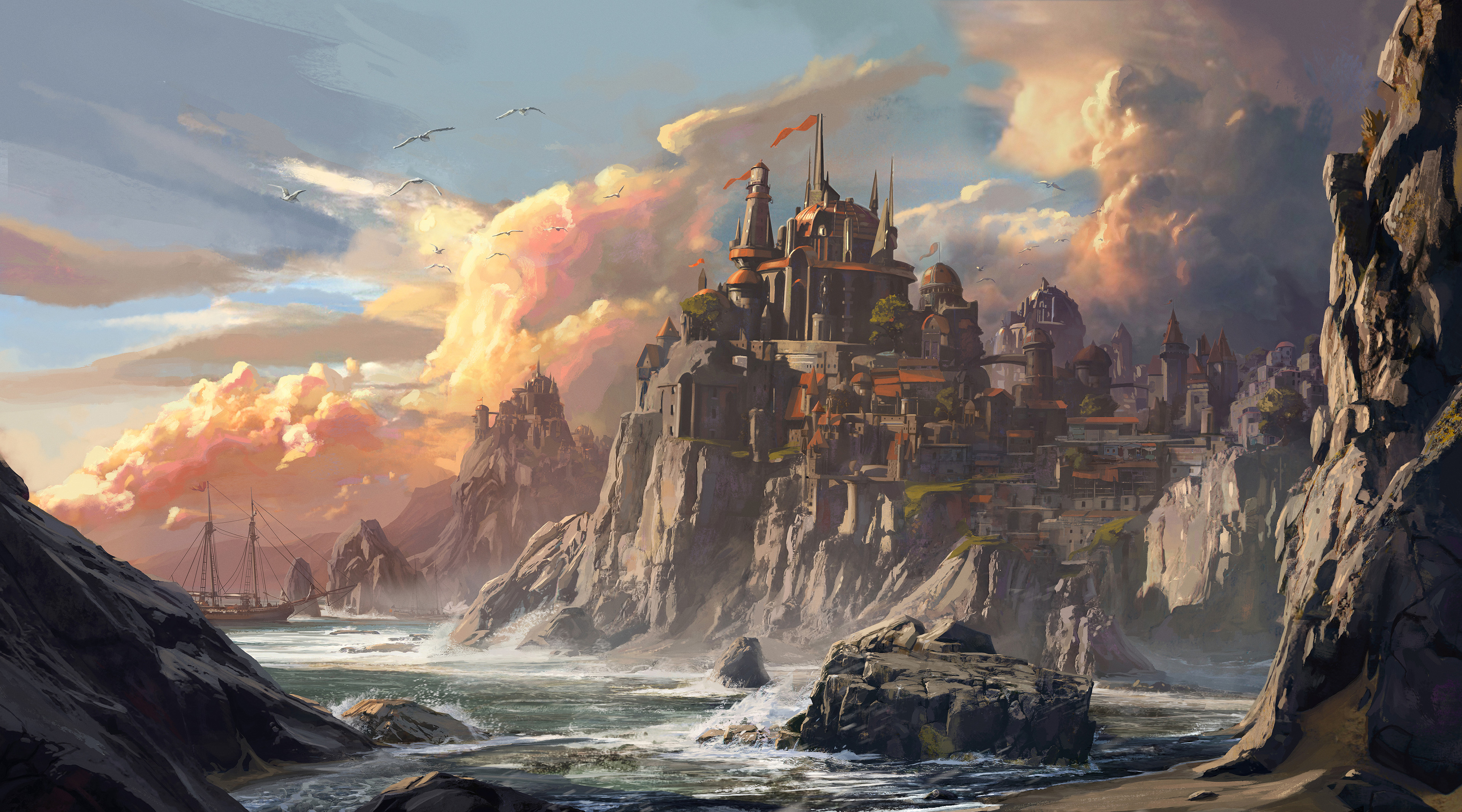

Triarch
- Main Environs: Grassland, Mountain
- Capital City: Sisterton
- Main Cities: Falsar, Marrowtown, Uzbecki
The Triarch is an equatorial, hilly landmass that is nestled between the Lucent Sea and Cycallu Ocean.
Consisting of fertile farmland that stretches over rolling hills, the Triarch provides essential produce and livestock for several continents, and holds the remnant glassed graveyard of the final battle of the Dragon War - aptly named "The White Scar".
The capital city of Sisterton is a frugal-yet-effective city which rests as the prime jewel of the Triach itself. The city leads the continent through their steadfast dictates steeped heavily in a proud heritage from their founder.
Each main city of the Triarch is built upon coastal waters - namely due to the use of the Triarch as a military continent during the Dragon War.
Falsar is the magic city nestled on the inside edge of the southern coast.
Marrowton is the militaristic academy city located along the coastal border of the continent.
Uzbecki is the exceptional builder's haven planted on the fulcrum of the south-eastern peninsula.
Capital: Sisterton
A pragmatic city built upon functionality within the inside edge of the western coast, and the ruling seat of the Triarch Royalty - known as "The Rosen Regency"
Led by the Queen, the Triarch Regency functions as a constitutional monarchy - one where the queen rules, yet the governmental council she oversees shares power over decisions and laws carried out across the Triarch.
Ruled by the eldest female princess; when the queen-to-be comes of age, she is put to a trial of political intrigue and public gladiatorial combat against the ruling queen herself - known as the "Duel of the Throne". The princess must earn the favor of a military sponsor as well as a high-standing political leader before being able to challenge the ruling queen - and then must defeat her in rightful combat in the public eye.
The rites of the Duel of the Throne and the practices of The Rosen Regency are based off the original Warrior Queen who unified the continent in war against the Draconic Imperium during the times of the Dragon War.
Built upon the foundations of the original merchant's guild - the city of Sisterton holds the monopoly over the trade regulation for the surrounding lands and retains access to a variety of goods. As evidence to their mercantile roots, the Regency Palace is built around an old vault left by the original Merchant's Guild that only the ruling family may access.
Falsar
Falsar, the City of Magic and the heart to the waterways and roads of the continent.
The city of Falsar is dominated by the Ivory Tower: an intimidating white stone and metal spire which reaches high into the cloud cover and rests upon a raised hill above the city. From this tower, the Magocracy (a mage-led form of government) rules over the city itself while answering to the ruling queen of the Triarch.
The Magocracy leads the city of Falsar in the study and pursuit of purely magical experimentation - generally outside the views of the Pryxian Academy of Dweomer, yet within oversight of the Body of Magi. Because of this, old and new forms of magic are continuously discovered and tested within the tower of Falsar (and it's seemingly endless rooms and levels allow great leeway into the methods of magical application).
Generally, Falsar's main exports include various magical components, alchemical reagents, tomes, scrolls, magic objects, and various other spell paraphernalia - which grants the city a greater amount of revenue in comparison to it's lesser brethren cities.
Marrowtown
A city of combat, conditioning and discipline - Marrowtown exists as the Triarch's leading supplier of exceptional soldiers.
A militaristic city ruled by a Lord General who answers to the Triarch Queen. Marrowtown was founded by a paladin who wielded a great dragon slaying weapon during the Dragon War who swore his weapon and armies to the Warrior Queen in solidarity to her rule.
The city now leads the continent (and subsequent regions) in military training - indeed, training within the city of Marrowtown is considered a great honor and a prestigious occasion; as the access to the extensive (yet grueling) exercises, teachings and disciplines granted by the hundreds of generations of soldiers found there cannot be obtained elsewhere.
Many paladins make it a key point in their lives to travel on a pilgrimage to the city of Marrowtown, seeking to follow in the footsteps of their predecessors. It is said that within the martial libraries of the city lie the core teachings of some of the very first paladins to lead the charge against the Draconic Imperium - and that only those who prove themselves worthy may read of their exploits.
Uzbecki
A recent city - at least in regards to the others of the continent - Uzbecki was founded by a group of rock gnomes who had settled in the region soon after being released from captivity from the Draconic Imperium only five centuries prior.
Having never experienced the overworld, these rock gnomes were enamored with the ever-expanding horizon and the endless sky above them, and sought to "conquer" it in their own unique way: they would scrap every single piece of technology, objects, or random assortments of nonsense to reach the sky.
Their relentlessness paid off, and over time, these gnomes created some of the first dirigibles to grace the skies of Pryxis - and were eager to create more. Nowadays, descendants of these rock gnomes have become known as studious - if desperate - adventurers and inventors alike.
Triarch Settlelments
With massive rolling hills between rocky mountain ranges, the people that populate Triarch build their settlements as Tudor and rustic as possible - resembling traditional wood, stone and hay structures. Many towns in Triarch are dedicated to farming and foraging.
Triarchist Tudorism
Useful Information
Pryxiria: Town Generator
| d20 | Town Name Base | Town Name Second | Composition | Main Focus |
|---|---|---|---|---|
| 1 | ||||
| 2 | ||||
| 3 | ||||
| 4 | ||||
| 5 | ||||
| 6 | ||||
| 7 | ||||
| 8 | ||||
| 9 | ||||
| 10 | ||||
| 11 | ||||
| 12 | ||||
| 13 | ||||
| 14 | ||||
| 15 | ||||
| 16 | ||||
| 17 | ||||
| 18 | ||||
| 19 | ||||
| 20 |
Triarchist Sites of Interest
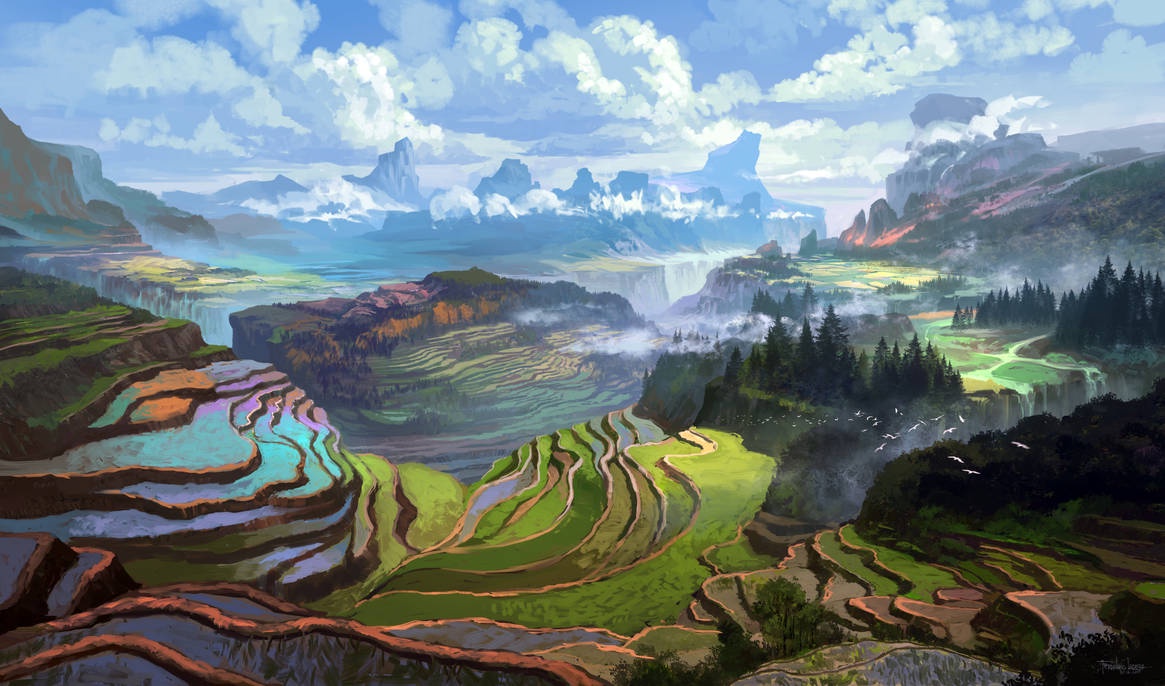
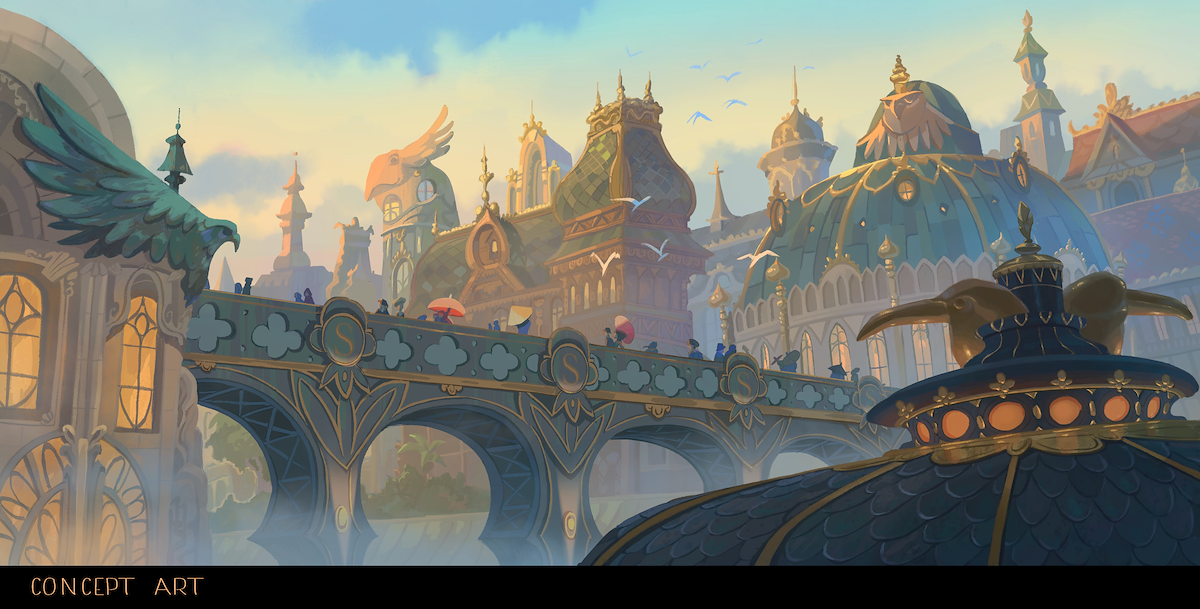

Tuyari
- Main Environs: Coast, Grassland, Swamp
- Capital City: Shedo
- Main Cities: Tongha, Yungai
The Landmass and subsequent islands of Tuyari stretch from the tropic line to past the antarctic circle, and is surrounded by the Loccon Depths on all sides - save the southern tides, which reside within the Antarctic Ocean.
Tuyari is locked within a feudal state of governance, with contesting warlords vying for various positions of power within the dynastic kingdom.
The capital city of Shedo resides in the middle of the main landmass, at the base of its mountain range overlooking an inner sea. From here, the current dynasty rules from the royal palace.
Tongha is the western port city, and represents the main locale from which the rest of Tuyari receives their imports.
Yungai is an isolated port upon the northern isle of the continent which rarely allows outsiders to dock there without exact permission from the Tuyaric Empire - the reasons for such are unknown to those outside the monastery.
Capital: Shedo
The City of Shedo (also known as the emerald city) holds the Jaden Palace.
Shedo earns its nickname for the tarnished copper and jade structures that make up the majority of higher-class districts within the city - with the crowning glory of the Jaden Palace sitting a third of the way upon the mountain that Shedo is built beneath.
Along with the Jaden Palace, the next striking feature is the presence of the Kir-Tree, a massive blossom tree which produces scaly golden flower blossoms which turn to embers when shed from the tree. The Jaden Palace is, of course, built to house this massive tree.
A majority of the city is conglomerated along the banks of the inner sea known as "Tear-Tides"; aptly called such for the legends of a Titanous Bird that carried a storm in it's tow - striking a geyser with lightning and seeding fresh water within the basin.
Trade continuously sails into and out of the Tear-Tides, and because of the fertile lands and plentiful fresh water, much of the exports involve mass amounts of grains, rices, fish and mosses that adapt to the naturally wet and verdant soils located here.
Tongha
A floating city of surprisingly well-built stone and wooden structures that sit upon the waves of the western coast.
Originating as a series of fishing shacks and trade buoys several centuries ago, the city of Tongha has had more and more additions placed into the mass of floating buildings and ever-expanding network of docks and bridges.
The city's construction resembles the same jaden stonework as the capital of Shedo - albeit, more wood than stone. Split into 12 individual blocks, each block is built upon a floating foundation which holds massive buoys that keep the block afloat. Docks and bridges make up a majority of the foot traffic, but travel by boat is the most efficient way to get around town.
Considered the main trade hub for the entirety of the continent of Tuyari, most commerce and trade goods go through the city of Tongha.
Yungai
The city of Yungai is settled upon the shoreline of the northern island of the Tuyaric empire.
An air of mystery and subterfuge surrounds this isolated island, and the city itself is the only well known facet of the island - other than the main island is forbidden to be stepped upon without particular empirical support.
The city itself is no more than a heavily walled monastery (albeit an incredibly sprawling complex of buildings surrounding a central temple), where the main denizens are monks, priests, and holy practitioners.
Strangely enough, the religious practices of the monastery are not known to the general public, and those who visit the island are sworn to an oath of secrecy that - if violated - is punishable by death. Many individuals who have been known to violate the oath have disappeared without a trace - and even the words that were uttered that violated the secrecy are always seemingly forgotten.
Tuyari Settlements
Settled among the hills, marshes and fields of Tuyari, many settlements take on the appearance of wooden structures, elevated slightly off the ground, with tiled or thatched roofs. Bearing a more Oriental purpose, towns of Tuyari function as simplistic hamlets or farms.
Tuyaric Orientalism
Useful Information
Tuyari: Town Generator
| d20 | Town Name Base | Town Name Second | Composition | Main Focus |
|---|---|---|---|---|
| 1 | ||||
| 2 | ||||
| 3 | ||||
| 4 | ||||
| 5 | ||||
| 6 | ||||
| 7 | ||||
| 8 | ||||
| 9 | ||||
| 10 | ||||
| 11 | ||||
| 12 | ||||
| 13 | ||||
| 14 | ||||
| 15 | ||||
| 16 | ||||
| 17 | ||||
| 18 | ||||
| 19 | ||||
| 20 |
Tuyaric Sites of Interest

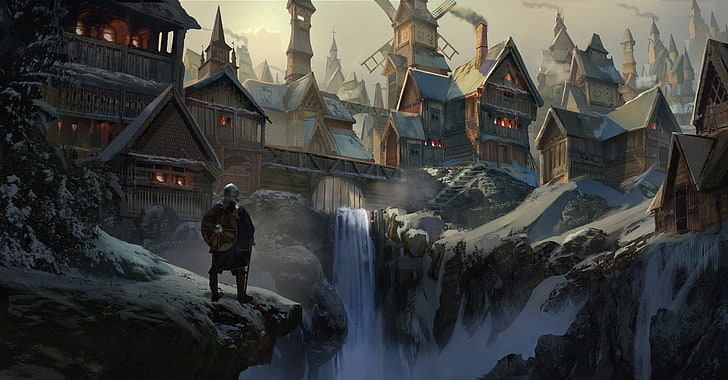

Vanwa
- Main Environs: Grassland, Forest, Mountain
- Capital City: Isenholde
- Main Cities: Barakaburg, Kustelburg
The Continent of Vanwa lies between the Cycallu Ocean and Esvista Expanse, with the Antarctic Ocean to the south.
Vanwa is a land of varying different biomes and locales - all of which lend an air of danger and dire circumstance to newcomers unaware of the threats that lurk within. Many would-be adventurers have perished here, lending credence to the translation of the name "Vanwa" meaning "Lost".
The city of Isenholde represents the main city of the continent, but can barely be considered a "capital" by any means. Isenholde is the only metropolitan city upon Vanwa, as the dangers inherent in the continent rarely allow civilized towns or villages to be developed.
Barakaburg is a newcomer city, founded only recently within the past decade by a group of adventurers. The city is built around an old drinking hall that originally represented the only settlement within the western side of the continent.
Fiskaholm can be found to the far north upon an isolated peninsula past a massive mountain, which allows it to be the only safe haven from the many dangers of Vanwa. Because of this, most ships dock in Fiskaholm, never setting foot in the areas to the south.
Capital: Isenholde
Isenholde is an iron-walled city built upon the ruins of a much older city from ages long past - located within the frozen tundras of the inner west coast of Vanwa.
The city itself is constructed on top of the remnants of an ancient goliath fortress that laid abandoned for centuries before being repurposed as the scaffolding from which Isenholde now rises. The fortress ruins are still accessible - as well as the sewer systems and mining tunnels left behind - and many use these old ruined halls and tunnels as a makeshift "under-city".
Isenholde represents one of the only refuges from the perils of the untamed wilds of Vanwa - but not necessarily safe. Due to being one of the only centers of civilization upon Vanwa, all manner of adventurers pass through on a regular basis, many of which are grizzled, brutish, bloodthirsty or strange.
Luckily, the Grand Jarl that resides over the city of Isenholde (as well as over any settlements within the tundra) maintains a firm control over those that pass through. However, rumors abound of a shadowy council of individuals who pull the strings of the Grand Jarl's court.
Many exports of exotic hides, ivories, rare alchemical ingredients and much more are shipped out of Isenholde to the nearby shoreline - with the occasional redwood tree being shipped to Nimik (much to the dismay of the natives, who hold them sacred).
Barakburg
A city built upon the highest hill of veritable rolling plains, and dominated by a massive obelisk of obsidian at it's center.
Still a newly founded city-state, Barakaburg is known as the "city of freedom", having been founded with the sole purpose to offer new life and liberties to those willing to settle there. Due to this mindset, the city has attracted a majority of mercenaries, pirates, farmers, peasants, and adventurers alike - all wanting and willing to partake in a brand new life.
The city itself has been built around the original drinking hall that has stood in place for several centuries, and the original proprietor of the establishment welcomes the new lifeblood that has begun to flow into the sprawling hills.
The main founders (known colloquially as the "Blue Scales") still reside in the city within the massive obsidian tower which overlooks the entirety of the city and hillside. The Blue scales are led by a powerful sorcerer who is rumored to carry the last remnant bloodline of the Mad Kings.
Fiskaholm
An incredibly old village nestled upon the north-eastern coast of Vanwa.
Originally, Fiskaholm was created by a pirate lord who wished to retire from her criminal exploits. She discovered the semi-tropical ruins left behind from an ancient city that was - mostly - submerged by the deluge of Meteorfall. Determined to create a new life, she took to the ruins with her crew and rebuilt the village - bearing her name upon it's title.
Nowadays, the city has sprawled forth along the coastline, and welcomes travelers passing through the Esvista Expanse. They offer safe refuge from the terrors of the sea and the land, and safeguard the entrance through the souuthern mountain tunnel that leads into the wastes of the Untamed Wilds. In the times since Fiska the Pirate Lord landed, they have kept a record of all major events that take place within Vanwa - and recommend strangers stay away.
Vanwa Settlements
Due to the inherent dangers of the Untamed Wilds, towns of Vanwa follow suit with their Nordic and robust construction. Log cabins, drinking halls, and heavy stone structures dominate what few towns exist - and almost always bustling with hardy folk.
Vanwan Nordic
Useful Information
Vanwa: Town Generator
| d20 | Town Name Base | Town Name Second | Composition | Main Focus |
|---|---|---|---|---|
| 1 | ||||
| 2 | ||||
| 3 | ||||
| 4 | ||||
| 5 | ||||
| 6 | ||||
| 7 | ||||
| 8 | ||||
| 9 | ||||
| 10 | ||||
| 11 | ||||
| 12 | ||||
| 13 | ||||
| 14 | ||||
| 15 | ||||
| 16 | ||||
| 17 | ||||
| 18 | ||||
| 19 | ||||
| 20 |
Vanwan Sites of Interest
Non-Continents
Some areas upon the world of Pryxis are not inhabited enough to result in being called "continents" and may also rest outside the jurisdiction of other continents, kingdoms, or governments.
These areas are generally referred to as unique locales, and are outside the laws of most other groups. Only a few of these locales are well-known enough to be listed.
Arctic
- Main Environs: Cold, Coastal
- Main Cities: Hookenkust
Beyond the Arctic Circle lies the treacherous frozen wasteland of the Arctic itself.
The Arctic is the northern landmass that holds the North Pole at it's center. It is said that long before the Archmagus Eternal lived - hundreds of eons ago - an ancient and noble kingdom once resided here, and from this kingdom, the rest of the world was ruled over by a powerful god-like entity.
These are mere myths and legends, as permafrost and ice tell no tales.
Hookenkust
Hookenkust is the largest (and perhaps only) metropolitan city that resides within the Arctic Landmass. From Hookenkust, shipments of bare necessities and trade goods are distributed amongst the people either brave, stupid, or uncaring enough to reside here.
Some come to Hookenkust hoping to shed light on the possibility of unearthing evidence of the supposedly "lost kingdom" that may be buried under the ice - which have thus far proven fruitless.
It is said that an Astrologist resides somewhere in Hookenkust - continuously studying the stars and supposedly her findings have proven essential to the space travel the people of Pryxis know today.... or maybe she is just an old hag who talks too much.
Antarctic
- Main Environs: Cold, Coastal
- Main Cities: Basvilla
Below the Antarctic Circle lies the largest icy landmass upon the world of Pryxis.
The Antarctic is practically as desolate as a graveyard, save for the occasional tribal peoples who wander the frozen wastes seeking to live a simple, yet highly dangerous life away from the prying eyes of governments and laws.
Although, amongst these tribal peoples, one may find a hardened criminal seeking forgiveness and recompense for their past crimes - mainly due to the only solid settlement found on the lengthiest of peninsula: Basvilla.
Basvilla
Basvilla is less of a town or settlement, and more of an incredibly punishing and barbaric caged city. Basvilla was created during the reign of the Draconic Imperium as a means to imprison, torture, and process the most renowned "criminals" to their illustrious empire.
After the Dragon War, many rebellions broke out within the city-like prison and a coup was maintained by the prisoners within. Afterwards, the newly forged guild of three mandated that the Prison be upkept for continuous use for the most hardened criminals and potential threats to society and the newly established order.
Indeed, even many Draconic Imperium sympathizers and loyalists of the highest ranks found themselves imprisoned here, where the spirits of their captees haunt them within their cells even past their point of death.
To be sentenced to serve time within Basvilla is considered a fate worse than death - as escaping it leads only to the silent frozen dunes, where many have died alone and forgotten, unless taken in by the tribal locals (who have learnt better than to accept strangers without reason).


Drizu's Crags
- Main Environs: Coastal, Mountain
Long ago, far before the spellplague, a powerful psionic entity named Drizu tired of the inhabitants of the world and sought to extend her reach to the stars above by harnessing the inherent powers of the mind and exerting them upon the forces of reality itself.
In layman's terms, this powerful mystic intended to create a bridge to the Pryxian Moon: Arivae.
To reach this goal, Drizu found an intersection of magical ley lines (also known as Mana paths) where she began to bend the will of the land itself to her whim. Her intentions were to create a literal stairway connected to the moon itself - from which she would rule an empire of her own making, far from the eyes of the world.
At first, her goal seemed feasible, as the island which held the leylines began to rise and meld to the form she wished. What Drizu did not know, however, was that the massive and exuberant amount of energy being poured forth would inherently create an entity known as an Elemental Locus - a literal living land.
This Elemental Locus lashed out at Drizu, as it's birth was chaotic and sudden, and the mind within it was new and erratic. Drizu sought to fight back against the Elemental, to limited success, as the Locus was several miles in size and scope - and it's powers rivaled the mystic's.
After continuous strife, the mortal body of Drizu was annihilated by the Elemental Locus, but her mind was not. The Psionic energies of Drizu began to unravel the Elemental's mind and lifeforce, resulting in it's subsequent destruction.
What now lies in the middle of the Loccon Depths is a massive congregation of floating earthmotes, hanging islands and crystalline shards that levitate continuously far into the upper atmosphere. The remains of the Elemental Locus held aloft by massive psionic resonance and imbued with the natural energies of the leylines that flow erraticly throughout it.
These earthmotes are caught in a gravitational flux; with motes flying and crashing into one another to create a dire airspace, but some larger masses may hold their own gravitational pull. In addition to the bizarre gravity, the wind currents that whip around the airspace are direly fast - with speeds that could easily fling large and smaller creatures into the surroundings.
Mapping out these landmasses is nigh impossible, and navigating such is even more improbable.
Legends state that there still exists a confluence of leyline energy that can potentially teleport individuals to the moon Arivae, where the original psionic anchor remains tethered to the moon itself by Drizu.
Other stories tell of whispers and unintelligible phrases heard upon the howling winds of the crags - thought to be the remnant mind of Drizu herself.


Dragon's Spine and Tooth
- Main Environs: Coastal, Grassland
This archipelago of barren plateaus is located on the edges of the Esvista Expanse and Cycallu Ocean, and represents the border in which the two seas are physically separated. Because of the barren nature of the plateaus (as well as the shape of the archipelago) the area has earned the name "The Dragon's Spine".
A series of flat islands make up the bulk of the Dragon's Spine, which are devoid of all foliage and canopy - save for a unique species of long grass native only to the islands themselves. This grass can grow to over 10 feet tall and has been named "Mirgrass" for its ability reflect light and heat, as well as its ability to even reflect magic. Unfortunately, the grass holds razor sharp edges which can cause heavy lacerations from the lightest of touches.
No life can live naturally on the island, as the native grass chokes out all other plant life and eviscerates any animal life foolish enough to run through the tall grassy fields. Looking upon the island from afar during the day reveals the nature of the islands - as the light of the sun reflects violently through the waving sea of grass, giving off the illusion of a massive surface of scales.
In addition to the alien-like grass, the archipelago experiences constant earthquakes that make habitation nearly impossible. These earthquakes seem to be isolated only to the islands themselves, and do not extend their seismic activity to the surrounding waters - meaning only the archipelago itself shakes.
Stranger still, when a creature does die upon the islands, their body is subsumed by the soil and stone of the land upon the next earthquake - crushed and buried by the churning soil and waving grass.
The only safe refuge within the surrounding islands is a massive jutting structure of stone where no Mirgrass can grow. This massive spire has been named "The Dragon's Tooth" in regards to the rest of the archipelago. The tooth has no defining characteristics, save for the presence of a massive tree dominating the very apex of the spire. This tree, strangely enough, begins to glow subtly when an earthquake is about to take place upon the archipelago. Because of this, many believe the tree and the grasses are related at least in some fashion.
Many scholars speculate that the archipelago was once the body of a super massive titan creature from ancient times that was felled in this spot - and that the earthquakes represent it's inability to die completely. Others state that the islands belonged to a world that was consumed into the Plane of Positive Energy, and that only these islands made it out without being absorbed into the overwhelming positive energies. And some say that the islands are just naturally mutated to be the way they are, and that all other theories are hearsay and speculation. Regardless, nobody really knows the origin of the Dragon's Spine and Tooth.


Gulf of Herkut
- Main Environs: Coastal, Underground
A well known site of a major, world-shaking catastrophe - the Gulf of Herkut is a massive maw-like crater that separates the Esvista Expanse and the Loccon Depths, and lies between the continents of Pryxiria and Egyix.
The gulf was created when the event known as "Meteorfall" took place over 4000 years ago - the magical showdown between the Archmagus Eternal and the Primal Mad King which ended in the summoning of a massive meteor, and it's subsequent transmutation to pure ice and silt to prevent total global destruction.
When the meteor made impact, the silt that comprised it's outer shell was vaporized, and the ice within melted within a split-second into liquid water which burst forth in a great deluge, which rapidly raised the global sea levels and produced torrential monsoons across the world.
As the waters settled, the impact site revealed a misshapen basin; an incredibly deep crater composed of jagged and expansive stony and crystalline formations that arched and stretched in every direction, surrounded by an uneven atoll of silt islands that held the strange structures in place.
Waters from the surrounding seas regularly flow into this superstructure of twisted and jagged landbridges, with an abyssal maw lying below the arching stones - which invariably leads to the underdark. The water that flows into the gulf has been discovered to flow through underground channels and streams which lead to natural springs and lakes throughout the immediate landmasses - ultimately resulting in a never-filling crater.
Due to the nature of the unstable earthen structures, the sheer force of flowing water, and the ever-present danger of falling several thousand feet into the yawning dark below - traversing the Gulf of Herkut is an incredibly dangerous pursuit; however, the presence of crystal and ore only found through extreme superheating and high pressure yields great reward to those willing to mine the surrounding landbridges.
Strangely enough, the Gulf exhibits a peculiar tendency to harbor otherworldly and bizarre creatures which call the abyssal crater their home. These creatures have often times been found to be supernaturally altered or mutated by eldritch influences - exhibiting characteristics akin to aberrations or abominations. The source of these mutations has been theorized to stem from the dormant energies left behind by either the remains of the Primal Mad King, the alien nature of the Meteor, the High Magic used by both the Mad King and the Archmagus Eternal, or a combination of the three.


Olde Man Mountain
- Main Environs: Coastal, Mountain
This massive mountain of basalt is located upon a lone island to the south of the Apulean Chain and north of the continent of Tuyari, and is named for being known as the largest extinct volcano upon the world of Pryxis.
The extinct volcano resides upon an island that is continuously wracked by a perpetual hurricane which never settles nor subsides, and which the eye of the storm revolves around the apex of the mountain itself. The main aspect of the island is that a series of bioluminescent fungi and mushrooms pervades the entirety of the surrounding - the strongest concentration of which is focused entirely within the main caldera of the extinct volcano.
A common sight is the presence of luminescent spores which are blown about the island by the winds of the everchurning storm which illuminates the surrounding with periodic lightning strikes. When approaching the island, many sailors and adventurers take note of the expanding network of glowing mycelia that grows over the entirety of the island, and which reaches down into the waters below - illuminating the rocky shores of the turbulent sea.
Reaching the island is a feat in-and-of itself, as the rocky outcroppings of the shorelines combined with the choppy waves and gale-force winds present a very dangerous hazard to even the most veteran of sailors. But when one reaches the island itself (or rather, reaches a point where the spores are noticeably close) the greatest threat lies within breathing the highly toxic spores that suffuse the air (and even water for those who traverse the sea).
The fungal growth upon the island represents the greatest biological hazard to those who seek to traverse the extinct volcano. While mostly harmless from physical contact (aside from a slight itchy rash from prolonged exposure) the spores released by the mushrooms and mycelia infects all who breathe them in - but never killing them. The most horrific aspect of the spores is that once they have taken root within the respiratory tracts, they begin to grow rapidly throughout the host's nervous system.
Immediate symptoms of spore infection include coughing and sneezing, with mucous that carries flecks of blue-green. As the infection progresses for several hours, the next signs that the spores have made it to the nervous system include paranoia, hallucinations, and glowing blue-green eyes, followed by strangely numbing sensations across the body. The final stage of infection involves a complete loss of bodily autonomy, as the spore network now increases adrenal production and hijacks the creature's nervous system to facilitate further reproduction - this often results in hyper-aggressive behavior. Generally, the host's body can only withstand infection for a few days before the spore network bursts forth from their body to reproduce - killing the host.
Because of the extreme danger of the island - many governments have classified it as an incredible biohazard and forbid almost all sentient creatures from stepping foot on the island. Those that do and make it off the island are required to undergo extreme magical purging to prevent infection, and if they are infected - immediate destruction. Many scholars and mages believe the storm may have been put over the island as both a warning and a safeguard by a supernatural entity.
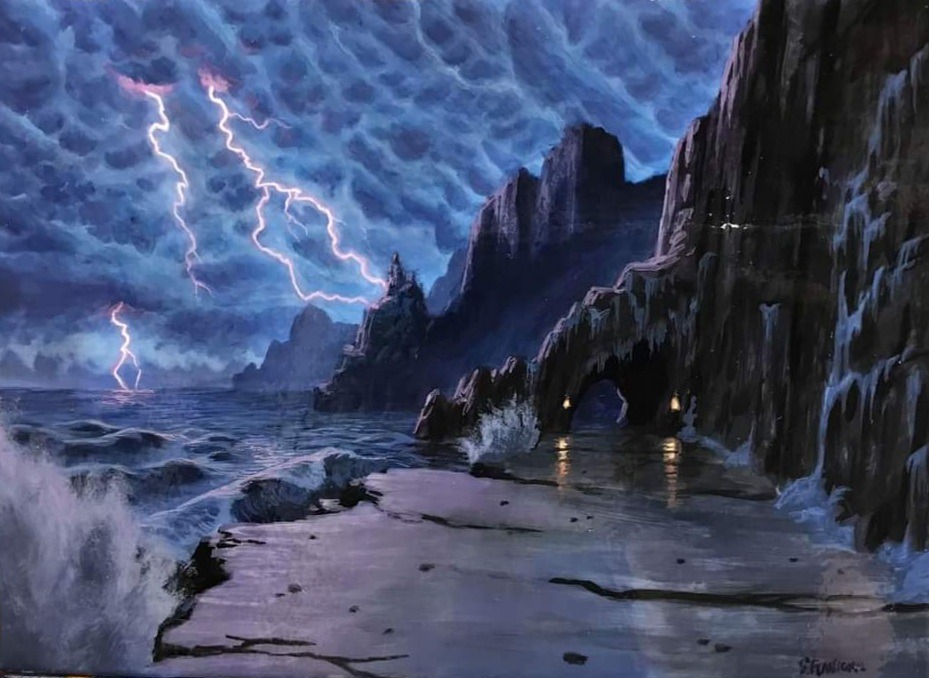

The Holmla Isles
- Main Environs: Coastal, Forest
Found far off the western coast of Belgrad lies The Holmla Isles; an archipelago of incredibly small tropical islands settled in the middle of the Cycallu Ocean.
These islands are comprised of vast networks of coral reefs overgrown with verdant tropical plantlife combined with mossy algal growths. While the ground of the islands consists of various forms of coral, sand, and dirt, the main islands themselves are only a fraction of the overall coral reef that connects all the islands and spreads several miles underwater.
Aside from the vast network of coral, the other forms of plant life that exist on the islands include various forms of moss and algae which cling to the surrounding coastlines. A veritable layer of moss suffuses the surface of the islands, with various forms of massive tropical trees that pierce the mosswork. Stranger still, many of these trees not only pierce through the islands, but also extend outwards from the base of the coral reef itself - their roots intertwined with the coral, and reaching out of the sea.
Some of these trees which extend from both the water and land can be seen pouring freshwater straight from natural holes within the trunks and limbs of the trees. These trees have aptly been nicknamed "Cascade Trees" for their ability to seemingly produce water from their insides. The methods from which these trees produce this water is not fully understood - but it is thought that they potentially absorb saltwater from the sea and filter the water through their bodies, pushing out the newly filtered freshwater.
Even though the islands present a verdant, lush, and tropical paradise, a common danger inherent to the Holmla Isles is the threat of seasonal flooding. As seasons of precipitation and rainfall increase in the surrounding islands, the combination of algal blooms and increased water runoff triggers a natural phenomena in the Cascade Trees - one which throws the trees' water production into overdrive. This results in a mass flooding of freshwater that rushes out of the cascade trees and swathes over the islands, pushing much of the plantlife and wildlife into the surrounding seas. Because of the presence of seasonal flooding, many creatures of the islands are either amphibious or have adapted to living at higher elevations to avoid the floods.
Many speculate that the trees on the islands were once planted by Fey beings from ages long past, or were carried as seeds by a sea creature which swam from the recesses of the elemental plane of water - presumably having consumed the seeds and ejecting them as it passed. Regardless of it's genesis, the coral reefs themselves seem to have been barren and dead before the cascade trees took root, but now have had life breathed into them through a symbiosis of function.


PART 5
The Objects
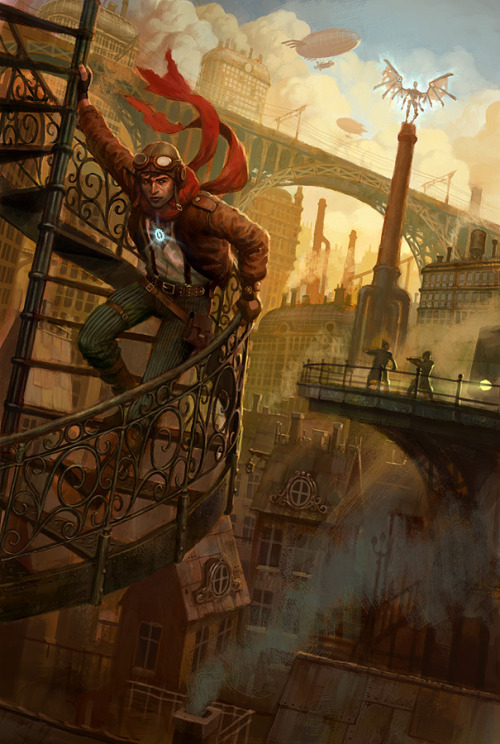
Magic & Tech
The masses of Pryxis have learned to fundamentally rely upon technological creations without the use of magic to avoid the downsides of yet another magical calamity; however, when magic and tech are blended, their power is a force unrivaled.
The Objects
Tech vs Magic
Upon the world of Pryxis, the studious nature of its many inhabitants have yielded great innovative insights into the fields of magical focus and technological invention.
Technological Studies
During the Dragon War, there existed an artificial arms-race to discover and implement any form of aid that could offer the mortal masses the edge necessary to face the superior nature of the Draconic Imperium - resulting in the discovery and implementation of firearms and clockwork machinations to ensure mortal survival.
Since the beginning of the Age of Rebirth, the masses of Pryxis did not yield in their race to perform technological marvels. As a result, the studies offered by artificery and mechanics has granted people the availability to live their lives in ways never before dreamed of.
Battery-Powered (BP) Gear
Some of the objects in this section are battery-operated. Any device that uses batteries will be listed with a (BP) symbol and comes pre-equipped with them.
Similar to magic items, an item that utilizes a battery has a number of charges it can utilize before the battery life runs out - referred to as it's "charge capacity". When all charges in a battery are used, the battery is inert and must be replaced.
Magical Commonality
While magic is a commonly accepted facet of society upon Pryxis - and has been for several eons - it has never been so generally implemented into all corners of the world as it has been now.
Why limit ourselves to only what magic can offer us?
With the dawning of technological discovery came a certain desire to augment all aspects of ourselves: from body and mind, to the way our tools and weapons can function.
We stand within the age of discovery, one where we find ourselves amongst the stars - and find our basic capabilities lacking. Yet, we now have the understanding to change it all.
-- Pryxis
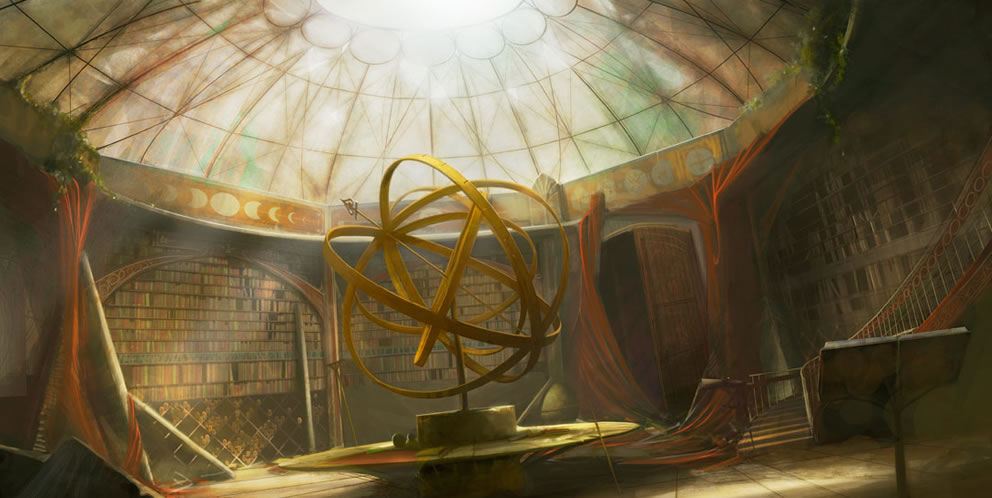

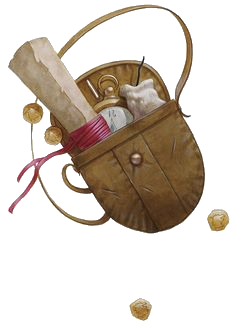
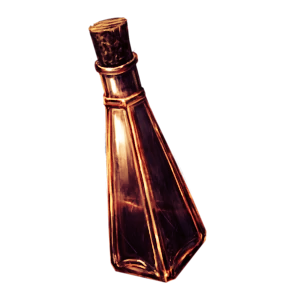
Adventuring Gear
This section lists a multitude of new non-magic, technological gear that is available upon the world of Pryxis.
Alcehmical Items
These items can be created or extracted through various means of intermediate to advanced alchemy or chemistry.
Adroit Philtre. Also known as "Skill Shots", these oily syrups are concoctions of stimulants meant to fortify particular skills for short periods of time. Each Adroit Philtre is concocted to aid one specific skill.
As an action, one may consume the contents. For the next hour, whenever you roll an ability check using the skill determined by the philtre (such as Athletics for example), add 1d4 to the check.
Adrenaline. Distilled from the adrenal systems of once living creatures, when injected into the bloodstream increases the transportation of oxygen to portions of the body.
As an action, one may inject the adrenaline, gaining a +2 bonus to Strength, Dexterity, and Constitution ability checks and increasing your speed by 5 feet for 1 minute. However, for the next hour after injection, a creature gains a -2 debuff to all Intelligence, Wisdom and Charisma ability checks, and has disadvantage on checks made to concentrate on spells.
Drop-Stone. These small opaque beads are filled with chemicals that are highly sensitive to minute changes in surrounding atmospheric pressure.
When tapped against a hard surface, the chemicals become activated. When dropped, the stone emits an audible chime for every 10 feet it falls before hitting the ground. The chime can be heard up to 30 feet away. Once the stone collides with a hard surface, the stone shatters and is destroyed.
Extinguishing Dust. This nonreactive dry compound is packed in front of a pressurized supply of nonflammable air. Traditionally held within 5 pound canisters with a lever activated nozzle. Each can has 5 charges.
As an action, a creature wielding an extinguisher canister may spend 1 charge to discharge some of the contents, spraying a 10 ft. cone in front of them, Any fires of medium or smaller size within this area are put out, including any fire affecting creatures within this area. Any creatures within this area must attempt a DC 12 Constitution saving throw. On a failure, they become stunned until the beginning of their next turn as the chemical irritants cause a coughing fit.
Adventuring Gear
| Item | Cost | Weight |
|---|---|---|
| Alchemical Items | ||
| Adroit Philtre (flask) | 50 gp | 1/2 lb. |
| Adrenaline (vial) | 10 gp | ─ |
| Drop-Stone | 2 gp | 1 lb. |
| Extinguishing Dust (canister) | 5 gp | 5 lbs. |
| Fertilizer | 20 gp | 10 lbs. |
| Fireworks (5) | 100 gp | 5 lb. |
| Fulminating Chrome | 350 gp | 1 lb. |
| Hexing Salt (pouch) | 50 gp | 1/2 lb. |
| Perfume (vial) | 5 gp | ─ |
| Battery | ||
| Basic | 10 gp | ─ |
| Advanced | 50 gp | ─ |
| High | 100 gp | ─ |
| Bath, Portable | 20 gp | 25 lbs. |
| Battery Charger | 150 gp | 10 lbs. |
| Clay Mold | 30 gp | 1 lb. |
| Collector's Coat | 35 gp | 20 lbs. |
| Drill, Portable | 500 gp | 50 lbs. |
| Ink Pen | 5 gp. | ─ |
| Ink Cartridge | 3 gp | ─ |
| Metal Detector | 250 gp | 10 lbs. |
| Microscope | 1,000 gp | 1 lb. |
| Oven, Portable | 100 gp. | 10 lb. |
| Radio | ||
| Two-Way | 50 gp | 1 lb. |
| Satellite | 500 gp | 15 lbs. |
| Infotab | 5,000 gp | 1 lb. |
| Tuning Fork | 10 gp | 1/2 lb. |
Fertilizer. Fertilizer is a clever farming chemical used to create sturdier, healthier crops. The best Fertilizer uses the nutrients in animal feces as food for the growing plants, and some use other chemicals as add-ins for crops resistant to pests, or other useful mutations (DM's Discretion). No matter what goes in it, Fertilizer almost always smells bad. Fertilizer is also an effective food for ambulatory plants.
For Adventurers, Fertilizer has more uses than just farming. Depending on what the job calls for, the characters can use it as an improvised poison, a covering for their scent, or even a makeshift bomb.
-
Poorman's Poison. One pound of fertilizer can be applied to weapons - acting as a Basic Poison.
-
Masking Agent. When one pound of fertilizer applied to one's person, the target has disadvantage on Wisdom (Perception) checks that rely on smell, and any Wisdom (Perception) checks made to detect the creature using smell are done with disadvantage.
-
Filth Explosive. After expending 1 minute to alter the chemical composition, a pound of Fertilizer becomes an effective explosive. When it is detonated, all creatures in a 10-ft radius must make a DC 12 Dexterity save, or take 1d10 points of fire damage.
Fireworks. "Firework" is a general term used to describe a multitude of explosives, the most common of which is a rocket that explodes into a shower of brightly colored sparks. Fireworks are created with a mix of gunpowder and other alchemical ingredients that provide the color. They are mot often used in celebration or as a signal, but can be used as weapons
When fireworks are lit (as an action), one rocket is shot from the base and propelled 50 feet into the air, exploding at the end of its move. A rocket fires off each round from when it was lit.
Fireworks create a loud bang and a bright flash of light when they explode; any creature within a 10 foot sphere of where the rocket (or rockets) explode must make a DC 13 Dexterity save, or be deafened for 1d4 rounds and blinded for 1d4 rounds. The explosion can be seen and heard up to 1 mile away.
Fireworks can also be used as improvised weaponry. When used in this way, the user instead turns the explosive device on its side and points it in the direction of their choice. Upon impact, Fireworks deal 1d6 points of fire damage to anyone within a 5 foot sphere of where it explodes, in addition to the other effects mentioned above.
Fulminating Chrome. Fulminating Chrome is a highly volatile explosive created by dissolving a series of metal compounds within ammonia solutions, and appears as a colorless, semi-metallic crystalline substance. If crushed, heated, scratched, or otherwise damaged, the crystal will explode in a 15 foot radius, dealing (3d6) force damage and (3d6) thunder damage, and deals double damage to objects and structures. A successful DC 15 Dexterity saving throw halves the damage.
Hexing Salt. This black salt is a mixture of finely ground silver dust, iron powder, ash resin and alchemically purified salt. This substance has key uses in defense against supernatural creatures. The salt is non magical, and is slightly sticky to the touch.
As an action, you may spread the hexing salt on the ground in a 5 foot line. If a creature is a supernatural creature (celestial, fey, fiend, undead, is vulnerable to silvered weapons, or has the Incorporeal Movement trait) they cannot pass over, under, or through the line, regardless of whether they are in the Material, Ethereal, or a similar border plane. When applied to a surface, it requires a full action to break the line.
Additionally, as an action you can throw the hexing salt onto a creature within 5 feet of you. If the creature is a supernatural creature, they must succeed on a DC 12 Constitution saving throw or become blinded for 1 minute. The target can repeat its saving throw at the end of its turn, ending the effect on a success.
Perfume. A mixture of oil extracts designed to give off a pleasing scent - typically distilled from various flora or fauna. One vial of perfume has 10 uses.
As an action, you can splash or spray one use of the perfume in the vial onto a creature within 5 feet. For the next minute, you have advantage on all Charisma checks directed at humanoids of challenge rating 1 or lower.
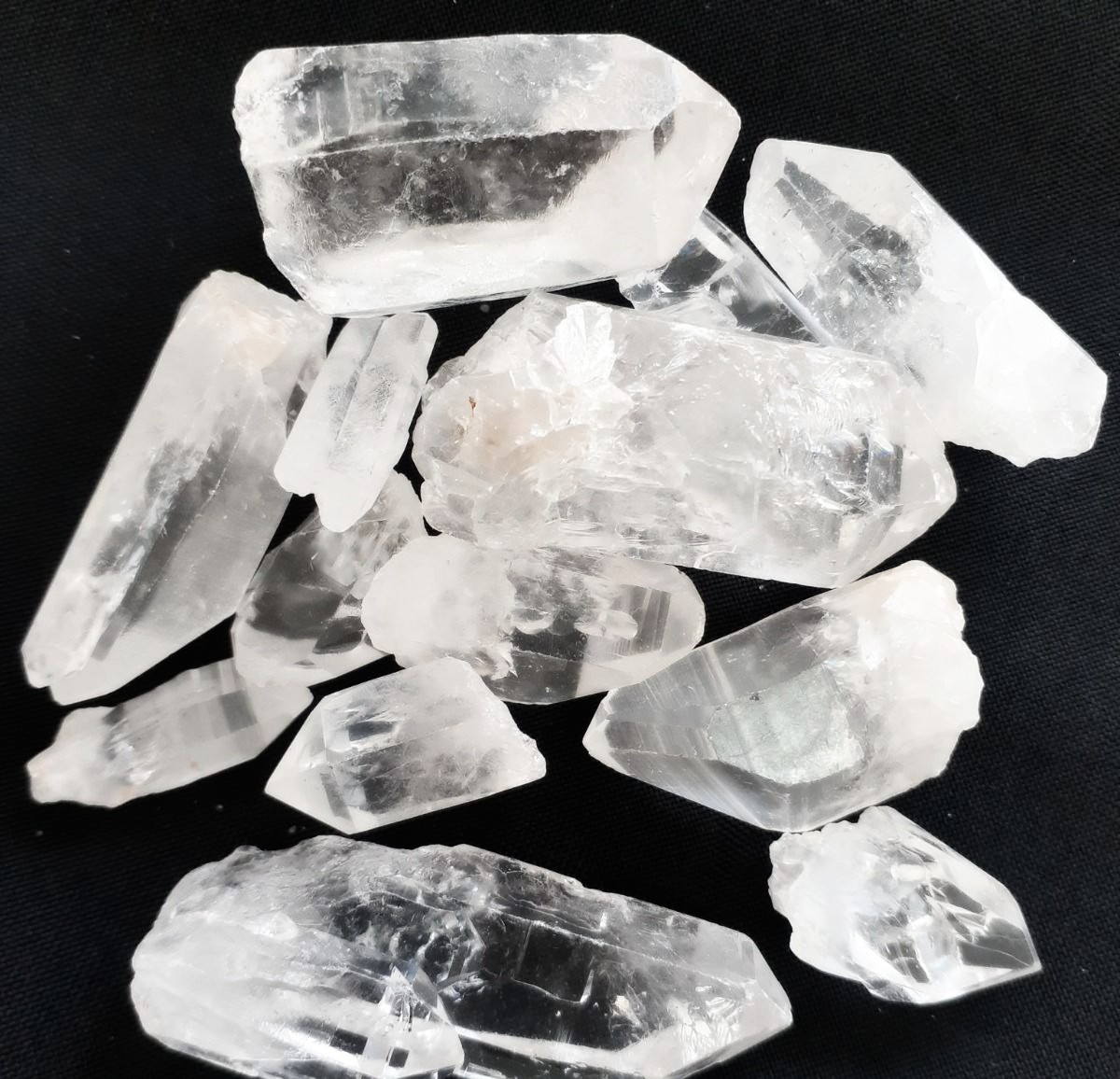

Batteries
A tiny, hand sized metalloid cylinder filled with highly conductive acidic fluids, a battery can be used to power certain technological devices. Most batteries can be interchanged between different technological devices, but certain devices can only function with higher capacity batteries.
| Battery Capacity | Charges |
|---|---|
| Basic | 10 Charges |
| Advanced | 50 Charges |
| High | 100 Charges |
Blotato Batteries
Batteries upon the world of Pryxis utilize a form of biofuel.
This Biofuel is derived from "Blue Glow Potatoes" (or Blotatoes, for short), which have been grown and bred through the centuries to have incredibly high levels of potassium, phosphoric acids, and caloric electrolytes - as well as unnaturally high levels of zinc and copper.
Due to their electrically conductive capabilities, Blotatoes are usually juiced into an incredibly potent acid concentrate to be used within batteries and other electronics.
Blotatoes are labeled as a "fuel-only crop", as "Blotato Toxicity" (or blue fever) is a prime reason for such; high fever, racing heart, cold sweats, and vomiting are the mildest of side effects - as well as glowing blue skin.
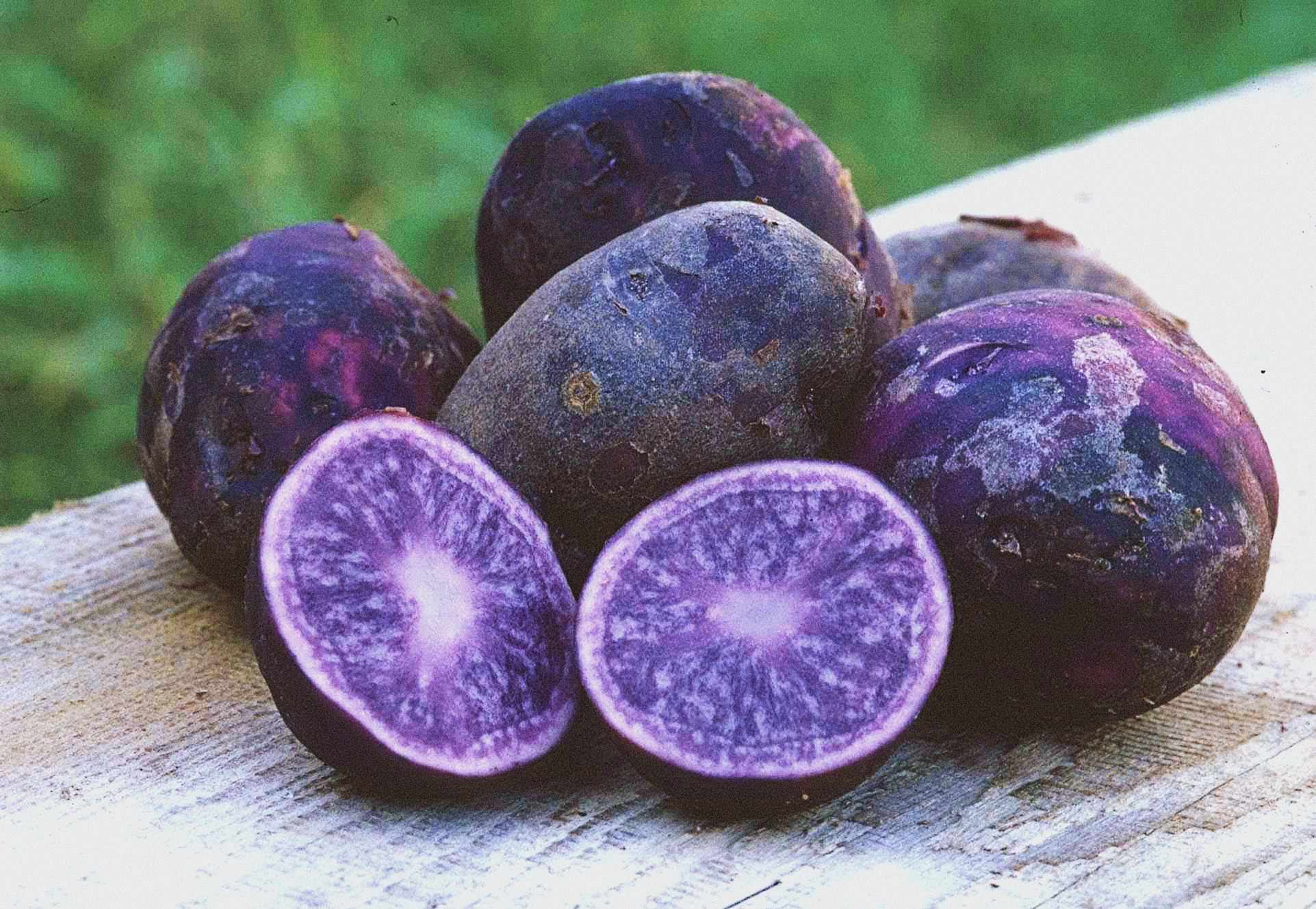

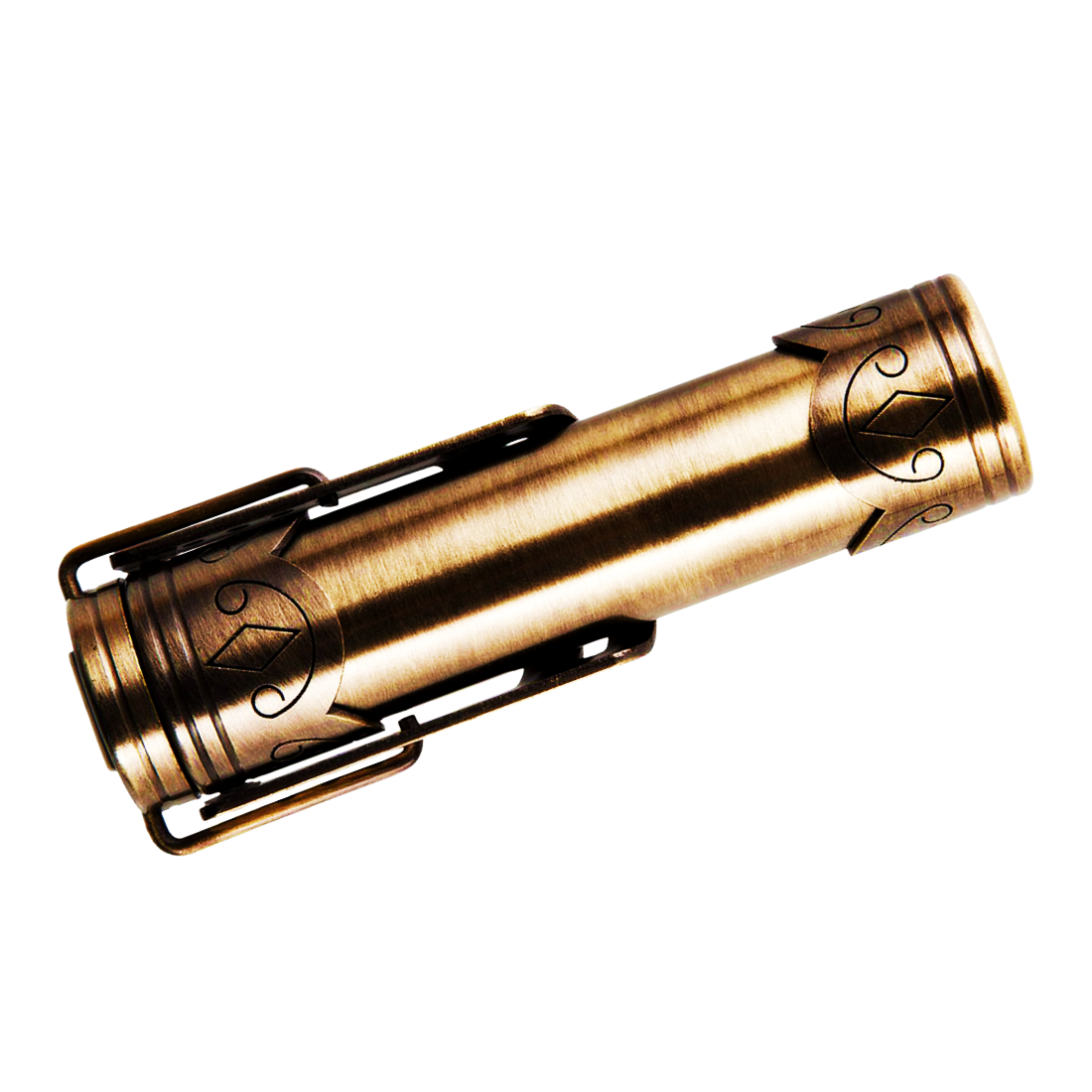
Bath, Portable. A collapsible vessel of wood and metal, lined with animal fat or a tarp of sorts. A series of simples hoses can be deployed to a nearby water source within 30 feet to siphon water into the basin of the tub. Carrying this bath allows one to bathe in the wilderness without resorting to lakes or rivers.
Battery Charger. This small metal box is roughly the size of a human's head. A charger electrochemically recharges batteries over the course of several hours. To do so, a battery must be placed within the battery slot of the charger and must be connected to an electricity source — a vehicle, an electrical generator, or other energy based power supply (As per DM's discretion). The Charger carries a cord with clamp diodes that can be applied onto a proper source.
A charger can hold up to two batteries, and each battery recharges over the course of a number of hours equal to one tenth of it's capacity, as shown below:
- Basic Capacity: 1 Hour
- Advanced Capacity: 5 Hours
- High Capacity: 10 Hours
Clay Mold. A small wooden box filled with soft, malleable clay. By putting a tiny item in the box and closing it, you create an imprint in the clay that can be used as a mold. Spending an hour, you can use Smith's tools or Tinker's tools combined with the mold to create a replica of the item. The item can be made of soft metal such as copper, gold, silver, tin, lead, aluminum or similar metals. The clay mold is destroyed in the process.
Collector's Coat. The collector's coat is a long heavy coat containing dozens of pockets, in which can be held over 200 containers to collect, hold and organize more than 1000 small items. The coat is filled with empty trays, tiny boxes, bags, vials, small flasks, pouches, skins, sacks, jugs, holders, jars, small bottles, flat padded boxes to hold many tiny figurines etc. The coat is heavy and counts as a reinforced cloak, partially to protect the wearer but mostly to protect its contents. The weight only counts for the empty coat.
Drill, Portable (BP). Traditionally powered with an Advanced Battery (50 Charge Capacity).
This incredibly heavy, battery operated mechanical drill has a razor sharp serrated cone that shreds material with ease.
For 10 charges, a portable drill operates continuously for 1 minute and can shred open doors, walls, rockfaces, and similar non-indestructible materials with ease.
A portable drill counts as an exotic martial weapon with the following properties:
| Drill, Portable | 3d10 piercing | 90 lbs. | Heavy, Two-Handed |
When in operation, the drill has the following effects:
-
Digger. When digging through solid material, the drill clears out a 1 cubic foot section of solid material each round, or twice as much for soft material.
-
Shredder. The drill deals double damage to objects and structures.
-
Unwieldy. You cannot attack with the drill more than once per round, and you can’t use it to make an attack of opportunity.
Ink Pen. A wood and metal stylus with a pointed tip. This pen does not require constant dipping of ink, as the ink is stored in lightweight cartridges in the body of the pen itself. The Ink Pen can additionally be used as a traditional quill with available ink.
- Ink Cartridge. A small metallic cartridge filled with any variety of colored ink (traditionally black), which is inserted into the end of an Ink Pen. Each cartridge can scrawl roughly 200 pages of parchment before needing to be discarded (as compared to the traditional 1000 pages with standard quill and Ink). Additionally, this ink is waterproof, run-proof, and fade-proof - a godsend compared to traditional ink.
Metal Detector (BP). Traditionally powered with a Basic Battery (10 Charge Capacity).
A semi-metallic rod with a netted disk on one end, and a handle with a button on the other.
For 1 charge, the detector becomes active for 1 hour. When the netted disk is brushed along a surface, it will emit an audible ping that can be heard up to 5 feet away whenever a metallic or magnetic mineral substance is detected anywhere between 1 to 5 feet below the surface.
Microscope. A microscope utilizes a system of lenses and slides to magnify tiny samples up to 10x their size, granting advantage and a +10 bonus to checks made to examine or appraise an item that is tiny (or smaller) or exquisitely detailed. A microscope also includes 10 glass panes for use as slides and a travel case to hold both them and the instrument itself.
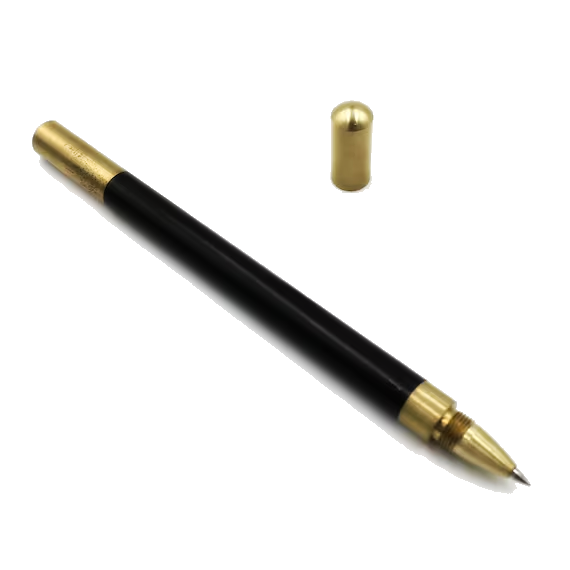
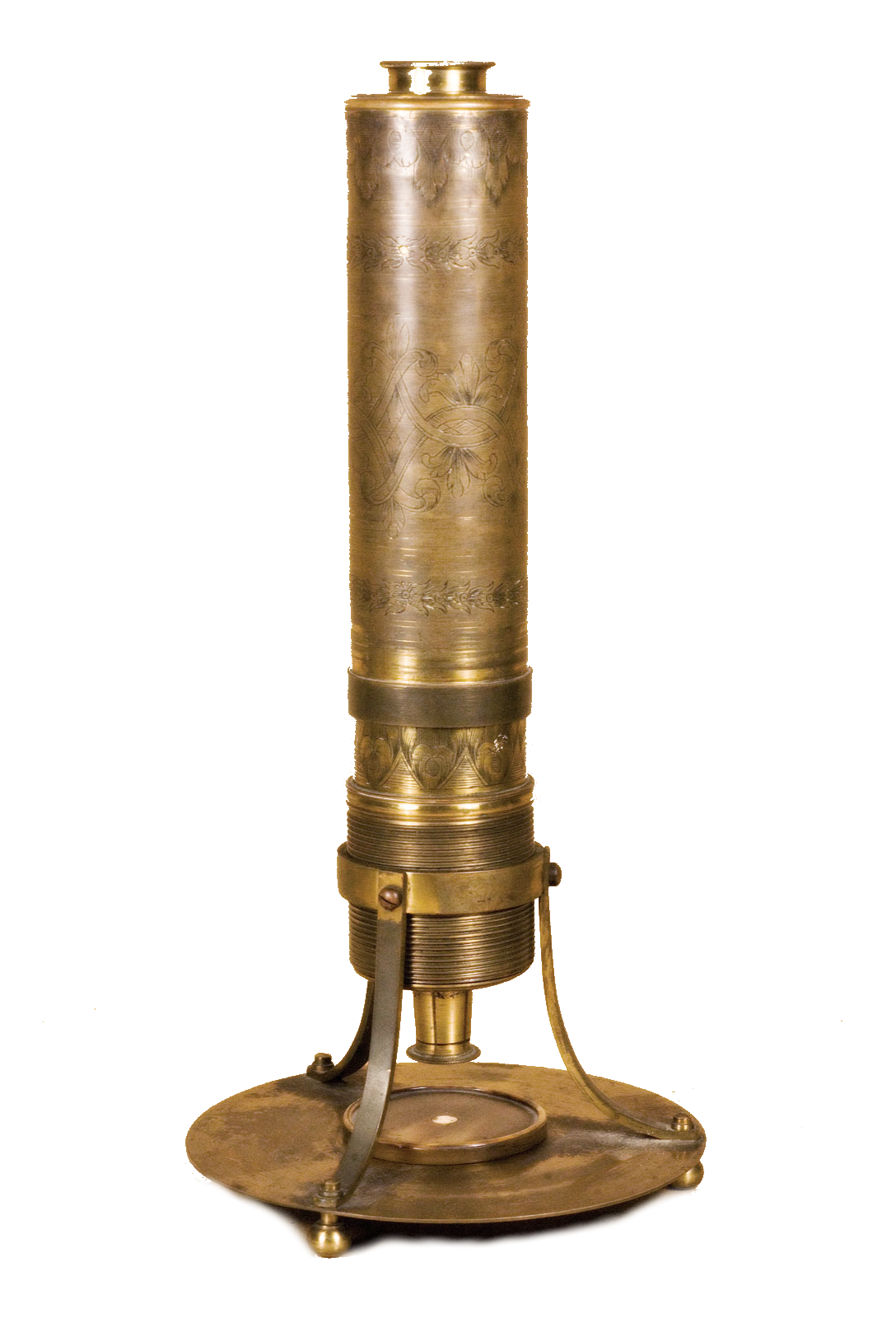
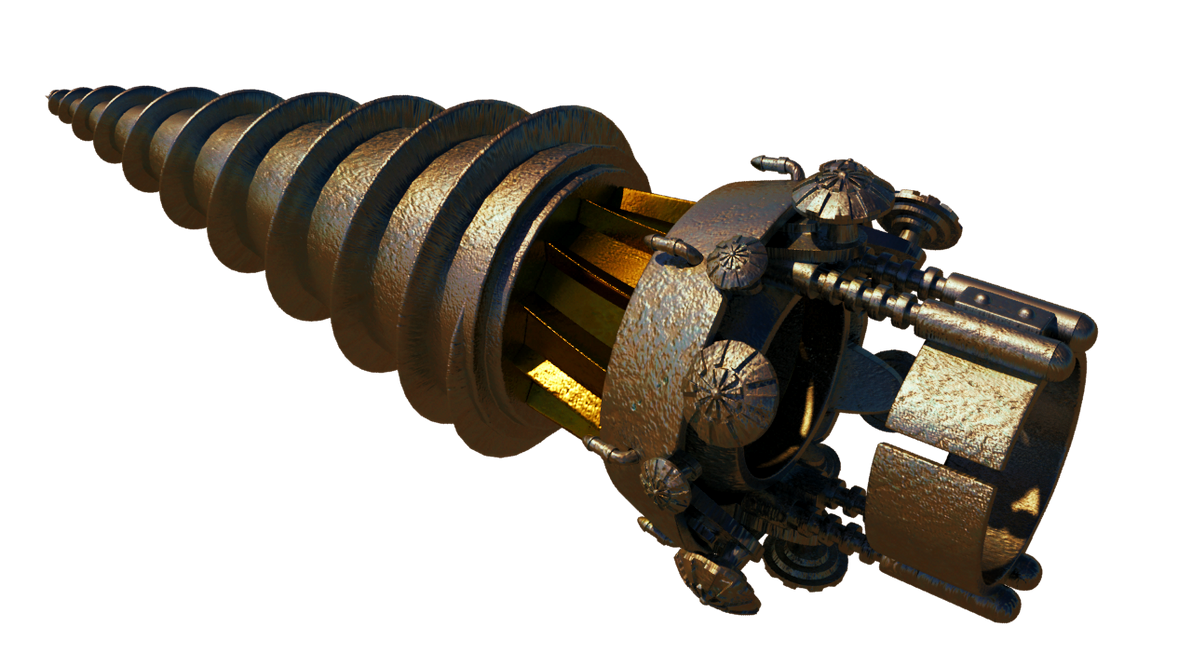
Pryxian Radio
The world of Pryxis has delved into the study of radiowaves and the transmission and receiving of such across a wide spectrum.
All Radios, whether they be Simple or Computer radios, utilize the same generalized frequencies of radiowaves. The only exception is the use of the Infonet - which is a series of complicated radio frequencies that continuously relay a cache of information that remains on standby for communication. This Infonet is limited in it's ability to be accessed, however, and can only be utilized for a short time.
Consult your DM whenever ascertaining whether or not the use of a Radio is permissible or even possible for the location or timing of your game - as it may be far too advanced to utilize in a timely manner.
Visual-Satellite Radios
For double the charge of a traditional Satellite Radio, one may purchase a form that allows visual transmission.
Visual-Satellite Radios interpret visual information through a series of lenses that can transmit local visuals onto a glassen screen - in order to do so, a Visual-Satellite Radio must be linked with a similar functioning Visual-Satellite Radio (or an Infotab).
The use of such Visual-Satellite Radio is fairly uncommon, but allows a creature who is linked to the radio to see and hear through the radio as if they were there, for as long as it is in operation.
Oven, Portable (BP). Traditionally powered with a Basic Battery (10 Charge Capacity).
A 1-foot long, 1-foot wide, 1/2-foot tall metal box with a series of copper-based coils within. The box has a windowed hatch on the front which can be opened to allow a tray to rest easily inside. The Oven comes with a strapped leather case that allows for easy transport.
For 1 charge, the Oven's coils begin to charge with thermal energy for 1 hour, reaching anywhere between 350 to 500 degrees. This oven can be used for anything that may require convection heat - such as baking, cooking, tempering metal, or similar uses.
Radio (BP)
All radios are battery-powered, their typical battery and capacity will be listed.
A radio refers to any form of device that can function off of the use of radio waves, circuitry and resonating crystals within said radios to transmit data along wavelength transmissions.
The more advanced a radio, the further it can reach, and the more it can do. The most common radios are listed below:
-
Two-Way. Traditionally powered with a Basic Battery (10 Charge Capacity).
A hand-held, portable, two-way radio transceiver. Multiple radios can use a single channel, though only one radio on the channel can transmit at a time. You can communicate with someone using a two-way radio at the same frequency up to 30 miles in perfect conditions, though the typical effective range is more commonly about 5 miles.
For 1 charge, the Two-Way Radio can operate for 1 hour of continuous transmission between linked two-way radios. One may link a currently unlinked two-way radio by using an action to align two or more two-way radios on the same channel. -
Satellite. Traditionally powered with an Advanced Battery (50 Charge Capacity).
A bulkier, yet-still-portable, heavy duty version of the two-way radio. These radios connect with atmospheric satellites to transmit data at faster speeds and further distances. Functioning practically the same as the two way radio, except that it can transmit up to 300 miles in perfect conditions, with the typical effective range residing around 50 miles. Additionally, more than one radio may communicate while linked to a satellite radio - and allows a linked two-way radio to do the same.
For 5 charges, the Satellite Radio can operate for 1 hour of continuous transmission between linked radios. The linking process is the same as a two way radio.
- Infotab. Traditionally powered with a High Battery (100 Charge Capacity).
Infotabs are far more technologically advanced pieces of machinery that allow for the transfer and reception of radio waves into visual and audio information. An Infotab is a compact wrist-mounted device that functions as a Visual-Satellite Radio that can transmit up to 3000 miles in perfect conditions, with the typical effective range residing around 500 miles. Additionally, an Infotab can connect to the Pryxian Infonet to access a cache of readily-available information.
So long as a battery is within the Infotab, it displays the current time of day and relative elevation (in relation to sea level) of the wearer, and functions as both an abacus for calculations and a compass.
For 5 charges, the Infotab can operate as a Visual-Satellite Radio for 1 hour of continuous transmission between any radio within range - requiring no linking process.
For 10 charges, as an action, one can link to the Infonet to utilize the spell Legend Lore once per long rest. If an artificial intelligence is installed in the device, one can utilize Legend Lore equal to the user's Intelligence modifier per long rest.
Tuning Fork. This twin-pronged metal rod utilizes and measures frequencies, and is commonly found among gemwright's tools. When tapped on a hard surface, it will ring for 1 minute, or until something stops it by holding it or touching it against something soft. While it is ringing, the following checks can be made with advantage:
- Intelligence (Arcana) checks when dealing with gemstones, glass, or other similar materials.
- Wisdom (Animal Handling) checks when dealing with creatures with blindsight.
- Wisdom (Medicine) checks when dealing with damaged bones.
Tools
The world of Pryxis has advanced their technological and even magical superiority, and thus, has additional tools for fulfilling particular jobs.
Tools
| Item | Cost | Weight |
|---|---|---|
| Mystic Tools | 75 gp | 7 lbs. |
| Scanner | 1,500 gp | 1/2 lb. |
Mystic Tools. These tools are often utilized by mages of all forms to fulfill a wide variety of functions; such as enchanting items, magical runework, and scrollscribing. It includes a silver chisel, hammer, crystal ball, runestones, and a quill. These tools are not necessary to create magic items, but utilizing them do reduce the cost of magic item creation by 1/4 the price.
Scanner (BP). Traditionally powered with a Basic Battery (10 Charge Capacity).
A Scanner is an ear-mounted device that resembles a bulky monocle. Through a series of technological and magical means, a Scanner allows the wearer to assess another creature's abilities from a glance alone. While worn, a creature can use a bonus action to expend 5 charges to scan a creature they can see to learn one of the following bits of Information at the DM's discretion:
- Armor Class
- Remaining Hitpoints and Temporary Hitpoints
- Remaining Ki points or Spell-slots

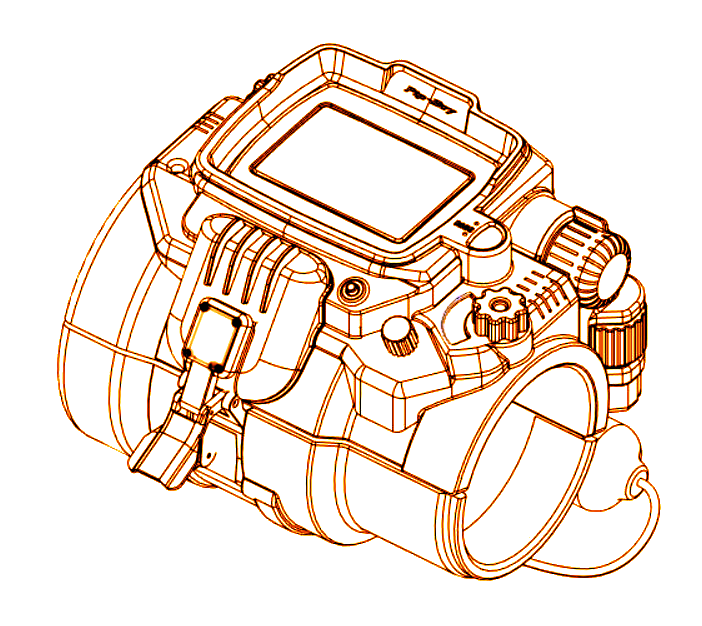
Aids & Prosthetics
Life is not always an easy quest - especially amongst adventurers, and odds are that sooner or later, someone is going to be missing something.
While magical healing is an amazing thing, the truth is that most parties aren’t going to have a healer of sufficiently advanced level to cast regenerate to reattach a missing limb or restore mobility. Even when healing magic is applied, sometimes the healing process cannot undo significant damage that is already done. At lower levels, the amount of money required for such healing may be unattainable.
In short, there are going to be times when someone’s going to need an aid for their own flesh and blood, at least in the short term - but sometimes in the long term.
Livelihood Aids
| Item | Cost | Weight |
|---|---|---|
| Mobility Seat | 100 gp | 25 lbs. |
| Locomotive | +500 gp | +50 lbs |
| Levitation | +1,000 gp | +75 lbs |
| Prosthetic Limb | 50 gp | ─ |
| Clockwork | +100 gp | +5 lbs |
| Morphic | +500 gp | +10 lbs |
| Exoskeleton | 500 gp | 100 lbs. |
| Hydraulic | +1,000 gp | +50 lbs |
| Energized | +2,500 gp | +75 lbs |
Mobility Seats
Mobility Seats are often used by those who have lost most available feeling or function of their legs or lower spine due to afflictions such as Paraplegia or similar forms of lower paralysis. On other occasions, whether due to birth defects or biological differences, the use of traditional movement may be unavailable.
Regardless of the reasoning, there exist multiple forms of Mobility Seats for those in need of movement.
- Basic. A Basic form of mobility seats, these constructs are often as simple as an incredibly ergonomic metal reinforced wood and leather chair with sturdy wheels attached to the sides and sometimes the front. The means of mobility is achieved via arm power (or perhaps even tail power), or sometimes even the pull of gravity when going down a slope.
A Basic Mobility Seat is usually tailored to the individual's size. When sat in - and so long as both of the creature's hands are free to operate the seat - the mobility seat grants a creature a movement speed equal to 2x their Strength or Dexterity Score in feet per turn (Example: A Dwarf in a Basic Mobility Seat with a Strength Score of 15 would be able to go 30 feet per turn).
The Basic Mobility Seat grants full breadth of movement: forwards, backwards, side turns, etc.
Mobility Seat Upgrades
A Mobility Seat can be outfitted with one additional upgrade to grant greater versatility.
Locomotive
Outfitted with a series of treads or thick wheels that are connected to a power source - traditionally powered by a battery or fuel.
- A Locomotive Mobility Seat grants a creature a movement speed equal to 3x their Strength or Dexterity Score in feet per turn.
- Additionally, A Locomotive Mobility Seat is generally outfitted with climbing treads and a built in harness, granting a climbing speed equal to half the creature's granted movement speed.
Levitation
An expensive rarity; a series of mechanical magnets create a sustained levitating field. Movement is achieved through kinetic manipulation of gears with arms to create thrust and maneuverability.
- A Levitation Mobility Seat grants a creature a flying (hover) speed equal to 4x their Strength or Dexterity Score in feet per turn.
- Additionally, A Levitation Mobility Seat is outfitted with gyroscopic stabilizers and a fitted harness, granting a creature immunity to the prone condition.


Prosthetic Limbs
Prosthetics are types of artificial replacements for a missing limb or body part - and range from the incredibly basic, to mechanical replacements that are nearly as capable as the genuine article.
Aside from the simplistic replacements such as hooks and peg legs, the following are prosthetics that provide full range of functionality.
- Basic. A standard semi-mechanical prosthetic - usually crafted of wood, metal or ceramic parts. Once attached to a functional prosthetic base, allows the user the same range of motion and functionality of the arm, leg, or limb it is replacing. The lack of sensory feedback from the limb, however, can make some tasks more difficult than normal.
A Basic Prosthetic generally is crafted for the individual who will have it applied - matching their size and build to fulfill basic functionality.
Basic Prosthetics function exactly as (and replace) the Prosthetic Limb from Tasha's Cauldron of Everything - and are not magical by any means.
Prosthetic Limb Upgrades
A Prosthetic Limb can be outfitted with one additional upgrade to grant further capability.
Clockwork
Appearing as a limb sleeved in plated armor - when one listens closely the sound of gears whirring and clicking can be heard whenever the limb moves.
- A Clockwork Prosthetic Limb grants a +1 Bonus to any Strength saving throws and Athletics checks made using this limb. If you do not benefit from the Martial Arts feature of the Monk class, add +1 to the damage of any unarmed strikes made using this limb.
- One simple or martial melee weapon (lacking the Heavy and Two-Handed properties) or a shield can be integrated into the limb. Doing so requires a full round of action to integrate, and can be drawn or stowed as a bonus action.
Morphic
Slightly animated, these Prosthetic Limbs are composed of carbon wiring and magnetically interlocking plates that can shift at the user's will.
- A Morphic Prosthetic Limb grants a +2 Bonus to any Strength saving throws and Athletics checks made using this limb. If you do not benefit from the Martial Arts feature of the Monk class, add +2 to the damage of any unarmed strikes made using this limb.
- This limb can emulate any simple or martial melee weapon, and while not used as a weapon it functions as a shield. While it is emulating a two-handed weapon, the user must use both hands to wield it as normal. The weapons can be drawn or stowed as a free action.
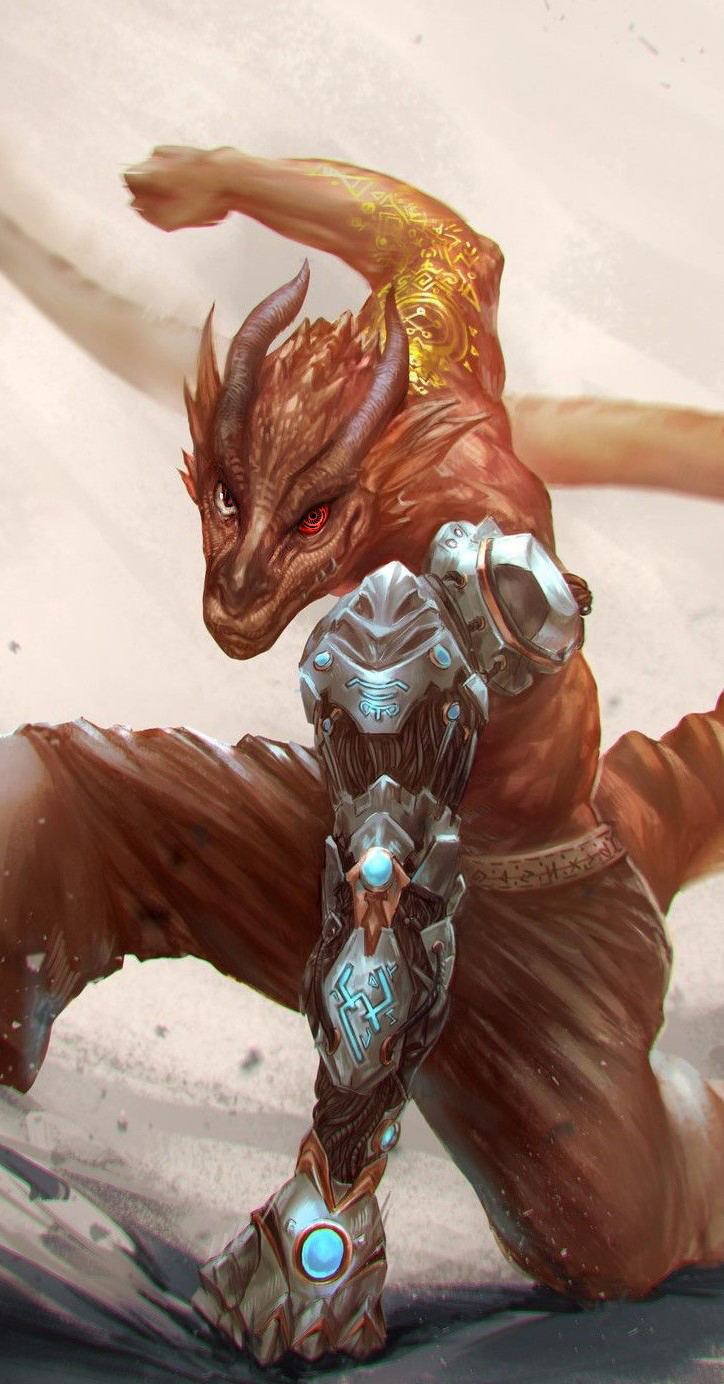



Exoskeleton
Exoskeletons are prosthetic support cradles meant to augment or enhance the physical capabilities of the individual to whom they are applied. Exoskeletons can be utilized underneath armor and clothes.
Some individuals who have lost all agency of movement will sometimes utilize an exoskeleton to imitate natural body movement - as the exoskeleton reads micro-movements and nerve signals to recreate full bodily autonomy.
No matter the type of exoskeleton, it requires 10 minutes to don or doff the exoskeleton effectively.
- Basic. Adapted from a wide range of basic prosthetics, these body cradles are utilized by those with nerve damage or under a permanent form of paralysis. Comprised of a system of metallic, ceramic and wooden braces for limbs attached to a rudimentary sensor array on the middle of the back and base of the neck - which reads minor electric signals from the spine to replicate movement.
A Basic Exoskeleton is fitted to the wearer, and negates the paralysis condition on an individual - allowing them to have full breadth of movement and action. The weight of the exoskeleton does not count against the creature's carry weight while donned.
A creature who is donned in an exoskeleton is immune to any effects that would inflict the paralysis condition.
Exoskeleton Upgrades
An Exoskeleton can be outfitted with one additional upgrade to bestow superior functionality.
Hydraulic
Utilizing a series of hydraulic pistons, pneumatic rods and semi-powered components, this exoskeleton greatly bolsters a creature's capabilities.
- A Hydraulic Exoskeleton grants a +2 bonus to Strength and Dexterity scores and a +1 Bonus to AC.
- Additionally, a creature in a Hydraulic Exoskeleton gains a +10 bonus to their movement speed, and can jump twice the distance with their high and long jumps.
Energized
A small back-mounted core powers this skin-tight suit of microfibers and pneumatic tubing which stretch throughout the entirety of the exoskeleton, granting superhuman levels of ability and movement.
- An Energized Exoskeleton grants a +4 bonus to Strength and Dexterity scores and a +2 Bonus to AC.
- Additionally, a creature in an Energized Exoskeleton gains a +20 bonus to their movememnt speed, and is under the continuous effects of the jump spell - as a nonmagical effect.
Equipment Modifications
Not all equipment is magical - and not all enchantments or magical abilities are as useful as they should be. With the presence of technological advancements comes the ability to upgrade, amplify, or reinforce both mundane and magical equipment.
Modifications allow you to customize your arms and apparel to meet any tactical or environmental operating conditions that your current equipment may be lacking.
All equipment modifications are nonmagical in nature.
Any object, whether magical or otherwise, can only be outfitted with up to 2 modifications.
Artifacts cannot be outfitted with equipment modifications - unless by a master craftsman.
Malleable Costs
Most equipment modifications require access to refined materials that are traditionally nonmagical in nature.
Equipment mods can only be applied by those with the knowledge of how to augment arms and apparel without the use of arcana, spells, or enchantment.
Because of this, some modifications may be more expensive in areas where dependence on magic is commonplace. Sometimes resulting in two or three times the listed cost in materials and work.
Applying Modifications
To add a modification to an item you own, you must first purchase it. The cost of a modification is often contingent on the specific item it is intended to modify or other factors.
Then, you must spend a small amount of time applying the module. This counts as light activity for the purposes of resting. At the end of the time period, you must make a skill check using tools specified by the modification to determine your success at applying the module. On a success, the modification is applied successfully. On a failure, the modification is not applied to the item. On a critical failure, the modification is damaged beyond repair.
You can decide to spend additional care and time applying a module. If you spend a number of hours applying a module, you gain a bonus to the skill check equal to the number of hours multiplied by 2, up to a maximum of +10.
Modifications usually have restrictions placed on them that limit the types of items the modification can be applied to. Weapons and Apparel can only have one of the same modification applied at any one time, unless otherwise specified.
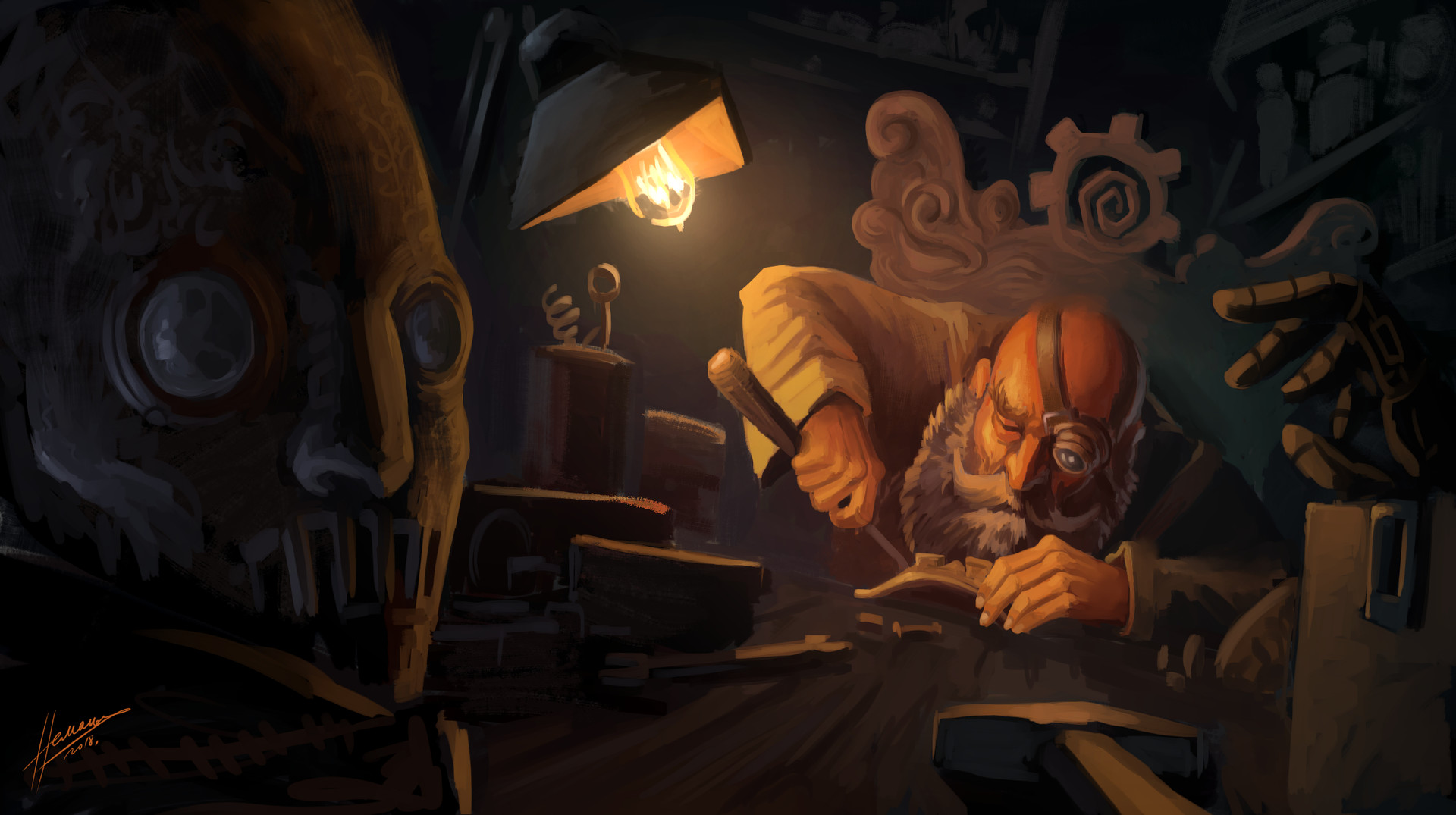

Equipment Modifications
| Item | Cost | Prerequisite | Tools |
|---|---|---|---|
| Armor/Clothing Mods | |||
| Ablative Padding | 250 gp | Cannot be combined with Goldweave. | Tailor's Tools |
| Armor Plating | 300 gp | Can be applied to shields. | Smith's Tools |
| Glow | 150 gp | ─ | Tinker's Tools |
| Goldweave | 5x price of the apparel + 100 gp. | Cannot be combined with Ablative Padding. Can be applied to shields. | Jeweler's Tools |
| Spiked | 100 gp | ─ | Smith's Tools |
| Quick-Deploy | 200 gp | Can only be applied to Armor | Tinker's Tools |
| Weapon Mods | |||
| Balanced | 200 gp | The weapon must be a melee weapon that does not have the heavy property. | Smith's Tools |
| Collapsible | 150 gp | ─ | Tinker's Tools |
| Concussive Charges | 400 gp | The weapon must have the two-handed or versatile property. | Tinker's Tools |
| Goldplate | 5x price of the weapon + 100 gp. | Cannot be combined with Lightweight. | Jeweler's Tools |
| Lightweight | 250 gp | Cannot be combined with Goldplate. | Smith's Tools |
| Scoped | 100 gp | The weapon must be a ranged weapon that utilizes ammunition (or would use ammunition). | Tinker's Tools |
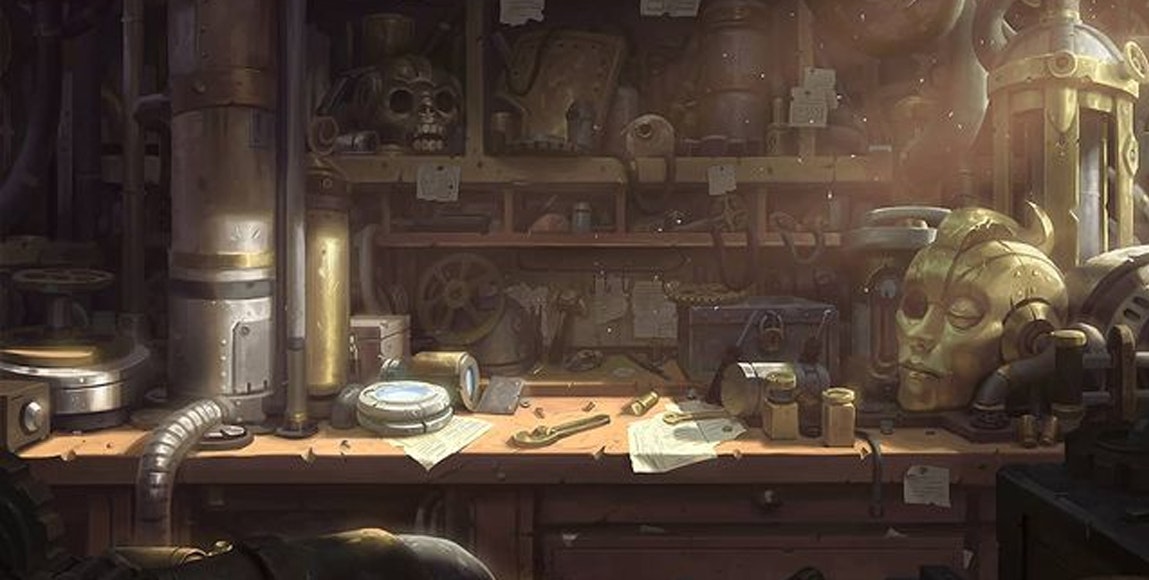

Armor/Clothing Mods
Armor and Clothing modifications are available for those who take their personal protection very seriously. For example, you could replace your armor's metal components with compact ceramics, rubbers, or industrial fabrics. You could attach solar-powered light modules that activate for short periods of time. You could even plate it with gold to be used in lieu of material spell components (or to just look cool).
You cannot transfer armor or clothing mods from one set of apparel to another, such as transferring ones applied to a robe to those on a suit of plate armor - as they have been integrated into the piece of clothing.
If you wear multiple pieces of modified apparel (such as an armored robe, and additionally plated leather armor) you can only benefit from one or the other, not both.
Armor and Clothing modifications do not apply to shields unless specified otherwise.
Ablative Padding
The Apparel is outfitted with cushioning fabrics and strapped down security components.
The armor no longer imposes disadvantage on stealth checks when worn.
Restrictions. Armor must impose disadvantage on stealth checks when worn. Cannot be combined with Goldweave.
Armor Plating
The AC granted by this armor is increased by 1, and the weight of the armor is increased by 5 lb.
This modification can be applied up to two times on the same armor or article of clothing.
A shield can only benefit from one iteration of this modification.
Glow
Small recharging battery-operated light modules are integrated into the apparel. You can shed dim light in a 5-foot radius until you use your action to extinguish it.
As a bonus action, you can shed bright light in a 20-foot radius and dim light for an additional 20 feet for 1 hour, or until you use your bonus action to extinguish the light. Once this modification has been used in this manner, it can't be used again until you finish a long rest.
Goldweave
Gold coats the exterior layer of the armor with a thin layer of gold alloy, and any fabric is replaced with gilded silk.
When utilizing spellcasting that would require a gold cost in material components, you substitute the cost of the goldweave for the cost of the material components.
Restrictions. Cannot be combined with Ablative Padding.
Spiked
While wearing this armor, you can melee attack with your armor spikes. The spikes are a simple melee weapon which deals 1d4 piercing damage.
Additionally, while you are grappling a creature, that creature takes 1d4 piercing damage at the start of each of their turns.
Quick-Deploy
When this modification is applied to a suit of armor, the bulk of the armor is broken down into more subtle pieces, such as thick bracelets, a heavy belt, a collar, and other segmented sections secreted under your clothes, which can be swiftly reformed into the full suit of armor.
The time it takes to don or doff the armor is 1 action.
Additionally, the Armor gains the Concealed property for the purposes of stealth.
Restrictions. Can only be applied to armor, not to articles of clothing.
Concealed Property
Concealed. This item is not initially obvious, and may be easily hidden or disguised as something else. A person attempting to locate the presence of this item must succeed on an Intelligence (Investigation) check opposed by a Dexterity (Stealth) or Charisma (Deception) on the part of the character with the item equipped.
Attacks with a concealed weapon against creatures aware of you - yet unaware of the weapon's presence - are made with advantage.
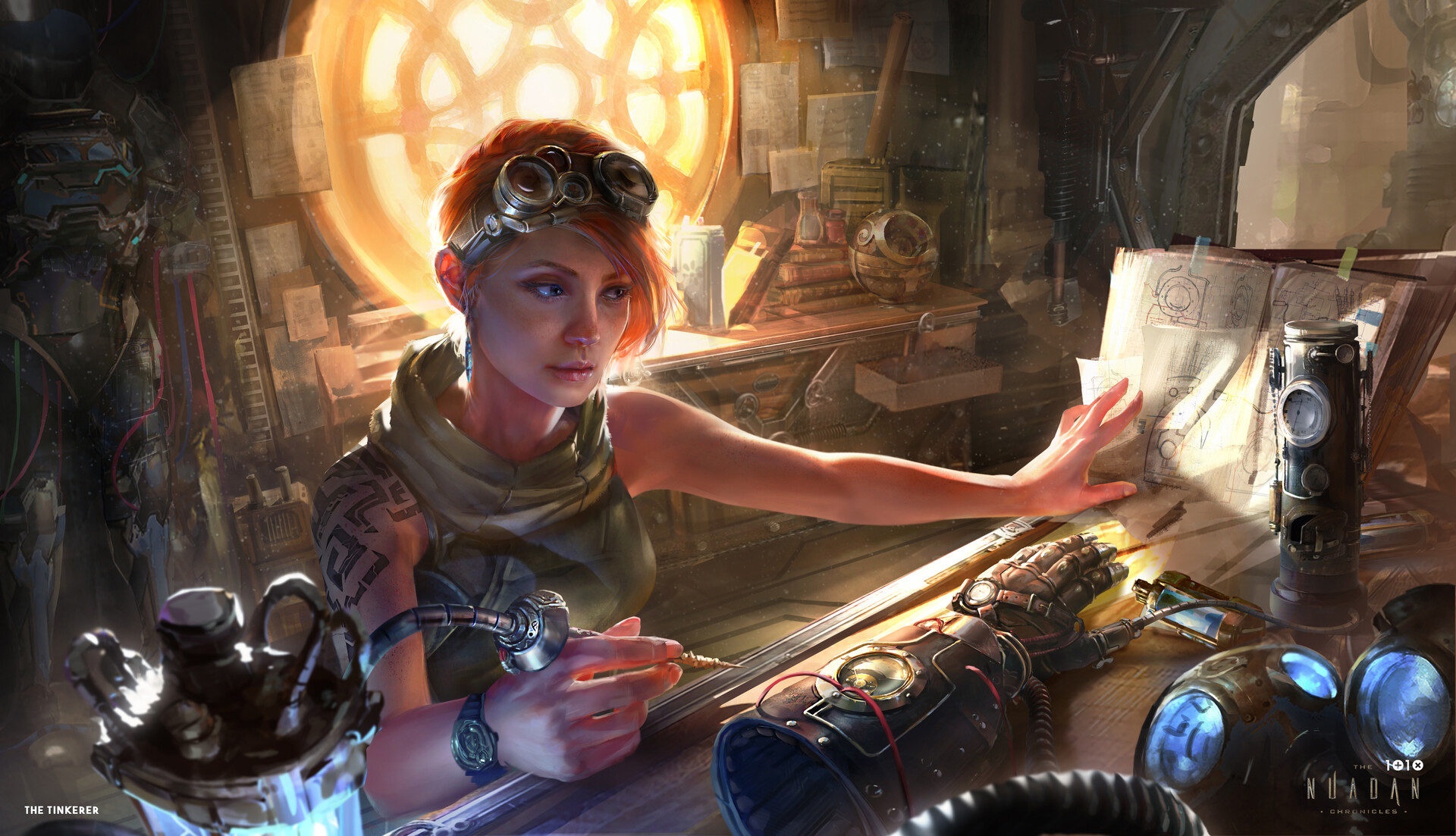

Weapon Mods
Weapon modifications are available to those who take their self defense to heart. For example, you can outfit your weapon to become balanced for throwing in combat. You could outfit it with an explosive charge that detonates when you flip a switch. Or you could plate it in gold to utilize in lieu of material components for spells (or to just look cool).
You cannot transfer weapon mods from one weapon to another, such as transferring ones applied to a longsword to a quaterstaff -as they have been integrated into the weapon.
Balanced
The weapon is outfitted with aerodynamic balancing components.
The weapon gains the thrown (20/60) property. If it already has the thrown property, its normal range is increased by 10 feet, and its long range is increased by 30 feet.
Restrictions. The weapon must be a melee weapon that does not have the heavy property
Collapsible
The weapon is easily broken down into a compact device.
The weapon can be collapsed or constructed as a bonus action. The weapon must be fully constructed to be used.
In its collapsed state, a weapon gains the Concealed property.
Concussive Charges
The weapon is outfitted with minor explosive charges - such as a detonation cord on a melee weapon, or a percussive bowstring.
This modification has 3 charges. When you hit with an attack with this weapon, you can expend one charge to detonate a small kinetic payload, causing the target to take an additional 1d6 weapon damage. You can reset the charges of the course of a long rest with 15 gp per charge.
Restrictions. The weapon must have the two-handed or versatile property.
Goldplate
Gold coats the exterior layer of the weapon with a thin layer of gold alloy.
When utilizing spellcasting that would require a gold cost in material components, you substitute the cost of the goldweave for the cost of the material components.
Restrictions. Cannot be combined with Lightweight.
Lightweight
The weapon's metal and wooden components are replaced with lightweight compact materials (such as reinforced ceramic or tempered plastic).
The weapon no longer is affected by by spells or other effects that would target metal.
This weapon is half its normal weight. It no longer has the Heavy property, if it is present.
Restrictions. Cannot be combined with Goldplate.
Scoped
The weapon is attached with a scope to allow keen sight at further distances.
The weapon's long range is doubled. Additionally, you can see details through the scope as if they were within 5 feet of you.
Restrictions. The weapon must be a ranged weapon that utilizes ammunition (or would use ammunition).
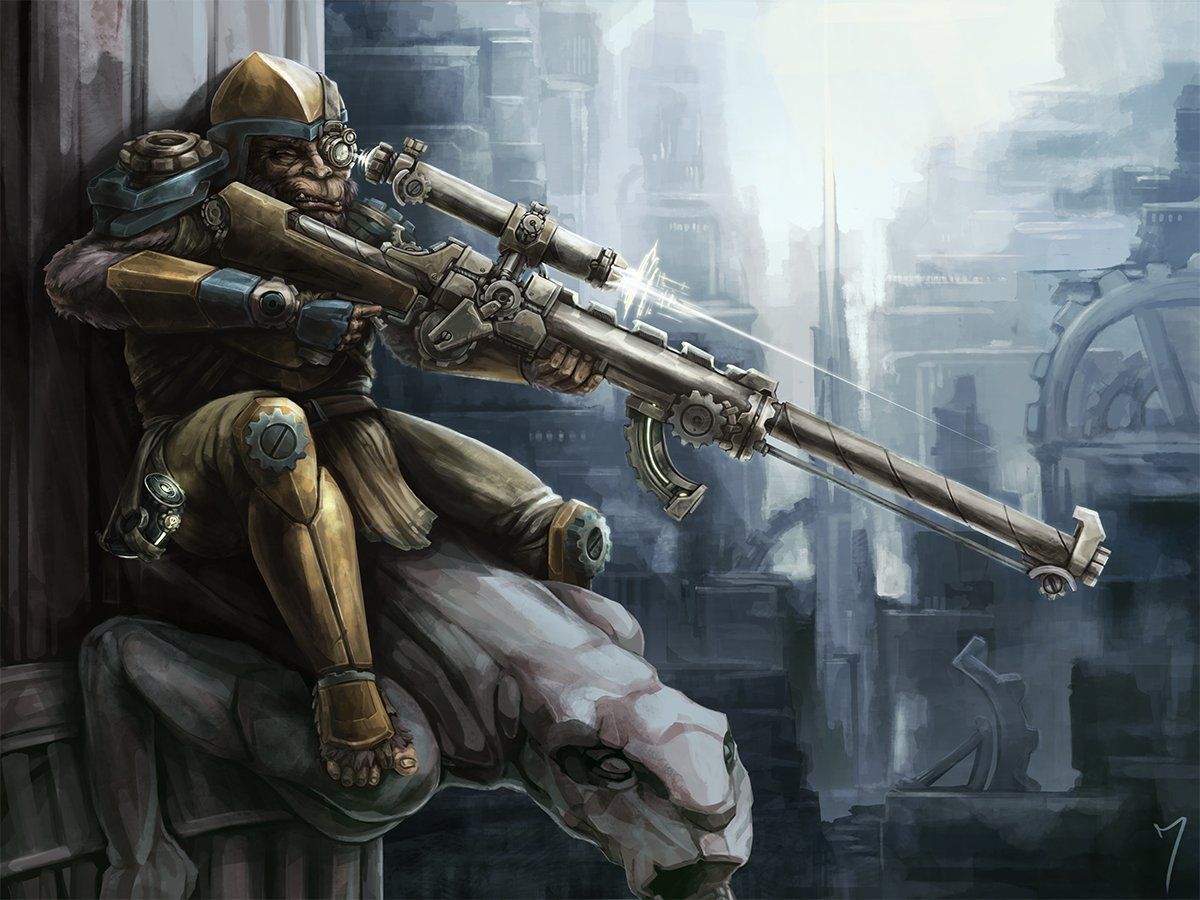

Magic vs Tech Common Items
Due to the existence of technological studies upon the world of Pryxis, many aspects of life that are traditionally fueled by magic can be substituted by tech.
Common Magic Items can be seen as a synthesis of magical and technological crafting - resulting in the exact function of the item through nonmagical means.
Common Magic Items - Expanded
As per Xanathar's Guide to Everything:
"The Dungeon Master’s Guide includes many magic items of every rarity. The one exception are common items; that book includes few of them. This section introduces more of them to the game. These items seldom increase a character’s power, but they are likely to amuse players and provide fun roleplaying opportunities."
These common magic items are to be added in the same category as those mentioned above - easily accessible and commonplace, used more for everyday purposes or for storytelling or character depth.
The magic items are presented in alphabetical order.
Arcane Putty
Wondrous item, common
A favorite of on-the-go spellcasters. This colorful, malleable clay can replace one spell component that doesn't have a specified cost, the clay is not consumed in the casting.
Bag of Freshstones
Wondrous item, common
This fabric pouch is filled with 10 clay stones with a runic symbol for "meal" etched into the side. When a few drops of water are added to a stone, it transforms into a day's worth of rations. Until they are transformed into rations, the freshstones cannot spoil or be eaten.
Bag of Floatstones
Wondrous item, common
This fabric pouch is filled with 10 clay stones with a runic symbol for "water" etched into the side. When crushed, a stone transforms into a pint of freshwater. Until they are transformed in into water, the floatstones cannot spoil or be eaten.
Blornge Beast
Wondrous item, common
This tiny sculpture of a beast is the color "blornge" - a color most creatures normally cant see under normal circumstances. Creatures within 10 feet of the sculpture that have truesight can see the color blornge. Those that see it must succeed a DC 13 Wisdom saving throw or be stunned for 1 round as their mind reels from the experience of the color blornge. A creature can only be affected by this effect once every 24 hours.
Dead-door wood
Wondrous item, common (requires attunement)
Essential for vampire hunters. This sliver of a magic door prevents any vampires from talking directly to an attuned creature.
Dimstone
Wondrous item, common
Good for ominous entrances. This black, glossy stone dims nonmagical light sources within 10 feet of it.
Drum Lummin
Wondrous item, common
Flashy instead of loud. This marching drum produces small amounts of light instead of sound when played. When continuously played, it sheds dim light out to 5 feet.
Circlet of Volk
Wondrous item (circlet), common
This plain circlet is embedded with a smoky quartz. When worn, bolts of illusionary lightning flicker across the surface.
Eil Pendant
Wondrous item, common (requires attunement)
This small tarnished copper amulet holds a small capsule of blood on it's face. When worn, it allows an attuned creature to reroll 1 hit die per short rest.


Equinox Jewel
Wondrous item, common
A colorful piece of pale jasper. The colors within the jewel gradually change color with the seasons: green for spring, red for summer, yellow for autumn, and blue for winter.
Frailty Glass
Wondrous item, common (requires attunement)
This small shard of stained glass is stronger than it looks. While attuned to this glass, a creature's attacks gain a +3 bonus to attack and damage rolls to nonmagical glass or crystalline objects.
Gearpack
Wondrous item, common
This backpack is threaded with various copper and steel wire. It buzzes when constructs are within 30 feet.
Geode Antares
Wondrous item, common
This half of a crystal geode sparkles even without light sources nearby. A creature who holds this geode in a free hand can clearly see stars in the day sky with ease.
Hilltop Hat
Wondrous item, common (requires attunement)
This wide brimmed hat holds stones and bits of rock fragments stitched into braids. This hat grants an attuned creature a +3 bonus on checks made to climb.
Imptail Rope
Wondrous item, common
This 10 ft. length of rope is woven out of a red leathery substance that smells faintly of sulfur. Escape checks made to break free of this rope requires a DC 13 Wisdom check instead of a Strength check.
Kingsknife
Wondrous item (dagger), common
An ornate dagger with runes of peace along its handle and blade. Attacks with this knife cannot deal damage.
Krait Spoon
Wondrous item, common
A simplistic wooden spoon engraved with a symbol of a snake on the handle. Once per day, when the spoon comes into contact with anything edible, it lets out a barely audible hiss out to 5 feet if the substance is poisonous.
Labyrinthine Twine
Wondrous item, common
A normal-sized spool with a carving of a minotaur on one of its faces. The spool magically holds 1,000 feet of twine.
Laurel Crown
Wondrous item (circlet), common (requires attunement by a druid)
This crown is formed of living laurels and moss which never wilt nor falter. While you are wearing it, you gain the following benefits:
- You can use the crown as a spellcasting focus for your druid spells.
- You can try to cast a cantrip that you don't know. The cantrip must be on the Druid spell list, and you must make a DC 10 Intelligence (Arcana) check. If the check succeeds, you cast the spell. If the check fails, so does the spell, and the action used to cast the spell is wasted. In either case, you can't use this property again until you finish a long rest.
Locket Piccolo
Wondrous item (amulet), common (requires attunement by a bard)
This small engraved piccolo flute hangs from a thin silver chain, quietly exuding a quiet melody. While you are wearing it, you gain the following benefits:
- You can use the necklace as a spellcasting focus for your bard spells.
- You can try to cast a cantrip that you don't know. The cantrip must be on the Bard spell list, and you must make a DC 10 Intelligence (Arcana) check. If the check succeeds, you cast the spell. If the check fails, so does the spell, and the action used to cast the spell is wasted. In either case, you can't use this property again until you finish a long rest.
Lyre of Rain
Wondrous item, common
This lyre is carved with etchings of clouds and fog motifs. Soft, beautiful fog surrounds the player of this lyre.
Mantis Lens
Wondrous item, common
These multi-lensed glasses allow the wearer to see through 10 ft. of fog or smoke.
Marbles of Play
Wondrous item, common
This bag of colorful stone marbles are each individually carved with a rune. When left on a flat surface, these marbles play against themselves - or can play against an opponent.
Occultism Gloves
Wondrous item (gloves), common (requires attunement by a sorcerer)
These fine leather gloves are embroidered with metallic symbols pertaining to your Sorcerous bloodline. While you are wearing them, you gain the following benefits:
- You can use the gloves as a spellcasting focus for your sorcerer spells.
- You can try to cast a cantrip that you don't know. The cantrip must be on the Sorcerer spell list, and you must make a DC 10 Intelligence (Arcana) check. If the check succeeds, you cast the spell. If the check fails, so does the spell, and the action used to cast the spell is wasted. In either case, you can't use this property again until you finish a long rest.
Ornament Box
Wondrous item (belt), common (requires attunement by an artificer)
This tiny tin box is about as large as your palm and can be affixed to a belt - it is surprisingly bigger on the inside, but only holds decorum and various trinkets. While you are wearing it, you gain the following benefits:
- You can use the belt as a spellcasting focus for your artificer spells.
- You can try to cast a cantrip that you don't know. The cantrip must be on the Artificer spell list, and you must make a DC 10 Intelligence (Arcana) check. If the check succeeds, you cast the spell. If the check fails, so does the spell, and the action used to cast the spell is wasted. In either case, you can't use this property again until you finish a long rest.
Portable Shield
Armor (shield), common
This round shield is retractable for easy portability. While the shield is retracted, it looks like a steeled bracer. While the shield is deployed it looks as steel round shield. The shield can retract and deploy via a pressure-plate on the inner thumb section of the bracer.
This shield has the concealed and disarm immune properties.
Quaint Blanket
Wondrous item, common
This unassuming homemade quilt is downright comforting to look at and hold. As an action, you can turn the blanket into a fully functional cot - complete with a pillow, the quilt and even a tiny stuffed beast of your choice.
Readyclasp
Wondrous item, common
This etched metal cloak clasp is carved with a rune from an unknown language. Attaching this clasp to a magic cloak makes attuning to it take an action rather than its normal attunement period.
Runic Token
Wondrous item (ring), common (requires attunement by a cleric)
This simplistic ring is wrought from fine silver and emblazoned on its face is a symbol from your local church, chapter, monastery or chapel. While you are wearing it, you gain the following benefits:
- You can use the ring as a spellcasting focus for your cleric spells.
- You can try to cast a cantrip that you don't know. The cantrip must be on the Cleric spell list, and you must make a DC 10 Intelligence (Arcana) check. If the check succeeds, you cast the spell. If the check fails, so does the spell, and the action used to cast the spell is wasted. In either case, you can't use this property again until you finish a long rest.
Umbra Goggles
Wondrous item, common
These iron goggles have two dark lenses fastened into their sockets. A creature with Sunlight Sensitivity who wears these goggles can see normally in daylight.
Veil of Visions
Wondrous item, common
This silvery veil seems to eerily flow on its own. While a creature holds this veil on their person, they remember all of their dreams (including trances, visions and other forms of dreams) with perfect clarity.
Visage Pyris
Wondrous item, common
This leather bound journal smells of salt and ash. When the pages of this journal are burned, the writing and images on the pages become a "Movie" of fire and smoke.
Windshifter
Wondrous item (any weapon), common
This weapon has flowing runes of wind and clouds along its handle. While wielding the weapon, you may use an attack action and swing or fire against the air to increase or decrease local windspeed by 1 mph for every point of damage it would have dealt. This effect lasts for 1 round, and doesn't work if there couldn't naturally be wind in the area.
Zircon Bead
Wondrous item, common (requires attunement)
This tiny bead is fashioned from Zircon, carved with tiny abjuration runes. As a free action, you may crush the bead, granting yourself a +1 bonus to AC for 1 round. The bead reforms in your hand upon the next dawn.
Magic Items
Aeduct's Arcane Binding Tape
Wondrous item, (rarity varies)
Created by a truly ingenious artificer from another realm, his patented magical creation has become so widespread that it has become a modern marvel.
There are so few magical items more useful or arcane technologies so taken for granted as the modern miracle that is Aeduct's Arcane Binding Tape. These unassuming strips of magical cloth have proven to have a near endless supply of uses.
Arcane Bindings, or Aeduct's Tape, as it is commonly referred to, is ingenious in it's simplicity. Thin strips of Drow Silk, specially treated in a bath of proprietary magical dyes, are inscribed with spellwork to create a magically adhesive roll of cloth capable of bonding permanently to almost any surface, and withstanding incredible forces. What's more, modern innovations and variants in the inscribed spellwork are able to extend the utility of Aeduct's Tape even further.
While larger bolts of Arcane Binding can sometimes be purchased for industrial use. Aeduct's Tape is generally sold in 2-inch-wide rolls of 60ft lengths, and is easily recognized by the distinctive patterns of runic spellwork, which glows briefly when activated. Arcane Binding can be cut to any size, and comes in a number of varieties.
Some of the most common varieties of Aeduct's Tape are listed as follows:
Aeduct's Arcane Binding
Cost: 2gp/ft (common)
The one and only, original Arcane Binding Tape, Aeduct's Arcane Binding comes with a trigger word inscribed on the inside of it's thin golden spool, and adheres instantly to any nonliving surface when that trigger word is said. It can be easily cut to length with any blade (or via teeth, or even brute force), but once bonded, will support up to 200 lbs of weight.
Aeduct's Arcane Bandages
Cost: 5gp/ft (uncommon)
Used to quickly treat workplace or combat injuries, Aeduct's Arcane Bandage comes pre-perforated at 6-inch intervals, and can be used to heal lacerations, punctures, rips and tears on living creatures. 6 inches of tape recovers 1d6 hitpoints and takes a full action to properly apply. The tape gradually fades away, fusing with the target's skin over the course of 24 hours.
Aeduct's Restorative Bandages
Cost: 20gp/ft (very rare)
Banned in numerous cities and kingdoms. Aeduct's Restorative Bandages were created to help ease long hours of work or adventuring. Similarly perforated to arcane bandages, 6 inches of Restorative Bandage can reliably recreate the effects of taking a short rest, and this effect can stack with more applications to grant the benefits of a long rest. Unfortunately, the effects of the bandages have proven to be highly addictive, and extensive use often leads to total dependence and an inability to gain the benefits of resting without the product's use.
Aeduct's High Strength Binding
Cost: 5gp/ft (uncommon)
Threaded with strands of Ironweave for additional strength, Aeduct's High Strength Binding works exactly the same as the original binding tape, but has a bonded strength of 500 lbs, and is resistant to bludgeoning, piercing and slashing damage once activated.
Aeduct's Releasable Binding
Cost: 3gp/ft (common)
Inscribed with a two-way enchantment, Aeduct's Releasable Binding adheres to surfaces just like the original binding tape, but can be removed by way of a secondary trigger word. Unfortunately, a flaw in the runic inscription means that the bonded strength of the tape is reduced by 50 lbs each time it is released in this way, so the same strip cannot be used indefinitely.
Aeduct's Conductive Binding
Cost: 4gp/ft (uncommon)
Used to quickly bridge electrical or lightning-based connections in places where traditional wiring is not an option, Aeduct's Conductive Binding has a bonded strength of 100 lbs, and is electrically, thermally, and magically conductive.
Aeduct's Elastic Binding
Cost: 3gp/ft (common)
Aeduct's Elastic Binding functions almost exactly as the original binding tape, but once bonded, is capable of stretching up to twice it's original length.
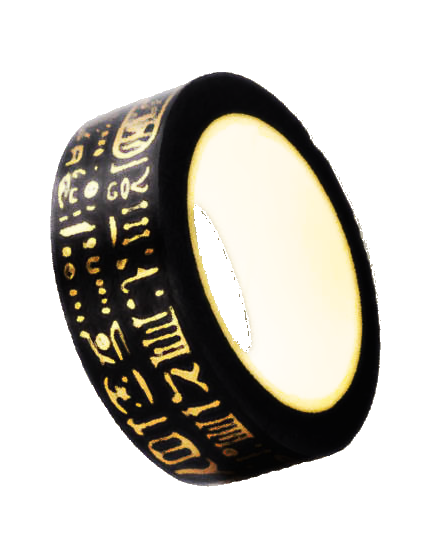
Aeduct's Luminous Strips
Cost: 2gp/ft (common)
A simple but ever useful variation, Aeduct's Luminous Strips don't have the same holding power as other arcane tapes, topping out at a bonded strength of 50 lbs, however when a second trigger word is spoken, the runes on Luminous Tape emit bright light out to a range of 10 ft, and dim light out to a range of 20 ft.
Aeduct's Silencing Strips
Cost: 2gp/ft (common)
Initially developed to silence noisy tools and machinery, Aeduct's Luminous Tape only has a bonded strength of 50 lbs, but is capable of making any tool or object it is applied to completely silent. Unfortunately, many thieves and bandits have discovered that this property works just as well when applied over the mouth of a noisy victim.
Aeduct's Mending Tape
Cost: 5gp/ft (uncommon)
Aeduct's Mending Tape was created to quickly repair damaged tools and equipment on the go. Rather than simply bonding to a surface, Mending tape actually repairs breaks and tears in the same way as the Mending cantrip. In order to be effective, the entire break or tear must be covered by the tape. When activated, this tape fuses with the object it is attached to, fading away.
Aeduct's Adhesive Fuse
Cost: 2gp/ft (common)
Aeduct's Adhesive Fuse was originally a failed experiment, however it's rapid combustibility eventually found use in large mining operations and controlled demolition. When one end of a strip or roll is ignited, the flame travels almost instantaneously from one side to the other, consuming the tape at a rate of 30 feet per round (300 ft per minute). It has recently been discovered that Adhesive Fuse can be used to transmit the effects of touch based spells as well, destroying the fuse in the process.
Aeduct's Ever-clean Wrap
Cost: 3gp/ft (common)
Highly sought after by mages and other compulsive cleaners, this variant of arcane tape only has a bonded strength of 20 lbs, but once applied becomes an invisible barrier against water, dirt, and other forms of contamination.
Aeduct's Safety Tape
Cost: 2gp/ft (common)
Developed for and reducing workplace accidents, Aeduct's Safety Tape is a specialized variant of releasable binding that can be applied to any sharp or otherwise dangerous surface to render it incapable of dealing damage. Applying up to 2 ft of safety tape requires a full action.
Aeduct's Instant Barricade
Cost: 10gp/ft (rare)
Created to help effectively - and quickly - section off dangerous or sensitive areas such as crime scenes, Aedcut's Instant Barricade has all the same properties as the original Arcane Binding Tape, but with a few important additions:
When used to enclose an area by creating an unbroken perimeter of tape, Aeduct's Instant Barricade functions as a powerful ward, preventing creatures from entering or exiting the enclosed shape - including up to 30 feet upwards and downwards (whether through walking, burrowing, flying, teleport, etc).
Any creatures inside the enclosed area when the perimeter is completed may pass through the perimeter at-will, and can designate who, in addition to themselves, can pass through the perimeter, or set a password that will suppress the ward for 1 minute if spoken within 5 feet of the door. Casting the spell Knock on the perimeter will also suppress the ward for 10 minutes.
The perimeter of tape can be cut and removed by a specially enchanted blade, permanently destroying the ward. Additionally, any magical slashing weapon with a +1 bonus can cut the tape easily.
Aeduct's Barricade Knife
Weapon (dagger), rare
A simple blade inscribed with proprietary enchantments, Aeduct's Barricade Knife is a specialized tool used to cut through perimeters of Aeduct's Instant Barricade.
Production and sale of these knives are very strictly regulated, and they are usually only provided to law enforcement agencies or investigative corps.
The knife also has 3 charges. A charge can be expended to cast the spell Knock using the knife as the focus. The knife regains 1 charge daily at dawn.
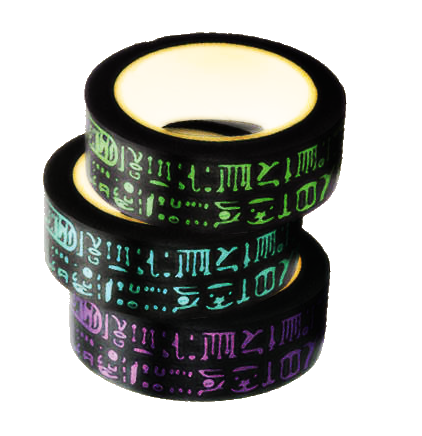
Amulet of Intervention
Wondrous item, rare (requires attunement)
This golden amulet takes the shape of a large disk embedded with a platinum septogram (seven-pointed star), inlaid with a jewel representing each of the seven sins.
Normally only granted to high ranking clergy of the Cathedral of Seven or those who have honorably served the church or the gods themselves - wearing this amulet is a sign of prestige. When worn, it protects you from disaster and wards away death.
Guardian Spirit. If you would be subjected to an effect that would reduce you to 0 hit points, the amulet automatically activates. A multichromatic sphere of light bursts forth, negating the damage dealt and rendering you immune to all damage and all conditions. This sphere lasts for up to 1 round before fading away. Once this ability is activated, the amulet loses its magic until the next dawn.
Animated Cape
Wondrous item, uncommon
This cape is instilled with the barest glimmers of sentience, which it uses at the behest of its wearer (or itself if it has no wearer).
As an action while wearing this cloak, you can have it unattach itself from you and move as if you were still wearing it for 1 minute. The cape appears convincing, but upon succeeding a DC 15 Intelligence (Investigation) check it is revealed to be hollow. You can give it a general command, such as to patrol the length of a corridor or wander aimlessly. It has a speed of 20 feet, and once this property has been used it cannot be used again until next dawn.
Architect's Artifice
Wondrous item, legendary
A large brass cube, about two feet in width and easily over 80 pounds. The intricately designed surface shows windows to the near infinite mechanisms trapped inside.
As an hour long ritual spent with the Architect's Artifice, you can cause it to expand into a structure of your choice, so long as it fits within a thousand foot cube, and is worth no more than 500,000 gp. The structure is permanent and is not magical, as the item immediately becomes mundane as soon as it transforms.
Once used, the Architect's Artifice cannot be used again (as it is now a structure).
Armor of Voidmass
Armor (breastplate), legendary (requires attunement)
A foggy mass of blackened unreality, this dark mote of voidstuff is the size of a human hand - when attuned to, the mass extends over the torso and midsection of the creature. While it takes the simple shape of armor, the sheer aura emanated by it is frightening, and enough to strike the fear of the unknowable in the hearts of those who can see that presence. It holds an innate ability to swallow some attacks against it's wearer whole.
You have a +1 bonus to AC while wearing this armor.
Spellward. Grants the wearer advantage against all spells and magical effects. Additionally, any attempts to scry you while wearing the armor are nulled.
Void Induction. Whenever you are targeted by an attack or effect that would damage you, for the next minute, you gain a bonus to your AC and Constitution saving throws equal to +1, up to a maximum of +5.
Curse. Upon attuning to the armor, the wearer becomes afflicted with 2 forms of indefinite madness until they unattune to the armor. Additionally, while wearing the armor, all Charisma checks made by the wearer are made with Disadvantage.
Artisanal Master Tools
Wondrous item, rare (+1), very rare (+2), legendary (+3)
These sets of Artisan's Tools are crafted of the best materials and by the best craftsmen of their respective trades - equally yielding the best creations themselves.
When you make an ability check using these magical tools, you gain a bonus to the roll. If the tools within a set are separated, they offer no benefit until the set is complete again. If any of the tools in a set are destroyed, all equipment within the set becomes non-magical.
Assassin Firearm
Weapon (any firearm), rare
This firearm is made of blued steel and ebony wood, and handling it seems to produce no sound, not even when it brushes against other objects.
You have a +1 bonus to attack and damage rolls made with this magic weapon. Additionally, attacks made with this magical firearm produce no visible flash or audible noise.
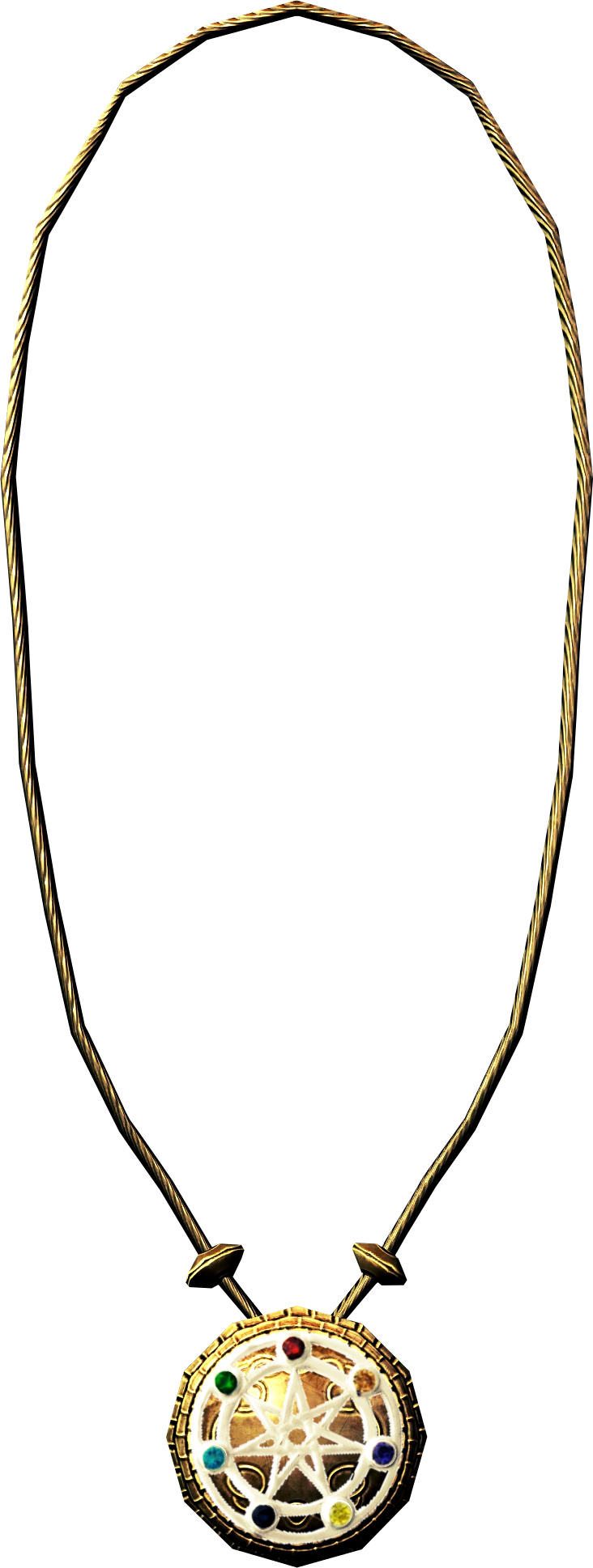
Ancient Notebook
Wondrous Item, uncommon
The Notebooks left behind by long-dead researchers, athletes, scientists, warriors and sages alike, their studies still recorded into the deep insights of their respective fields - complete with hastily drawn renderings, ink spills and coffee stains.
The lifetime of hours spent pouring their knowledge into the pages of this weathered tome have innately imbued it with studious magic. Those who read this notebook feel guided by the author whose blood, sweat and tears went into their life's work.
When you make a skill check pertaining to the field of research inscribed in the notebook, you can spend 1 minute consulting the pages. You gain a bonus to the skill check equal to 1d4, representing how much you discover about the subject at hand.
When finding an ancient notebook, consult the following table to determine what field of research it's pages contain:
Ancient Notebook
| d20 | Field | Skill |
|---|---|---|
| 1 | Athleticist | Athletics |
| 2 | Gymnast | Acrobatics |
| 3 | Contortionist | Sleight of Hand |
| 4 | Escapologist | Stealth |
| 5 | Arcanist | Arcana |
| 6 | Historian | History |
| 7 | Detective | Investigation |
| 8 | *Engineer | *Mechanics |
| 9 | Botanist | Nature |
| 10 | Theologian | Religion |
| 11 | Zoologist | Animal Handling |
| 12 | Psychologist | Insight |
| 13 | Physician | Medicine |
| 14 | Optician | Perception |
| 15 | Survivalist | Survival |
| 16 | Illusionist | Deception |
| 17 | Coercionist | Intimidation |
| 18 | Dramacist | Performance |
| 19 | Rhetoricalist | Persuasion |
| 20 | (Reroll on this table) |
*Mechanics Skill
The Mechanics skill is a newfound skill inherent to the world of Pryxis which delves explicitly into the inner workings of artificial creations, construction and inventions - ranging everywhere from stonework to clockwork, construction to circuitry, and so on.
Artificers are the most well known class to have proficiency in such a skill.
If you do not utilize the Mechanics skill in your setting, ignore the skill listing on the table and treat a roll of 19-20 as a reroll.
More information on the Mechanics skill can be found in Pryxis's House Rules
Bandolier of Blades
Wondrous item, rare
This hard leather bandolier is lined with woolen cord. Its pouch glows with a faint yellow light, and has slots for four daggers.
A nonmagical dagger placed in this bandolier is infused with magic, and when it is drawn from the bandolier it acts as a +1 dagger for 1 minute. If the dagger is thrown during this duration, it automatically reappears within the bandolier as long as it is on the same plane as the thrower.
You can draw a dagger from the bandolier as part of the action used to attack with it.
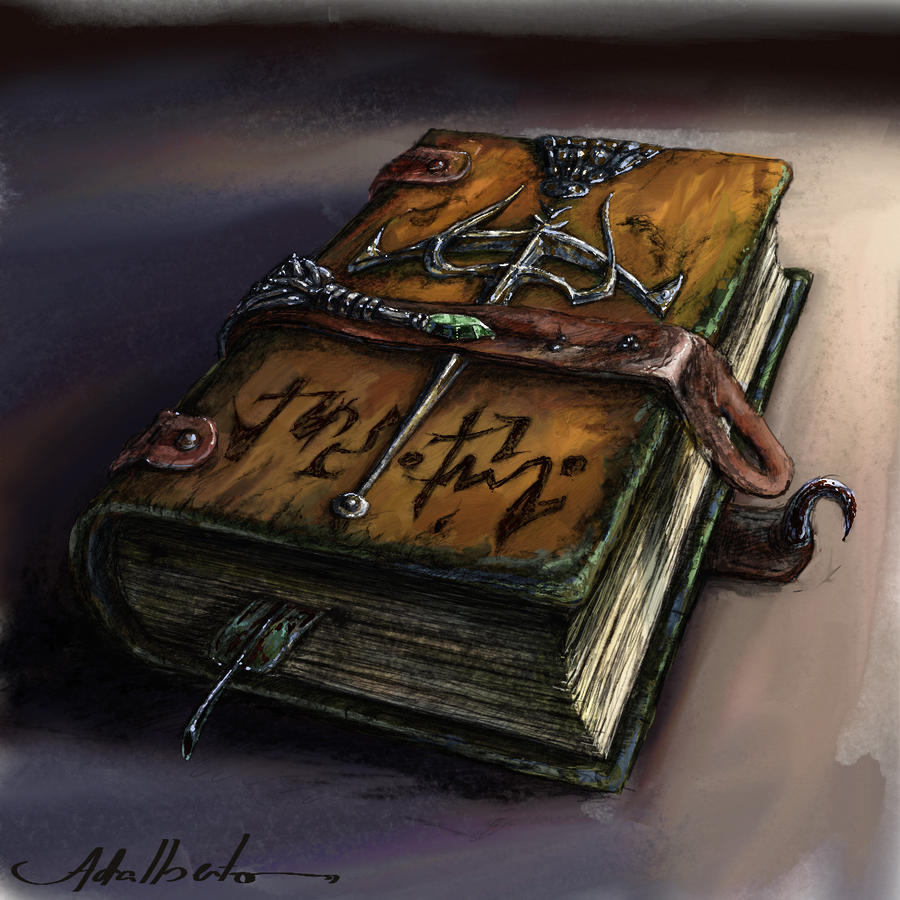


Black Rose Blade
Weapon (rapier), legendary (requires attunement)
Believed to have been fashioned in the likeness of a dark demigoddess's main weapon - these black, florally designed blades are renowned for heinous and dark acts.
You gain a +2 bonus to attack and damage rolls made with this magic weapon.
Shadow Step. When wielding this blade in dim light or darkness, as a bonus action you can teleport up to 60 feet to an unoccupied space you can see that is also in dim light or darkness. You then have advantage on the first melee attack you make before the end of your turn.
Hidden Strike. While attuned to this weapon, you gain the sneak attack ability of the rogue - Once per turn, you can deal an extra 2d6 damage to one creature you hit with an attack if you have advantage on the attack roll. If you are a rogue, your sneak attack deals an additional 2d6 damage instead.
Blessing of Foresight
Weapon (any ranged weapon), very rare (requires attunement)
This ranged weapon is coated in filigree depictions of eyes along the body, with two glowing gemstone eyes on the handle.
You gain a +2 bonus to attack and damage rolls made with this magic weapon.
Sixth Sense. You can use a bonus action to speak the weapon's command word and for 1 hour, you can't be surprised and have advantage on attack rolls, ability checks and saving throws. Once you use this feature, you can't use it again until you finish a long rest.
Bone-Breaker's Bracers
Wondrous item, rare (requires attunement)
These crude leather and hide bracers are embedded with various bone fragments and cracked teeth.
While you wear these bracers, your unarmed strikes have a +1 bonus to their attack and damage rolls and deal a d4 in damage (or have their damage dice increased by one size, up to a maximum of a d12).
Additionally, as an action you may clash the bracers together to cast the shatter spell (DC 15). This property of the bracers can't be used again until the next dawn.
Bone Blade
Weapon (any dagger, shortsword, or rapier), rare
These serrated weapons are fashioned from the bones of humanoid beings - and carry a segment of their dying breath.
Attack and damage rolls made with this weapon count as magical for the purposes of overcoming resistance and immunity.
When attacking with this weapon, you deal an additional weapon damage die of piercing damage when you hit with it.
Additionally, when you hit a creature with an attack, you can choose for it to be affected by the contagion spell (Save DC 15). The weapon cannot be used in this way again until the next dawn.
Bow of Striking
Weapon (any bow), rare
A bow decorated with carven runes, strung with a metallic string, and fitted with a set of reinforced limbs.
You gain a +1 bonus to attack and damage rolls made with this magic weapon.
Arrows fired from this bow strike with far more force than they should. On a successful hit, the target is knocked backwards if they are Medium or smaller. Creatures that are Small or Medium will be knocked backwards 10 feet. Creatures that are Tiny or smaller will be knocked backwards 20 feet. If the target hits a solid obstacle, they stop and take 1d6 bludgeoning damage. If they are driven into another creature, both creatures will take 1d6 bludgeoning damage.
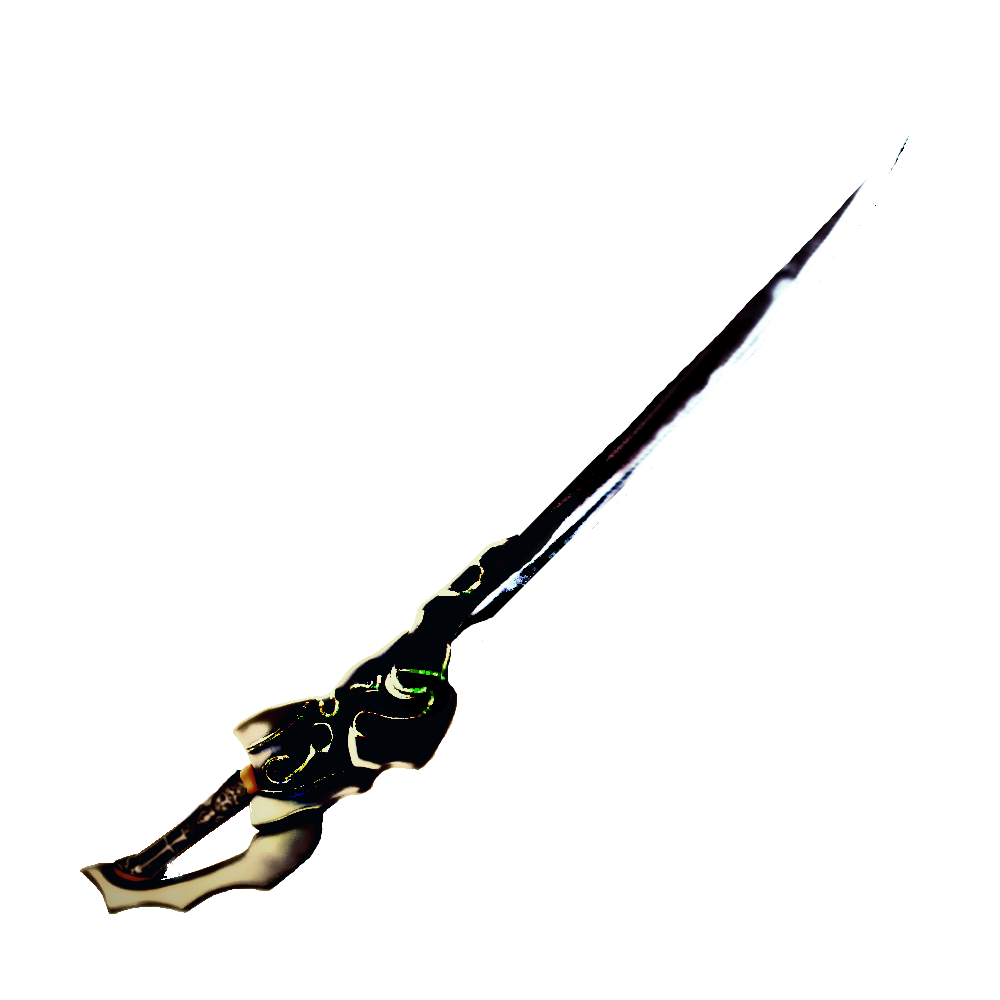
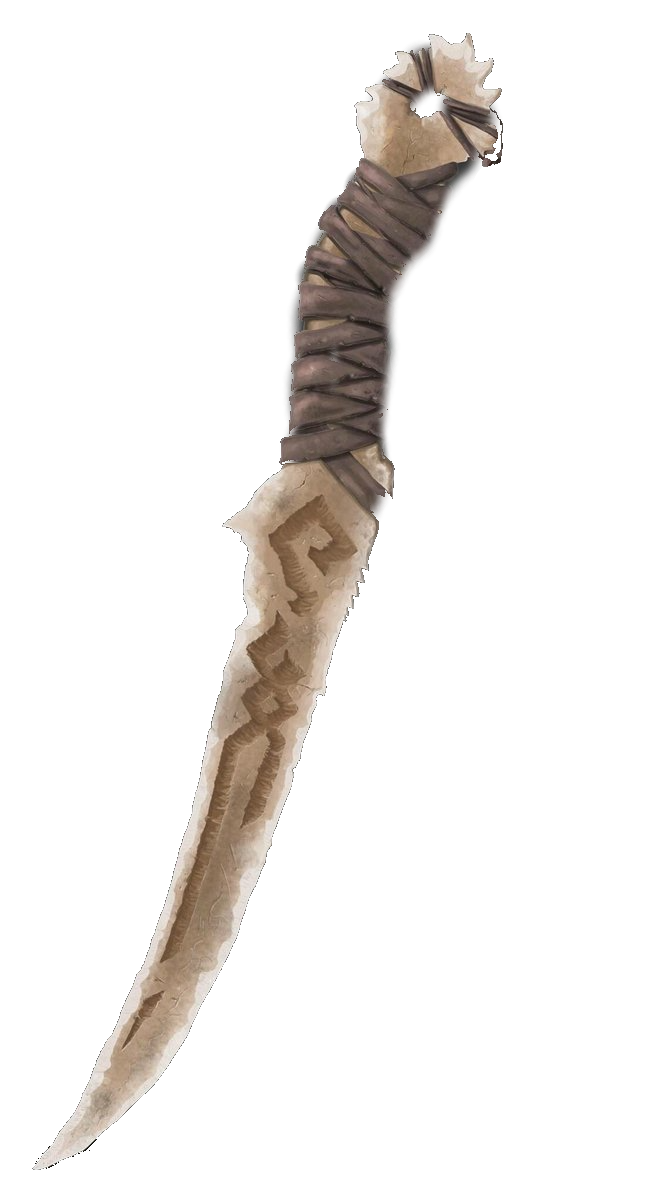
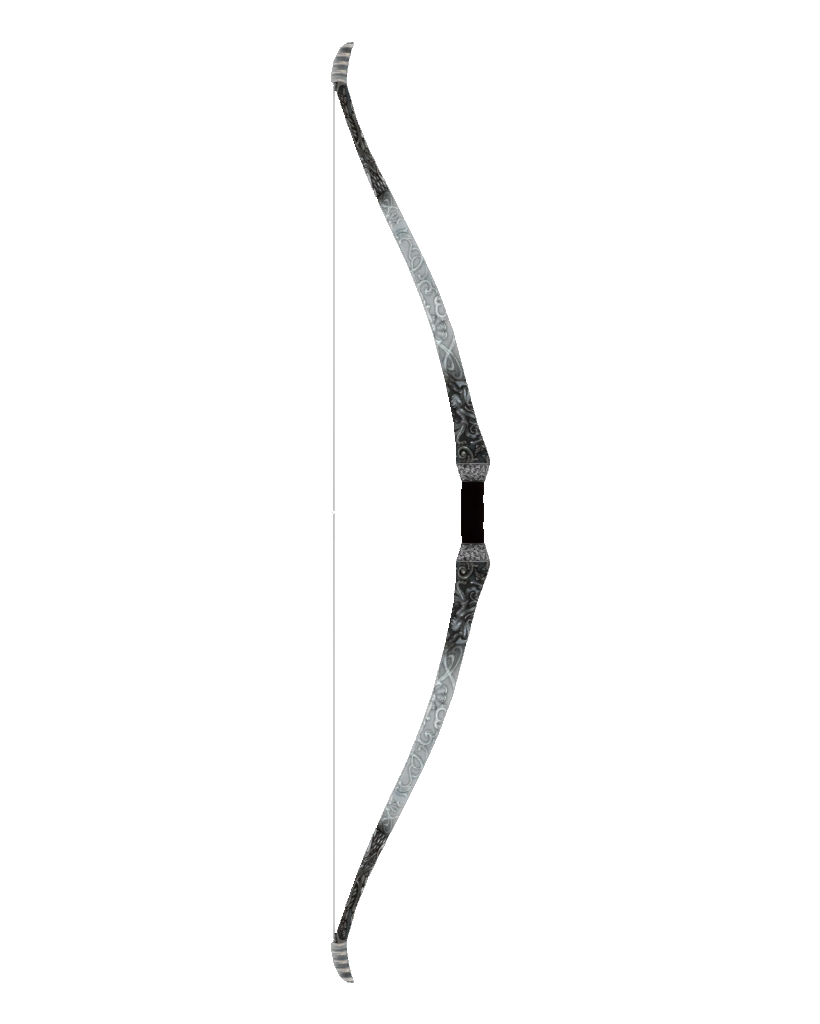
Brewer's Buckler
Armor (shield - buckler), uncommon (requires attunement)
While holding this buckler you gain a +1 bonus to AC.
While not being wielded, as an action you can materialize a fully functional tea set upon the face of the shield. Once per day - when you brew tea using this tea set - you can use an action to give a special property from those listed below:
Energizing. Any creature who drinks this tea has their exhaustion level reduced by one.
Cleansing. If a creature who drinks this tea is suffering the effects of the poisoned condition, they are cured of that condition. If that condition would persist through a long rest, it is instead suppressed for the next 24 hours.
Invigorating. If a creature who drinks this tea has their maximum hit points reduced, that reduction is removed. If that reduction would persist through a long rest, it is instead suppressed for 24 hours.
Chess Board of the Dueling Fates
Wondrous item, mythical
Stories say games played upon this chess set directly mirror actions taken in the real world - with each piece representing an individual, creature, or force.
This chess set is fashioned with a checkered obsidian and ivory field, outfitted with extravagantly crafted Black and White Diamond figures. The outer edges are outlined with blackened platinum filigree which flows like water. The board and pieces can not be separated more than 1 foot from one another. The chess set is indestructible.
When a game is engaged, the board levitates 1 foot off the ground and the chess pieces move on their own with mental commands. Additionally, whenever creatures begin a game, the individual players may choose what creatures their pieces resemble.
Duel of Fates. As an action, you may set this chess board across from an enemy. The enemy must succeed on three consecutive DC 20 saving throws: one Wisdom, one Intelligence, and one Constitution. If they fail even one of the saving throws (or willingly submit) they are forced to engage in a game of chess with you.
Once the game commences, the user and the target fade into an astral pocket dimension. While under this effect, the creatures cannot be interacted with or harmed in any way - but the game remains visible via the chessboard (which becomes ethereal and uninteractable). The affected creatures are unable to do anything but play the game.
The players must begin making contested Intelligence rolls every round starting on the user's next turn.
Once a creature has won three Intelligence contests, they win the game. When a winner is declared, both creatures reappear and the loser instantly takes 3d100 psychic damage - which ignores resistances and immunities. If a creature is killed with this damage, they cannot be resurrected by anything short of a wish spell.


Chopper of Hewing
Weapon (any axe), rare
These axes are magically stained with the blood of dozens of living creatures - so much so, that when water is poured on the axe, fresh blood still drips from the blade, no matter how old.
You gain a +1 bonus to attack and damage rolls made with this magic weapon.
Upon reducing a creature to 0 hitpoints, you are momentarily filled with supernatural bloodlust. As a reaction, you may make another attack against a creature within 5 feet of the fallen creature.
Cingulum of Freedom
Wondrous item, mythical (requires attunement)
These belt like battle-skirts are utilized by the highest members of the church of Melchar: the Manumit Warriors. The belt is affixed with chains of various sizes and materials. Wearing this belt infuses the wearer with the ceaseless power to break their limitations.
You gain a +2 bonus to AC while wearing this belt.
While attuned and wearing the belt, you have advantage on initiative rolls.
When subjected to an effect that would inflict the grappled, stunned, paralyzed, petrified, or restrained conditions, you have advantage and a +5 bonus on all rolls to escape or negate the effect.
Clock of Synchrony
Wondrous item, uncommon
This brass pocket watch has three stoppers along its top edge. It keeps good time when wound, and its reverse side is engraved with an image of two chain links linked together.
The item is designed to trigger the movement of up to two devices at the same time. The two devices must have mechanical controls and must be within 100 feet of each other. By pressing either the left or the right stopper while pressing a button, pulling a lever, or otherwise activating a mechanical control, the watch stores that movement and can magically re-trigger it. The watch only stores two such movements at a time, one for the left stopper, and one for the right. Pressing the center stopper while within 100 feet of at least one of the devices remotely triggers both the stored movements at the same time.
Pressing all three stoppers together causes the watch to reset itself.
Coin of Desire
Wondrous item, (rarity varies)
An incredibly shiny and attractive fake coin, subtly carved with symbols of greed and avarice along it's edge.
As an action, you can throw or place the coin on the ground and speak a command word. The coin begins to emanate an enchanting aura which entrances those who see it. Any creature (besides you) within a 30 foot radius of that coin that can see it must make a Charisma saving throw. Upon a success, they recognize the coin in a superb fake, on a failure they become charmed with the urge to own the coin and keep it on their person for 1 minute. Any attempts to pick up the coin by an affected creature requires a DC 20 Strength check.
| Coin | Save DC | Rarity |
|---|---|---|
| Copper | 12 | Common |
| Silver | 14 | Uncommon |
| Electrum | 16 | Rare |
| Gold | 18 | Very Rare |
| Platinum | 20 | Legendary |
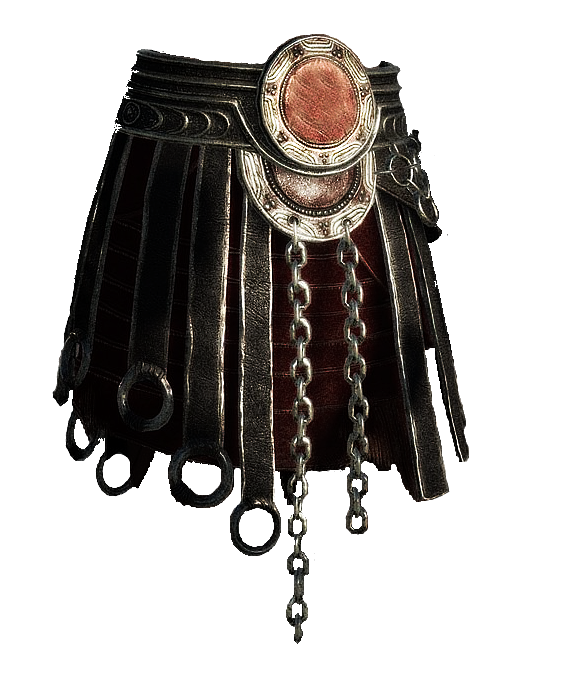
Consternator
Rod, very rare (requires attunement)
This rough, wrought iron rod is spiked at one end and scarred by several gouges across its surface.
As an action, you can plant the rod into a surface, creating an antimagic field. The field is disabled if the rod is knocked over with a successful DC 10 strength check, or if the creature that activated it uses any magical item or spell (no matter how far away they are). Otherwise, the field lasts for 1 minute.
After being activated, the rod can't be activated again until it has been dealt any amount of slashing damage after the next dawn. After taking 20 points of slashing damage, the rod ceases to function and disintegrates.
Cowl of the Circle
Wondrous item, mythical (requires attunement)
These specially crafted magical robes are normally only granted to the most trusted members of Oghma's church within the cowled circle. The sage-green fabric of the robe seems to shift in color and form, and the golden embroidery itself moves throughout the robe to create tantalizing patterns and shapes.
As an action, the cowl of the hood can be pulled up over the head. The wearer immediately gains the following benefits:
- You come under the effects of the pass without trace spell, only affecting you.
- When the hood is up, the robe shifts in composition and the face becomes a blurry conglomeration of shapes and colors, your voice additionally becomes masked as a deep unisex voice. Anyone trying to identify you has disadvantage and a -10 penalty on checks to identify you.
- All insight checks made to ascertain your intentions automatically fail, and spells or effects that reveal if you are lying show you are telling the truth.



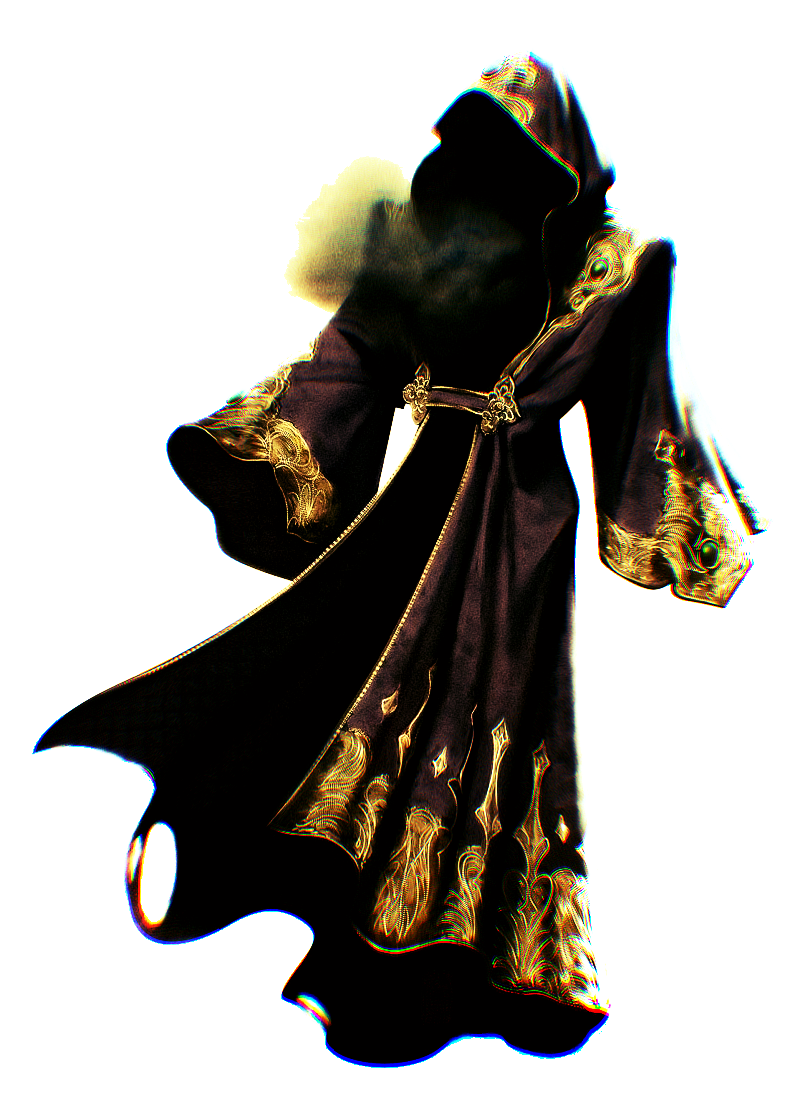
Daern's Instant Workshop
Wondrous item, uncommon
You can use an action to place this 1-inch stone cube on the ground and speak its command word. The cube rapidly grows into a workshop that remains until you use an action to speak the command word that dismisses it, which works only if the workshop is empty.
The workshop is a square trading post (complete with a canvas awning over the door), 15 feet on a side and 20 feet high. Its interior is divided into two floors, with a ladder running along one wall to connect them. When activated, the workshop has a small windowed door on the side facing you, and two glass windows on each floor perpendicular to the door.
The workshop comes equipped with standard, nonmagical items and objects.
- The first floor holds the following:
- Forge (which burns magically for 12 hours - after which it cannot be re-lit until the next dawn, unless fueled naturally)
- Anvil
- Stone worktable
- Wooden worktable
- Water barrel (full of freshwater, which cannot leave the barrel - the water refreshes every dawn)
- Grinding wheel.
- The second floor holds the following:
- A wooden chest
- Empty bookshelf
- Small desk and wooden chair
- Small round table with 4 stools
Items stored in the workshop remain there indefinitely or until you or someone else retrieves them - and remain there even when the workshop is dismissed. Other than any items you store or bring into the workshop, no other items can leave the workshop - if they do, they instantly teleport directly back into the workshop.
Each creature in the area where the workshop appears must make a DC 13 Dexterity saving throw, taking 5d10 bludgeoning damage on a failed save, or half as much damage on a successful one. In either case, the creature is pushed to an unoccupied space outside but next to the workshop. Objects in the area that aren't being worn or carried take this damage and are pushed automatically.
The workshop is made of stone and wood. The roof, the door, and the walls each have 50 hit points and resistance to damage from nonmagical weapons. If the workshop takes damage, it must be repaired manually or magically as any normal structure.
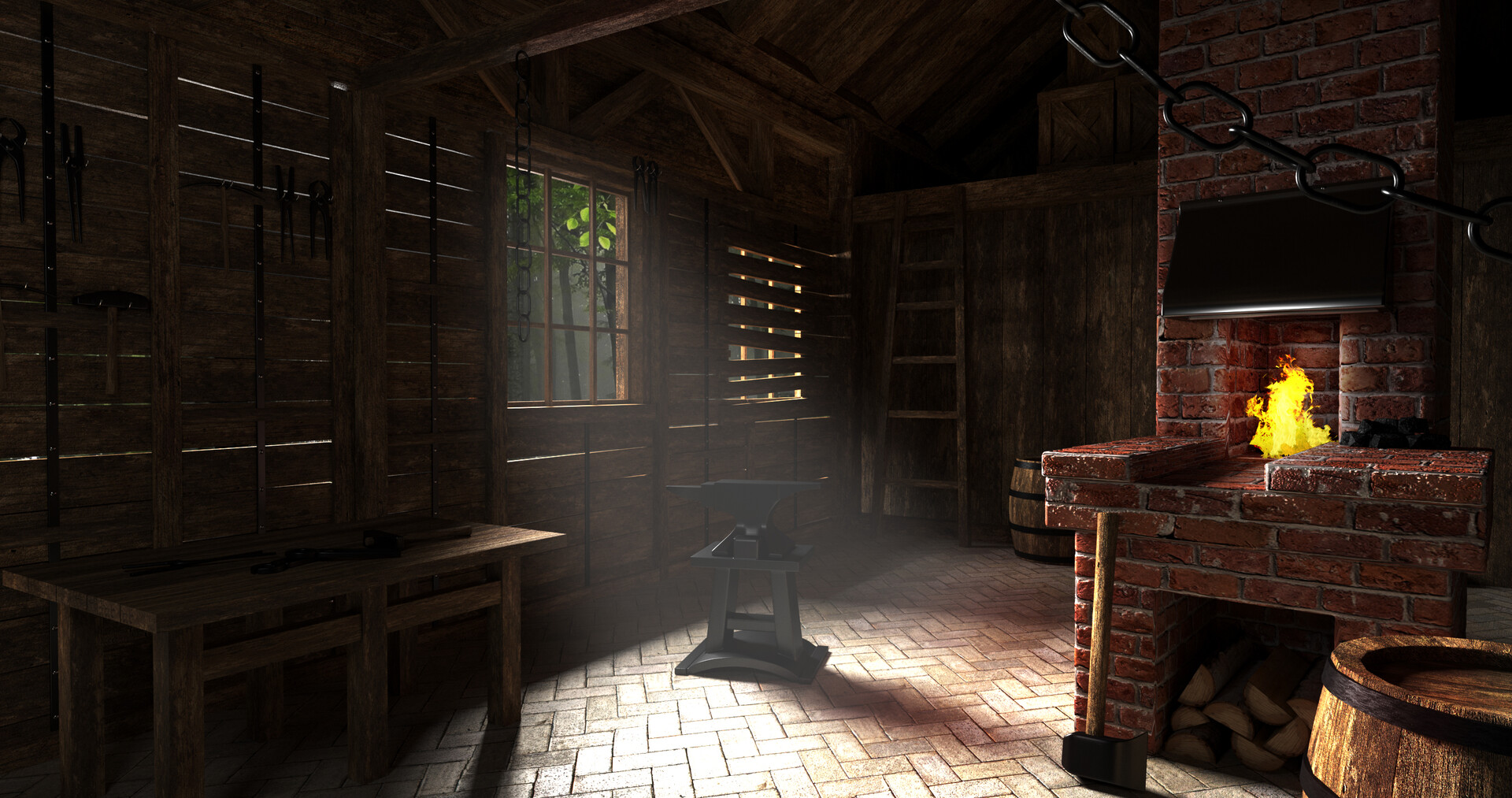

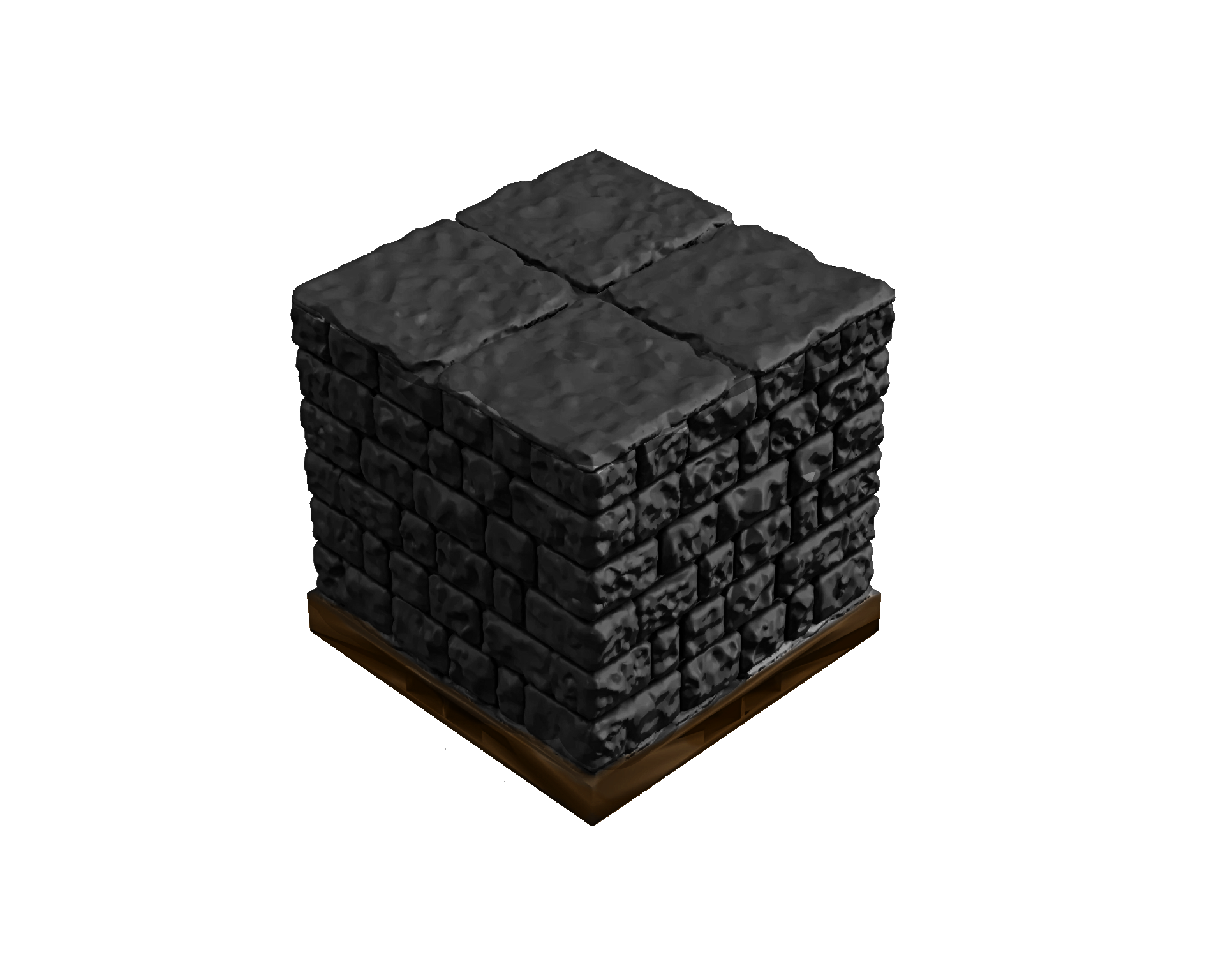
Deadeye's Shot
Weapon (any firearm), rare
This firearm is crafted with mithril components offset by steeled counterweights, and affixed with a scope consisting of several magical crystalline lenses. Runes are crudely carved along the stock and body.
You gain a +2 bonus to attack and damage rolls with this magic weapon.
The long range of this firearm is doubled.
Dead Accuracy. When you hit with an attack from this weapon that is not a critical hit, you may turn that hit into a critical hit. When you do so, you can roll one additional weapon damage die when determining the extra damage for a critical hit. Once you use this ability, you may not do so again until the next dawn.
Devil's Tongue
Weapon (whip), rare (requires attunement)
A multi-tipped whip fashioned of woven infernal skin - usually imps or lemures - and tipped with various claws and fangs from monstrous beasts. These whips are often found in the use of various devils and demons, and keenly used by succubi or incubi.
You gain a +1 bonus to attack and damage rolls with this magic weapon.
This whip has 4 charges, and regains all charges at dawn.
Upon hitting a creature with this weapon, you may expend a charge to inflict overwhelming fear in the target as per the fear spell (Wisdom save DC 15).
Diadem of the Hellknight
Wondrous item, mythical (requires attunement)
These crown-like diadems are usually only worn by the highest echelon of the church of zariel - within the order of the nether knights. These silver circlets are adorned with the severed horn fragments of a pact devil and embedded within the forehead of the circlet lies a flawless blood diamond.
While wearing this crown, you gain a +1 bonus to your attack and damage rolls made with weapons - which stacks on top of previously existing bonuses.
As a minute long ritual, you may summon forth a Pact Devil which appears in an unoccupied space that you can see within 10 feet. The Pact Devil disappears when it drops to 0 hit points or when 1 hour has passed.
The Pact Devil cannot grant you pacts - but may exchange goods or services as if it were a merchant or mercenary, respectively.
The Pact Devil is friendly to you and your companions for the duration. Roll initiative for the Pact Devil, which has its own turns. It obeys any verbal commands that you issue to it (no action required by you), as long as they don’t violate its alignment (or if paid to do so). If you don’t issue any commands to the pact devil, it defends itself from hostile creatures but otherwise takes no actions. The DM has the pact devil’s statistics.
Once summoned, roll a D20: on a 15-20 the pact devil can be summoned again after the next dusk. You may repeat this roll once every 24 hours.
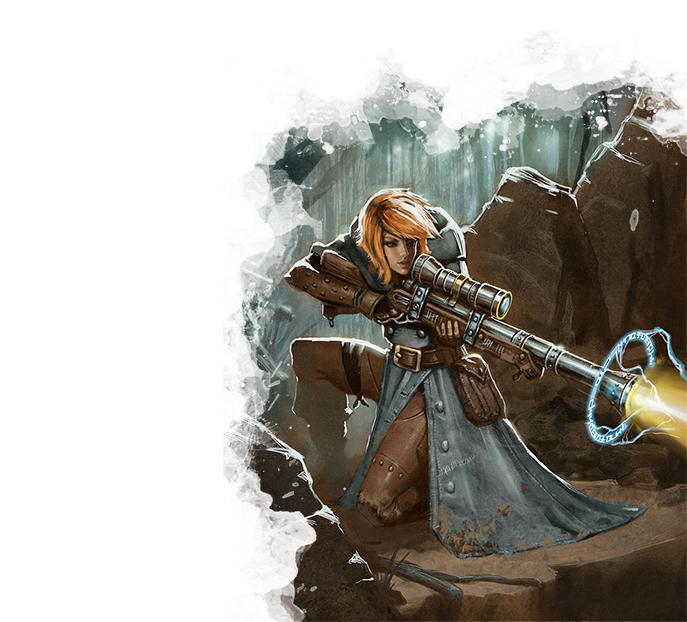

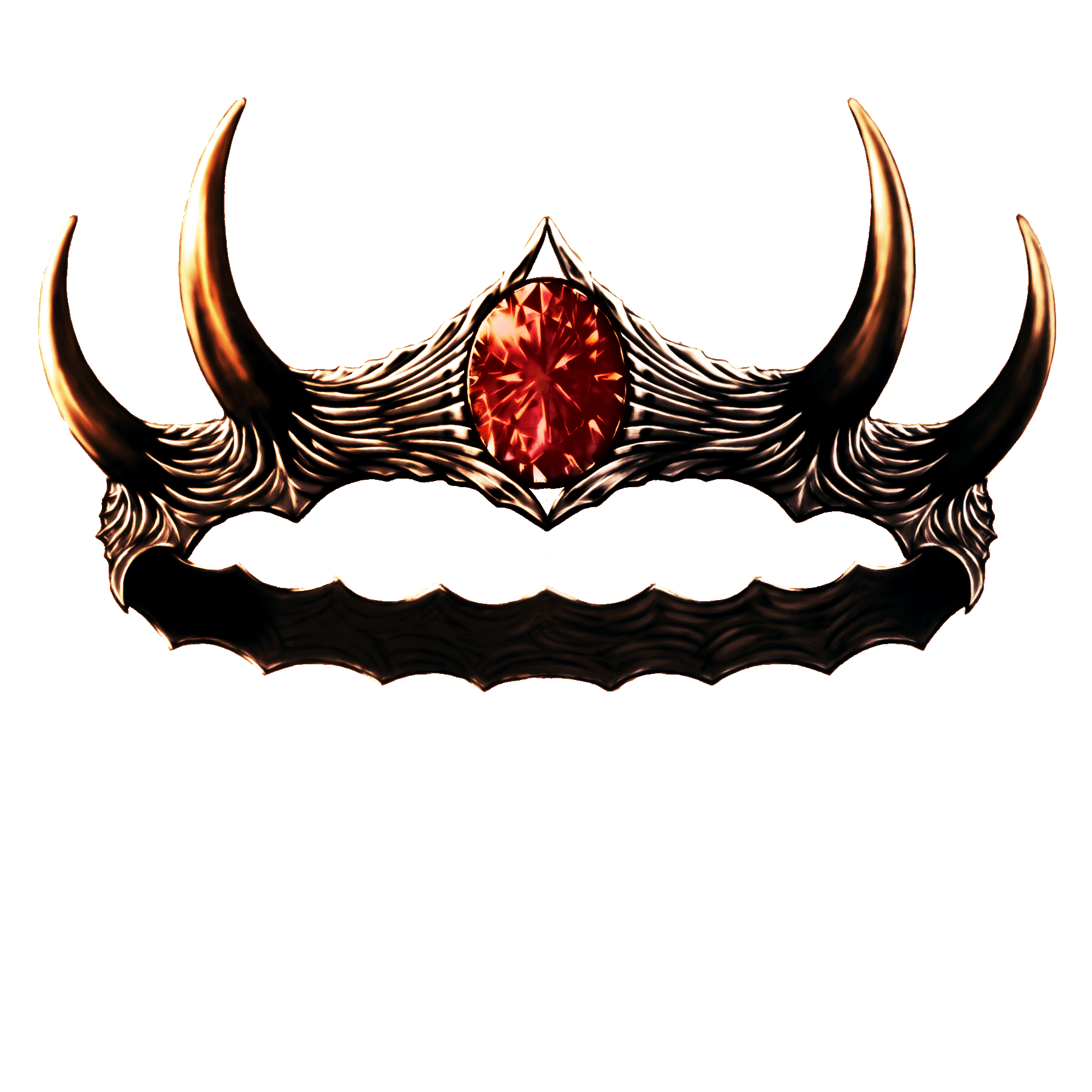
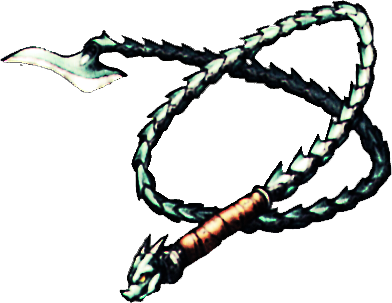
Dragonmaster's Bladewhip
Weapon (whip), very rare (requires attunement)
A long cord of woven steel encased by segmented silver blades, and tipped with a razor sharp silver tip in the shape of a dragon's claw.
These specialized whips became widespread after the end of the Dragon War in the control and exiling of dragonlike creatures - a common sight amongst Dragon Handlers (particularly those who raise or train Wyverns, Drakes, and similar non-sentient Dragons) and Dragon Slayers alike.
You gain a +1 bonus to attack and damage rolls with this magic weapon.
When you hit a dragon or dragon-like creature with this weapon, the dragon takes an extra 3d6 damage.
Additionally, while attuned to this magic weapon, you gain immunity to the Frightful Presence ability of dragons and dragon-like creatures.
Drakeleech
Wondrous Item, rare
Granted to adventurers soon to be fighting dragons, these stones are essential to depowering dragons. Generally unassuming, the Drakeleech is a small coiled white stone, roughly the size of an average human's palm. Carved into the sides is a depiction of the ouroboros, with incredibly fine detail.
As an action, you may crush the Drakeleech. For 1 minute, while a dragon or dragonlike creature is within 60 feet of you they suffer the following penalties:
- Every roll they make has a -2 penalty.
- Their movement speed decreases by 10 feet.
Echo Scalpel
Wand, mythical (requires attunement)
These sinister wands are held within the hands of the darkest corners of the Church of Hex: the mad-minds. Etched from pitch-black steel and studded with corrupted chlorophyte gemstones, these wands carry immense power over thought and memory - used by the Mad-Minds to peruse and abuse the minds of others.
Thought Script. While attuned to this wand, you can cast the encode thoughts cantrip.
Spells. This wand has 10 charges. While holding the wand, you can use an action to expend some of its charges to cast one of the following spells (spell attack +12 to hit, Save DC 20): detect thoughts (2 charges), mind spike (2 charges) or modify memory (5 charges)
Maddening Blade (1/day). You may use the bladed tip of the wand as a dagger. While attuned, you are proficient with this dagger.
As an attack action, you may attempt to plunge the tip of the wand into the head of a target creature (or a version thereof, where applicable) to cast the Feeblemind spell upon the target. On a hit, the creature has disadvantage on the saving throw to resist Feeblemind.
Regardless of whether they fail the saving throw for Feeblemind, the target must beat an additional DC 25 Wisdom saving throw - gaining a random indefinite madness until either greater restoration or wish is cast upon them.

Enchanted Butters
Wondrous item, rare
Luscious butters handmade from varying beasts and distilled with magical properties, these exotic butters are keenly used to develop helpful remedies and delicious delectables. Often used by higher class bakers and chefs to produce truly astounding culinary confections. Other truly desperate or mad individuals use the butters for their benefits "on-the-go".
Each stick of butter comes wrapped in specially treated waxen leaves which ensures the butter remains unspoilt and unsullied.
A single stick of butter holds three doses - after which only leaves remain. You may use a dose of butter in the following ways:
- Over the course of 10 minutes, you may prepare the butter in a meal of one ration to gain the associated Meal benefit when you consume the affected ration.
- As an action, you may consume one-third of the stick to gain the Slice benefit of the butter.
Some of the most common varieties of Enchanted Butters (as well as their benefits) are listed as follows:
Auroch Butter
These yellow-white sticks of butter are haughty and strong-tasting, made from the milk of the mighty auroch. When eaten, a sense of strength can be felt.
- Meal - You gain a damage threshold of 5 for 1 hour.
- Slice - You gain resistance to bludgeoning, piercing, or slashing damage (your choice) for 1 minute.
Garlic & Ellond Butter
A favorite of those seeking a spicier touch of life. made with garlic powder and the incredibly flammable ellond shrub, these sticks of butter really pack a punch.
- Meal - You gain a +2 magical bonus to ALL attack and damage rolls for 1 hour.
- Slice - You gain a +1 magical bonus to all nonmagical attack and damage rolls for 1 minute.
Lavender Sugar Butter
For the connoisseurs and sweet-tooths, this combination of enchanted lavender offset by finely ground sugar cane can make any occasion a delectable, comfortable experience.
- Meal - You gain immunity to the following conditions for 1 hour: charmed, frightened, or poisoned
- Slice - You gain advantage on effects to negate one of the following conditions for 1 minute: charmed, frightened, or poisoned
Eye of Agamon
Wondrous item, very rare (requires attunement)
This polished ornate pearl eye is inlaid with a sapphire iris and agate pupil which glows ever so softly. Runes cover the iris and pupil.
The eye conveys its benefits to those willing to replace one of their own eyes with it.
The eye has 5 charges and regains 1d4 charges daily at dawn.
While looking only through the eye of agamon the user has devil's sight out to 60 feet, and can cast detect magic at will.
You can expend 1 charge to cast one of the following spells from the eye at base level (Spell save DC 15, +7 to hit with spell attacks): scorching ray, charm person, see invisibility
After expending a charge from the eye, you take 1d10 force damage as the eye burns with arcane energy.
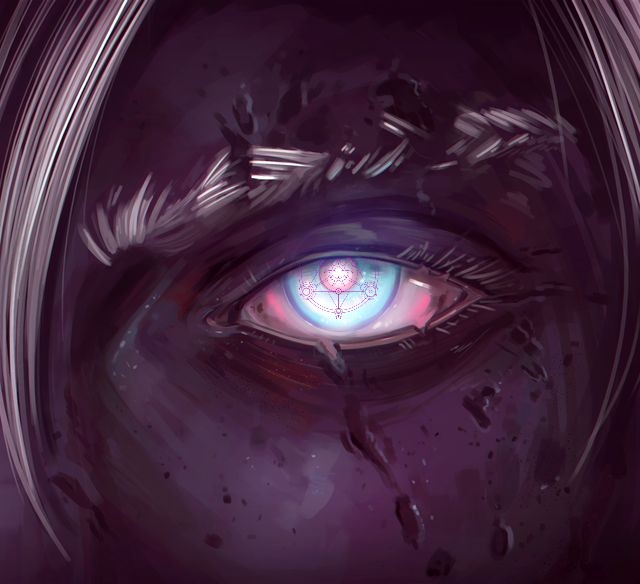


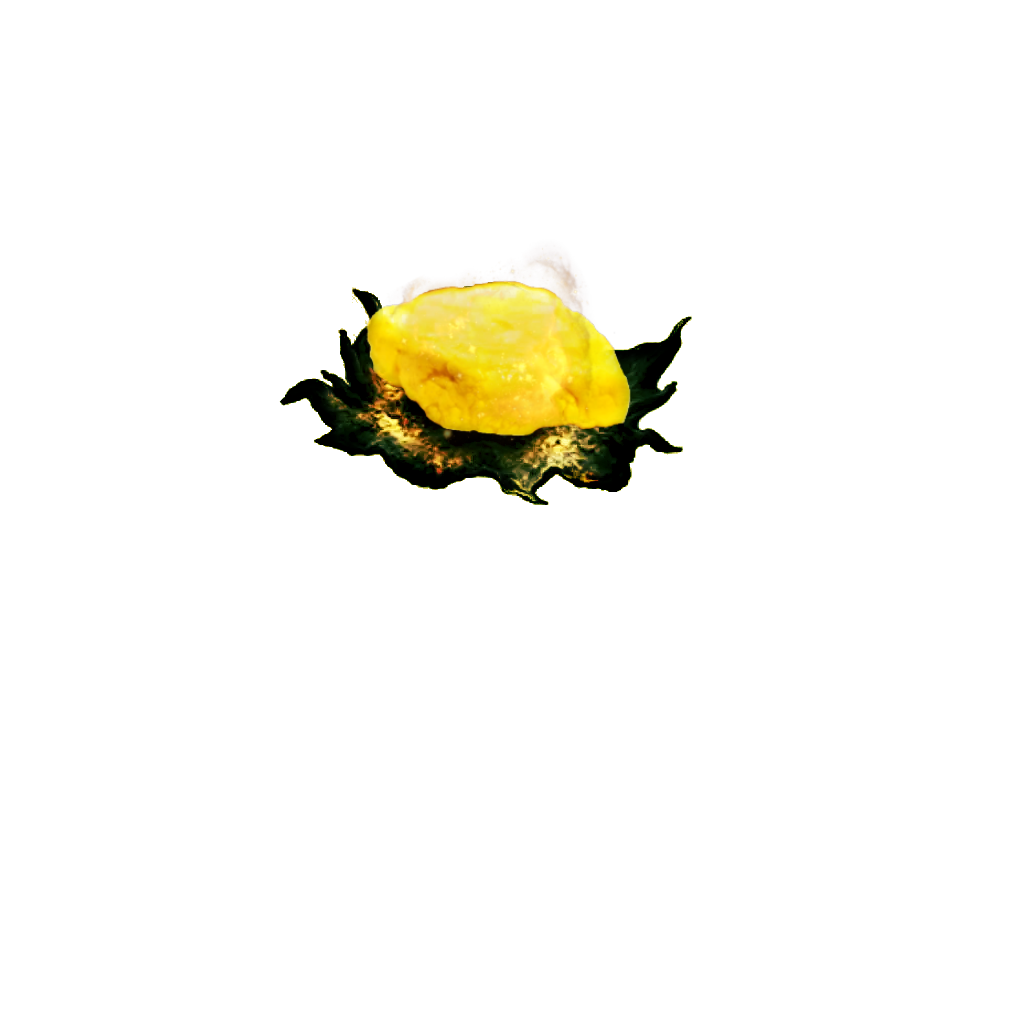
Exponential Weapon
Weapon (any), mythical (requires attunement)
One of the most powerful forms of weaponry to be crafted - the magic wrought into these weapons can only be achieved by the highest masters of crafting and enchanting. So much so that even the Gods are envious of such magic.
Carved upon this weapon are hundreds of incredibly tiny, intricate spirographic formulae and mathematical calculations in the Supernal language - the language of the gods; precursor to all other languages. The runic inscriptions are said to carry a fraction of the true name of reality, resulting in space-time folding within the weapon.
This weapon has the uncanny ability to inflict exponentially more damage than a typical weapon. On a critical hit, the damage equals the weapon’s die damage squared rather than adding an extra damage die.
Exponential Critical
- Example 1: A longsword’s damage equals 1d8 when wielded with one hand. On a critical hit, the weapon damage would equal (1d8)² - (rolling a 7 on the longsword would result in 49 damage).
- Example 2: A greatsword's damage equals 2d6. On a critical hit, the weapon damage would equal (2d6)² - (rolling a 4 and a 6 on the greatsword would result in 100 damage).
Flaming Heart
Weapon (longsword), legendary (requires attunement)
Originally crafted by a shadow monk demoness named "Damara" - who sought to tread the shadows while inflicting the burn of the light. This white-flame blade is a terrifying sight; a triangular adamantium longsword equipped with three razor sharp edges that gleam with a glossy white sheen.
You gain a +3 bonus to attack and damage rolls with this magic weapon.
This magic weapon is indestructible. When hitting a non-indestructible object with this magic weapon, deal damage equal to max critical damage.
Heartfire. While attuned, as a bonus action you may speak the command word to ignite the sword in roiling white flames that sear the darkness away. The sword sheds bright light out to 40 feet, and dim light an additional 40 feet.
If any of this light overlaps with an area of darkness created by a spell of 2nd Level or lower, the spell that created the darkness is dispelled.
While the blade is ignited, you deal an additional 2d6 fire damage. You may speak the command word again to snuff the flames as a bonus action.
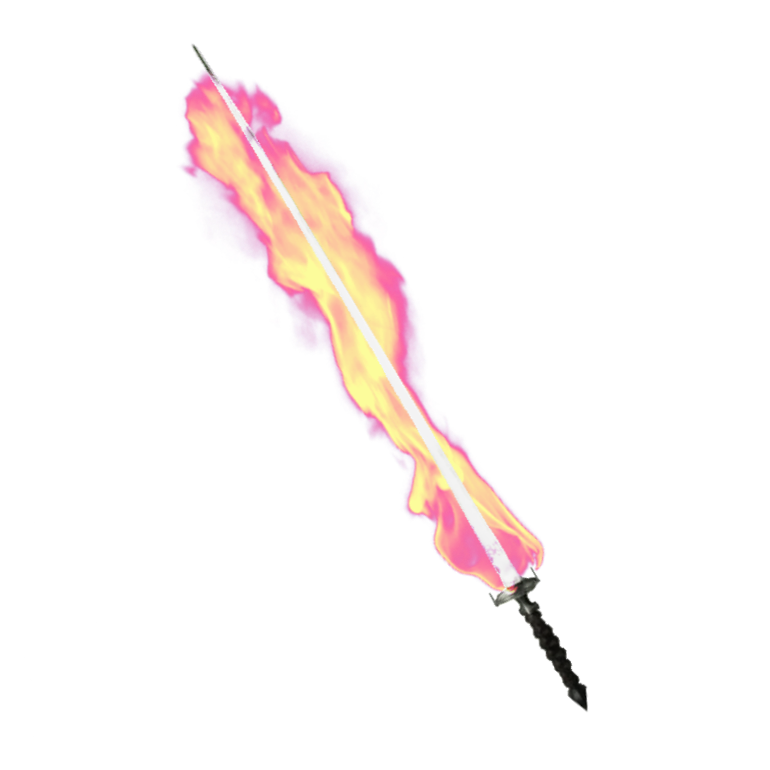
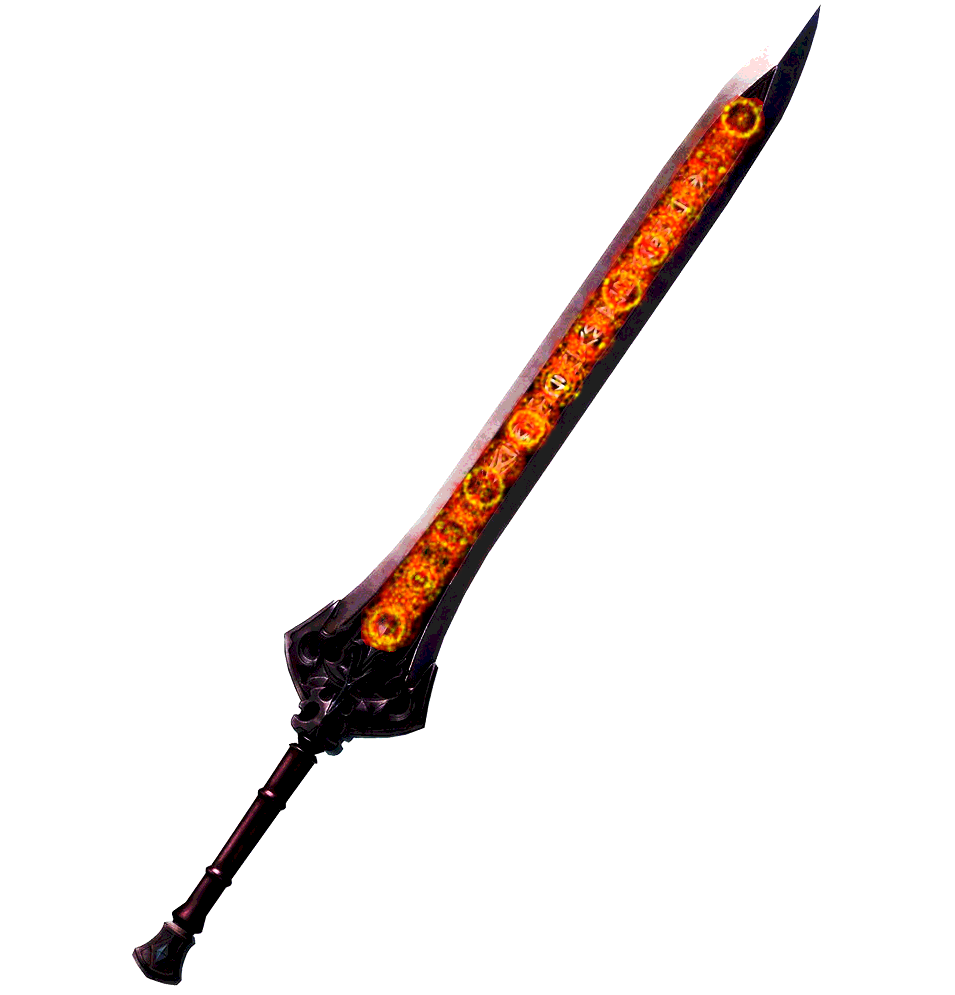
Garment of Protection
Clothes, rare (+1), very rare (+2), or legendary (+3)
These sets of enchanted clothes normally come embroidered with fanciful sewnwork and seem to offer some semblance of protection from attacks. A garment of protection is usually a jerkin, robe, tunic, undertunic, or cloak that comes with a magical enchantment that protects the wearer upon donning the the clothing.
You have a bonus to AC while wearing this magical set of clothes, which is determined by its rarity.
Gauntlet of the Gilded
Wondrous item, legendary
These black silken gloves are heavily embroidered and plated with pure gold, and are embedded with 6 star sapphires - one on each finger and one on the back hand. Only seen in (or rather on) the hands of the Gilded Council of the Merchant's Guild, these gauntlets strike fear and respect into the hearts of those who see them.
You gain a +1 bonus to AC while wearing this gauntlet.
While attuned, you gain the ability to cast the conjure wealth cantrip.
The Gauntlet holds 6 charges, one for each star sapphire. When a charge is used, one of the sapphires dulls to a greyish hue. You regain 1 charge daily at dawn.
You may spend one charge to cast the spell flesh to stone (DC 25), but with the following altered effects:
- The range of the spell is changed to "Touch".
- Their skin begins to transmute into solid gold, rather than stone.


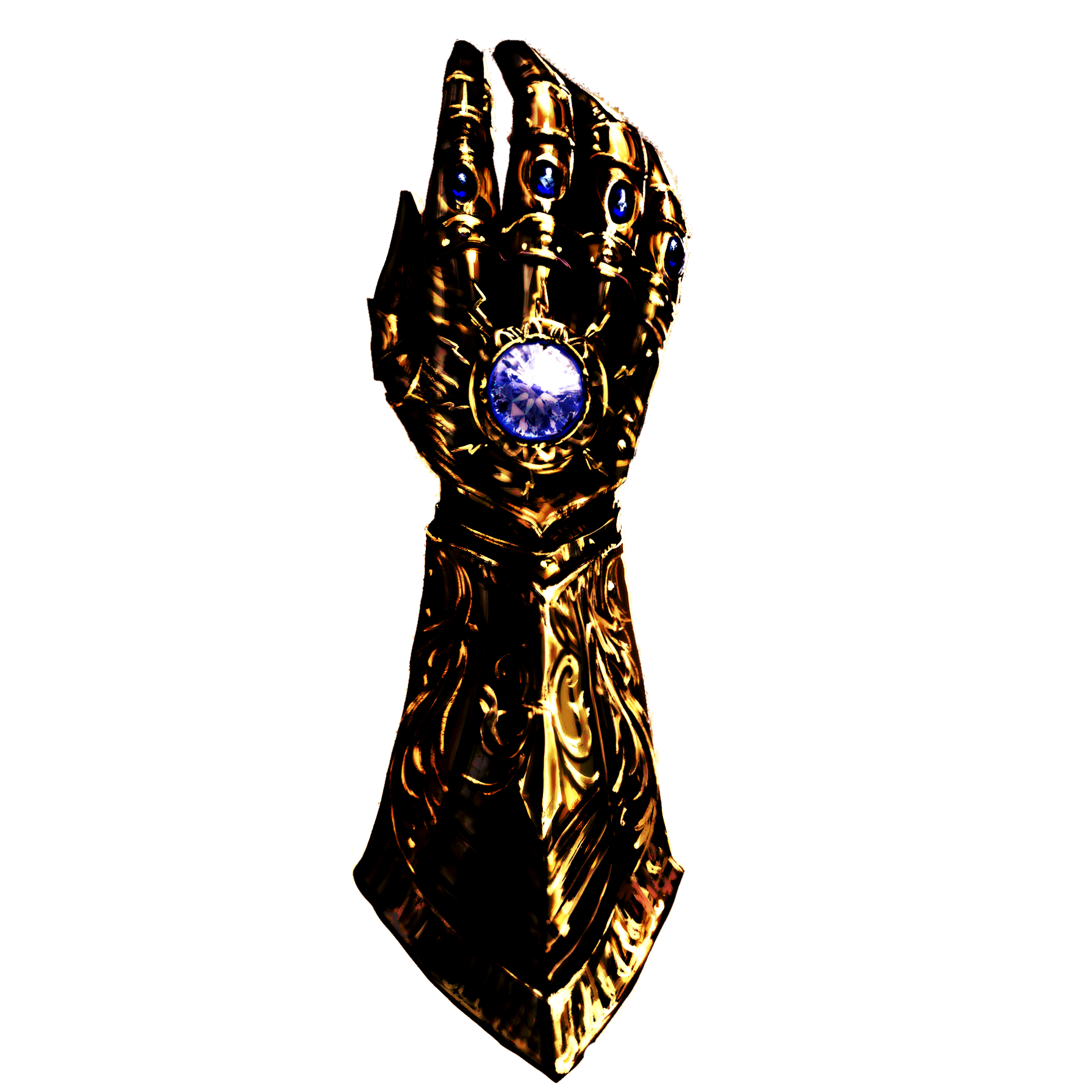
Ghostflame Candle
Wondrous item, uncommon
When you light this candle and speak its command word, the flame turns a shimmering silver. The silver flame sheds bright light out to a 30-foot radius and dim light for an additional 10 feet. When lit, a candle gives off barely audible whispers. Only the holder of the candle can see the light, but anyone within earshot can hear the whispering.
Additionally, the silver flame can be used to light ordinary light sources, such as lanterns and torches. The flame's properties transfer to the new light source.
Grenade of Glue
Wondrous item, uncommon
This fist sized ball is a pale opaque gray and is slightly rubbery to the touch, feeling as if it would bounce when thrown.
As an action, you can throw this orb at a point within 60 feet at which point it splatters a sticky gray substance across all creatures and surfaces within a 20-foot-radius sphere of the impact point and quickly hardens.
Creatures that are within this radius at time of impact must make a DC 15 Dexterity saving throw or have their speed reduced to 0 feet. Once glued in place by the substance, a creature can use an action to make a DC 15 Strength (athletics) check to escape.
After the impact, the area is not sticky enough to restrain creatures, but it is still considered difficult terrain until the glue hardens completely in 1 hour. After hardening, a DC 20 Strength (athletics) check is required to move or dislodge any cemented creatures or objects. If the cemented object would have already required a Strength check to open or move, like a locked door, the hardened glue increases this DC by 5.
Harmony Powder
Wondrous item, uncommon
These magic-infused bags of white powder glow with vague pearlescence. Often times utilized by those who have little access to health potions or healing magics, this powder has the capability to speed up the natural healing processes of the body.
This bag comes with 2d6 pinches of powder.
As a bonus action, you may sprinkle one pinch of dust on a creature to cast the cantrip renewal at it's base level. You may sprinkle additional pinches to upcast the cantrip - up to a maximum of 4 pinches per creature.
Once all pinches are utilized, the bag becomes a nonmagical pouch.
Ioun Stones (Extended)
Wondrous item, rarity varies (requires attunement)
An Ioun stone is named after Ioun, a god of knowledge and prophecy revered on some worlds. Many types of Ioun stone exist, each type a distinct combination of shape and color.
When you use an Action to toss one of these stones into the air, the stone orbits your head at a distance of 1d3 feet and confers a benefit to you. Thereafter, another creature must use an Action to grasp or net the stone to separate it from you, either by making a successful Attack roll against AC 24 or a successful DC 24 Dexterity (Acrobatics) check. You can use an Action to seize and stow the stone, Ending its Effect.
A stone has AC 24, 10 Hit Points, and Resistance to all damage. It is considered to be an object that is being worn while it orbits your head.
Assault (Very Rare). While this pulsating spinel rhomboid orbits your head, you may make an additional attack whenever you take the attack action.
Breath (Rare). While this tiny green spindle orbits your head, you no longer require to breathe.
Greater Protection (Very Rare). You gain a +2 bonus to AC while this deep crimson prism orbits your head.
Longevity (Legendary). While this labradorite chunk orbits your head, you age five times slower.
Power (Legendary). While this pitch-black marble orbits your head, your cantrips are more powerful. When you make a spell attack with a cantrip, you deal additional damage to one of the spell's targets equal to your spellcasting ability modifier on a hit. When a creature succeeds on a saving throw to avoid damage against your cantrips, they instead take half damage but suffer no additional effects.
Swiftness (Rare). While this rough chunk of amber orbits your head, your walking speed is increased by 10 feet.
Wakefulness (Rare). While this star-speckled stone orbits your head, you do not require sleep and you cannot be forced to sleep by magic.
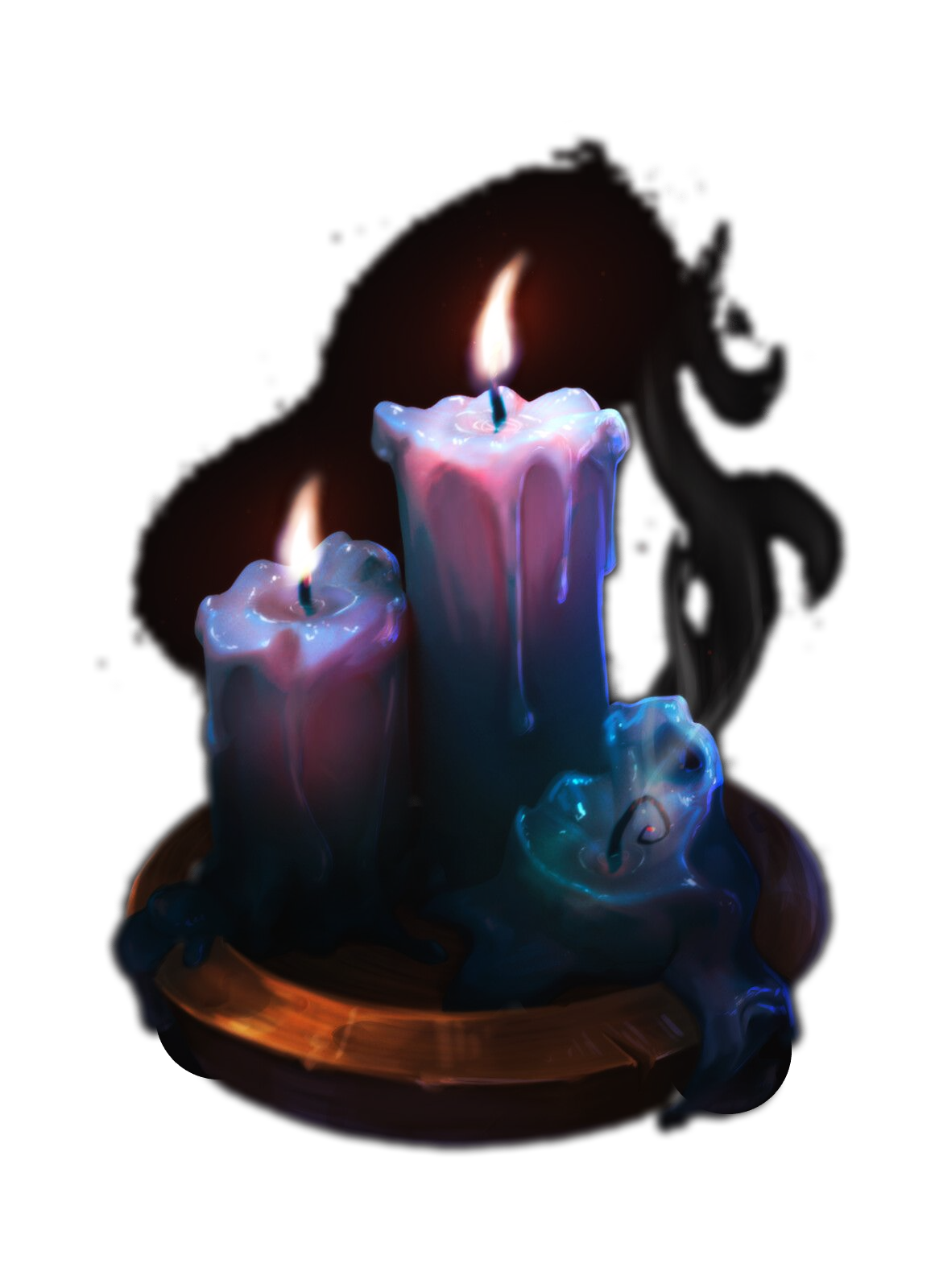
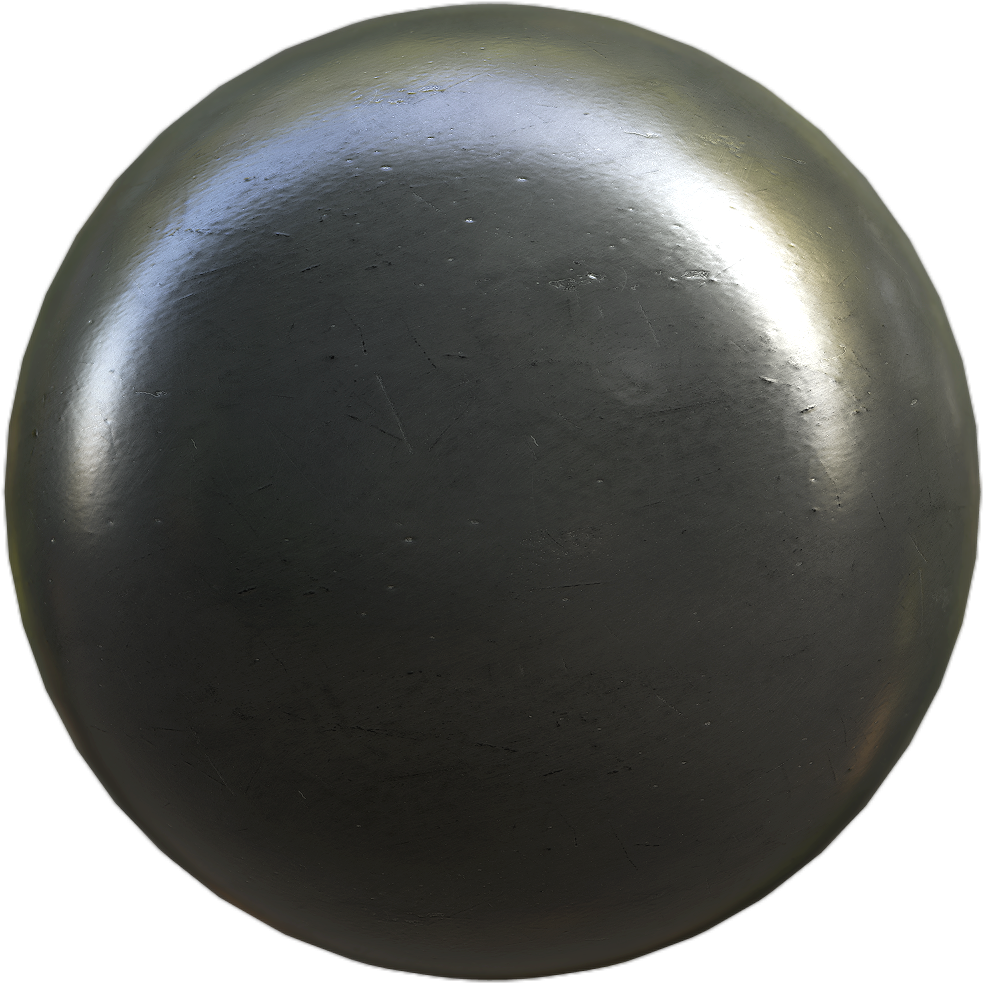
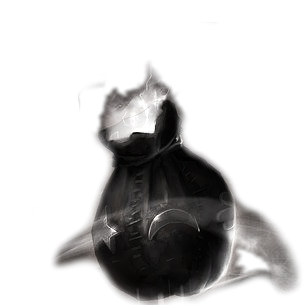
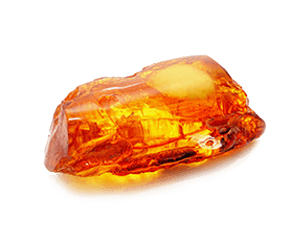
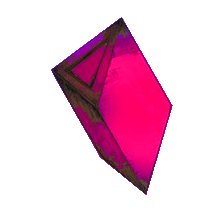
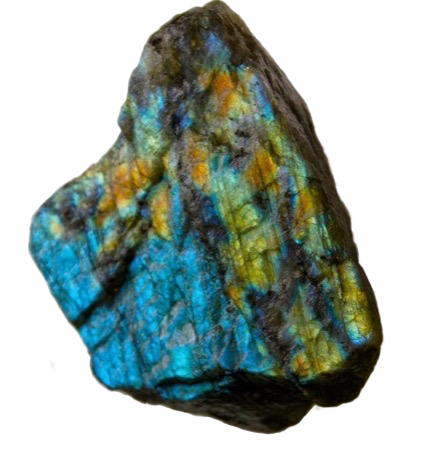
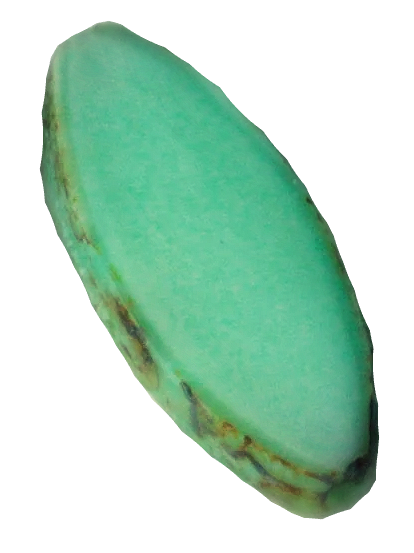

Iron Stomach
Wondrous item, very rare (requires attunement)
This small, textured, iron ball was an alchemist's attempt to make use of his insatiable hunger and never have to haul around an alchemy lab ever again.
Attuning to the Iron Stomach requires the creature to swallows it. Once swallowed, the Iron Stomach expands to fill the stomach of the creature. The Iron Stomach then absorbs most of the nutrients consumed by the host creature, but leaves enough for it to survive. A host of the Iron Stomach will never know a satisfying meal.
The Iron Stomach harnesses the power of creatures consumed by the host, absorbing their power and converting it into something useful. Once the Iron Stomach has digested enough powerful corpses, it spills the product of it's arcane fermentation into the host's stomach; causing the host to regurgitate magical potions.
The Iron Stomach rapidly digests anything consumed by the host, allowing the host to eat as much food as their hands and mouth permit. To absorb the power of a creature, the host must consume the ENTIRE corpse (cooked or raw). Larger corpses can take quite a long time to consume. Hosts must spend the following times to fully consume the corpses of fallen foes, assuming minimal breaks in between eating:
Time to Eat
| Creature Size | Duration |
|---|---|
| Fine | 1 action |
| Diminutive | 1 round |
| Tiny | 1 minute |
| Small | 10 minutes |
| Medium | 1 hour |
| Large | 8 hours |
| Huge | 24 hours |
| Gargantuan | 1 week |
| Colossal | 2 weeks |
| Titanic | 1 month |
Once consumed, the Iron Stomach holds a creature's essence until the time when the host wishes to recall its stored power. The XP value of consumed creatures can be converted into potions of various rarity, which the host regurgitates (hopefully into a waiting vessel).
A host can take 1 minute to imagine the desired potion effect and regurgitate the liquid from the Iron Stomach's holdings. When regurgitating, there is a 50% chance that the potion regurgitated is a random potion of the same rarity. The Iron Stomach can excrete at most 1 potion per every 24 hours.
A host must spend values of XP for potion rarities according to the following:
Potion Regurgitation
| Potion Rarity | XP Value |
|---|---|
| Common | 1,000 |
| Uncommon | 5,000 |
| Rare | 10,000 |
| Very Rare | 50,000 |
| Legendary | 100,000 |
| Mythical | 500,000 |
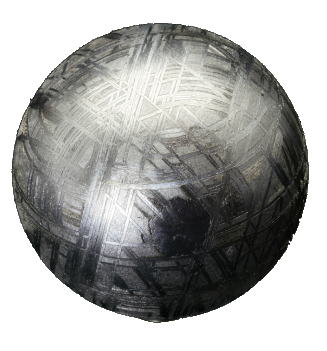
Justicar's Bracer
Wondrous item, rare (requires attunement)
Utilized by many during the Dragon War, these bracers became essential to the fortification of quick-deploy forces who wished to remain defensive yet nimble. Appearing as a metal-bound bracer coated in runes, when activated, the bracer emits differing forms of crystalline force shields.
This bracer has 4 charges, and regains 1d4 charges daily at dawn.
While attuned to this bracer, you can use 1 charge to cast the spectral shield cantrip - centered on the bracer. When activated in this way, the spectral shield counts as a shield for the purposes of utilizing shield-based abilities.
Additionally, you may use 2 charges to cast shield.
Lamp of Lucrative Wishes
Wondrous item, legendary
These ornately crafted lamps were once utilized in ancient times by elemental genies to store excess magical energies to be called upon later. As time passed, their use became more widespread by the mortal masses attempting to chase dreams, fulfill desires, and pursue hope through wish granting - albeit; to a lesser degree.
This item holds 3 charges. As an action, you may rub the lamp and expend 1 charge to make one of the following wishes:
- Fortune. The lamp begins to pour forth sand that materializes into various treasures. You gain a number of random coins, gemstones, and various trinkets equal in value to 10d100 + 100 gp.
- Power. Your skill in one form of combat has improved significantly. Choose Ranged, Melee, or Spell attacks. You now add your proficiency bonus in damage to all attacks of that form.
- Knowledge. A large tome appears before you. A creature who spends the next 24 hours reading this tome may improve one ability score by 2, or two ability scores by 1. Alternatively, the creature may choose to learn a feat. After 24 hours, the book disappears.
- Immortality. You stop aging, and gain 2d20 additional years added onto your lifespan, and a small ethereal painting depicting your exact likeness (albeit in grandiose form) is teleported to a random location on your current plane of existence with a highly detailed story of your life.
- Magic. You learn two of your choice of the following cantrips: druidcraft, gust, mage hand, minor illusion, prestidigitation or thaumaturgy. Additionally, you learn two 1st-level spells, and one 2nd-level spell from any spell list, and can cast each of the 1st-level spells twice, and the 2nd-level spell once per long rest without expending spellslots. When you choose this option, choose Intelligence, Wisdom, or Charisma as your spellcasting ability.
A creature cannot wish for the same thing twice, and cannot be granted a wish more than once per day. Once all charges are expended, the lamp fades from reality and teleports to another location.




Lucky Seven
Weapon (any firearm), legendary (requires attunement)
This gun has lines of pure gold swirling across its barrel and glowing green four-leaf clovers etched on its grip. It sparkles dimly in your hands, making every shot feel like you're gambling for something big.
You gain a +3 bonus to attack and damage rolls you make with this revolver.
Uncanny Luck. You can call on this weapon's luck to alter fate around you. Immediately upon attuning to the weapon, you gain two luck points, which can be used as described in the lucky feat (Player's Handbook p. 167). As long as you remain attuned to the weapon, any expended luck points are regained at the end of a long rest.
Seven of Clovers. If you roll a natural 7 on an attack roll made with this revolver, you hear the sound of bells and jingling coins as the weapon begins to glow. This attack automatically hits its target, is considered a critical hit, and deals maximum damage. Additionally, for the next minute, any attack made with this weapon deals an additional 7 force damage.
Magus-Mantle
Potion, uncommon
This bottle is filled with bright blue liquid reminiscent of a mana potion - but is constantly bubbling, boiling, and hot. Often used by mages, mercenaries and those going into high danger areas.
When you drink this potion, you become draped in flowing, ethereal white-blue wrappings and a hooded cape. You gain 15 temporary hitpoints which last for 1 hour. While any of these hitpoints remain, creatures within 5 feet of you that hit you with a melee attack take 1d4+1 force damage and must succeed a DC 10 Strength saving throw or be pushed 10 feet away from you.
Mantle of Arms
Armor (reinforced cloak), very rare (requires attunement)
This assembled mass of overlapping banners, fields, colors, and flags is the conglomeration of various squadrons, armies, tribes and militias over the centuries. Within each fragment holds the valorous anger of those who charged into battle - to victory or defeat.
You gain a +1 bonus to AC while wearing this magic item.
While attuned, your walking speed increases by 10 feet.
Spiritual Might. As an reaction to the beginning of combat, you may channel the spiritual strength of the final moments of each fallen warrior. For the next minute, you deal an amount of additional force damage equal to your proficiency bonus for each of your attacks. Once used, this ability cannot be used again until you finish a short or long rest.



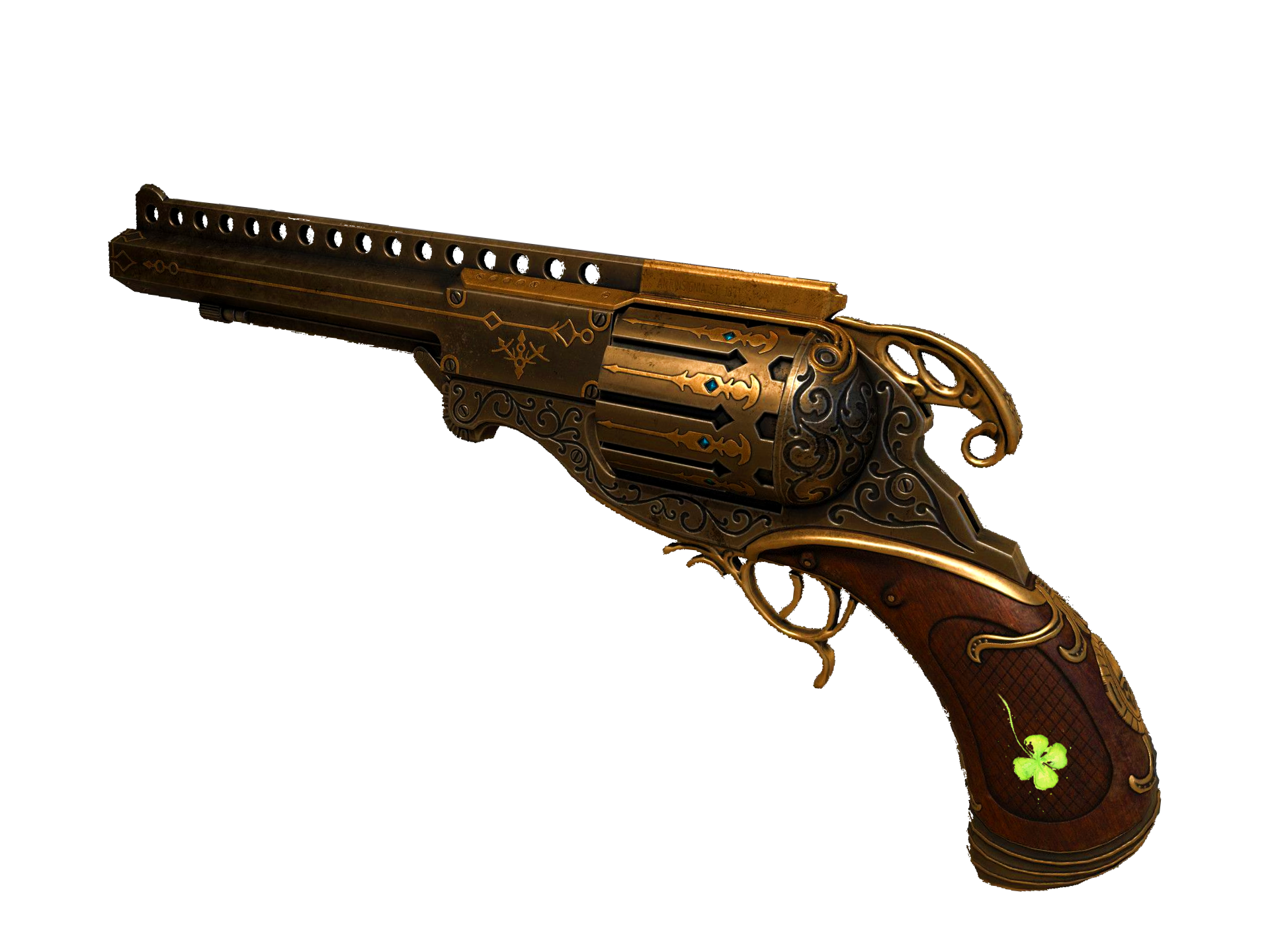
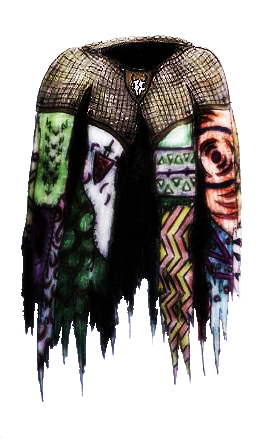
Manual of Martial Stratagems
Wondrous item, rare
This book describes martial techniques and battle tactics, and its words are charged with magic.
If you spend 24 hours over a period of 6 days or fewer studying the book's contents and practicing its guidelines, you permanently gain a fighting style of your choice from any class (with DM's approval). As usual, you can't take a Fighting Style option more than once. The manual then loses its magic, but regains it in a decade.
Map of the Pathfinder
Wondrous item, rare
While you are holding this map, you can use an action to speak its command word, commanding the map to redraw itself to accurately depict the surface area within a 10-mile radius of you. At any time thereafter, you can use a bonus action to alter the map to show the same area up to 10 miles underground. The map displays the following features, labeled with names and general descriptions.
- General terrain features, such as rivers and mountains.
- Settled areas like towns or cities.
- Structures used for travel, such as bridges and portals.
- Roads and trails.
- Lairs of dangerous creatures.
Once you use this property of the map, it lasts until you use it again.
Mask of the Dreamer
Wondrous item, mythical
These ornate masks are only seen on the faces of the secret sect of the Church of Chemosh: the dreaming council. The mask itself is carved from ivory, and adorned with various mithril nets and golden filigree. Their visage bears a striking similarity to the demonic true form of Chemosh himself.
While worn, the mask offers the following benefits:
- You are constantly under the effects of the dream sight (PM) spell, resulting in your body residing in a constant comatose state while the mask is worn.
As an action, you may overcharge the power within the mask, causing your body to animate and your incorporeal form to have sway over the material world. You gain the following benefits for 1 minute:
- Your body may take actions and function as normal.
- Your incorporeal form snaps back to an unoccupied space within 10 feet of your body. It may move and make one attack action per round - acting on your initiative.
Once this effect ends, your body falls comatose once more, your dream sight spell also ends, and you fall unconscious for 24 hours - after which, the mask functions as normal.
Mask of the Plague Doctor
Wondrous item, rare (requires attunement by a cleric, druid or paladin)
A darkened leather mask is decorated with an elongated beak, goggles in the eye holes and metal clips. The beak is stuffed with various magical flora of an alchemic nature. When attuned, the enchantments on the flora in the mask make its wearer immune to disease and the poisoned condition, as well as gains resistance to all poison damage.
Curse. The mask has no negative benefit while worn, but if it is removed voluntarily, the wearer gains vulnerability to poison damage and the poisoned condition, and their hit point maximum is reduced by half until their next long rest.
This effect can be suppressed with the use of dispel magic. The dispel DC is equal to the wearer's spell save DC. Once dispelled, the caster takes poison damage equal to half the wearer's current hit points. The curse remains suppressed until the next dawn.

Mox Talisman
Wondrous item, rare
A Mox is an arcane gemstone associated with a particular type of magic determined by it's material. These were originally used by mages to aid new magic students specializing in particular schools of magic.
When you cast a spell from the school of magic associated with the gem, you may use the gem to empower the spell, casting it at one level higher. The gem can't be used in this way again until the next dawn.
The Mox's material determines what school of magic it is associated with:
| Gemstone | School |
|---|---|
| Amber | Conjuration |
| Jet | Necromancy |
| Ruby | Evocation |
| Pearl | Abjuration |
| Chrome | Transmutation |
| Opal | Divination |
| Emerald | Enchantment |
| Sapphire | Illusion |
Named Bullet
Ammunition (any firearm bullet), very rare
This silvered bullet is carved with the name of an individual - the name glows with fiery embers.
A named bullet is a magical bullet meant to slay a particular person and only that person. A named bullet functions as an arrow of slaying with a very focused target (a single, specifically named creature).
Additionally, a named bullet has advantage on attack rolls made against its intended target.
After dealing damage to its intended target, the bullet is rendered non-magical.
Pendant of Resolve
Wondrous item, uncommon (requires attunement)
This wrought iron pendant crackles with the barest glimmers of embers that race through it's edges and curves. Wearing this amulet strengthens your determination to continue the fight even through the most grievous of wounds.
If you have less than half of your maximum hitpoints and are healed by magical means you gain 1d4 temporary hitpoints as the pendant's embers flare brilliantly.
In addition, if you are at 0 hitpoints and brought back to consciousness through magical healing, you gain a number of temporary hitpoints equal to the amount of healing you received (maximum 10).
The temporary hitpoints granted by this pendant to not stack with one another.
Philter of Living Blood
Wondrous item, mythical
The blood shed by a member of the Deep Medicos circle of the church of Mishakal, blessed to remain as living blood. This blue crystal philter is encased in silvered filigree and stoppered with a platinum top which holds a glass dropper. Within the philter lies a small amount of blood which glistens with starlight.
The philter comes with 1d4 drops of blood.
As an action, you may administer a drop of blood into a creature's mouth. Upon doing so, the creature's hit points are restored to maximum and if they are blinded, charmed, deafened, frightened, incapacitated, paralyzed, petrified, poisoned, stunned, or have any levels of exhaustion, those conditions end.
Additionally, if the creature is cursed or possessed unwillingly by any force or entity, those conditions end as well.
A creature can only benefit from one use of the blood every 24 hours.



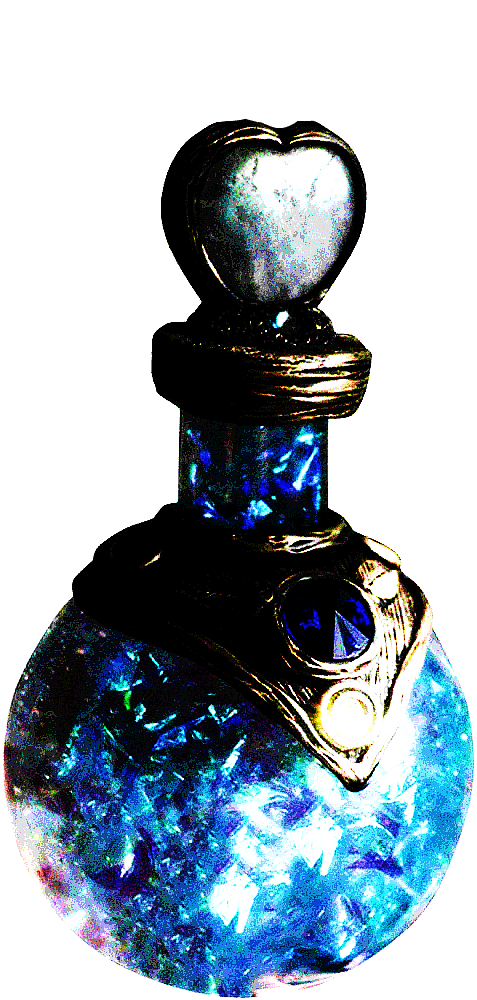
Retribution Shield
Armor (shield), very rare (requires attunement by a cleric, fighter, or paladin)
This black steel shield is lined with and detailed in gold-gilded bronze. When attuned to the shield, the golden bronze shifts and reforms upon the shield to take on the visage of the god, figure, or force the wielder serves or honors.
You gain a +1 bonus to AC while wielding this magic item.
The shield has 5 charges and regains 1d4 charges daily at dawn.
Sacred Rebuke. Once per round, while wielding this shield, you may expend a charge as a reaction to being targeted by an attack. If the triggering creature is within 10 feet of you, they must make a Wisdom saving throw (DC 15) or take 2d8 radiant or necrotic damage (radiant for good or neutral alignment, necrotic for evil), or half as much on a successful save.
Revenant Crystal
Wondrous item, rare
A hand-sized shard of animite infused with the soul of a revenant - these crystals were utilized in the dragon war for powerful-yet-disposable weaponization of magic and fallen souls. In the modern day, these magic objects see widespread use by mages and mercenaries alike.
This crystal comes with 3 charges.
While wielding the crystal in a free hand, you may expend 1 charge to cast the spirit lancer spell at base level - emitting from the crystal.
Once all charges are expended, the crystal disintegrates into dust.
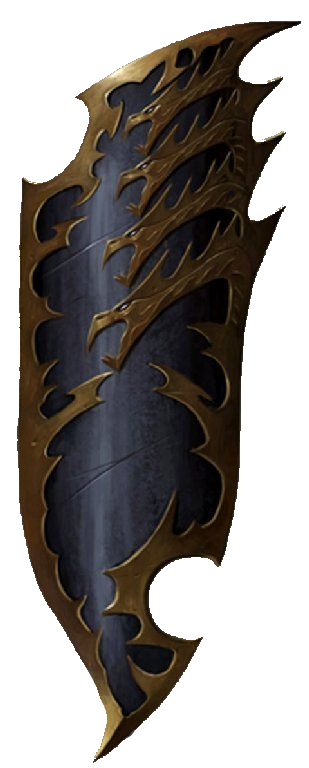
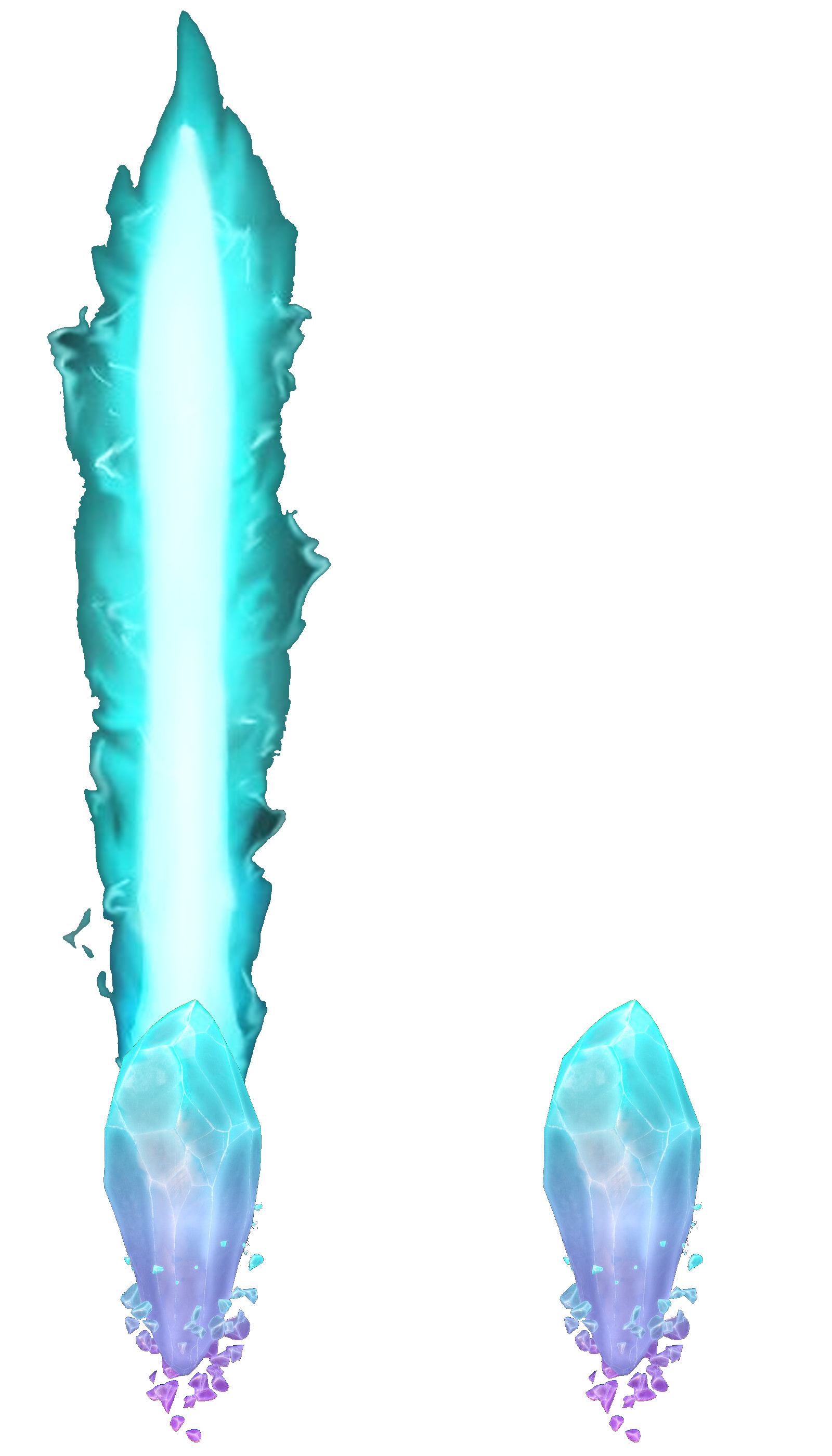
Ring of Wormwood
Ring, legendary (requires attunement)
A ring made out of a shard of the Wormwood asteroid. This ring is crafted of a strange metallic wood material; jet black and coated in a thin layer of oil that never dries.
The poison created from this ring ignores resistance and immunity to poison damage, and bypasses any immunity to the poisoned condition.
Any water or liquid touched by this ring becomes poisoned. Any living or unliving creature who drinks the water takes 4d4 poison damage every hour and is poisoned until the water they drank is excreted from their body; either via a greater restoration or similar effect, or until 24 hours has passed.
A creature which has died to this poison damage has their body disintegrate into water which is similarly poisoned. Only a true resurrection or wish spell may return this creature back to life.
Riveting Instrument
Wondrous item, rare (+1), very rare (+2), legendary (+3)
These finely crafted musical instruments are carved from the finest woods, filagreed with precious metals, and inlaid with gaudy gemstones; Enchanted to produce the finest music and melodies - normally found in the hands of the most exceptional bards.
When wielded, the instrument grants a bonus to Charisma (performance) checks equal to it's rarity.
You may reroll any roll equal to the rarity (and below) on a performance check - you may utilize this property a number of times equal to your Charisma modifier per long rest.
Scimitars of Twilit Forces
Weapon (scimitars), vary rare (requires attunement)
These two silver scimitars are counterparts - and can only be attuned while together. While attuned, they each count as a separate weapon for the purposes of two-weapon fighting.
One blade shines with a brilliant shimmering white radiance and holds a jet in it's pommel, while the other blade pulsates with an unnaturally dark aura and holds a white quartz in it's pommel.
Gloom. When you roll a critical hit with this weapon, the target takes an additional 1d6 necrotic damage. Additionally, this weapon can be used to cast the darkness spell once per long rest.
Gloss. When you roll a critical hit with this weapon, the target takes an additional 1d6 radiant damage. Additionally, this weapon can be used to cast the daylight spell once per long rest.
Shadowstaff
Staff, very rare (requires attunement by a bard, cleric, druid, sorcerer, warlock, or wizard)
Carved from a fallen kirinwood tree that has grown in the Shadowfell, and imbued with the essence of darkness itself; these staffs are incredibly common amongst illusionists, conjurers and those that favor the embrace of the night.
This staff has 10 Charges and regains 1d6 + 4 expended Charges daily at dawn. If you expend the last charge, roll a d20. On a 1, the shadowstaff disintegrates into black fog.
Spells: While holding the staff, you can use an Action to expend some of its Charges to cast one of the following Spells from it, using your spell save DC and spell attack bonus: Shadow Evocation (PM) (1 charge), Shadow Blade (2 charges - emits from the tip of the staff), Shadow Conjuration (PM) (2 charges) or Shadow of Moil (4 charges).
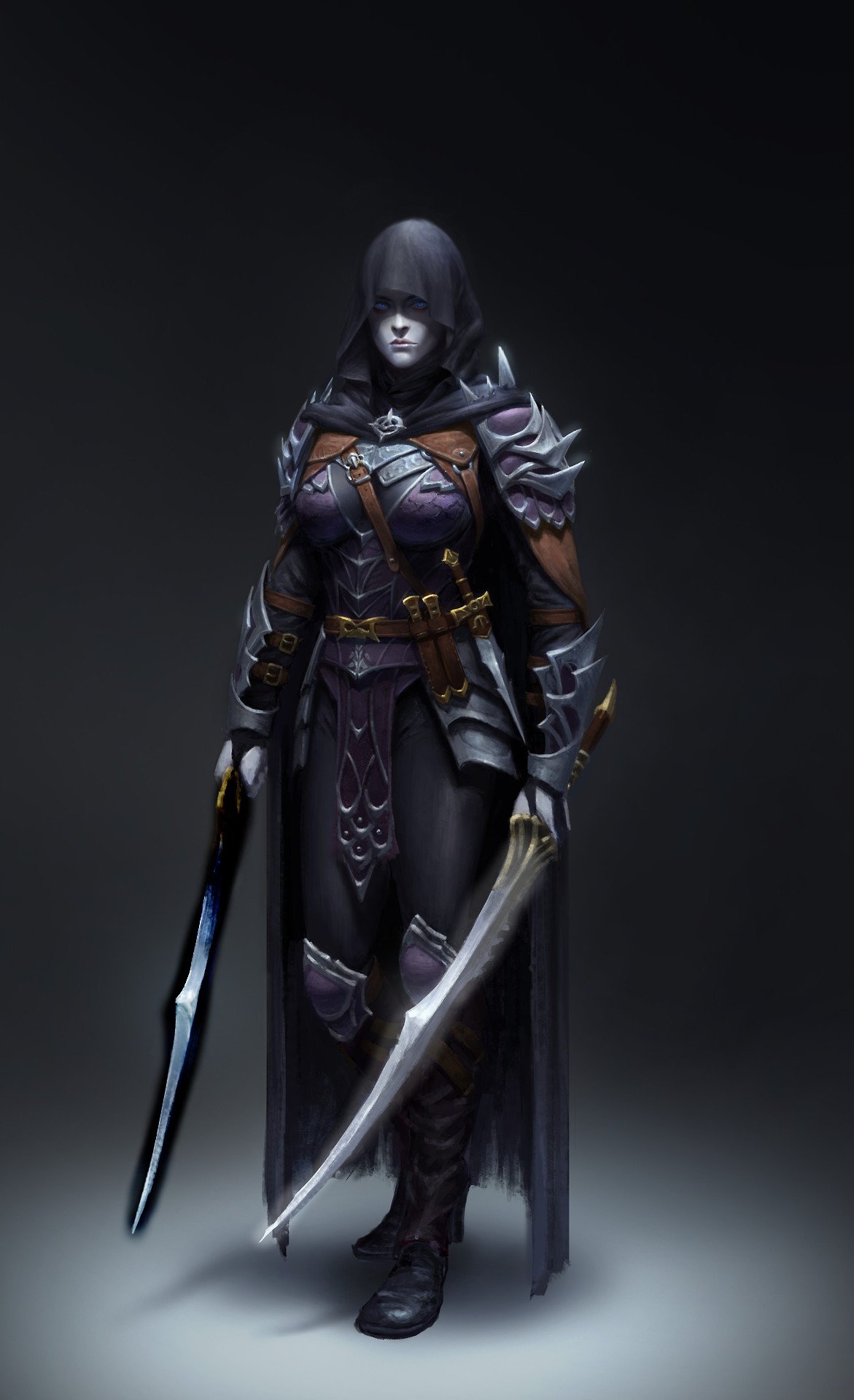


Seed of Mystery
Wondrous item, rare
A seed of mystery appears as a small, spiral-shaped seed of a bright green-blue coloration. These seeds are supposedly failed divine fruits from a tree of yggdrasil, and cannot be cultivated elsewhere.
You may spend 1 minute in a ritual-like trance to imbue one of the random properties into the seed - forcing the seed to create the desired effect when utilized. Otherwise, it produces an effect at random.
As an action, you can throw the seed up to 60 feet away. On impact, the seed bursts into an aurora of colors, and a random effect (or chosen effect) occurs. If the seed is used as a sling bullet or similar projectile, it inflicts damage immediately before the random effect.
Roll 1d12 on the following table:
| d12 | Effect |
|---|---|
| 1 | If the target is a creature, it restores 3d6 hit points, and gains enough nourishment to sustain itself for one day. If the target is not a creature, it is affected by the mending spell, and up to 1 cubic foot around the impact point is cleaned as if by the prestidigitation spell. |
| 2 | If the target is a creature, it becomes invisible for 1 minute. If the target is not a creature, then for 1 minute, all creatures which come within 5 feet of it become invisible while they remain within 5 feet of it. |
| 3 | If the target is a creature, it is affected by the tongues spell for 1 minute. If the target creature's Intelligence score is below 3, it is increased to 3 for the duration of this effect. If the target is not a creature, roll again for a different effect. |
| 4 | A wave of overwhelming gravity washes out from the impact point. The target itself is not affected, but all creatures within 120 feet of it must succeed on a DC 15 Strength saving throw or be knocked prone. |
| 5 | A heavy fog, as per the fog cloud spell, emanates from the target, and lasts where it was created for 1 hour unless something disrupts it. |
| 6 | A blinding flash and thunderous bang emanate from the impact point. All creatures within 30 feet must succeed on a DC 15 Constitution saving throw or be blinded and deafened for 1 minute. |
| 7 | If the target is a creature, it is teleported to a harmless demiplane for 1 minute. If the target is not a creature, the surrounding 1 cubic foot of material is teleported instead. |
| 8 | All objects and creatures within a 15-foot radius of the impact point, including the target, glow green as the faerie fire spell for 1 minute. |
| 9 | If the hit target is a creature, it suffers 1d6 poison damage. Any creature which begins its turn in the target square must succeed a DC 15 Constitution saving throw or suffer 1d6 poison damage and become poisoned until the end of its turn. If the target is a creature with a keen sense of smell, it has disadvantage on this saving throw. |
| 10 | If the hit target is a creature or loose object smaller than a Huge creature, it is immediately thrown directly upward a distance of 30 feet, potentially subjecting it to 3d6 bludgeoning damage from falling. Otherwise, a momentary whirlwind blows over the target, causing any dust or minor objects to be blown up instead. |
| 11 | A burst of Soulflame explodes from the impact point. The target and everything within 10 feet of it takes 3d6 aetherion damage; if the target is a creature, it is ignited for 1d6 aetherion damage. Succeeding on a DC 15 Dexterity saving throw halves this damage. |
| 12 | If the target is a creature, it must succeed on a DC 15 Wisdom saving throw or be polymorphed — as per the spell — into a frog for a duration of 1 minute. If the target is not a creature, a normal frog is magically created immediately above the target, and persists indefinitely. |
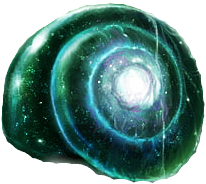
Sol Ring
Ring, legendary (requires attunement by a spellcaster or needs to be merged with a staff that requires attunement)
This ring can only be used by individuals who can cast at least one 1st-level spell, or affixed to a staff that can cast spells.
This thin golden band is carved with a myriad of incredibly small, intricate magical runes that seem to flow into one another like circuitry. Within the center of the ring's opening, a small star-like mote of multi-colored energy quietly pulsates with arcane power.
Weave Empowerment. When you cast a spell of first level or higher, the spell is cast at two levels higher than the level of spell slot you have used - up to a maximumm of 9th level. This does not stack with similar effects.
Spell-Eater Jar
Wondrous Items, very rare (requires attunement)
This strange gray clay vessel is painted with glowing eyes which seem to follow spellcasters' movements around the room. The inside of the jar's mouth radiates a strong aura of abjuration magics.
When you would be subjected to acid, cold, fire, lightning, poison, or thunder damage from a spell, if you have a free hand and the jar is empty, you may instead use your reaction to negate the damage from the spell by feeding it into the jar. The jar can only hold one spell at a time.
As an action, you can eject the contents of the jar from its mouth, casting chromatic orb at the level of the spell that was eaten and using the damage type that it would have dealt. You use your spellcasting ability when you cast chromatic orb - if you do not have a spellcasting ability, you instead utilize only your proficiency bonus instead.
Spirit Totem Amulet
Wondrous Items, very rare (requires attunement)
This necklace has an innate magical connection to the spirit world of the animal kingdom. While wearing this necklace, when you finish a long rest, you can roll a d4 to determine which animal spirit manifests its totem carving upon the necklace for the day. Until the end of your next long rest, you have resistance to a type of damage as shown in the table below.
| d4 | Animal Spirit | Totem Carving | Damage Resistance |
|---|---|---|---|
| 1 | Giant Constrictor Snake | Pair of Snake Fangs | Poison |
| 2 | Giant Elk | Pair of Antlers | Bludgeoning |
| 3 | Polar Bear | Fur Coated Claw | Slashing |
| 4 | Saber-Toothed Tiger | Ivory Fang | Piercing |
In addition, you can use your action to speak the necklace's command word. When you do so, choose a point you can see within 30 feet of you. You then call forth the manifestation of the totem spirit from the veil in physical form (using the stat blocks from the Monster Manual). Once this property is used, it cannot be used again until you finish a long rest.
The summoned creature is considered a fey, and it disappears when it drops to 0 hit points or after 10 minutes. The summoned creature is friendly to you and your companions. Roll initiative for the summoned creature, which has its own turns. It obeys any verbal commands that you issue to it (no action required by you). If you dont issue any commands to it, it defends itself from hostile creatures or acts in accordance with its natural instincts (ie: grazing grass, scratching trees, sunbathing, etc), but otherwise takes no actions.
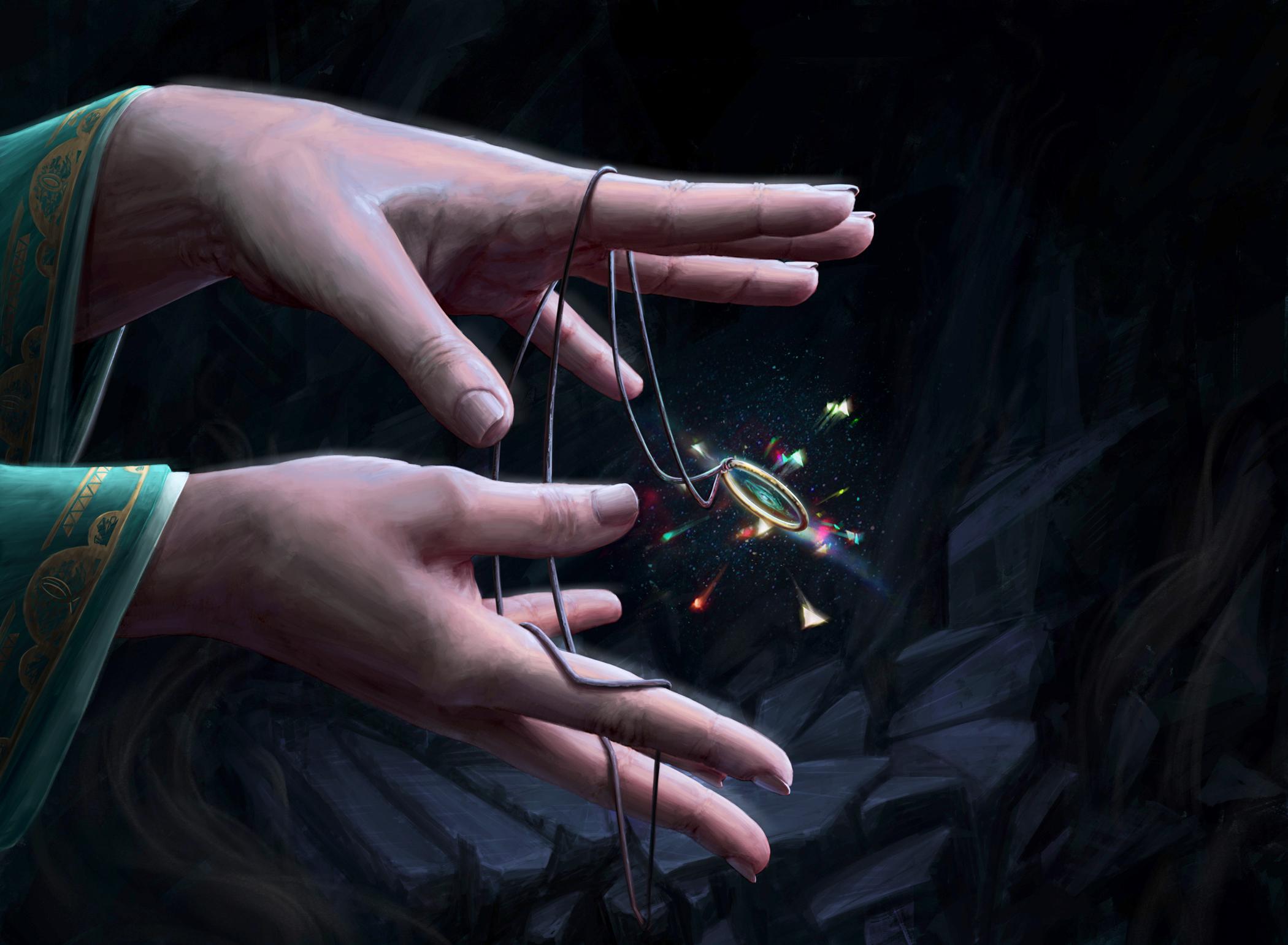


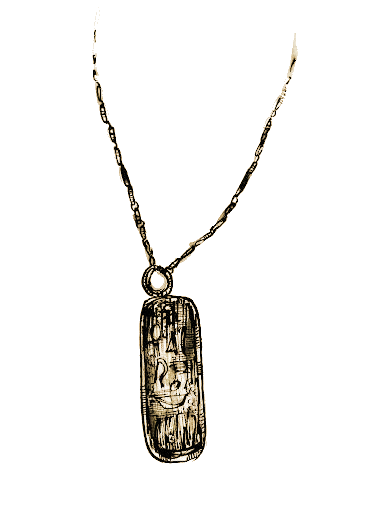
Stalker's Mantle
Armor (light or medium), rare (requires attunement)
This set of monochromatic black and gray armor comes with a shortened reinforced hooded mantle of fine flowing cloth attached to the back.
While wearing this armor, you gain a +2 bonus to AC.
In addition, as an action you may raise the hood, granting you advantage on Dexterity (Stealth) checks made to hide. Also if you remain still within an area of darkness or shadow you become invisible until you move, attack, or cast a spell - you still may speak without becoming visible.
Steed Spirit Whistle
Ring, rare (requires attunement)
A delicate goldwork ring, equipped with a small whistle-like attachment. This ring can be used as a whistle to summon and ride a spiritual mount.
This ring has 5 charges, and regains 1d4 charges at dawn.
While attuned to the item, as an action you may expend a charge to whistle the ring and cast the spell find steed.
Technomancer's Wonder-Box
Wondrous item, very rare (requires attunement by a spellcaster)
These blackened steel puzzle boxes are coated in various golden runes depicting natural and artificial wonders. A favorite fidget mechanism utilized by stressed engineers and mages. No matter how hard an individual tries, they can never align all patterns of the wonder-box at once.
While attuned, you have advantage on Intelligence (mechanics) checks. [If you do not utilize the mechanics skill in your setting, choose Arcana instead]
Additionally, as an action, you may roll 1d4 to quickly attempt to align the puzzle box's panels in order to benefit from one of it's mystical patterns:
| D4 | Pattern |
|---|---|
| 1 | You fail to align the puzzle box in time. |
| 2 | Circuitry. For the next minute, you gain a +2 bonus to weapon attack and damage rolls. |
| 3 | Geometry. For the next minute, you gain a +2 bonus to your AC. |
| 4 | Sunburst. For the next minute, you gain a +2 bonus to your spell attack modifier and spell save DC. |
Once used, this ability cannot be used again until you finish a short or long rest - even if you roll a 1.
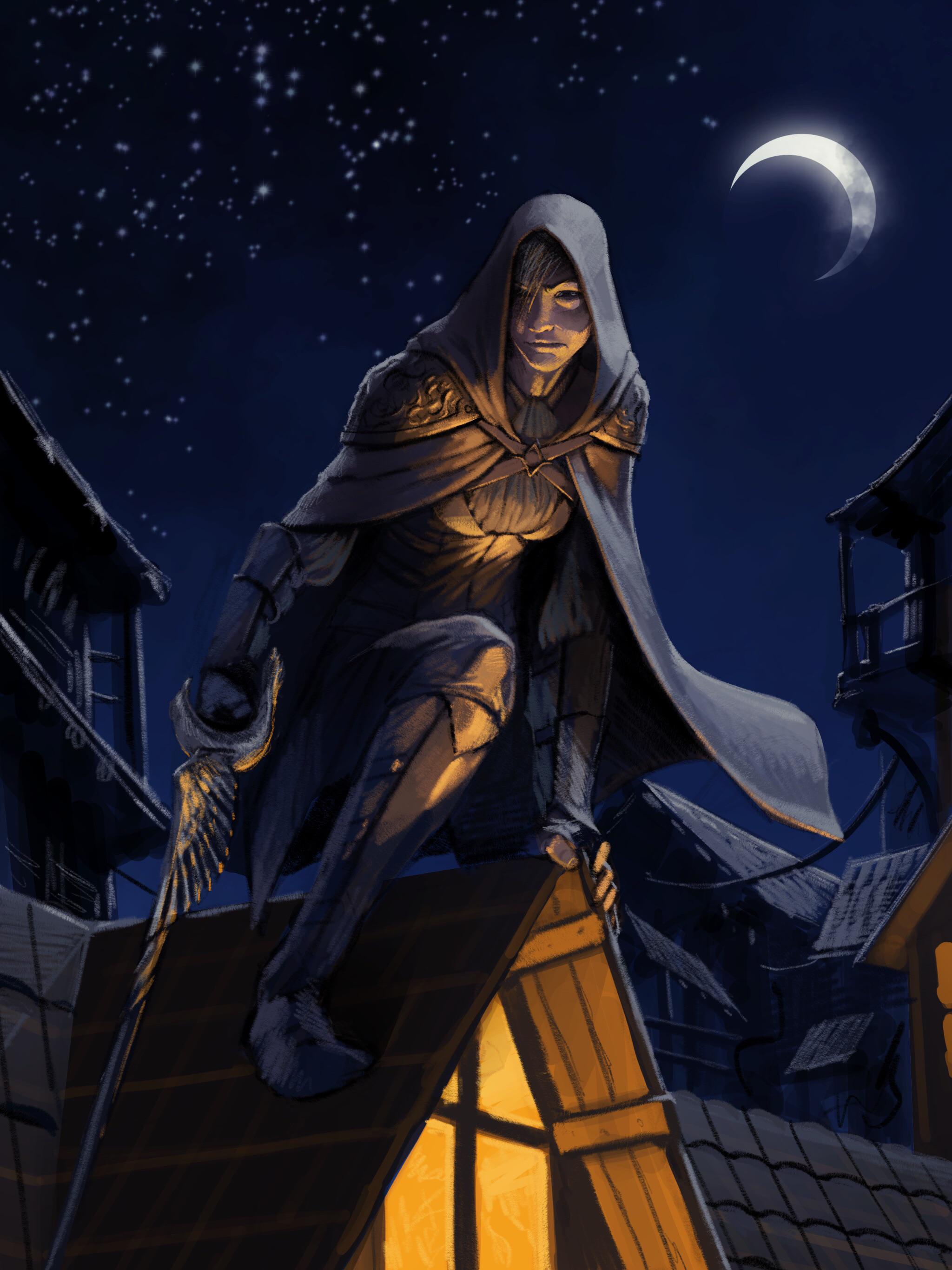


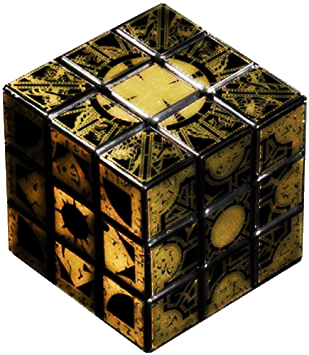
Tome of Pryxian Insights
Wonderous Item, legendary
Known colloquially as "The Archivist's Guide to Pryxis" - this weathered, gilded book is one the of very few tomes written by Pryxis the Archmagus Æternal himself, and its pages seem gilded with unnaturally glowing ink - the book itself is indestructible.
The book functions as an entire library unto itself and can be utilized as any form of spellcasting focus. The book's pages also may be utilized as a spellbook.
Within it contains basic information about Pryxis himself, the cathedral of seven sins (and general info about the seven sins), the guild of three, the basics of the Labe-Suo star system, and general history of Pryxis as a whole.
Worldly Knowledge. When you make any intelligence check to find information relevant to the world of Pryxis or the Labe-Suo system, you gain advantage and a +5 bonus to the roll if you hold the book in your hand (the book opens a relevant page to your desired topic to aid you).
Chronologistics. When a historically important action takes place upon the world of Pryxis pertaining to (or superseding) any of the above information, the book falls from your hands and immediately flips to the end pages where several blank pages manifest and begin scrawling an incredibly accurate retelling of the event taking place.
Torc of Mage-Bane
Wondrous item, rare (+1), very rare (+2), or legendary (+3) (requires attunement)
These magical bands are carved with glyphs of protection that lend defense against oncoming magical effects. The bands come in four different forms according to their rarity: sliver (rare), gold (very rare), or platinum (legendary). These bands can be worn on the arms, legs, or neck.
You gain a bonus to saving throws made against spells and magical effects while wearing this magical band, which is determined by its rarity.
You can only gain the benefit from one of these bands at any time.
Veil of Balance
Wondrous item, mythical (requires attunement)
These hoods are usually granted to members of the highest circle of the church of Tyr: the Balance Keepers. These ornate, hood-like veils cover the eyes and leave only the mouth exposed.
While worn, the veil grants a +1 bonus to AC.
The veil blinds the creature who wears it, but grants them 120 feet of truesight.
Through this truesight, the wearer can determine whether an individual they see is lying - and it can bypass abilities, spells, or effects that would normally mask their deception.
Additionally, the wearer of this veil can see the alignment of creatures around them, represented by the nebulously colored silhouette of that creature. The color and corresponding alignment are listed on the following table.
Alignment Silhouette
| Lawful | Neutral | Chaotic | |
| Good | Cyan | Green | Yellow |
| Neutral | Blue | *Grey | Orange |
| Evil | Purple | Magenta | Red |
*Unaligned creatures show a white outline.
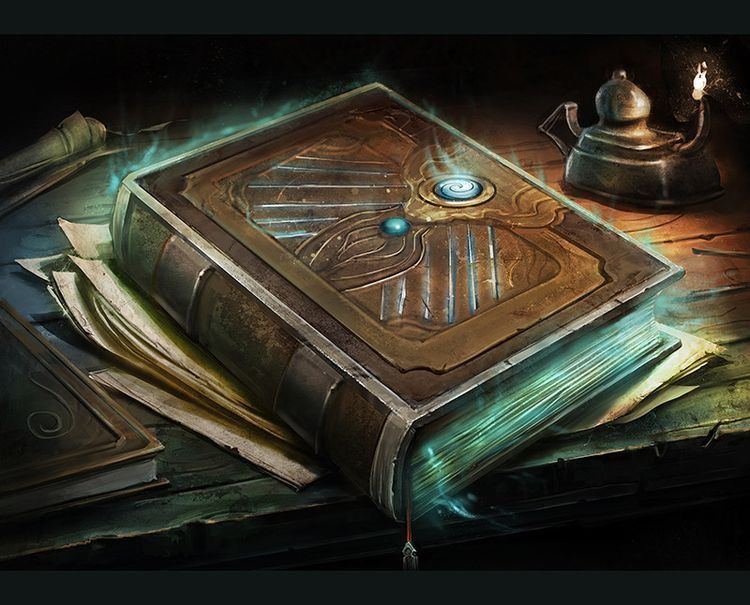


Vow of the Penitent
Wondrous item, rare (requires attunement)
These black wraps coated in silvery runic symbols are usually only utilized by the clergy, mage hunters, and those who wish to repent for a great sin they have committed.
The wrap is used to permanently silence those who wear it by wrapping it around their mouth like a gag. While normally utilized to restrict spellcasters, some truly sorrowful individuals willingly use these wraps to atone.
To attune to the item, the wrap must be affixed over the mouth of the individual to be attuned - once done, the creature immediately becomes attuned to the item.
Once attuned, the creature gains the following effects:
- The creature can no longer speak or produce audible vocal sounds, and can no longer provide verbal components for spells.
- The creature can use a free action to produce scrawl-like symbols in the air within 5 feet of them in any language they understand and can write. These symbols appear as written lines of silvery embers
- The wrap cannot be removed by the creature who wears it, and can only be removed via a dispel magic cast upon it.
Additionally, the creature may use an action to force their vow of silence upon the area around them, casting silence centered on themselves for 1 minute, requiring no concentration. Once used in this way, it cannot be used again until the next dawn.
Warding Bedroll
Wondrous item, uncommon
This bedroll is covered in various runic symbols of safety and security stitched into the fabric.
A creature who spends a long rest sleeping in this bedroll becomes under the effect of the sanctuary spell (Save DC 15) while within the bedroll.
Wilderness Wraps
Wondrous item, rare
This set of leathery robes comes complete with a set of boots, gloves and hood - all covered in scratches, grass and mud stains, and smelling deeply of sand.
While wearing this set of robes, you have advantage on all Wisdom (Survival) and Wisdom (Perception) checks.
Additionally, nonmagical difficult terrain and plants do not impose a penalty to your movement.
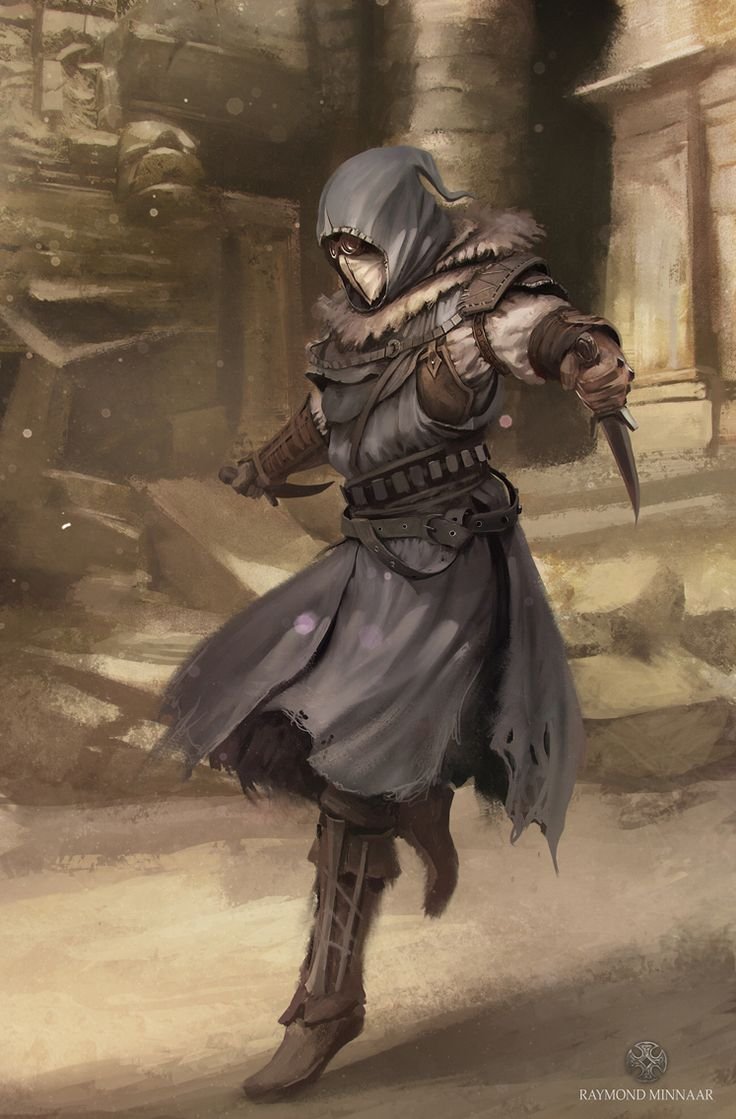

Sentient Magic Items
Durlag, Greatsword of Champions
Weapon (greatsword), legendary (requires attunement)
Dormant
- You gain a +1 bonus to attack and damage rolls.
- Advantage on attacks against monstrosities.
- Once attuned, you gain resistance to slashing damage.
- Deals an additional 1d6 lighting damage.
Awakened
- You gain a +2 bonus to attack and damage rolls.
- Advantage on attacks against dragons.
- While attuned to Durlag, you grow one size category larger.
- Deals an additional 2d6 lightning damage.
Exalted
- You gain a +3 bonus to attack and damage rolls.
- Deals an additional 3d6 lightning damage.
- Deals an additional 3d6 weapon damage against monstrosities and dragons.
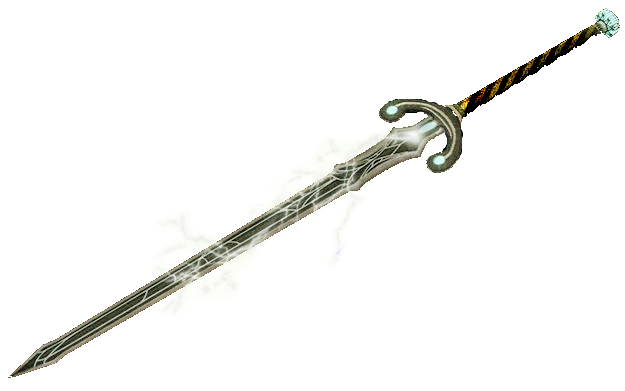
Danu, Heart of the Wood
Wondrous item, legendary (requires attunement)
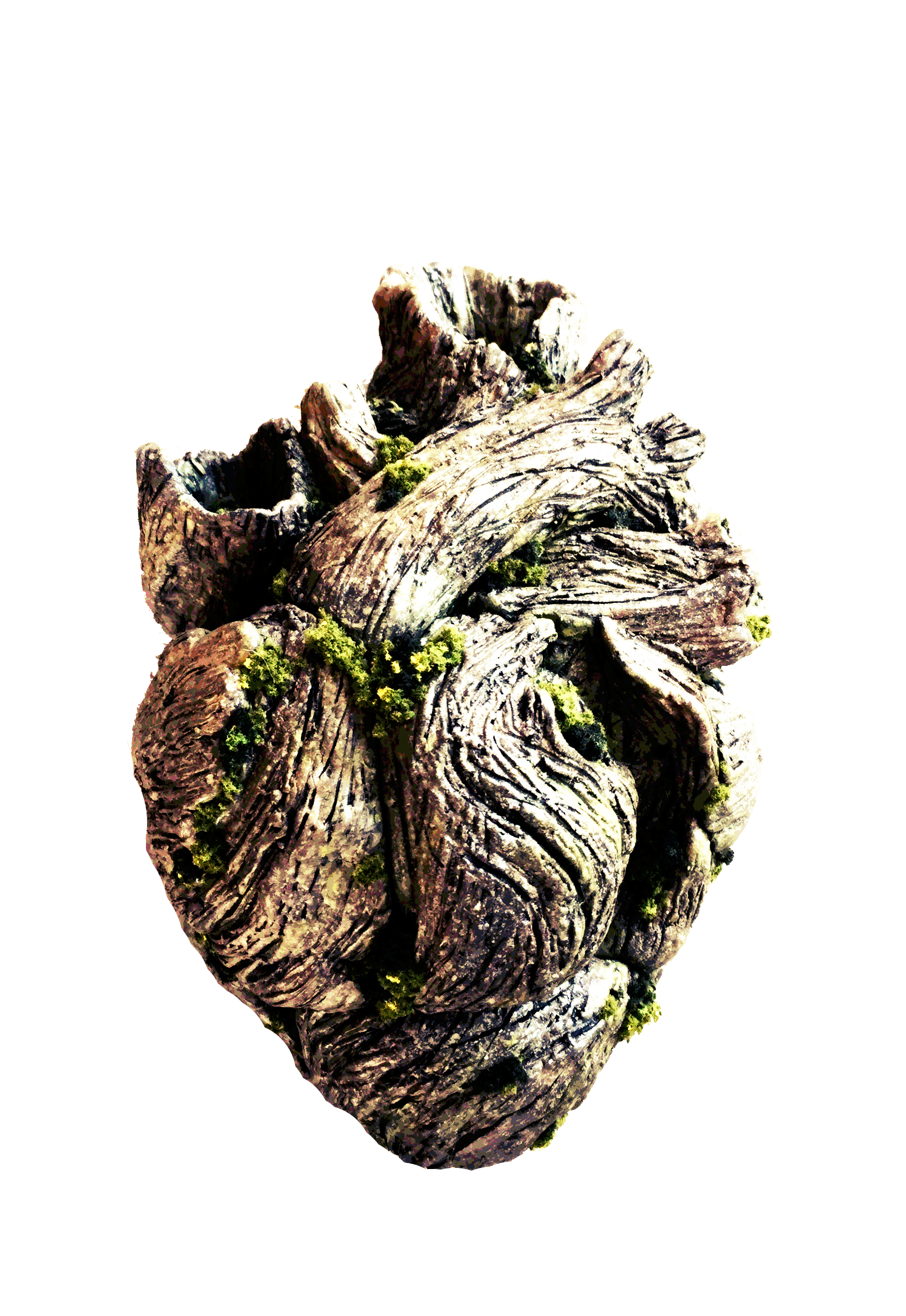
Nous, Halo of the Augmented Mind
Wondrous item, very rare (requires attunement)
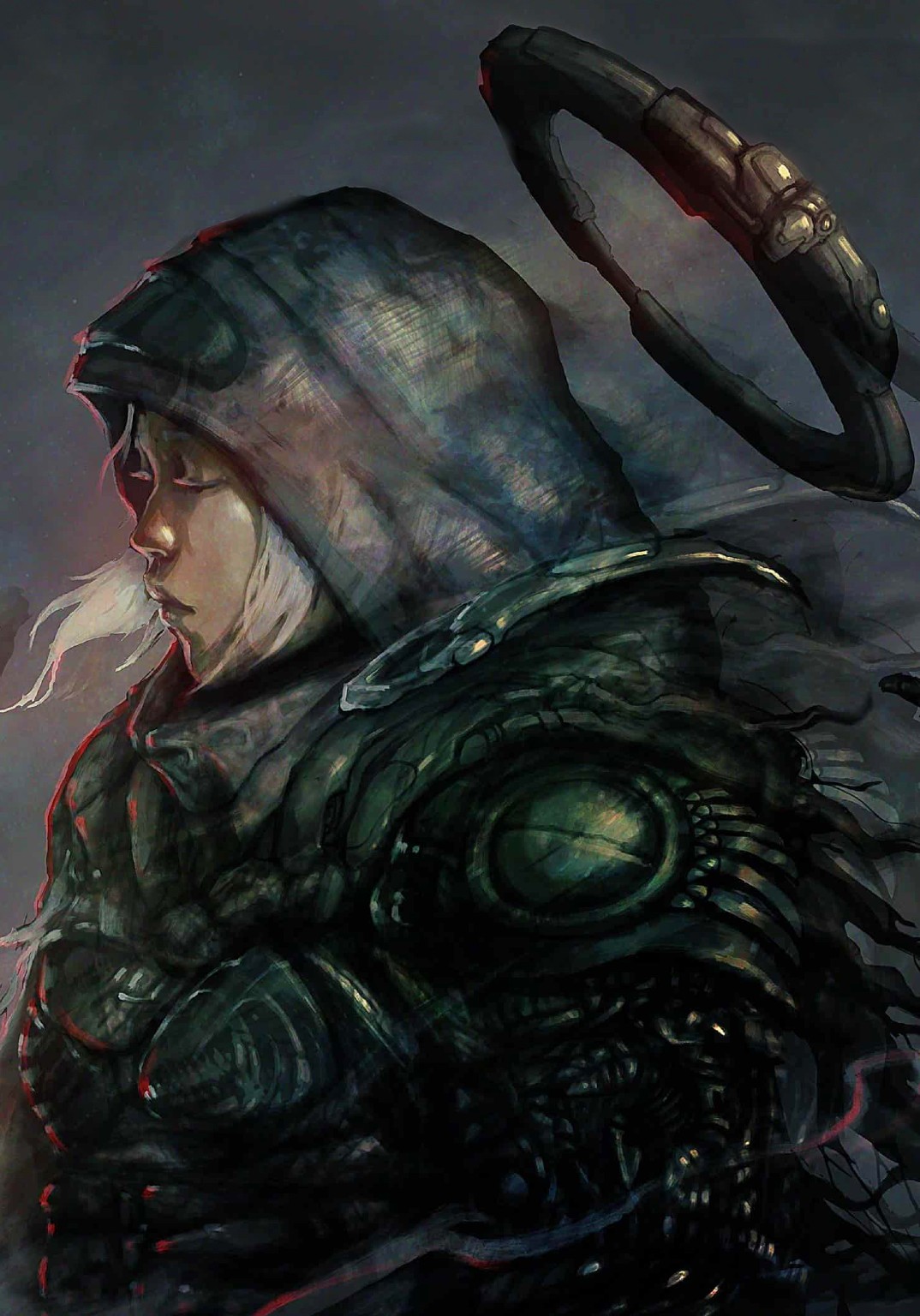

Wetiko, Mask of Devouring
Wondrous item, very rare (requires attunement)
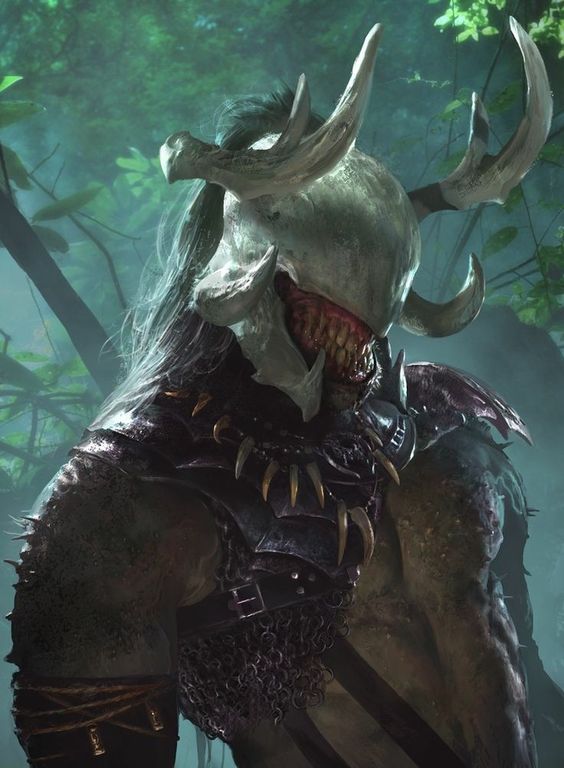

Artifacts
Catalog of the Wicked & Wonderful
Wondrous item, artifact (requires attunement)
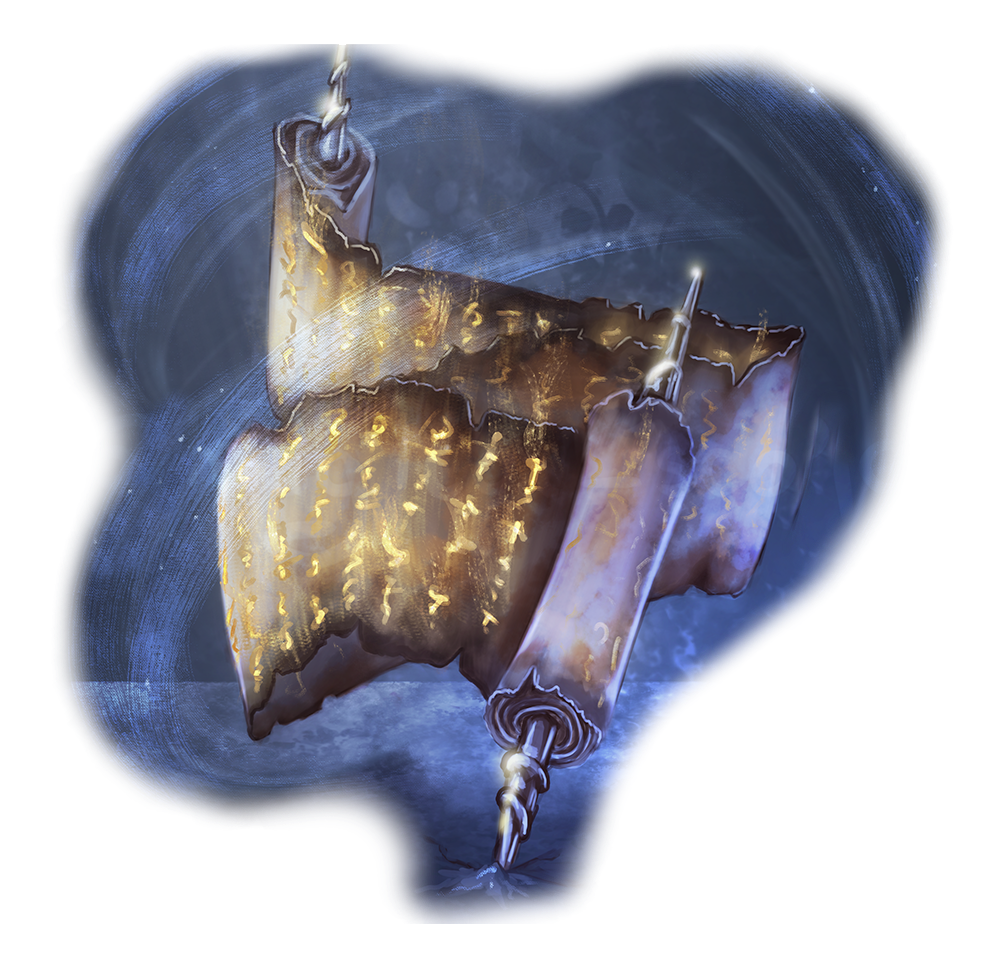
Darulsik, Lakosa's Coat
Armor (reinforced leather), artifact (requires attunement)
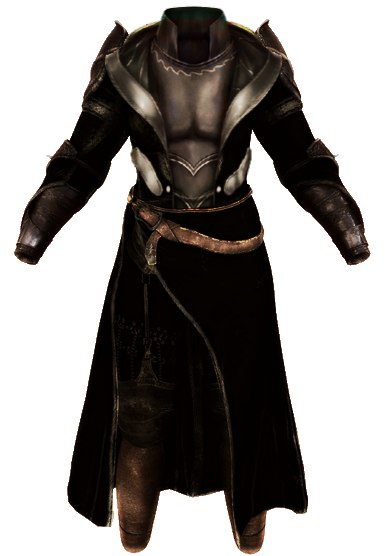
Halkur, Agnar's Shield
Armor (shield), artifact (requires attunement)
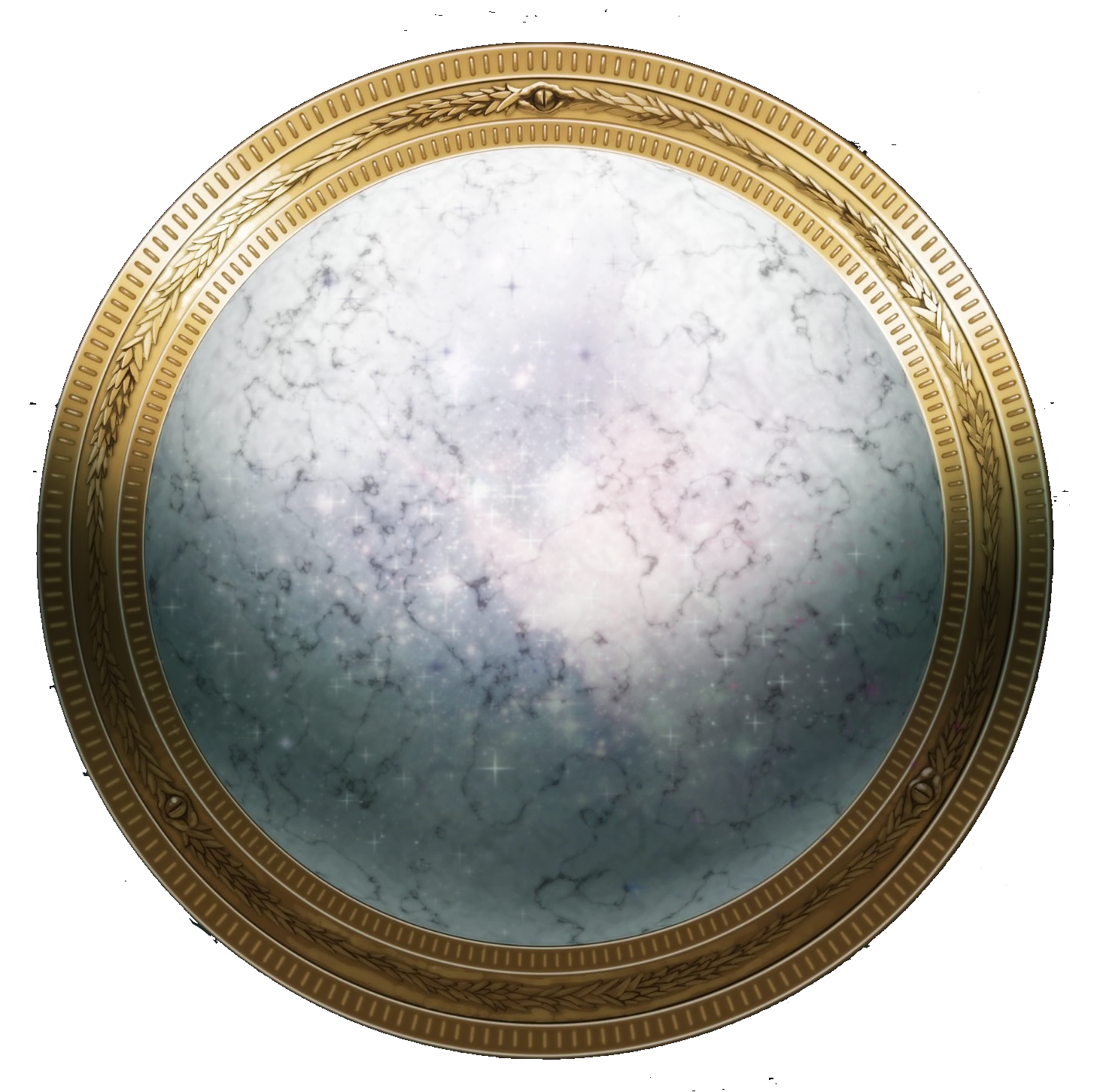
Kauset, Gyrua's Wraps
Wondrous item, artifact (requires attunement)
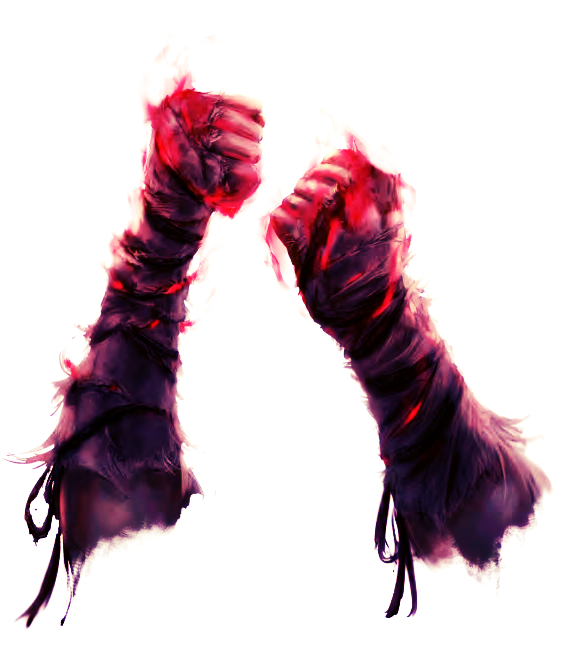
Macdhai, Falsar's Mantle
Wondrous item, artifact (requires attunement)
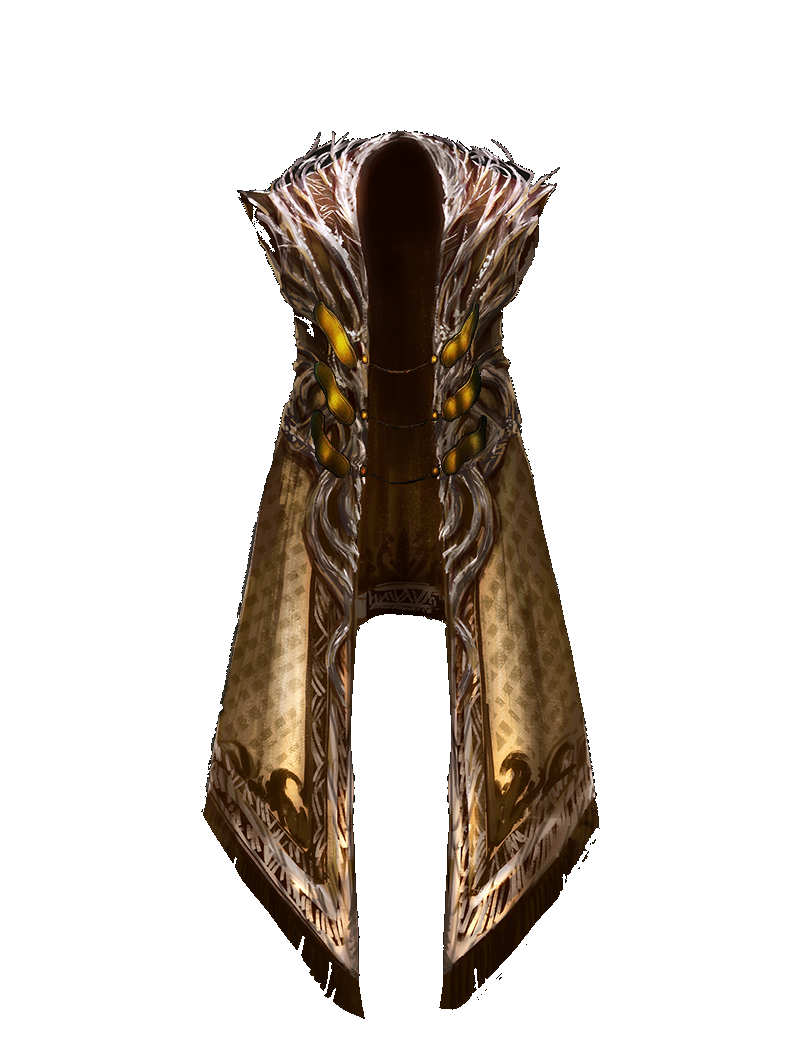
Oculuso, Archimedes's Repeater
Weapon (lever-action rifle), artifact (requires attunement)
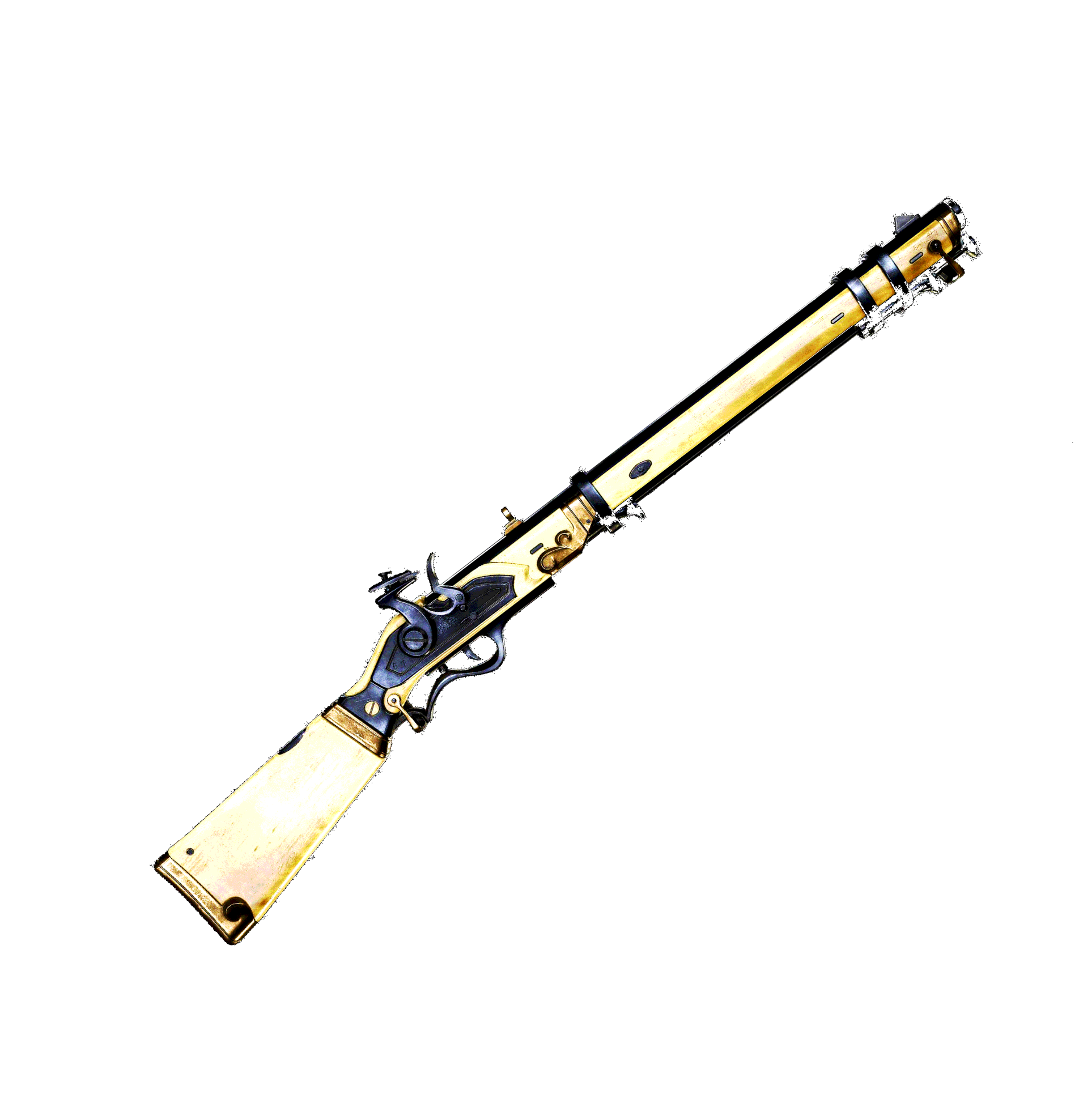
Panayai, Andras's Satchel
Wondrous item, artifact (requires attunement)
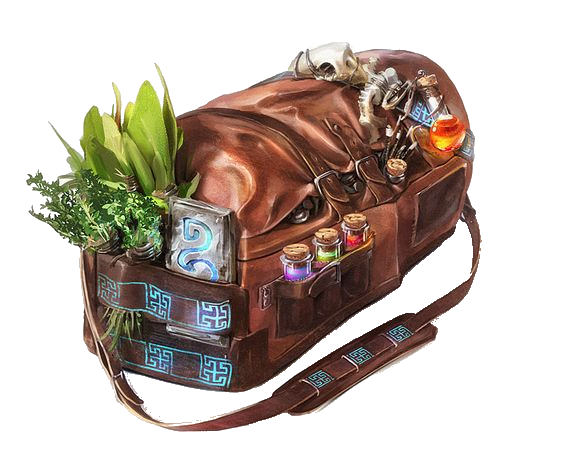
Throlam, Kurith's Boots
Wondrous item, artifact (requires attunement)
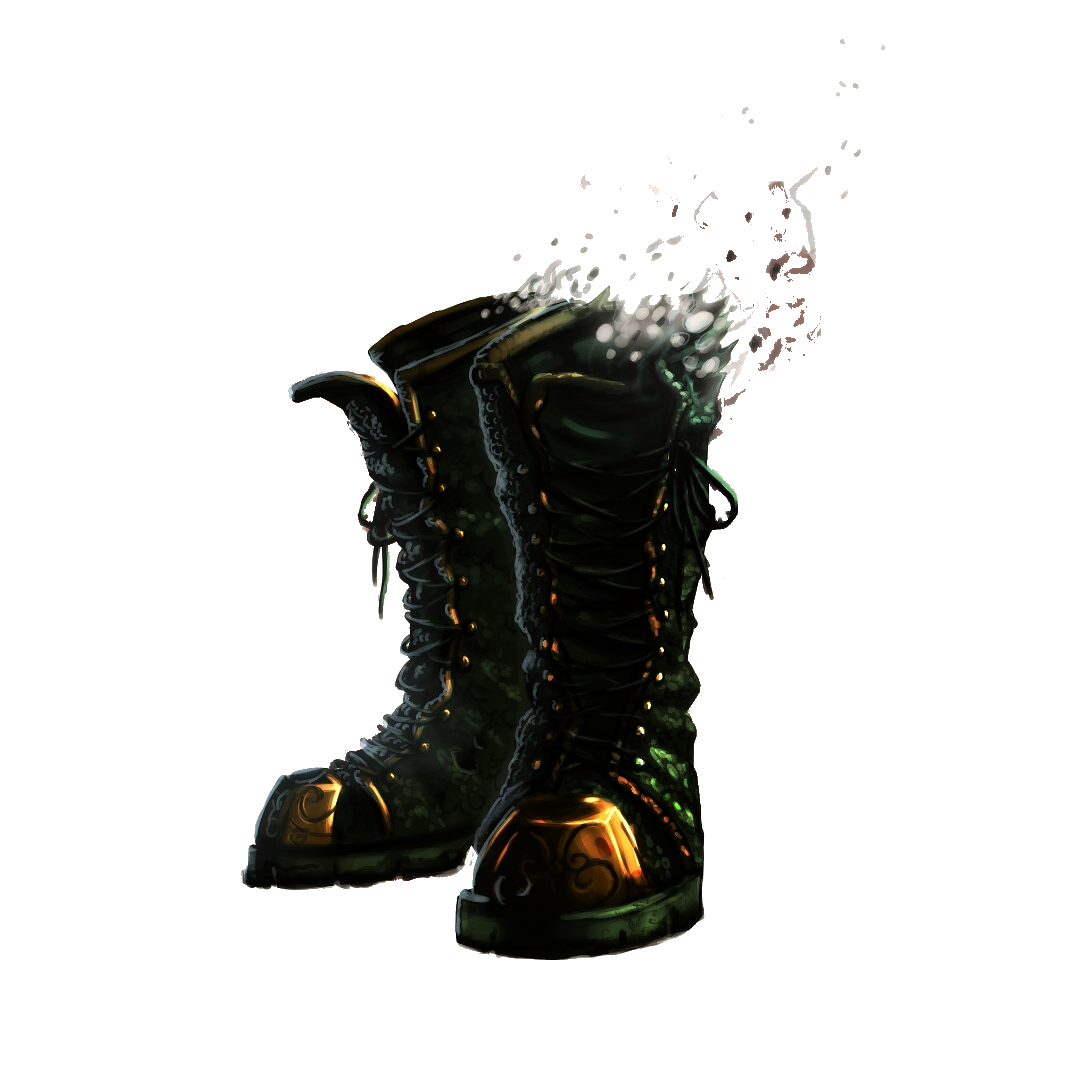
Vhondro, Masque of Herkut
Wondrous item, artifact (requires attunement)
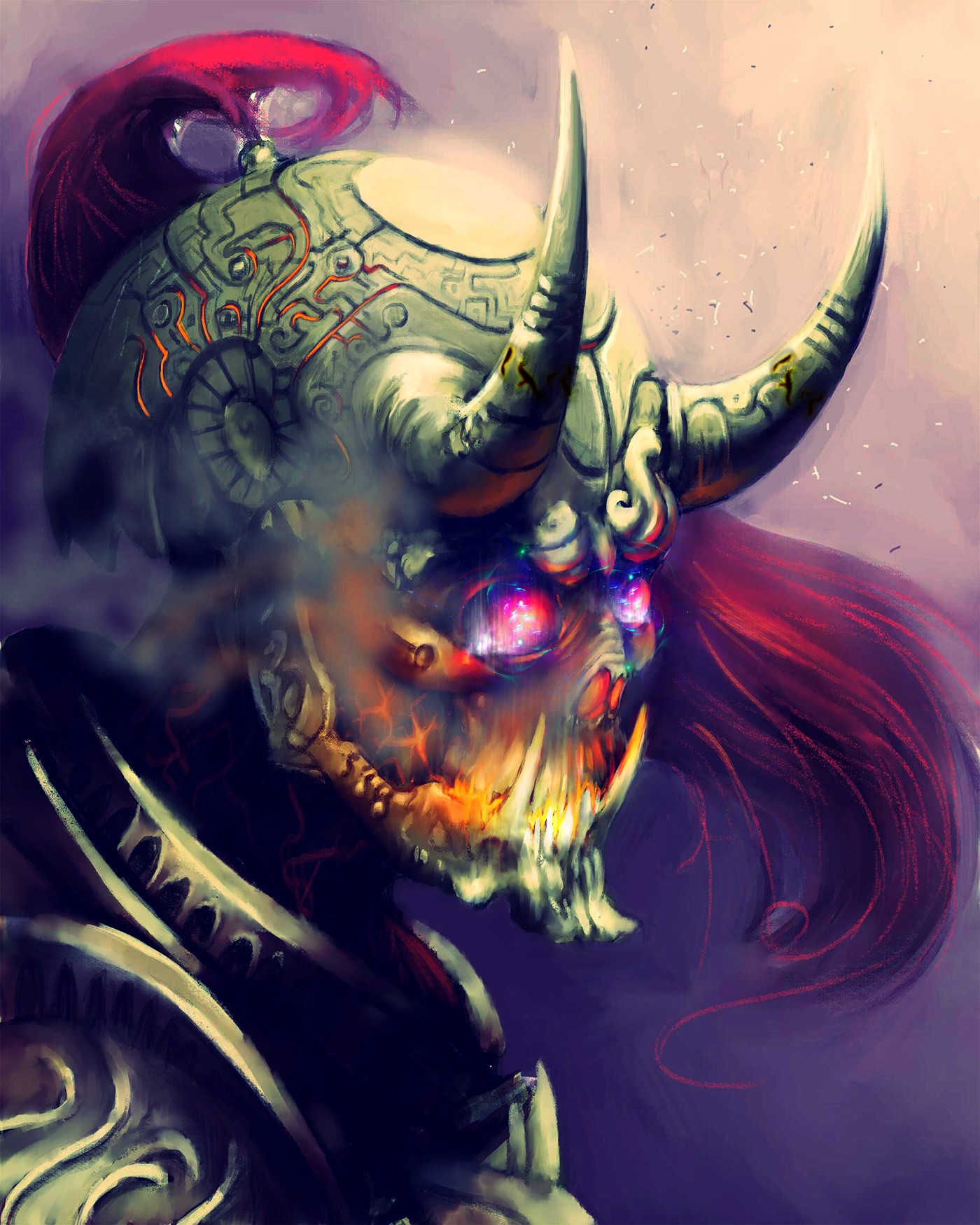

Divine Artifacts
Theomachy, Icon's End
Weapon (trident), divine artifact (requires attunement)
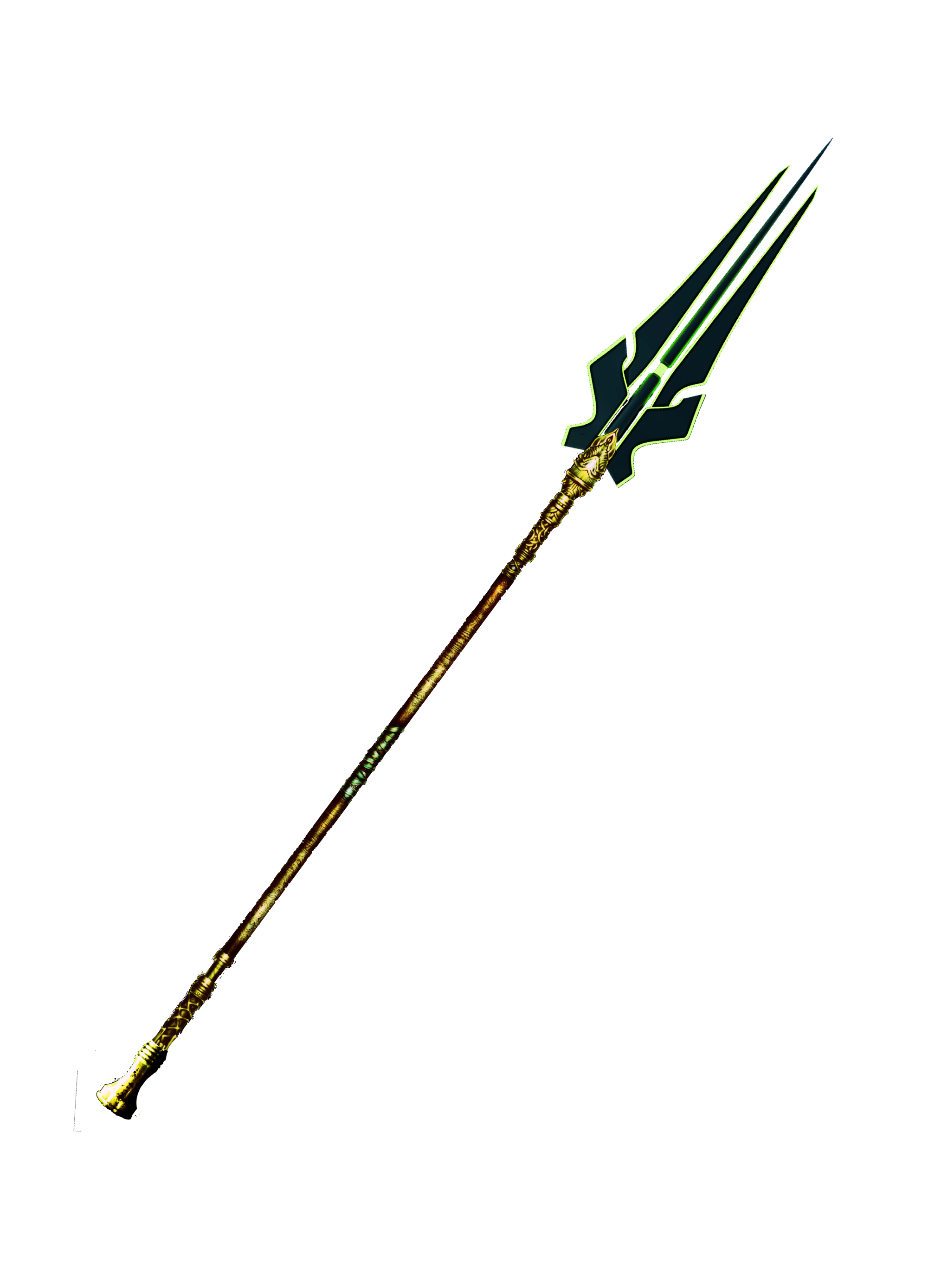
Rapacior, Edge of Greed
Weapon (longsword), divine artifact (requires attunement)
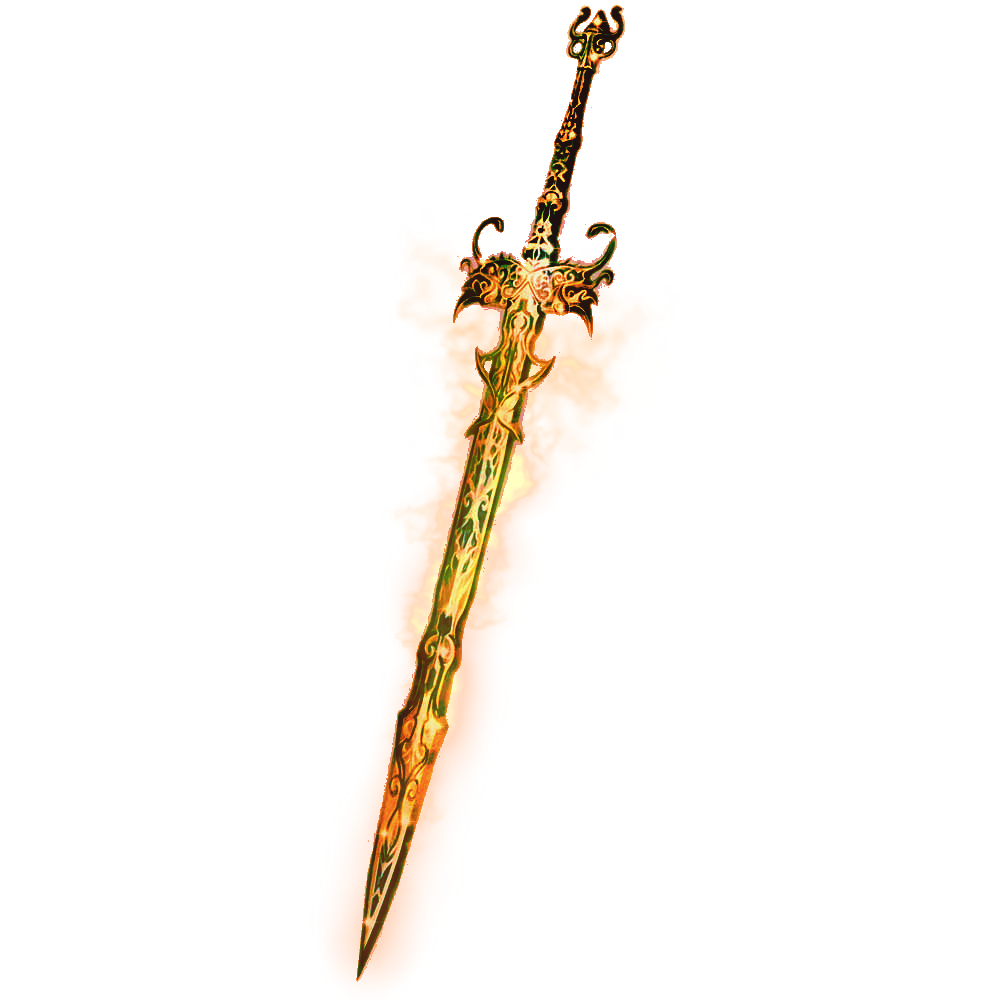
Grimjawl, Hammer of Pride
Weapon (maul), divine artifact (requires attunement)
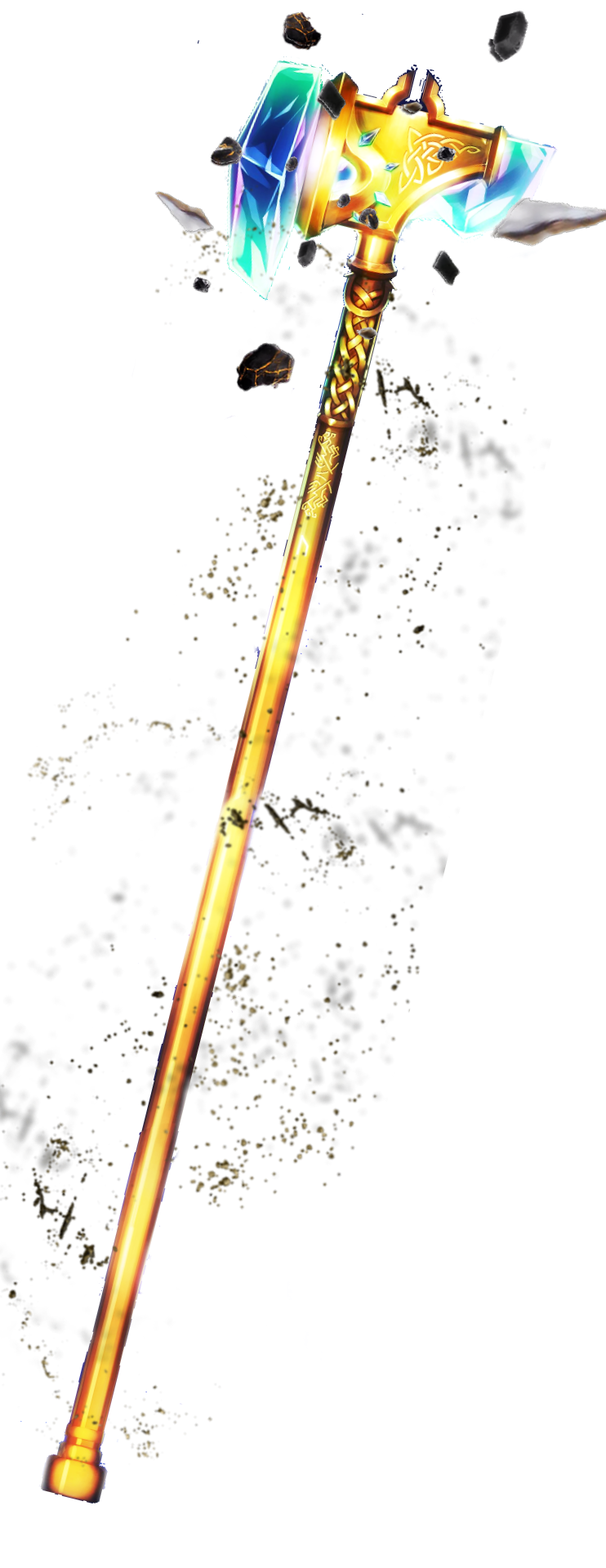
Ruthmalor, Blade of Wrath
Weapon (gunblade), divine artifact (requires attunement)
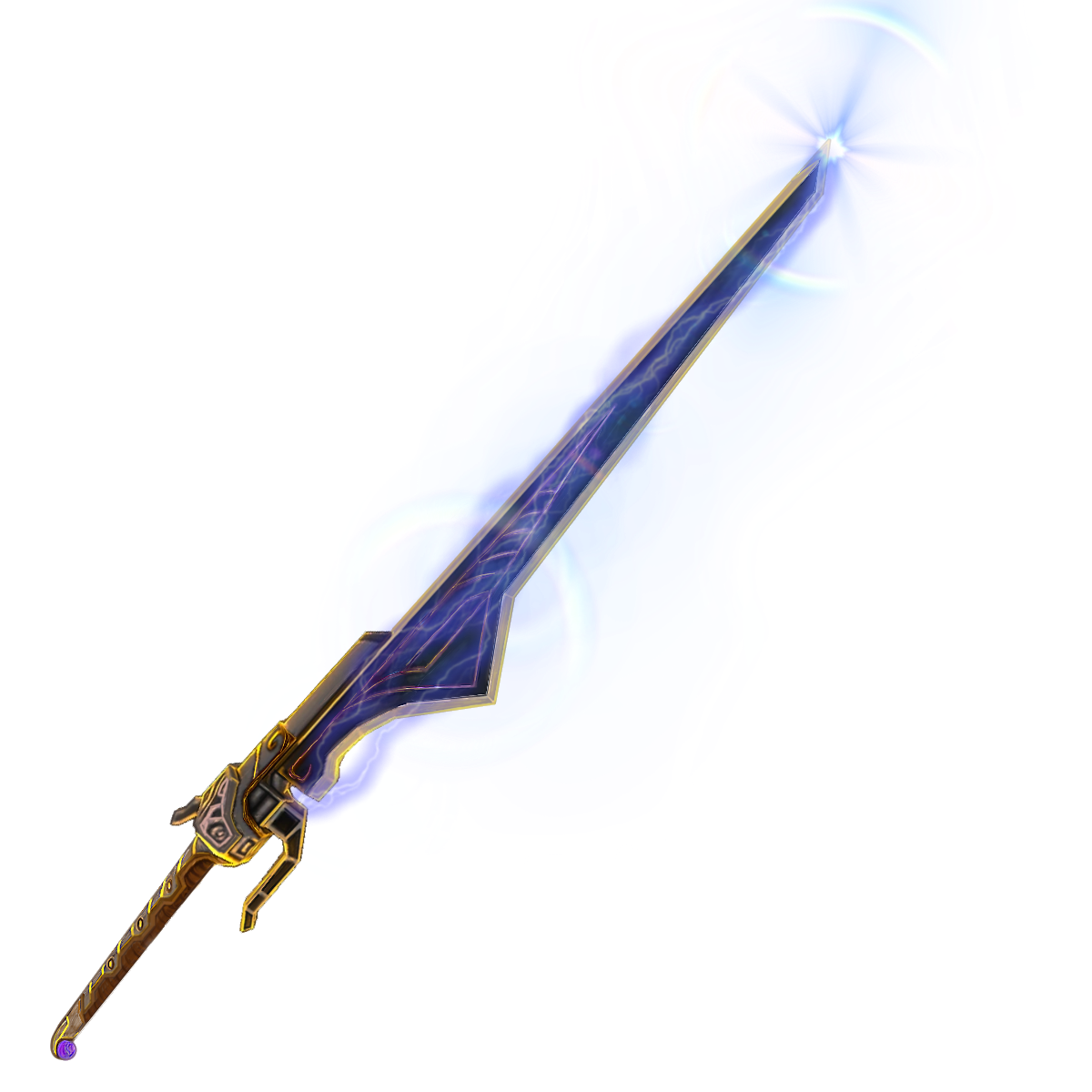
Solasta, Staff of Gluttony
Staff, divine artifact (requires attunement)
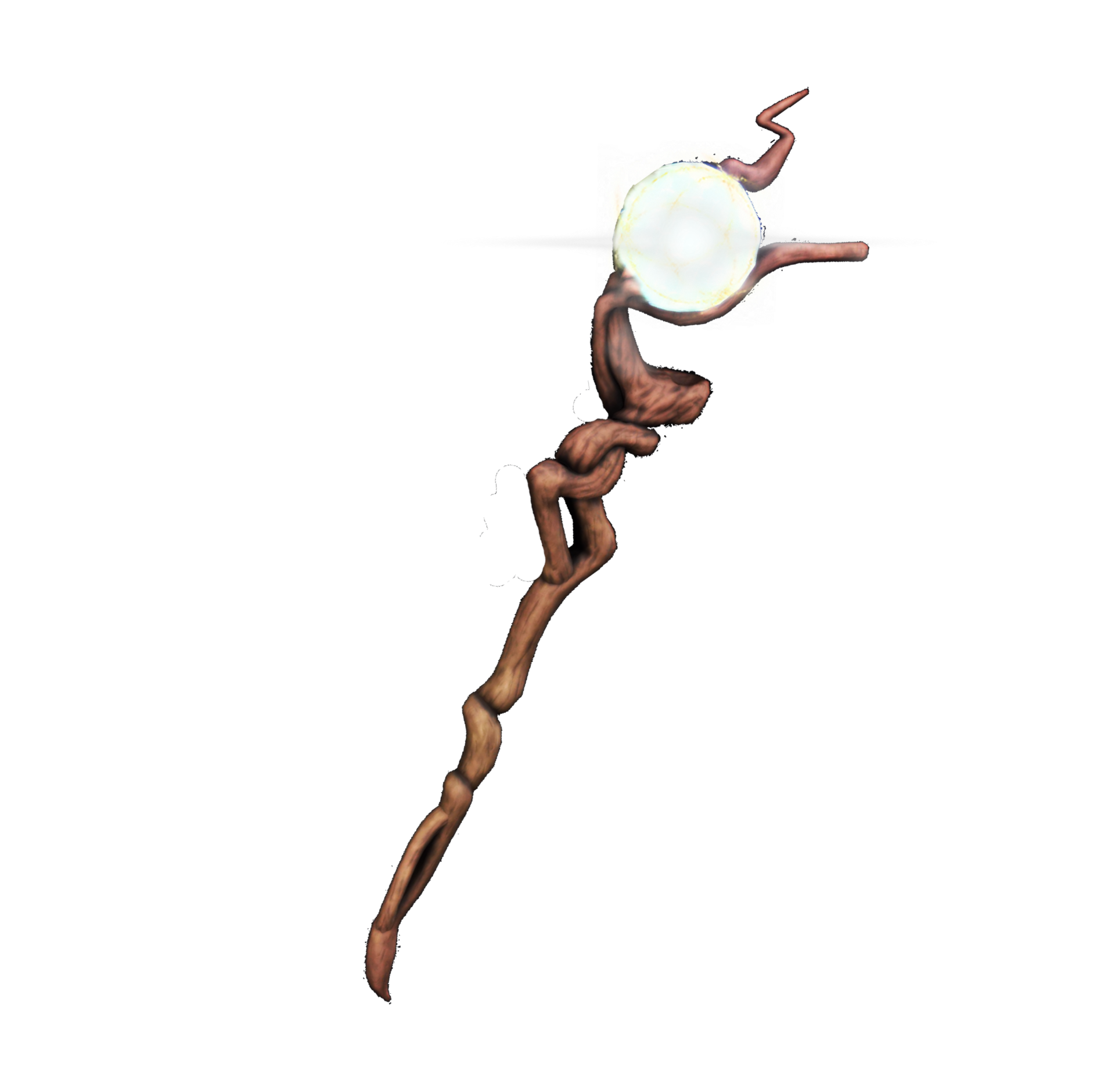
Verruktos, Razors of Envy
Weapon (dagger), divine artifact (requires attunement)
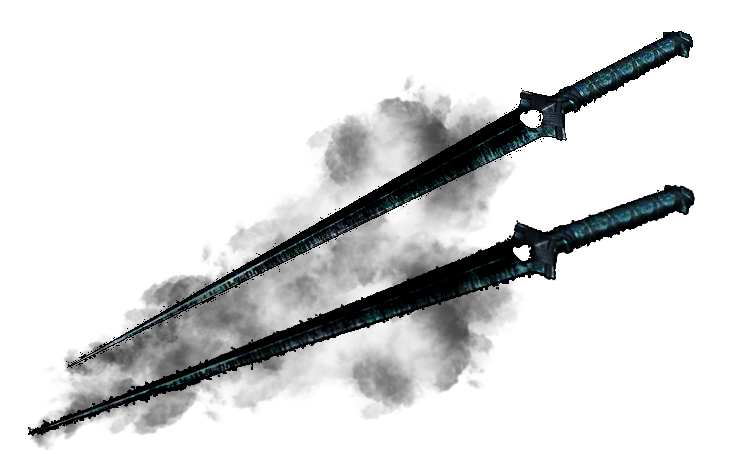
Miatri, Tip of Lust
Weapon (spear), divine artifact (requires attunement)

Diacer, Reach of Sloth
Weapon (scythe), divine artifact (requires attunement)
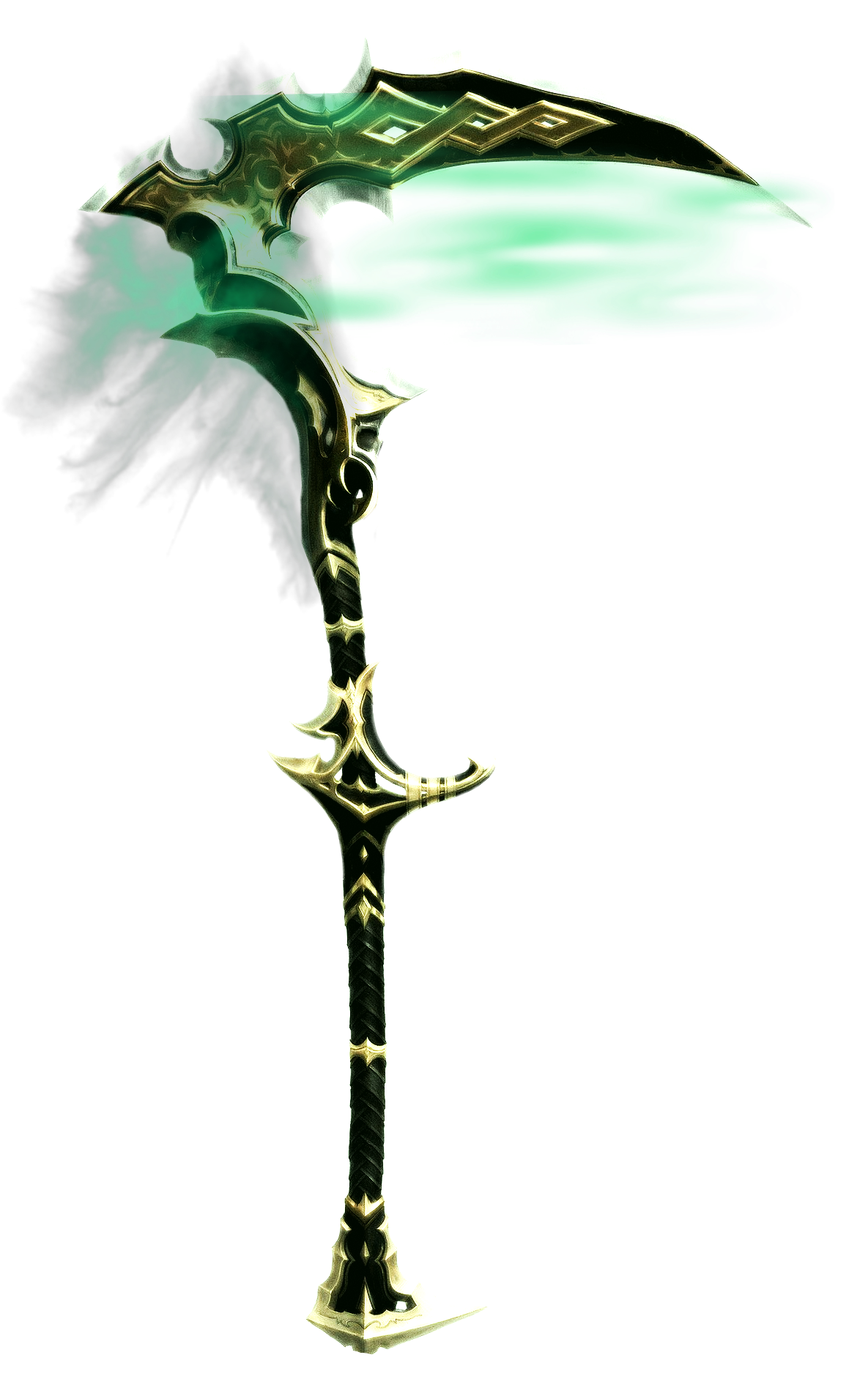
Utraap'zhir, The Living Glass
Staff, divine artifact (requires attunement)
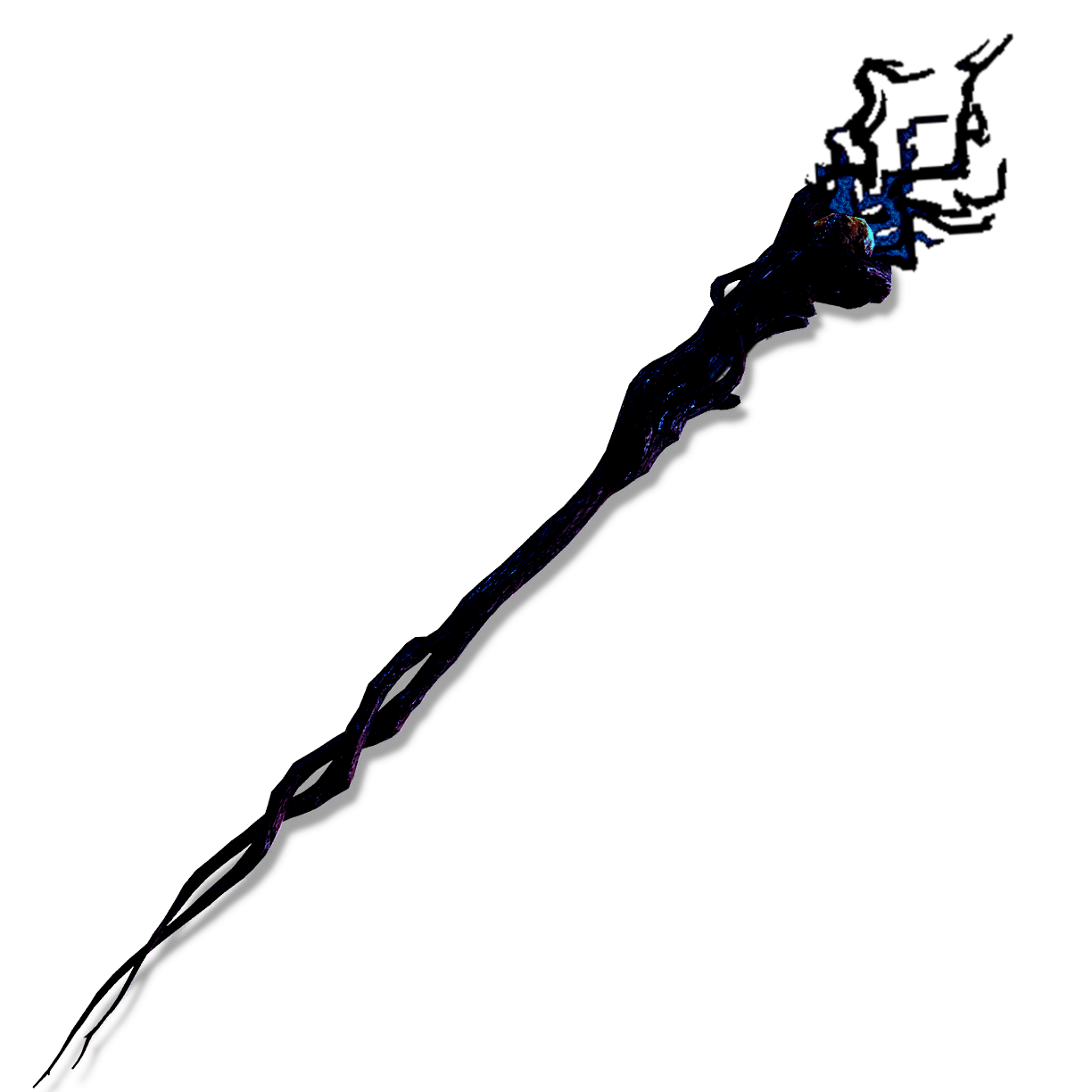
Vehicles
Basic Properties
A vehicle stat block has three main parts: basic statistics, components, and action options. Vehicles can't take any actions on their own. Without effort from its crew, a vehicle might continue on its trajectory, steadily come to a stop, or careen out of control.
VEHICLE TYPE
Vehicles can be a land, water, air, or space vehicles, depending on the types of special movement available to them. A Land vehicle moves or climbs across solid surfaces, a water vehicle has a swimming speed, air vehicle has a flying or hover speed, and space vehicles have a distinct form of air and vacuum speed. Very rarely, a vehicle may have multiple types of mobility.
If a vehicle has more than one type of movement, then the precedence of the vehicle's type is determined by whether it has a swimming or flying speed. Water takes precedence over land, air takes precedence over land and water, and space supersedes all three - but will normally have a primary air speed.
If a vehicle that lacks a swimming speed enters a liquid substance, it can't move and it begins to sink at a rate of 10 feet per round until it is removed.
If a vehicle that is not a space vehicle is introduced into vacuum or a space-like environment, it does not cease to function, but the occupants inside are still subject to the forces of space & vacuum - essentially killing them. Additionally, in order to move a vehicle in space, the vehicle must have a fly speed.
SIZE
Most vehicles are Medium, Large, Huge, Gargantuan, or larger. A vehicle's size category is determined by its length or width, whichever is longer. For instance, a vehicle that is 5 feet wide and 15 feet wide would use the size category that has a 15-foot width, which means the vehicle is Huge.
SPACE
A vehicle doesn't have a square space unless its stat block specifies otherwise. For example, a vehicle that is 20 feet long and 10 feet wide occupies a 20-by-10-foot space.
A vehicle can't move into a space that is too small to accommodate it. If it tries to do so, it crashes, as described in the "Crashing" section.
CAPACITY (Driver/Rider)
The Driver/Rider capacity determines the amount of people that can comfortably inhabit a vehicle without squeezing, or without exceeding the safety equipment of the vehicle. For example, a vehicle - such as a car - might have space for 1 driver and 4 riders, and any additional riders past the limit may have to squeeze in between other riders, sit on their laps, or even try to find space in the trunk.
The DM decides the exact penalty for exceeding the driver/rider limit. For example, a creature squeezing between other riders or in awkward positions may suffer the effects of a creature squeezing into a smaller place: the squeezing creature has disadvantage on attack rolls and Dexterity saving throws, and attack rolls against the creature have advantage against the creature. A creature lying in the trunk of a vehicle may have vulnerability to any damage the vehicle would sustain in a crash or outside force.
CARGO
A vehicle's cargo is the amount of weight a vehicle can carry without penalty. The weight of drivers/riders does not count against a vehicle's capacity, unless the DM decides that a rider is exceptionally heavy for the vehicle.
If a vehicle's cargo capacity is exceeded, its fuel efficiency is decreased, the vehicle consumes 2 miles of range for every 1 mile it travels - essentially cutting its max range in half (but not its speed). If a vehicle is carrying more than twice its cargo capacity, its speed is reduced by half. If a vehicle is carrying more than thrice its cargo capacity, the vehicle can't move.
RANGE & FUEL
A vehicle's range is the maximum distance a vehicle can travel on a full tank of fuel. Fuel for a vehicle can be a variety of various forms - such as fossil fuels, electric batteries, crystals, or even a magic engine you must pour spell slots into. Once a vehicle is out of fuel, it can't move, can't take actions or reactions, and if it would explode when it reaches 0 hit points, it does not.
Most types of fuel are easy to purchase at a rate of 1 gold per 5 miles, and fuel stations are readily available in civilizations with like-wise technologies. Some vehicles may use advanced fuel - such as nuclear decay or magical artifacts - which would be much harder to find.
Fuel & Fuel Stations
The necessity of fuel use is a common aspect of many vehicles - even those which utilize animal power; which typically comes in the form of stables and proper feed.
On the flip-side, the presence of mechanical and motorized vehicles requires the presence and use of fuels which can be used by the vehicle in question.
Many societies and cities which have access to motor or powered vehicles require a fuel station of some form - and in areas where powered vehicles are rare, these fuel stations are few and far between.
Fuel Stations
A fuel station is a structure where a powered vehicle can receive proper refueling. Keep in mind the following points when having a fuel station in your world:
- A fuel station is typically open at all hours of the day (and night).
- Other individuals and creatures with powered vehicles would frequent the station - resulting in a wide variety of renowned or powerful individuals.
- Treat a fuel station as an impromptu tavern - with access to basic food and drink, as well as simple supplies for those mid-travel.
TRAVEL SPEED
Speeds of vehicles are provided in feet per round, similar to movement speed on foot.
Speed can be doubled to begin traveling at a fast pace, or halved to travel at a slow pace. Traveling at a fast pace incurs a -5 penalty on passive Wisdom (Perception) scores, causes active Wisdom (Perception) checks to be made at disadvantage, and has the potential to cause damage to your vehicle beyond normal wear and tear. Traveling at a slow pace, by contrast, allows the possibility of stealth, though significantly impacts your resource consumption, as getting to your destination takes twice as long
(Miles per Hour) VS (Feet per Round)
To convert miles per hour to feet per round, multiply by 10. Conversely, to convert feet per round to miles per hour divide by 10. This approximation is fairly easy and surprisingly close to the true conversion figure of 8.8.
The extra distance traveled by the multiplication/division of 10 can be easily explained by the presence of slopes, smooth travel conditions, or windspeed - for RP's sake.
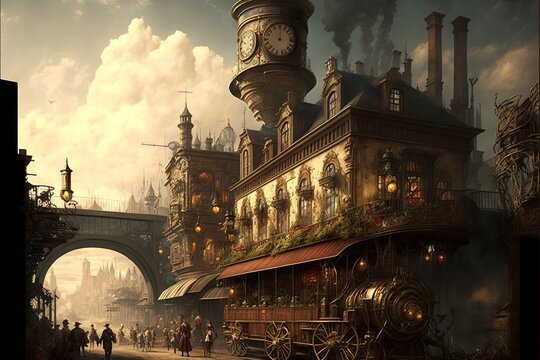

ABILITY SCORES
A vehicles has the six ability scores and modifiers: Strength, Dexterity, Constitution, Intelligence, Wisdom, and Charisma.
A vehicle's Strength represents a combination of its size, weight, and the torque or power it can bring to bear. A vehicle's Dexterity describes its handling, braking, acceleration, and stability. A Vehicle's Constitution embodies its durability, the sturdiness of its frame, and the amount of damage its internals can sustain before it ceases to function. Constitution also determines a system's internal resilience to meddling from spells and the integrity of its systems.
Vehicles usually have a score of 0 in Intelligence, Wisdom, and Charisma, and automatically fail any ability check or saving throw using those scores. One Major exception are sentient vehicles, which typically have non-zero Intelligence, Wisdom, and Charisma scores.
VULNERABILITIES, RESISTANCES AND IMMUNITIES
A vehicle's vulnerabilities, resistances, and immunities apply to all its components, unless otherwise noted in the stat block.
Vehicles are typically immune to poison and psychic damage. Vehicles are also usually immune to the following conditions: blinded, charmed, deafened, exhaustion, frightened, incapacitated, paralyzed, petrified, poisoned, prone, stunned, and unconscious.
ACTIONS
Vehicles can have many different types of actions and reaction, although they can't use them unless a driver grants the vehicle its action or reaction. A vehicle can only take the Attack, Disengage, or Ready actions.
A vehicle may have weapons installed on it through the melee or ranged weapon mount vehicle modifications. Alternatively, it may have special weapons designed for it that have their own properties. Any weapons and other special actions available to the vehicle fall under the Actions section of the Vehicle's stat block.
Typically, when the vehicle's special actions and abilities, such as a special attack such as a railgun, force a target to make a saving throw, the saving throw DC is determined by using the following formula: 8 + the vehicle's proficiency bonus + the vehicle's Constitution modifier. However, some actions may use other ability modifiers.
Vehicles may also have reactions available to them through modifications or special equipment.
Some vehicles even have legendary actions. Vehicles with legendary actions require a driver that is proficient with the vehicle type to drive them, and can only take legendary actions while the vehicle has a proficient driver that is not incapacitated.
Vehicle Components
A vehicle is composed of different components, each of which comprises multiple objects:
Hull. A vehicle's hull is its basic frame, on which the other components are mounted.
Control. A control component is used to steer a vehicle.
Movement. A movement component is an element of the vehicle that enables it to move, usually some form of engine, and has a specific speed.
Weapon. A vehicle capable of being used in combat often has one or more weapon components, each of which is operated separately.
A vehicle's component might have special rules, as described in the stat block.
ARMOR CLASS
A component has an Armor Class. Its AC reflects the materials used to construct it and any defensive plating used to augment its toughness.
HIT POINTS
A vehicle has hit points, and will be destroyed if they are reduced to 0. A vehicle does not have Hit Dice. To restore hit points, the vehicle must be repaired - some vehicles have auto-repair modules that slowly fix themselves over time.
DAMAGE THRESHOLD
Vehicles with a Damage Threshold have immunity to all damage unless the vehicle takes an amount of damage from a single Attack or Effect equal to or greater than its Damage Threshold, in which case it takes damage as normal.
Vehicle Weapons and Damage
Vehicles may be equipped with mounted melee and ranged weapons. They can be standard weapons like those available as vehicle modifications, in the form of the Melee Weapon Mount and the Ranged Weapon Mount. Alternatively, they could be weapons specially designed for the vehicle.
When determining the attack bonus and damage of a vehicle's standard Melee Weapon Mount, use the table below. The weapon usually deals bludgeoning, piercing, or slashing damage, depending on the nature of the weapon.
Melee Weapon Mount Attacks
| Size | Attack Bonus | Damage |
|---|---|---|
| Medium | Vehicle's Strength modifier + proficiency bonus | 1d8 + the vehicle's Strength modifier |
| Large | Vehicle's Strength modifier + proficiency bonus | 2d8 + the vehicle's Strength modifier |
| Huge | Vehicle's Strength modifier + proficiency bonus | 3d8 + the vehicle's Strength modifier |
| Gargantuan | Vehicle's Strength modifier + proficiency bonus | 4d8 + the vehicle's Strength modifier |
| Colossal | Vehicle's Strength modifier + proficiency bonus | 5d8 + the vehicle's Strength modifier |
| Titanic+ | Vehicle's Strength modifier + proficiency bonus | 6d8 + the vehicle's Strength modifier |
For the attack bonus of a vehicle's standard Ranged Weapon Mount, the attack bonus depends on whether the attack is made using the driver's Dexterity or the Vehicle's Constitution for the attack roll, as shown in the Ranged Weapon Mount Attacks table (driver chooses when they make the attack). The damage type depends on the weapon and ammunition.
Ranged Weapon Mount Attacks
| Size | Attack Bonus |
|---|---|
| Dexterity | Driver's Dexterity modifier + proficiency bonus |
| Constitution | Vehicle's Constitution modifier + proficiency bonus |
In addition, if the vehicle is Huge or larger, the vehicle also uses more powerful ranged weaponry, and thus can add its Constitution modifier to damage rolls for its ranged weapon attacks.
When creating statistics for a vehicle, it's recommended to use the vehicle's Constitution formula for determining its attack bonus. This makes it easier to standardize the vehicle for challenge rating calculation without having to make assumptions on the statistics of the driver.
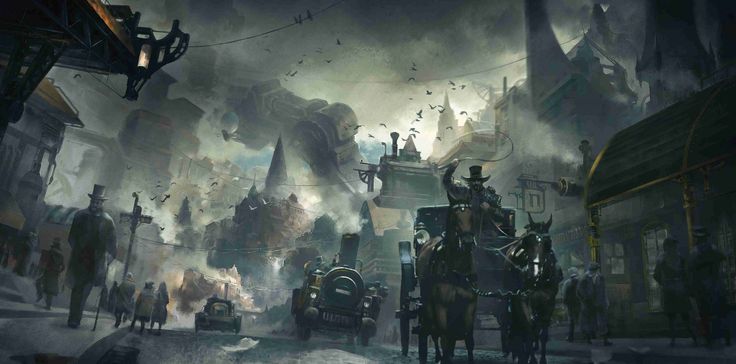

Land Vehicles
| Item | Cost | Weight (lbs) | Speed (ft) | Size | Fuel Range (full tank) | Capacity | Cargo |
|---|---|---|---|---|---|---|---|
| Standard Land Vehicles | |||||||
| Caravan | 100 gp | 800 lbs | 30 | Large | — | 1/3 | 300 lbs |
| Carriage | 100 gp | 600 lbs | 30 | Large | — | — | |
| Cart | 15 gp | 200 lbs | 40 | Large | ─ | — | |
| Chariot | 250 gp | 100 lbs | 60 | Medium | ─ | ─ | |
| Sled | 20 gp | 300 lbs | 50 | Medium | ─ | — | |
| Wagon | 35 gp | 400 lbs | 40 | Large | — | — | |
| Powered Land Vehicles | |||||||
| Motorcycle | 1,500 gp | 400 lbs | 750 | Medium | ─ | 1/1 | |
| Small Motorcar | 2,500 gp | 2,000 lbs | 900 | Large | ─ | 1/3 | |
| Large Motorcar | 5,000 gp | 4,000 lbs | 1,000 | Huge | — | 1/7 | |
| Omnibus | 15,000 gp | 25,000 lbs | 750 | Huge | — | 1/25 | |
| Steam Engine | 200,000 gp | 500,000 lbs | 500 | Gargantuan | ─ | 10/50* |
Standard Land Vehicles
Standard Land Vehicles are simple vehicles that are traditionally pulled by draft horses (or similar animals - such as dogs or wolves for the sled).
Since the common means of achieving locomotion with a standard land vehicle includes a living creature or mount to propel forwards; these vehicles do not require a power source by any normal means - instead relying upon daily rest and nutrition for the creatures to pull the vehicle.
The speed of a Land Vehicle is the average for a creature of the same speed. If a creature who is pulling the vehicle has a speed higher than the listed speed; use the higher of the two speeds.
Powered Land Vehicles
Powered Land Vehicles are complex machines that rely upon an internally-fuled engine or power source in order to function.
These vehicles are incredibly difficult and expensive to manufacture and create enmasse, and are akin to rare, very rare, or legendary magical objects to some individuals - and often times seen as symbols of status.
Most powered land vehicles rely upon a form of liquid or solid combustible fuel in order to function. On some worlds, these vehicles can be powered through magical or alchemical means that rely upon non-fossil fuels. When a powered land vehicle runs out of fuel, it's effective speed becomes 0.
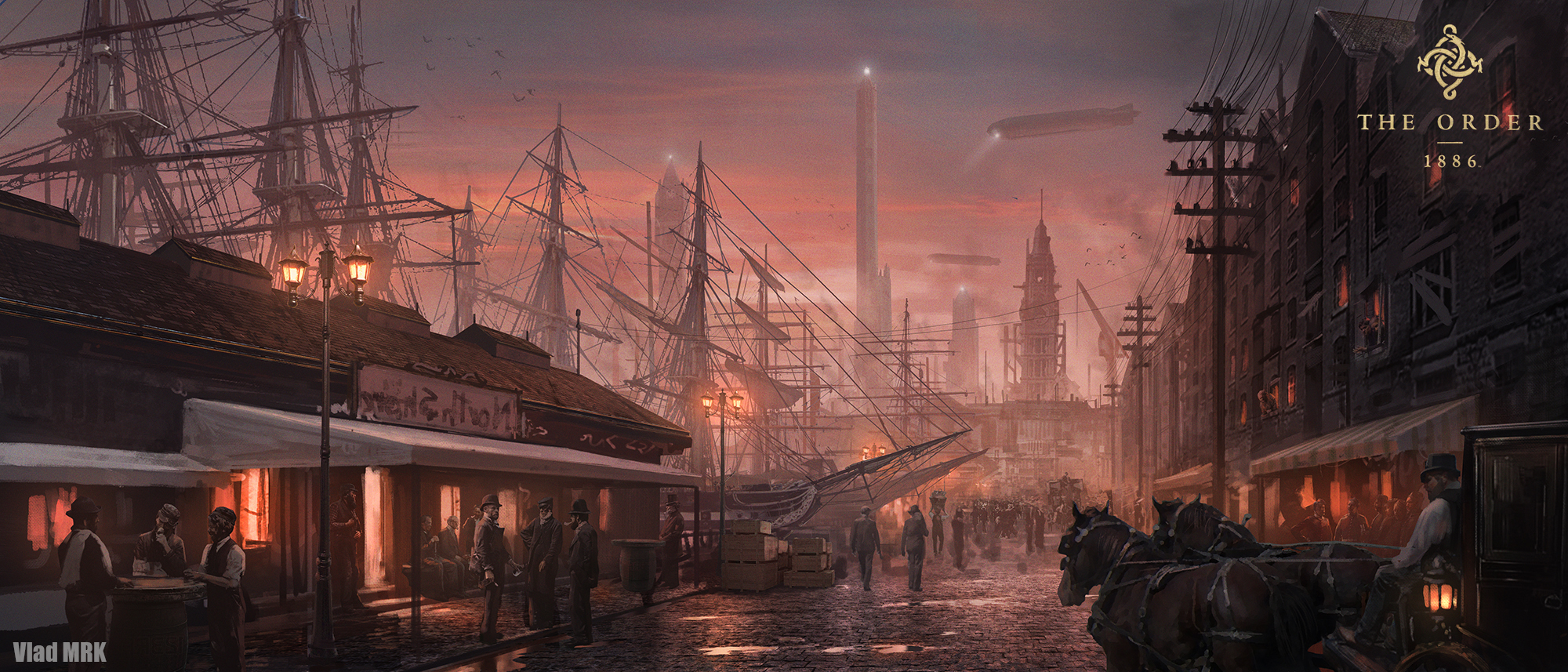

Caravan
A caravan is a drawn vehicle that functions as a mobile living space - a favorite for wanderers, adventurers and campers.
It comes supplied with the following (which do not count against it's Cargo limit):
- A single bed (A bed roll can be rolled out on the floor to accommodate a guest - or perhaps two).
- A chair and table.
- A travel trunk for storage space.
- A barrels worth of water.
- A wood burning stove.
Caravan
Large land vehicle (5 ft. by 15 ft.)
- Creature Capacity (driver/rider) 1/3
- Cargo 300 lbs
- Weight 800 lbs
- Fuel Range ---
- Armor Class 15
- Damage Threshold 5
- Hit Points 100
- Speed 0 ft (≈ 12.5 mph).
STR DEX CON INT WIS CHA 15(+2) 20(+5) 15(+2) 0 0 0
- Damage Immunities poison, psychic
- Condition Immunities blinded, charmed, deafened, exhaustion, frightened, incapacitated, paralyzed, petrified, poisoned, prone, stunned, unconscious
- Challenge 0 (10 XP)
Actions
Carriage
Carriage
Large land vehicle (10 ft. by 10 ft.)
- Creature Capacity (driver/rider) 1/1
- Cargo 500 lbs
- Weight 800 lbs
- Fuel Range ---
- Armor Class 15
- Damage Threshold 5
- Hit Points 100
- Speed 0 ft (≈ 12.5 mph).
STR DEX CON INT WIS CHA 15(+2) 20(+5) 15(+2) 0 0 0
- Damage Immunities poison, psychic
- Condition Immunities blinded, charmed, deafened, exhaustion, frightened, incapacitated, paralyzed, petrified, poisoned, prone, stunned, unconscious
- Challenge 0 (10 XP)
Actions
Cart
A single-axle
Cart
Large land vehicle (5 ft. by 10 ft.)
- Creature Capacity (driver/rider) 1/1
- Cargo 500 lbs
- Weight 800 lbs
- Fuel Range ---
- Armor Class 15
- Damage Threshold 5
- Hit Points 100
- Speed 0 ft (≈ 12.5 mph).
STR DEX CON INT WIS CHA 15(+2) 20(+5) 15(+2) 0 0 0
- Damage Immunities poison, psychic
- Condition Immunities blinded, charmed, deafened, exhaustion, frightened, incapacitated, paralyzed, petrified, poisoned, prone, stunned, unconscious
- Challenge 0 (10 XP)
Actions
Chariot
Chariots are mobile armored battlements on wheels that grant superior combat functions for a single driver.
Chariots and the creatures pulling them work like controlled mounts, as described in the mounted combat rules, but with the following differences:
- Mounting or dismounting a chariot costs you 5 feet of movement, rather than a number of feet equal to half your speed.
- Being mounted on a chariot grants you half cover.
- A chariot's speed is equal to the speed of the slowest creature pulling it.
- If multiple creatures are pulling the chariot, they all act on the same initiative, and they must take the same action on their turn.
Chariot
Medium land vehicle (5 ft. by 5 ft.)
- Creature Capacity (driver/rider) 1/-
- Cargo 500 lbs
- Weight 800 lbs
- Fuel Range ---
- Armor Class 15
- Damage Threshold 5
- Hit Points 100
- Speed 0 ft (≈ 12.5 mph).
STR DEX CON INT WIS CHA 15(+2) 20(+5) 15(+2) 0 0 0
- Damage Immunities poison, psychic
- Condition Immunities blinded, charmed, deafened, exhaustion, frightened, incapacitated, paralyzed, petrified, poisoned, prone, stunned, unconscious
- Challenge 0 (10 XP)
Actions
Sled
A sturdy platform held aloft by greased or oiled braces that allow travel across unconventional terrain.
Sled
Medium land vehicle (5 ft. by 10 ft.)
- Creature Capacity (driver/rider) 1/1
- Cargo 500 lbs
- Weight 800 lbs
- Fuel Range ---
- Armor Class 15
- Damage Threshold 5
- Hit Points 100
- Speed 0 ft (≈ 12.5 mph).
STR DEX CON INT WIS CHA 15(+2) 20(+5) 15(+2) 0 0 0
- Damage Immunities poison, psychic
- Condition Immunities blinded, charmed, deafened, exhaustion, frightened, incapacitated, paralyzed, petrified, poisoned, prone, stunned, unconscious
- Challenge 0 (10 XP)
Actions
Wagon
A double-axle
Wagon
Large land vehicle
- Creature Capacity (driver/rider) 1/1
- Cargo 500 lbs
- Weight 800 lbs
- Fuel Range ---
- Armor Class 15
- Damage Threshold 5
- Hit Points 100
- Speed 0 ft (≈ 12.5 mph).
STR DEX CON INT WIS CHA 15(+2) 20(+5) 15(+2) 0 0 0
- Damage Immunities poison, psychic
- Condition Immunities blinded, charmed, deafened, exhaustion, frightened, incapacitated, paralyzed, petrified, poisoned, prone, stunned, unconscious
- Challenge 0 (10 XP)
Actions